Food unites us, but how much do we know about the people who work hard day-in and day-out to ensure Canadians have access to fresh, safe, nutritious, and delicious food? With a food supply chain as diverse and plentiful as ours – it really does take a village. Faces Behind Food will capture the passion behind the food that we love, one person at a time.
If you are interested in being featured on Faces Behind Food, view the form below or email info@farmfoodcare.org
Les produits alimentaires nous unissent. Mais que savons-nous des personnes qui travaillent dur au quotidien pour que les Canadiens aient accès à des aliments frais, salubres, nutritifs et succulents? Avec une chaîne d’approvisionnement aussi diverse et abondante que la nôtre… c’est tout un village qui est nécessaire. L’initiative « Derrière la nourriture… des visages » capture la passion à l’œuvre derrière la nourriture que nous aimons… une personne à la fois.
Si vous souhaitez être présenté sur de cette initiative consultez le formulaire ci-dessous ou envoyez-nous un courriel à: info@farmfoodcare.org
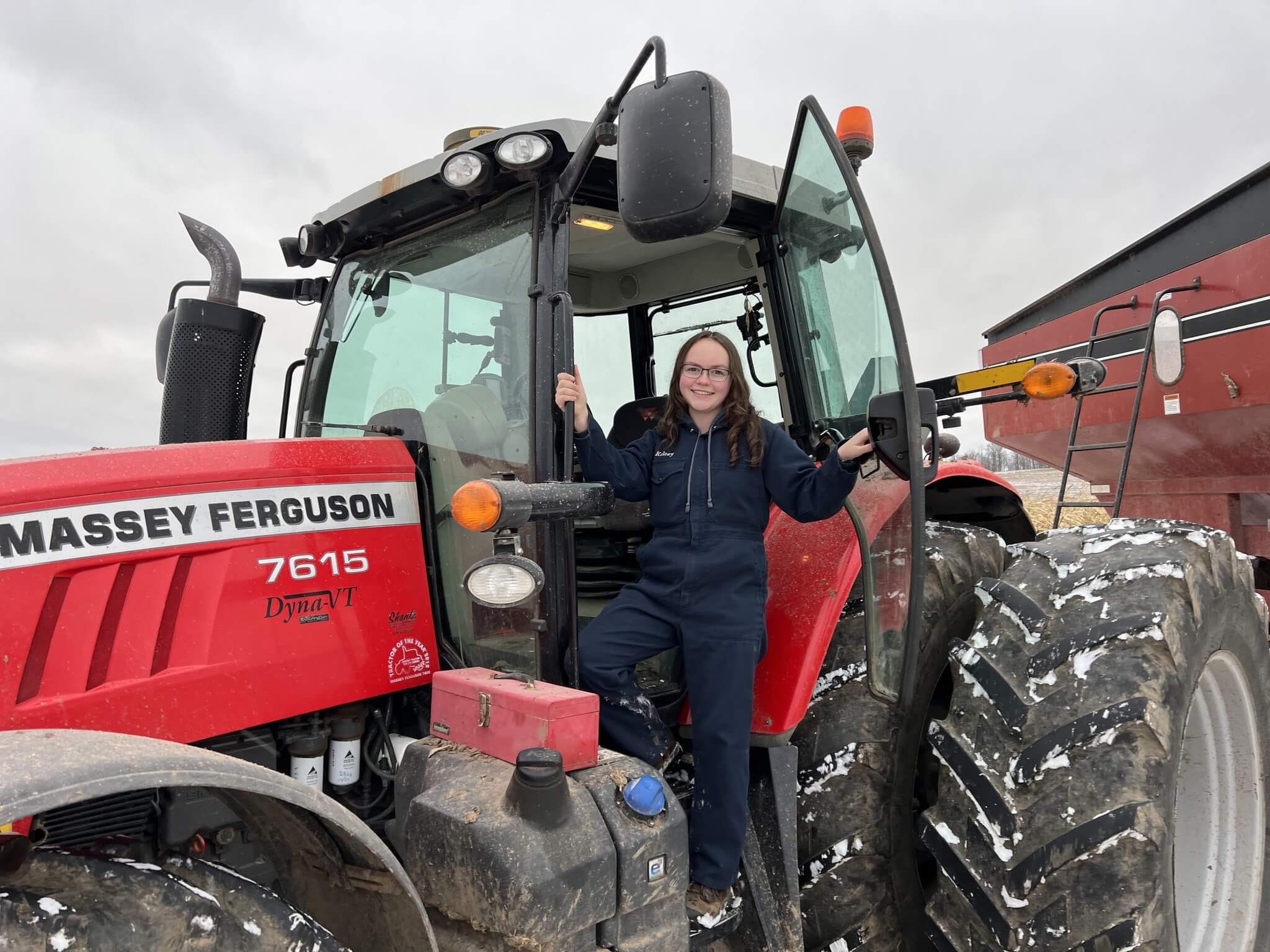
We grow corn, beans, wheat, and hay on our farm and also have beef cattle and sheep. I do a lot of work in the spring and the fall, including preparing the land and planting. In the fall, I drive the combine and help with the harvest.
In addition to farming, my goal is to be a heavy equipment mechanic. I have really taken an interest in repairing machinery. Every job is different, and I really like that. You need to look at everything to determine what is wrong. You learn a lot about how the equipment operates when fixing it, pulling it apart, and seeing how it works from the inside.
When I was nine, I started participating and competing in garden tractor pulling, a motorsport competition. I use a modified lawn tractor to pull a heavy sled along a track, with the winner being the tractor that pulls the sled the greatest distance. I’m now traveling to compete in competitions across Ontario, Pennsylvania, New York, and Ohio.
I love snowmobiling in the winter and boating in the summer. I’ve also been very interested in pursuing firefighting someday in addition to farming and being a mechanic. This may be a volunteer role or a full-time job as a firefighter; I’m not 100 percent sure.
-Kelsey, farmer
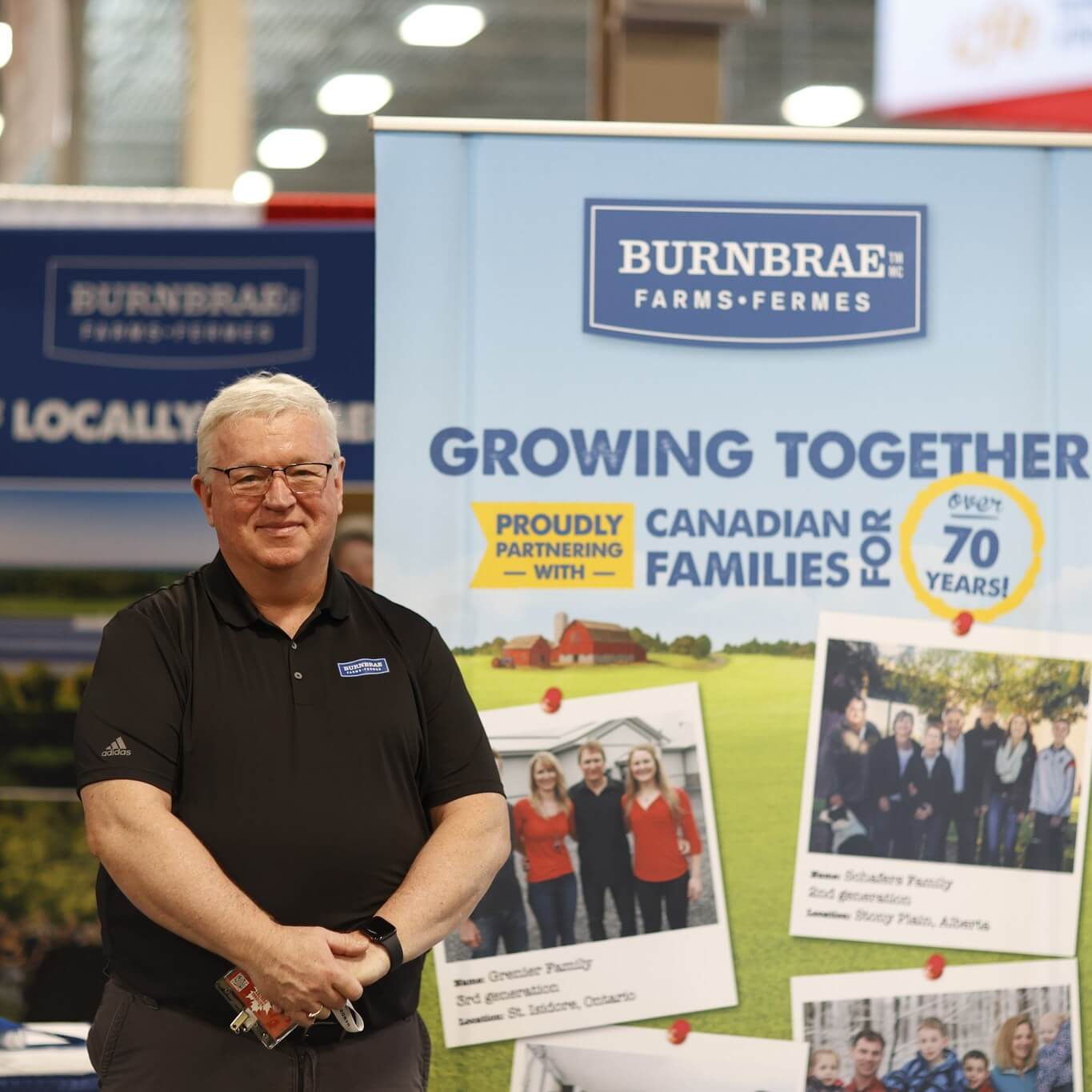
My career at Burnbrae Farms has been a huge part of my life. My pre-teen years were spent collecting eggs and helping to take care of hens. I continued this part-time work through high school and college. After I finished high school, I began working full-time at Burnbrae. I was given the opportunity to grow my career and take on new roles at various locations, including our egg-grading and egg-breaking facilities. I recently retired after a 40-year career.
When my children were small, I would take chicks into their classrooms. I have four children, so my visits to the school with chicks became very regular and expanded to other classrooms when the word got out that I was doing this. One of my favourite things was asking the kids who wanted to hold a chick. To their surprise, I would pull a full-grown rooster out. This was a way for the kids to see what the chick would grow into in a short amount of time. I am now bringing chicks into my grandchildrens’ classes. I enjoy giving children (who have never seen a farm animal before) the opportunity to hold the chicks and learn about egg farming.
This is a great industry, we have a great story to tell, and I love telling it! Part of my job included running tours of our farm and facilities and welcoming guests during events held at our locations.
As I move into retirement, I’m looking forward to relaxing. There will be camping trips, and I’d like to return to golfing. I’ve also taken up pickleball. When my wife retires, we plan on traveling and seeing all of Canada. I am committed to actively supporting events and initiatives that increase agriculture awareness across Ontario.
-Richard, retired, Burnbrae Farms
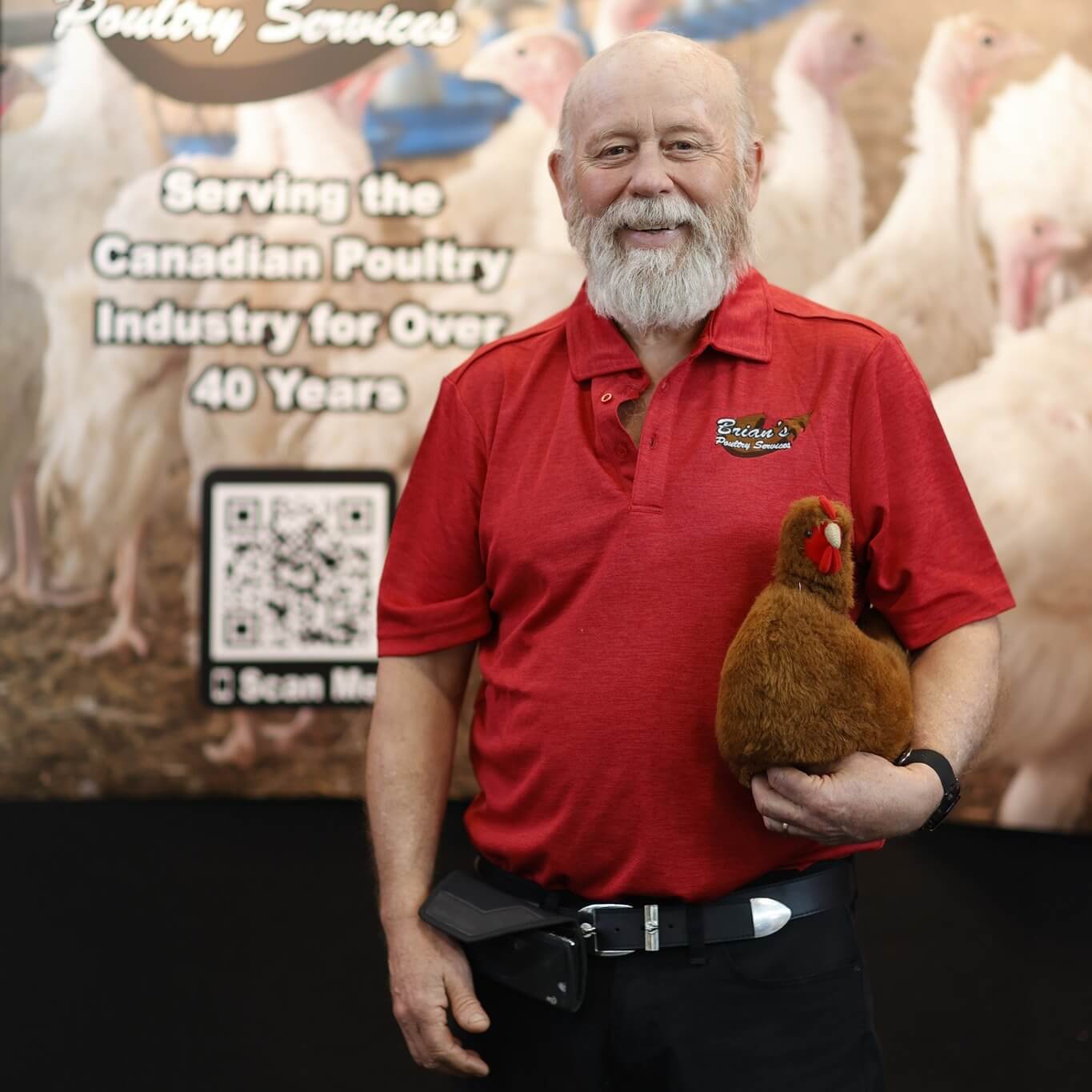
I grew up poor. My dad worked hard but struggled with a job that only covered the bills. I was driven to figure out how to make ends meet and make a living for myself. How it was all going to turn out, I wasn’t sure, but I wasn’t worried when I focused on working hard and earning money each day. I started helping local poultry farmers load their birds for processing as a 15-year-old.
I was on-call for nighttime work and would patiently wait for a call to work. When the phone didn’t ring, I would get upset. I needed the money. So I started my own crew providing organized labour for farmers. I would spend my time on the bus scheduling my friends to work and pass notes during class confirming when and if friends were available to work with me. To this day, I will meet old teachers of mine who remember me sleeping in class after working night shifts.
At 22, I established my own company and returned to providing organized labour to poultry farmers. It’s important that birds are well cared for through all stages of their lives and we play a big part of that, helping transport them from farms to processing facilities.
The business continued to expand, offering services to other poultry farms. Today we have a staff of 85. We also work in Manitoba, Newfoundland, and Quebec.
People might describe me as a redneck and rough around the edges, but that’s ok. I’ve worked hard my entire life, and thanks to my incredible staff, I am trying to enjoy life a little more these days. My son has taken over a company division and my wonderful wife has been an enormous asset in this business.
I have my pilot’s licence and enjoy flying in my spare time. I also love to jump on my motorcycle and go for a ride; it’s an extra special ride if I can get my wife to join me. We recently purchased some bushland, and I enjoy cutting firewood and enjoying the outdoors.
-Brian, owner, Brian’s Poultry Services
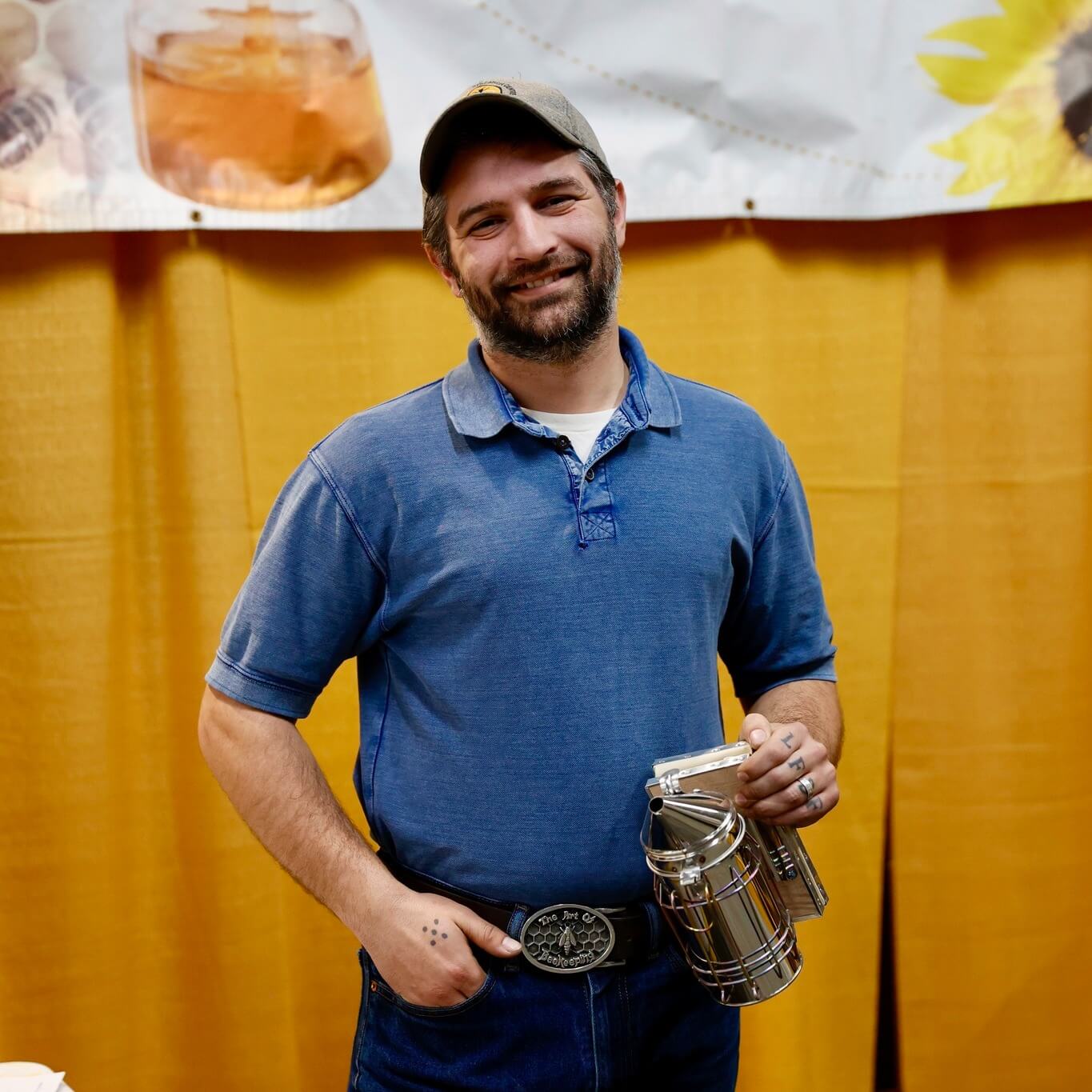
Spending four years in the military really made me appreciate my farming background. I’d moved to Western Canada when I was in the military, met my wife Sydney who was from British Columbia and I wanted to get back into agriculture. But the price of land and the costs associated with starting from scratch meant that the dream was initially out of our reach.
I took my first beekeeping course in British Columbia in 2016. We started with a few hives – and quickly became acquainted with the local wildlife when a bear took out most of them in search of the honey!
When we moved to Ontario, we expanded our business to about 200 hives and then got into the business of breeding queen bees. We produce about 100 queen bees per week, and send them to beekeepers across the province. Just like what is done with other livestock types, we’re trying to produce queen bees that have better genetics than the generations before them which, in turn, make for healthier populations in the hives.
My favourite thing is to check a mating hive after a couple of weeks and see a queen in there that has mated properly and is surrounded by a healthy batch of eggs. That’s always a little bit like Christmas!
Honey has actually become a secondary business for us behind the breeding but of course the bees are always producing – and it’s a sticky and labour intensive process. We get between 10,000 and 20,000 pounds of honey each year from our hives.
I grew up in a household where honey was served for special occasions. My favourite way to eat it is still on toast. Our 13 month old son Tiago also loves it.
-Jonny, beekeeper and bee breeder.
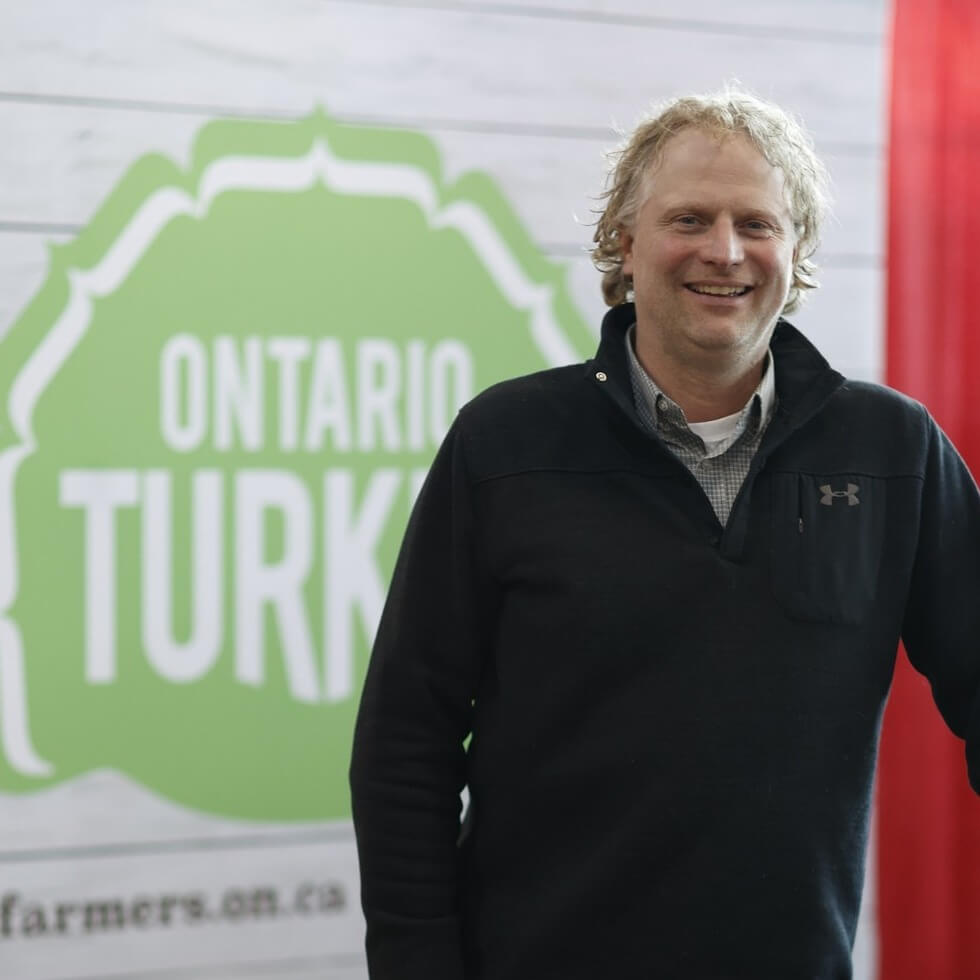
I didn’t start out as a turkey farmer. I grew up on a dairy farm and studied agriculture business at university. After school, I began a 20-year career supplying feed additives to feed mills and farmers. It all helped me achieve my goal of becoming a full-time farmer growing food. In 2001, my wife Katrina and I started our journey on a small five-acre farm raising turkeys. To succeed in farming, we needed a plan that would allow us to manage both an off-farm career and the farm workload, so growing turkeys was a good fit.
In 2009, we purchased our current farm and made the switch to organic turkeys and crops. We have grown over the years, building a new turkey barn and adding 300 sheep to the farm. In 2018, I became a full-time turkey farmer.
I really enjoy the entrepreneurial side of farming. It is great to be your own boss and make your own life path. It is an opportunity to work with my family. We raised our three children on the farm - they could work with animals and understand the commitment and work ethic needed. The farm life also gave me some flexibility to help coach my kid’s sports teams and be home more. I still play soccer myself. Now that our children are older, we hope to travel more, including spending time snowmobiling.
We have a great program in Ontario for growing turkeys. We have safe food and exemplary animal care programs to ensure that birds are grown in the best possible environment. Turkey is a great tasting healthy protein, and I enjoy smoked turkey that I have prepared on my smoker.
-Tim, turkey and sheep farmer
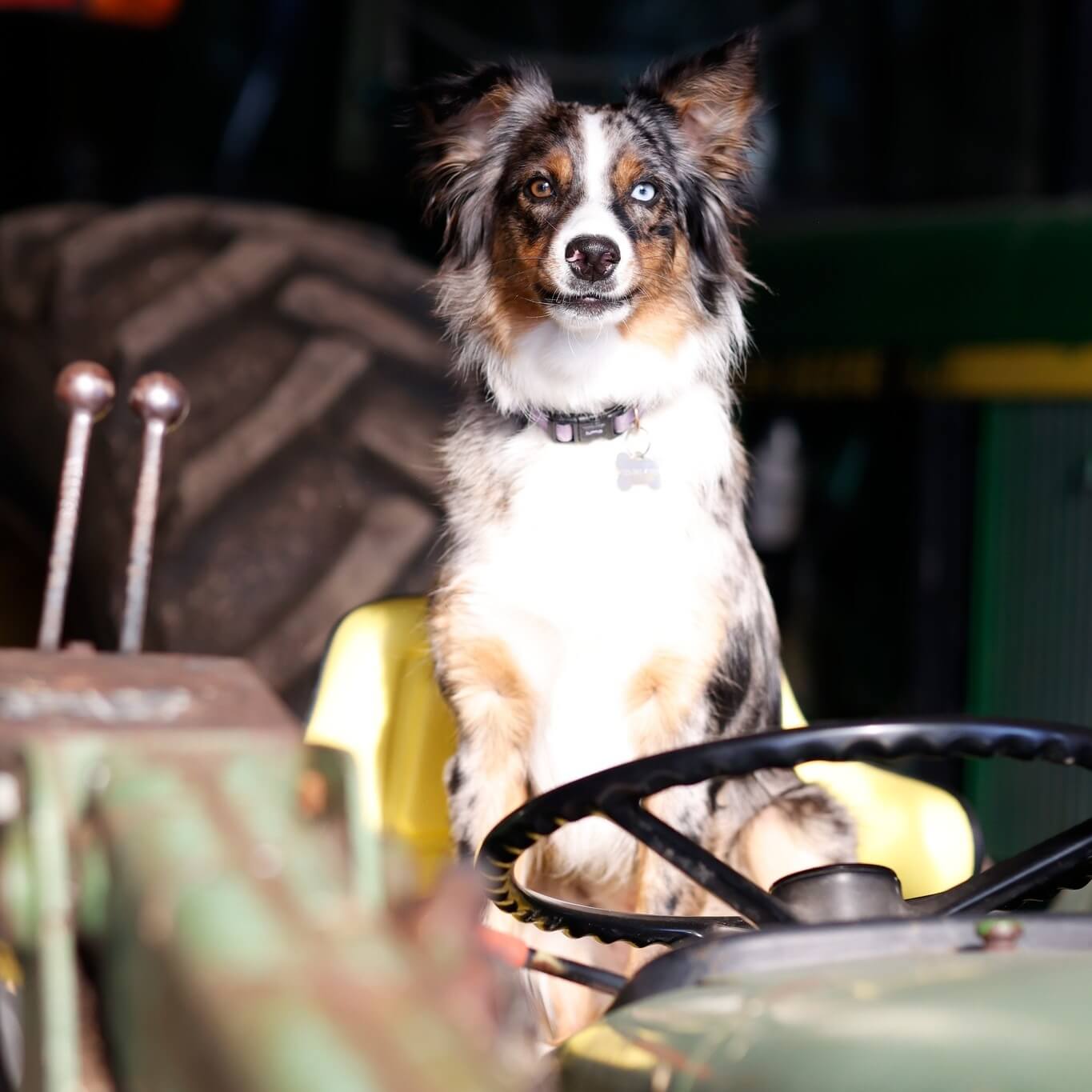
My name is Darla. I am a one-year-old working farm dog on a grain and veal farm.
Dogs play a significant role on farms. When I'm not protecting the barn and watching for predators, I can spring into action to act as a herder to keep the livestock together and safe. I'm quick to alert my farmers if any cows and calves find their way out of their pens.
My days are spent roaming the farm, going for truck rides, and hopping on the side-by-side farm vehicle to check on the growing crops.
When I'm not on the job, I enjoy a game of tug of war and will never say no to a treat. Working on the farm and keeping up with the daily activities can be exhausting, so you'll often find me napping several times a day.
Darla, farm dog
-Blue Merle Australian Shepherd and Border Collie cross.
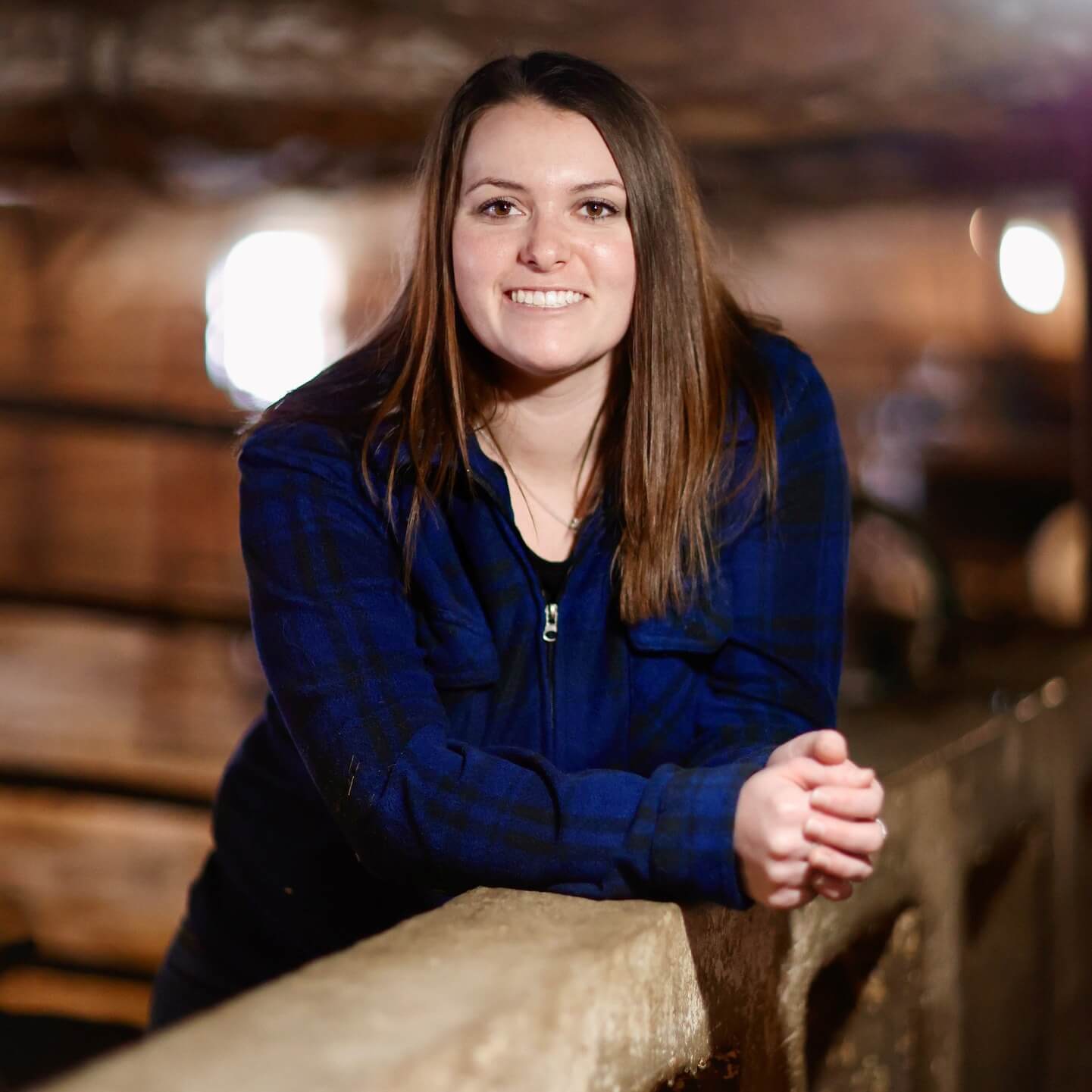
I was raised on a beef and grain farm. My father sold the beef herd in 2009, and the barn sat empty for several years. In 2016, Dad decided to bring livestock back on the farm, and we started veal farming. I was about to go to college when the barn filled with cattle again. Life was so much better with cows around! I loved working with the cattle and was thrilled that the barn was full again. I returned from school every weekend to work on the farm.
I have four sisters, and we have all studied agriculture. Today, we all remain focused on supporting farmers, and all choose career paths in agriculture. After receiving my diploma in agriculture, I started a career as a production technician, assisting with canola crop research trials. This research helps farmers grow the best crops on the most suitable type of land that will produce the highest yields.
I am still actively involved on my home farm; I assist with chores in the barn and help with fieldwork. I have a commercial motor vehicle driver's license and am comfortable driving large machinery and tractors.
Becoming involved in my community has been a real passion for me. I have represented Seaforth Fair as their junior and senior fair ambassador. I also earned the title of Huron County's Queen of the Furrow and then competed in the Ontario Queen of the Furrow competition and won the provincial title. The competition tests participants' agriculture knowledge, public speaking skills, and plowing abilities. This year-long role is an opportunity to travel the province to promote the 2023 International Plowing Match and Rural Expo and highlight issues important to me.
Farming is about jumping in with two feet and showing up every day. It is about being efficient and building a wide range of skills to help you succeed. Any day that I spend time in the barn with the cows is a great day! I hope to be a role model and mentor for women in agriculture.
- Maranda, veal and grain farmer
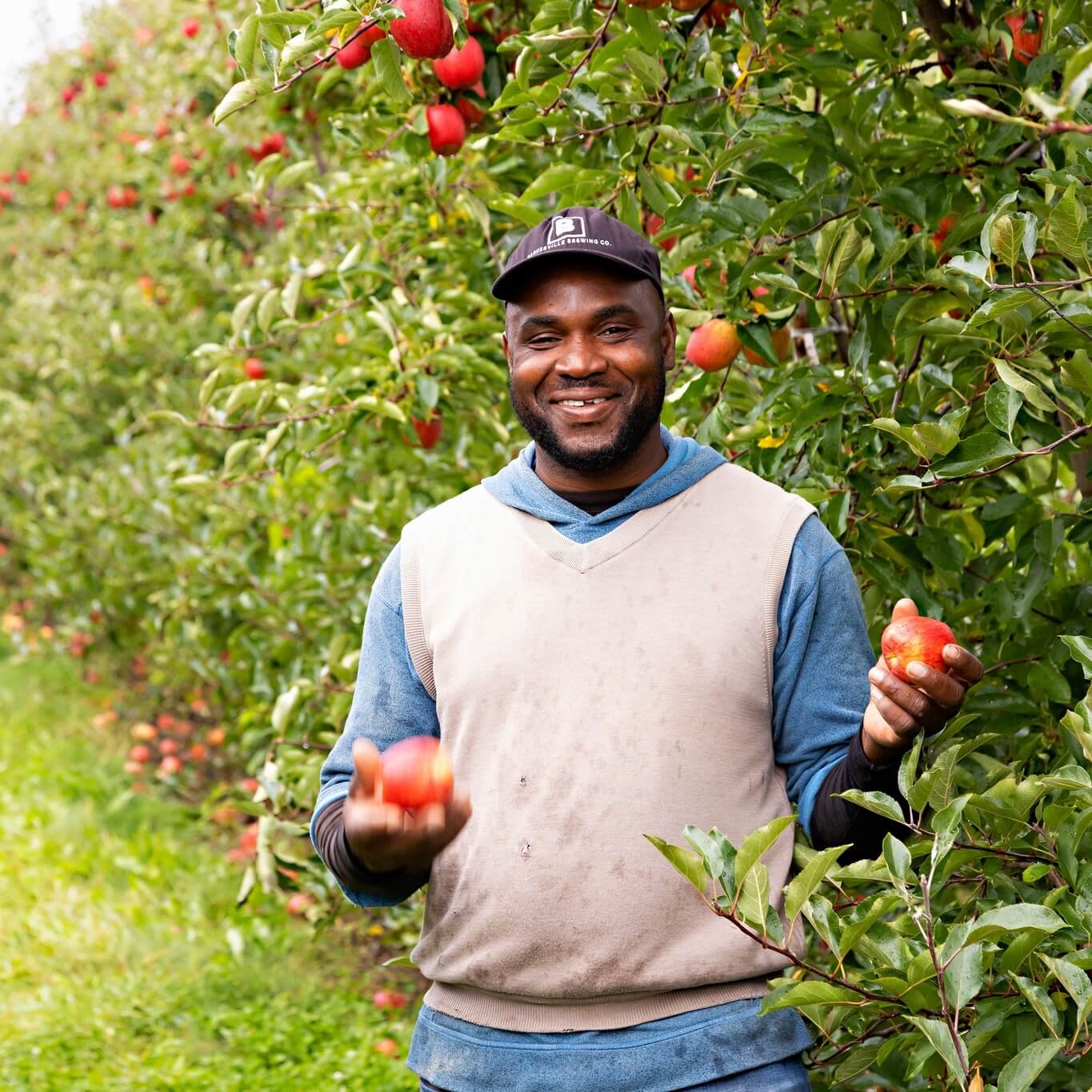
I’m from Central Clarington in Jamaica. I’m 41 years old and have been coming to this farm about seven years. The truth of the matter is that our economy is not as good as yours. So when we come here and go back, it allows us to earn a better living to help ourselves and our family back home. Even though it’s very difficult leaving our family for like seven months.
The first year was the most difficult one. It was the shortest but it felt like the longest. You’re not used to leaving your family for that long. It felt very long. After coming a few years you get used to it so now the time seems to go by quickly.
Since I was small, I saw people coming and going to Canada. It wasn’t one of my dreams to come here to work but now that I do, it’s a lot better back home. I’m a mason by profession so I build houses back home.
At home, I have my three kids. The boy is Paul – just like me. He turned 17 in April. The girl is Kyla and she turned 15 in November. The little one is Zanaya. She turned five on September 21. My wife is Cabefa. I can’t wait to be home with her. I’m not sure which flight I’m on but it’s about three weeks until I’m back home. I talk to my kids every night but I talk to my wife morning and evening – before I go to work and when I come home.
What do I like about Canada? The people are pleasant. That’s very nice. The country is very clean. It’s a nice place aside from the changes in the weather. I don’t like the climate changing on me all the time! It’s a nice place to be.
-Paul, Seasonal worker from Jamaica
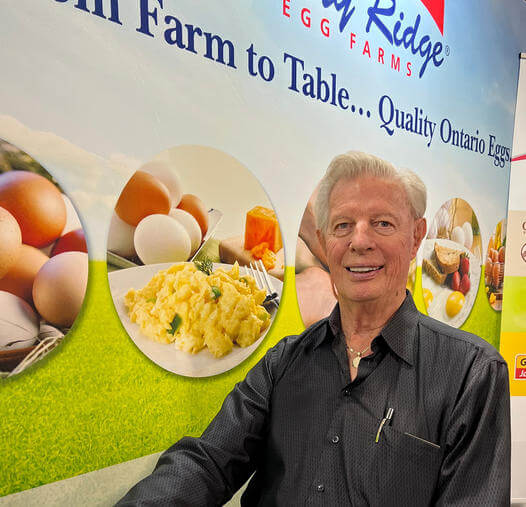
My grandfather was a commercial fisherman on Lake Erie but, when he didn’t see a future in that industry, forced my father, Lyle, to look elsewhere for a career. Dad started grading eggs in his basement, and then expanded by going up and down the road picking up eggs for other farmers. He married my mom, Ina, in 1934 – the same year that L.H. Gray & Son Ltd (Gray Ridge Egg Farms) was founded. Mom had grown up a mile down the road. My dad was a visionary and a sound business man who, as the company grew, never lost the sense of it all. I always remember my mother, who ran the office, telling me, “Look after the nickels and dimes and the dollars will take care of themselves.”
Contributing to our local community and beyond has also been a big priority of ours. As an example, during WWII, a lot of our eggs were sent by train to Halifax and St. Johns, loaded in wooden crates and shipped overseas to feed our troops. It’s amazing to think of shipping fresh eggs, that far, during war times.
There was never any doubt that I was going to join the family business. This career has been a labour of love and it still is. It was an atmosphere that I’d grown up in. I was likely about 10 when I started grading eggs by hand. But dad, in his wisdom, made me work hard. When I graduated high school, he put me on a truck delivering eggs, feed and even live birds. I did virtually every job and in doing so, learned the business from the bottom up. If he’d started me in an office, it never would have worked. In those early days, many people stored their eggs in their basements where it was cool. I’m tall and so getting into those short farm basements could be a challenge!
My dad retired in 1968 and I took over majority ownership of the company. We’ve had steady growth since and now employ 1200 people across Ontario, Alberta and British Columbia. We’ve had three employees that reached the 50 year mark with our company and that makes me proud. We work hard to create environments where people are happy to work. We’ve also had some incredibly loyal customers that have been with us for more than 70 years, selling our eggs in stores across Canada.
I’m also proud that we’ve kept up with the latest equipment and technology – from equipment that improves animal welfare in our barns right through to our grading and processing facilities. I know dad would have really approved.
What’s my favourite way to eat an egg? In a Western omelette – with onions, mushrooms and ham. My wife, Lynne makes them every Sunday and they’re wonderful.
-Bill Gray, CEO, L.H. Gray & Son Limited
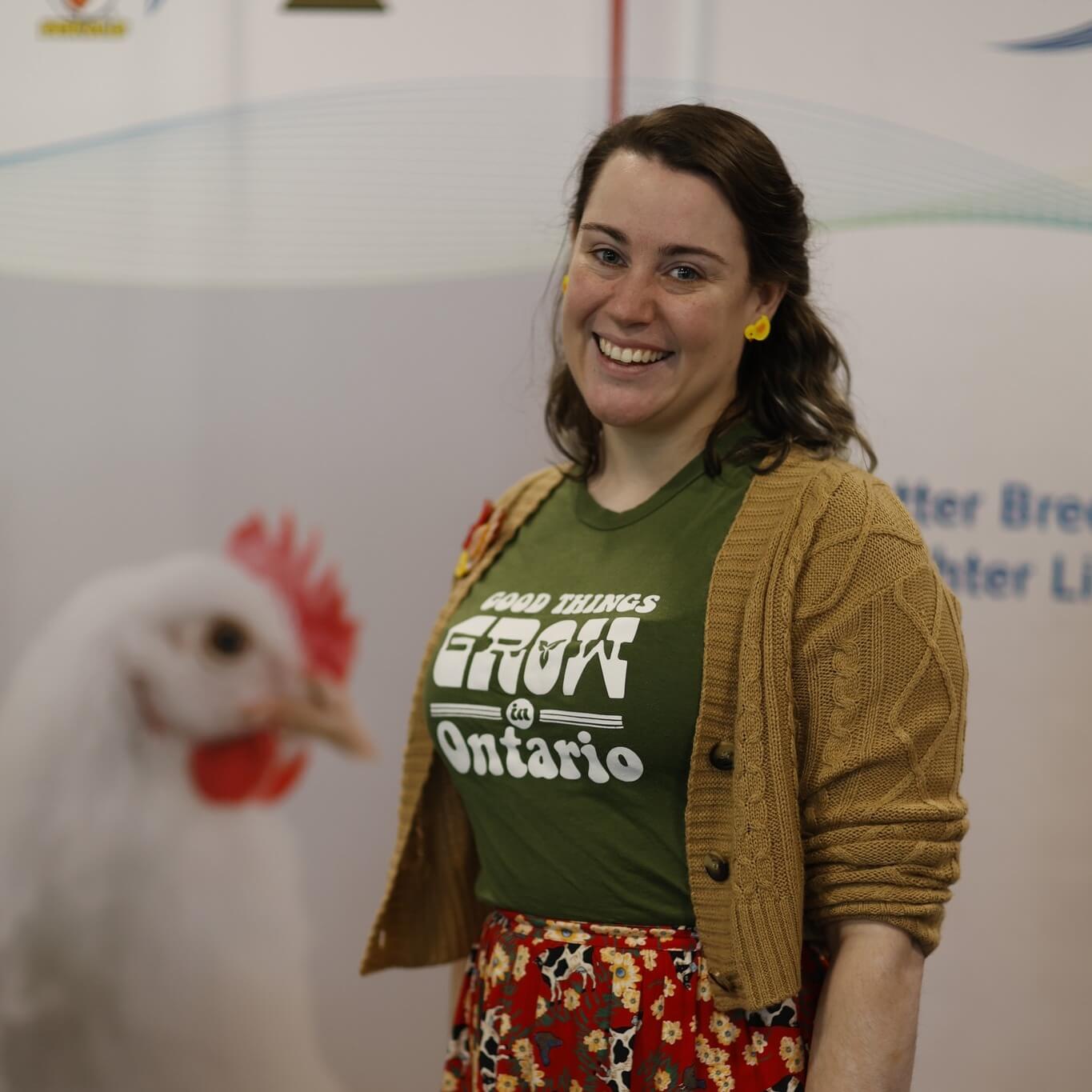
I am a third-generation farmer. When I was four, I decided that I was going to be a chicken farmer and an artist. Many people commented about starving artists, so I knew if I was a chicken farmer, I’d always be able to eat! When deciding what my future would look like, I gave the idea of farming a lot of thought but also wanted to try a lot of other things.
I attended school for artifact conservation and worked in the field for a while. The time came for me to decide if I wanted to keep traveling for work, and I needed to determine where I would live. My boyfriend and I were talking about marriage, and the idea of farming was something we both embraced. He has fallen in love with farming and taken a full-time role in the farm business. Coming from a non-farming background and growing up in town, this was a giant leap for him.
My husband enjoys the technical and business side of our farm, so I have the opportunity to do what I love most: focusing on the chickens’ care.
Whenever I tell someone I’m a farmer, people tell me I don’t look like one. I always answer, "What does that mean? What am I supposed to look like?" This always starts a great conversation about the number of young people and women farming and working in agriculture. I am proud to carry on the farm my grandfather started.
I like to make things when I’m not working. I love crafts of any kind. Creating things is my biggest passion.
My favourite way to eat chicken is in a chicken burger or as shredded BBQ chicken.
-Lara, chicken farmer
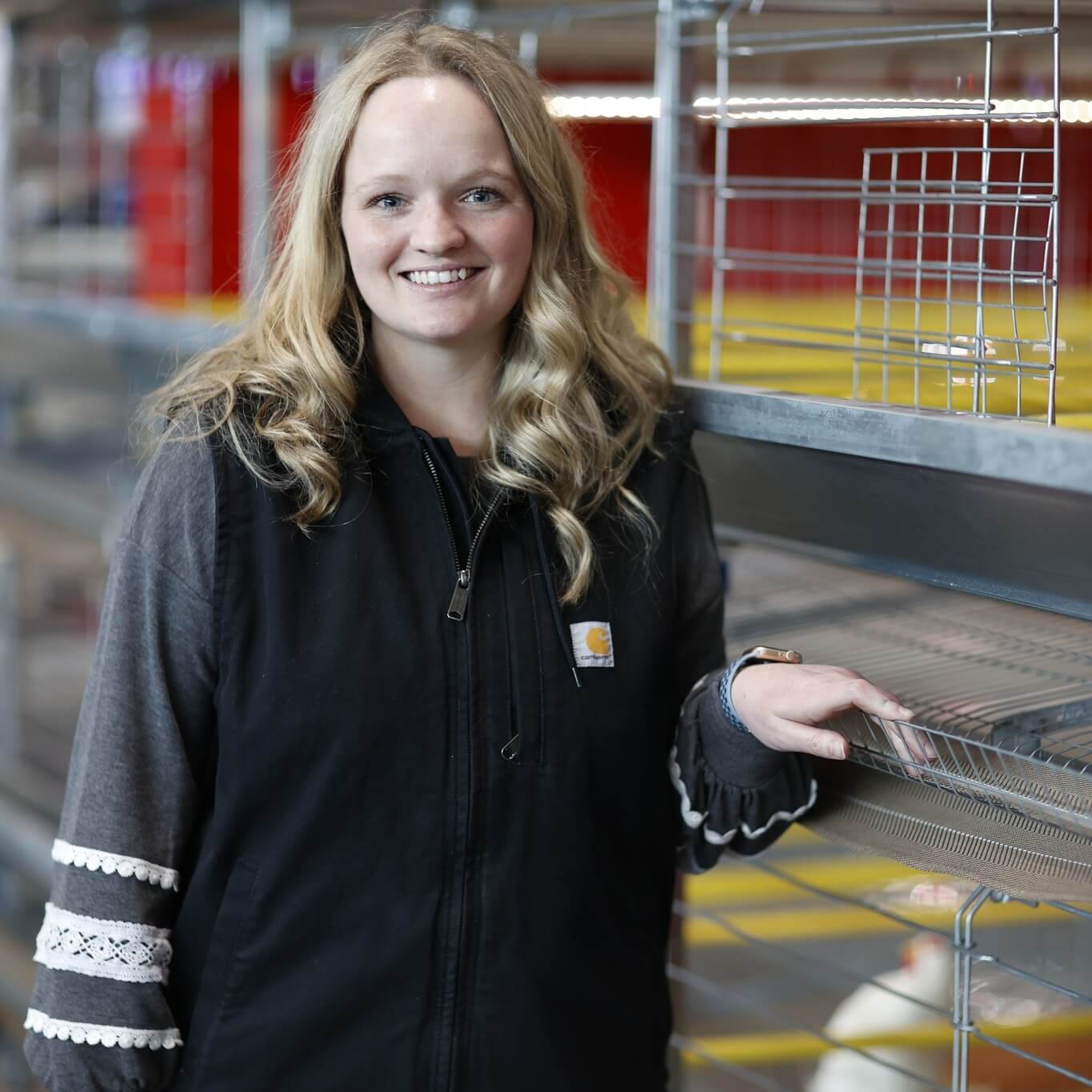
I am a third-generation egg farmer.
I attended college to study recreation and leisure and was recruited to play varsity volleyball there. In my second year of schooling, I realized that the program wasn't for me. Still, I remained committed to finishing it and continued playing volleyball. It took being away from the farm for me to realize what was in my backyard and the opportunity that existed there. I switched gears after graduation and attended college, receiving an agriculture diploma. When I returned home to the farm, we built a new barn for laying hens with enriched colony housing. This is a type of housing that is becoming popular and gives the birds additional room to move around, stretch, spread their wings and express natural behaviours.
I farm with my parents and my younger brother. The best part of this life is knowing you are part of getting food from the farm to the table. It is really important that people know where their food comes from. That is why my family and I enjoy being egg ambassadors at local fairs, events, and the CNE and Royal Agricultural Winter Fair. I love meeting people and sharing our stories and the facts about where eggs come from. I want to continue egg farming and hope to take over the family farm in partnership with my brother.
I am a creative person and enjoy crafting. I like scrapbooking and card-making. Sports are also a big part of my life. I play baseball and also have spent time as an umpire over the years. My love for volleyball hasn't changed, and I now play in a recreation league. I am also an avid golfer.
-Charlotte, egg farmer
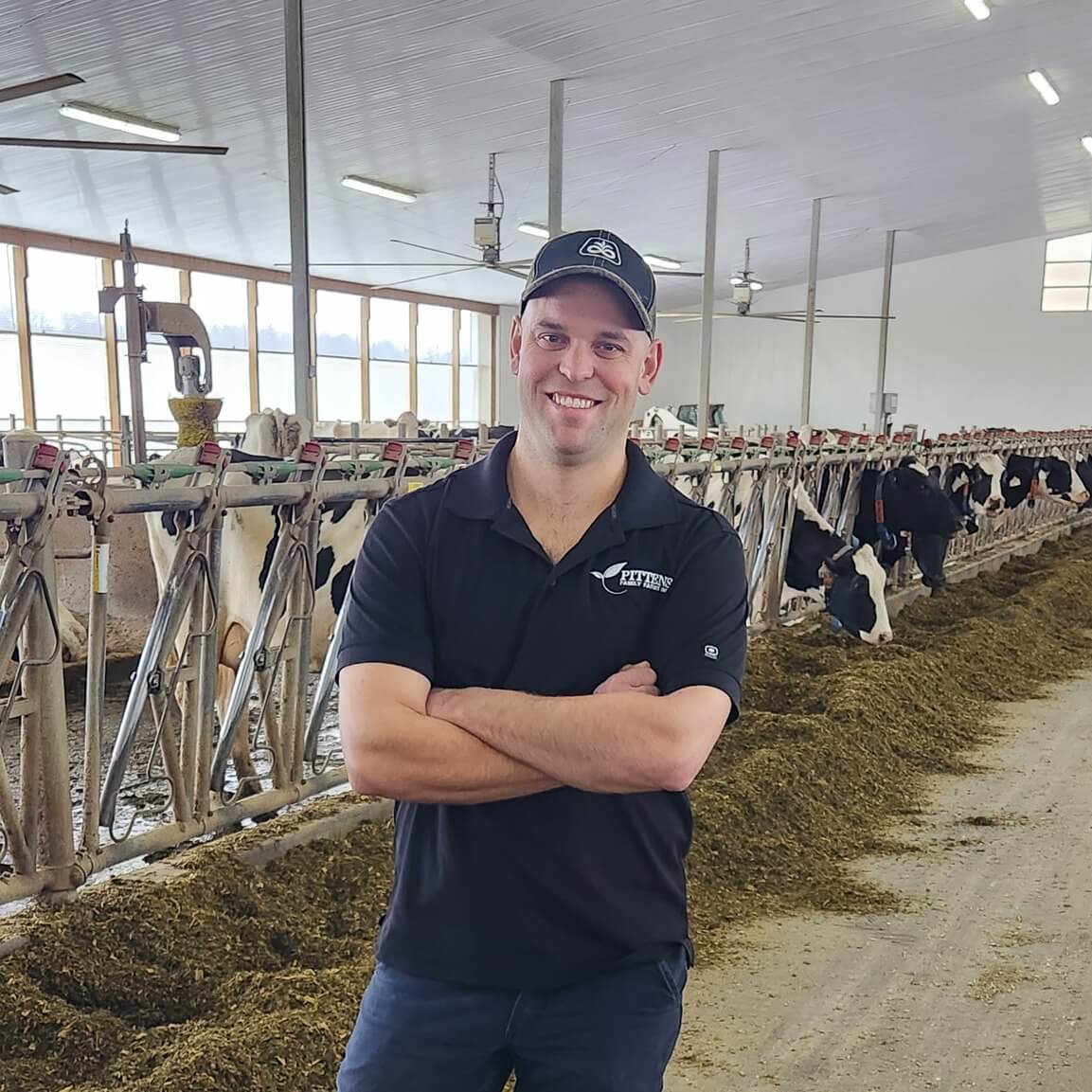
I went to college for engineering right out of high school. I had always worked on my grandparents' dairy farm in the summer and on weekends. I enjoyed farming, but I never planned on doing it full-time. I finished college and realized the more time I spent on the farm, the more I liked it. After I finished school, I took on more responsibility as my passion for farming grew. I’ve been farming for 11 years and manage the farm with my brother. We milk 120 cows in a new barn that I was able to help design and build.
My favourite perk of the job would be working at home. My wife, Jessica, and I have two young children who love the farm. Working on the farm gives me more moments with them, which include providing tractor rides or simply being able to go into the house and enjoy lunch with them.
Cycling and running are ways for me to clear my mind. I enjoy competing in triathlons when I have enough time to train.
My favourite way to enjoy dairy is by putting cheese on everything!
-Bill, dairy farmer
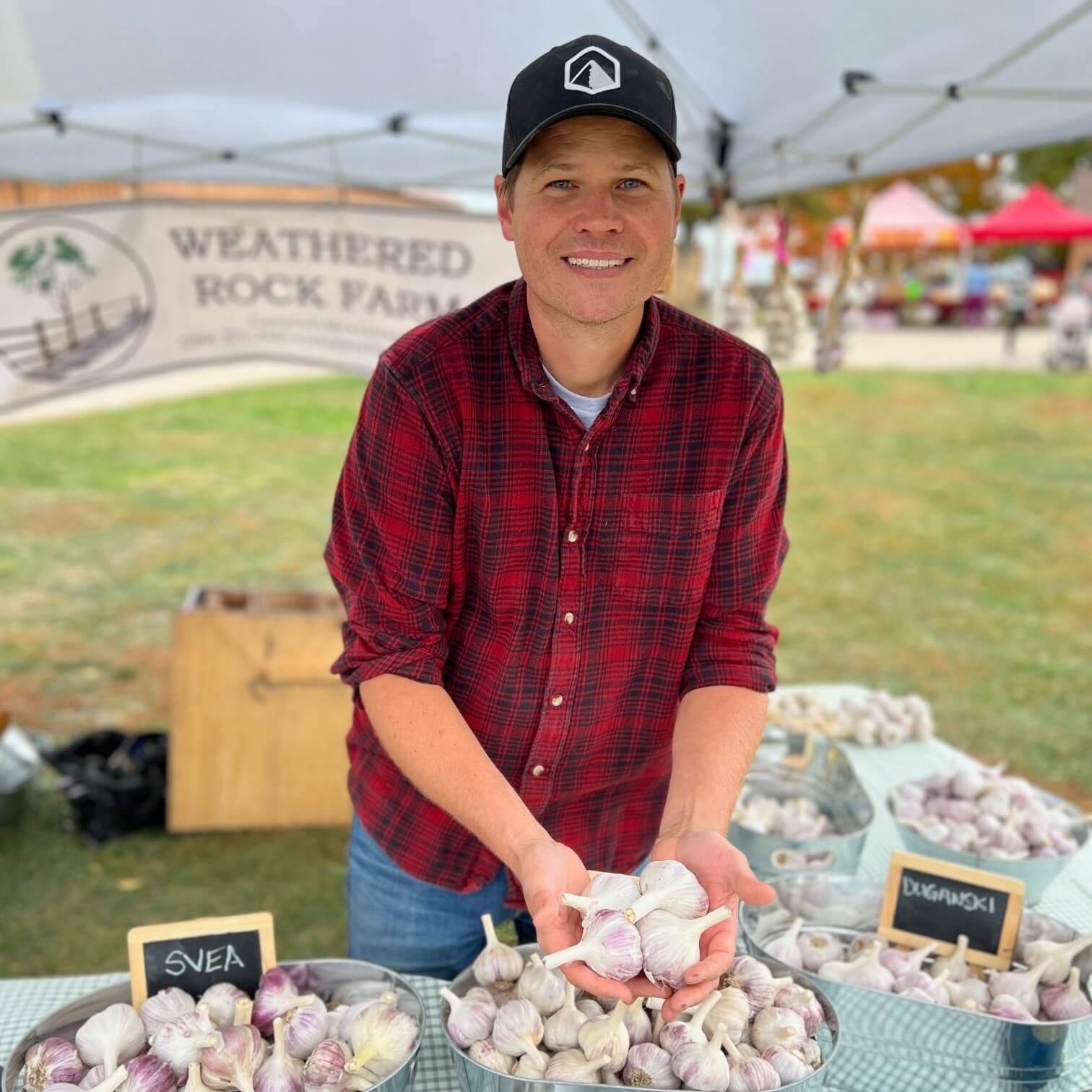
I grew up on a pig and grain farm. I always say that I worked hard to get the heck off the farm. Then, I found myself in the process of always wanting to integrate agriculture into my education and felt the pull to get back into agriculture.
My wife and I purchased this farm in 2016 and slowly built the business up while working off-farm. We built a customer base over that time and saw increased business potential. The upcoming growing season will be the first season I focus solely on the farm’s production.
We grow garlic that we market at the province’s garlic festivals, farmer’s markets, and through our web store. Customers are often shocked that there are so many varieties of garlic. I usually respond to this by comparing garlic to apples. Garlic is just like apples; there is a variety that is great for pickling, a type for slow cooking, and some that are great for eating raw or in salad dressings. We all know many different varieties of apples are used for various purposes. I encourage people to get to know some available types and think about how they use garlic and match varieties to their uses.
I will eat garlic any way I can get it. Still, my favourite way to eat it is using a Mediterranean condiment called toum sauce. Toum is a fresh garlic sauce made of garlic, oil, lemon juice, and salt, and water.
-Mark, garlic farmer
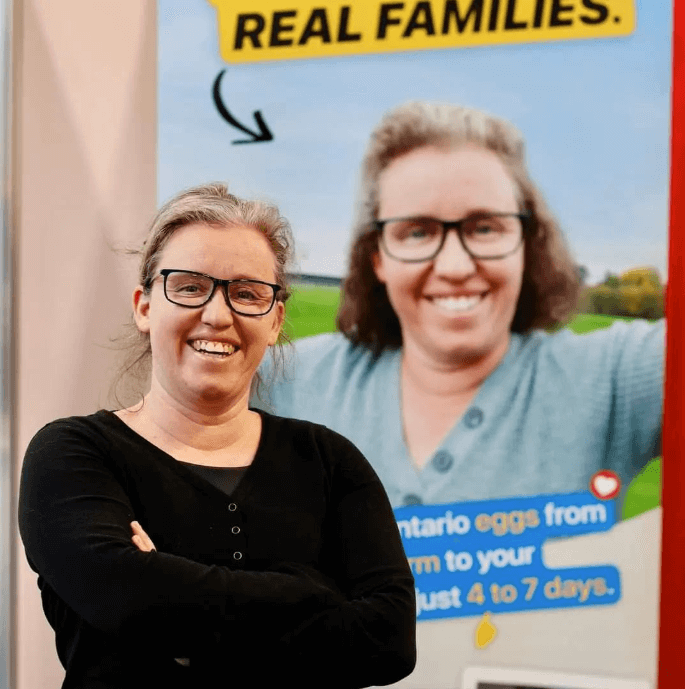
I wasn’t always sure that I wanted to be an egg farmer like my parents were. I went to university to study leisure and tourism and worked in event planning, then went back to study agriculture and worked as a crop specialist - egg farming wasn't really on my radar. As my parents were planning their retirement, they asked me if I would like to participate in the farm, and I jumped right in. My parents were very supportive of my new ideas and we have since built new barns. We raise hens organically in an aviary barn which means that the birds are free to roam around. My partner and I also run a pick-your-own apple orchard. She focuses on that while I work with my dad on the egg farm.
I’m one of the egg farmer faces on the new Real Farmers. Real Eggs campaign in Ontario and that’s kind of fun. I’ve had friends send photos from Toronto or of a bus or truck with my face on it commenting, “Hey, I know that girl”. I like the campaign. It was an honour for my family to be asked to be part of it. We really care about our hens and are proud to show it.
When we’re not farming, we like to camp, travel, the outdoors and visit farm shows. We live close to a river and enjoy time on a boat on the water too.
-Mireille, Ontario egg farmer
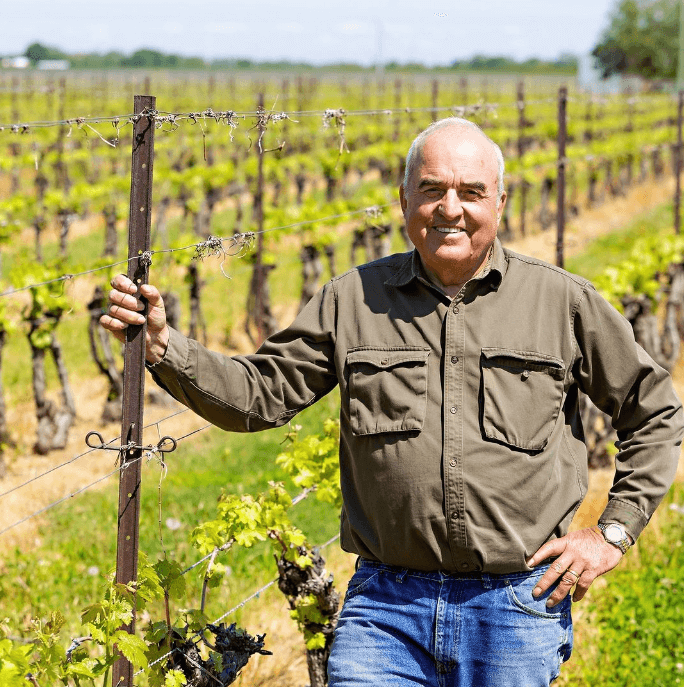
I immigrated to Canada from Germany with my parents and my younger sister in 1978 and we have been growing grapes here since 1979. In Germany, we grew grapes, raised livestock, grew corn and cereal grains. We left Germany because it was getting more industrialized and it was getting more and more difficult to expand our farm and grow our farm. So we decided to come to Canada.
After farming together for about 10 years, my parents decided to retire and in their retirement, they spent half the year in Germany and half the year here.
We grow wine grapes only – from the very beginning. We’re standing here among Gewurtztrimer grapes from the famous Alsace Region of France. Being German, we also have Riesling. We grow Chardonnay, Gamay, Cabernet Franc, Cabernet Sauvignon, Merlot, Pinot Noir, Vidal and a lot of Pinot Gris.
Do I have a favourite? Well – I’ll drink some Chardonnay for a while and will think ‘oh my gosh this is awesome’ and then maybe I’ll switch to another white like Pinot Gris and will think it’s a favourite. I can’t say that I have one favourite!
I got married in 1987 – 35 years ago. We have two daughters. One lives in Los Angeles and the second one lives in Toronto and is involved in wine marketing for a local winery.
-Albrecht, grape grower
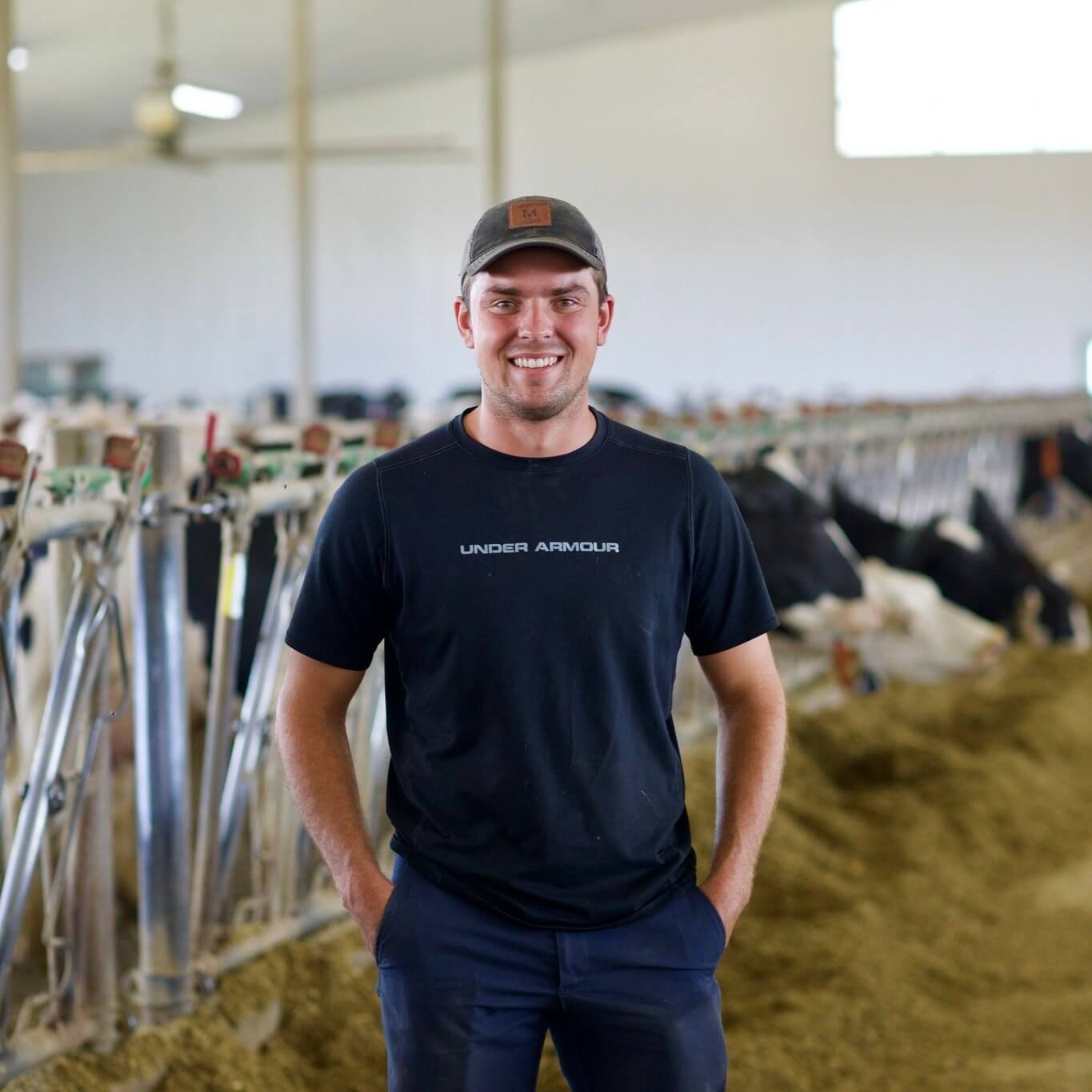
I always loved being on the farm, but I wasn't born on the dairy farm I'm part of today. My grandparents ran the farm, and my parents had their own veal farm and raised chickens.
Every summer, I spent my time helping my Opa on his dairy farm. I always loved the cows. Nothing in life ever caught my eye as the farm did. I love the equipment and the variety in everyday being different. One day I may be in the field all day, and the next, I'll be working in the barn for the entire day. It is the cows that I enjoy most. I get to work with these cows from birth and see what they become. This is pretty special.
Today, my brother and I manage everyday operations on the family dairy farm. We have 250 cows on the farm and are currently milking 100 cows. Our milking is done using two robots. My goal is to continue farming but to keep growing. In addition to dairy farming, we are now planting and harvesting crops for other local farms. This growth keeps us busy and allows us to hire extra help to give us all flexibility in our hours.
A perfect day off the farm would be going up to the cottage to relax and maybe even playing a round of golf. It is good to get away from the barn and relax, and then you look forward to returning. My Oma constantly reminds us not to work harder than we need to and that life needs to be enjoyed. She definitely did not do that. She loved her life and raised wonderful children and grandchildren. Still, they could not get away and travel or escape for holidays. They were in the barn every day, 365 days a year. They were the ones to manage things while all the farm help took holidays, but they never took holidays for themselves. She pushes us to enjoy life while we are young because it is too short, and we don't have our health forever.
-Mark, dairy farmer
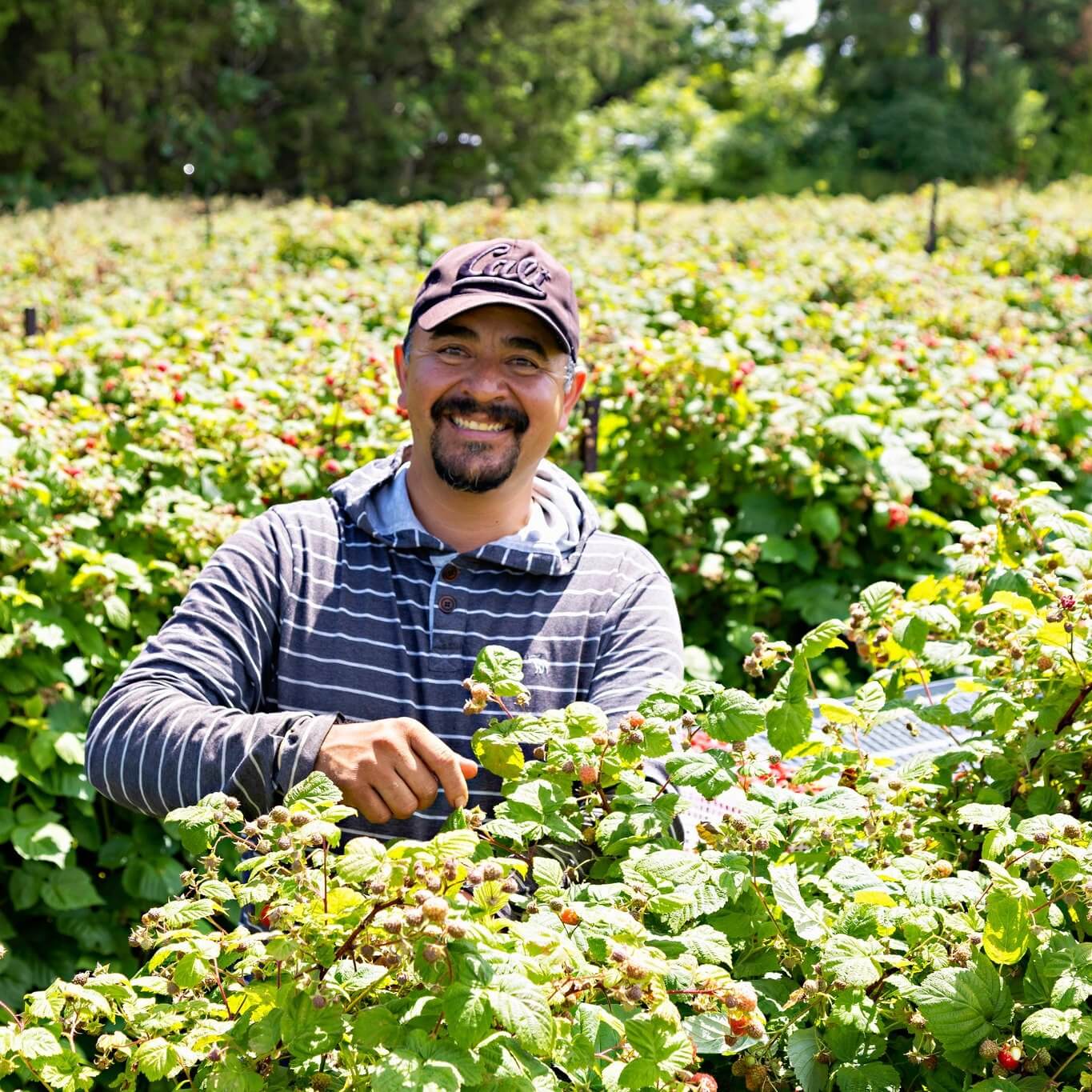
I have been here for six years. Here we harvest asparagus, strawberries, raspberries, blueberries, green onions, peas and other things.
When I am not here, I have work in Mexico. Everyone can have a job, but you do not earn enough money to be well there. So that is why we have to immigrate to this country.
I live in a village in the state of Michoacán. I have two children.
To communicate with my family, I call them every day at night. When I am done working, I leave and go to do my things. I cook, I take a shower, I get ready for the next day and I talk a little with the family. Then I go to sleep to go to work again the next day.
My goal for the future is to get my children ahead. Continuing to support them with their studies as long as I can and as far as they want to continue studying. I also want to have a better way of living in Mexico, for example, start a business. Something that generates money to support my family and allows me to stay with them because coming and leaving the family is very difficult for us.
- Luis, Seasonal Worker from Mexico
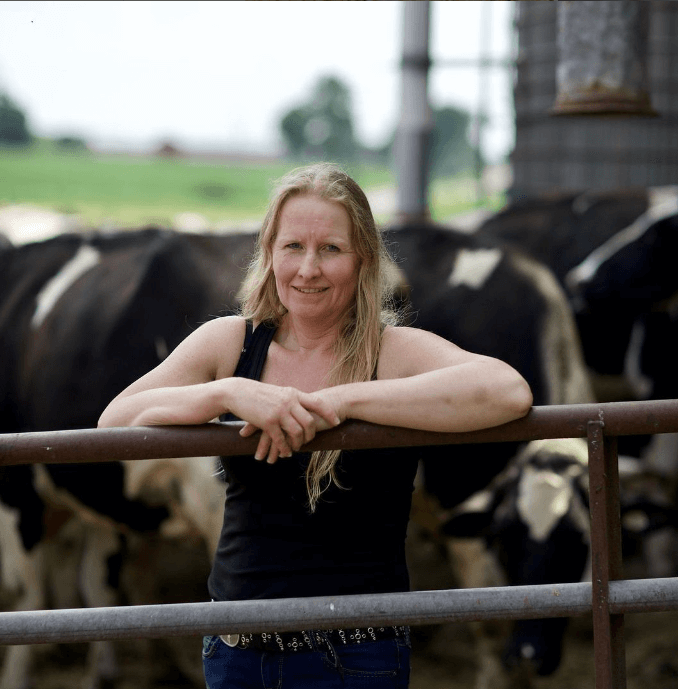
I told my dad in seventh grade that I was taking over the family farm. However, it was the generational norm for the son(s) to take over the farm. I was encouraged to attend post-secondary education in hopes that I would find a new life goal, so I commuted to the University of Guelph to attain an agricultural business degree and spent two summers working off-farm while continuing to help on the family farm. These experiences only confirmed that I wanted to take over the family dairy farm. Even though that was difficult for my dad, I always felt accepted by my peers as a woman in agriculture.
Being a dairy farmer is my passion, and every life decision was made with that passion in mind. For example, my criteria for who I would date was someone that would allow me to live my dream. I needed someone who understood the farming lifestyle.
The farm is a great place to raise a family. Our four children have been very active in contributing to our success and are passionate about agriculture. We currently milk 62 cows and farm 170 acres. In addition to helping on the farm, my husband has a full-time off-farm job as a dairy nutritionist, so the day-to-day responsibilities and management of the farm fall on me. We are a partnership, and he does help, but he is also busy with his own responsibilities. It is a crazy schedule: early mornings, long hours, and milking cows is a 365-day-a-year job. It’s challenging to find a work-life balance. Still, I love the animals, the smell of dirt in the spring and fresh-cut hay in the summer, the lifestyle, and the people in the agricultural community. I hope the farm legacy will carry on and that we have built something for the next generation.
-Janet, Dairy Farmer
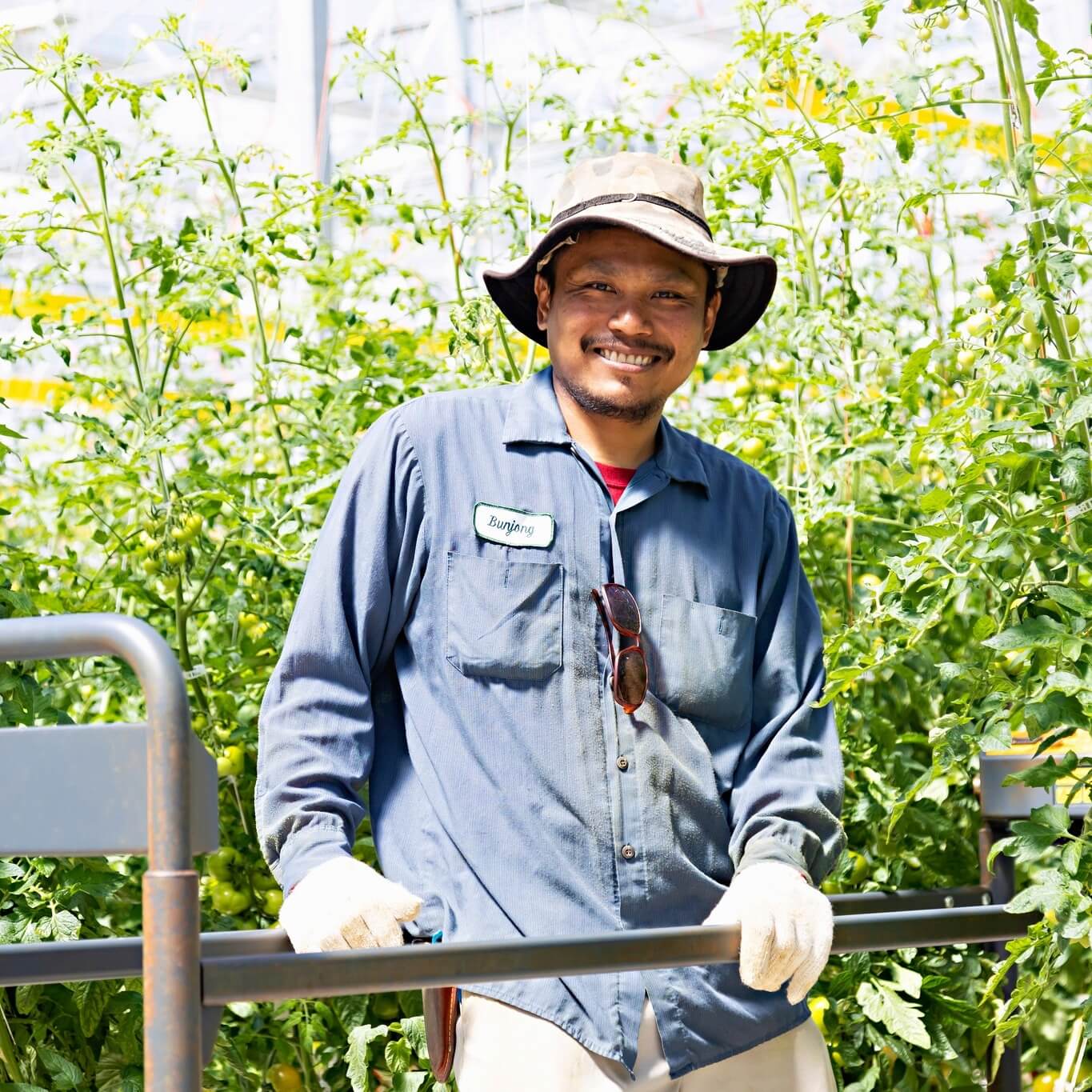
I’ve been here for two and a half years. My jobs are lowering and deleafing.
Working in Canada is a good opportunity for me to make money to support my family back home. My plan is to buy land in Thailand, build a house and a cattle farm and support my family monthly.
I really have fun working with foreign friends from Jamaica and Canada and people from Thailand. I learn about the Canadian culture and the difference in culture between Canadian and Asian countries. In Thailand, we don’t have a snow and have different weather.
I worked as a farmer and general employee back home.
My plan is to make money to build my own business back home. A cattle farm, open a local store and stay with my family.
-Bunjong, Seasonal Agricultural Worker in an Ontario tomato greenhouse
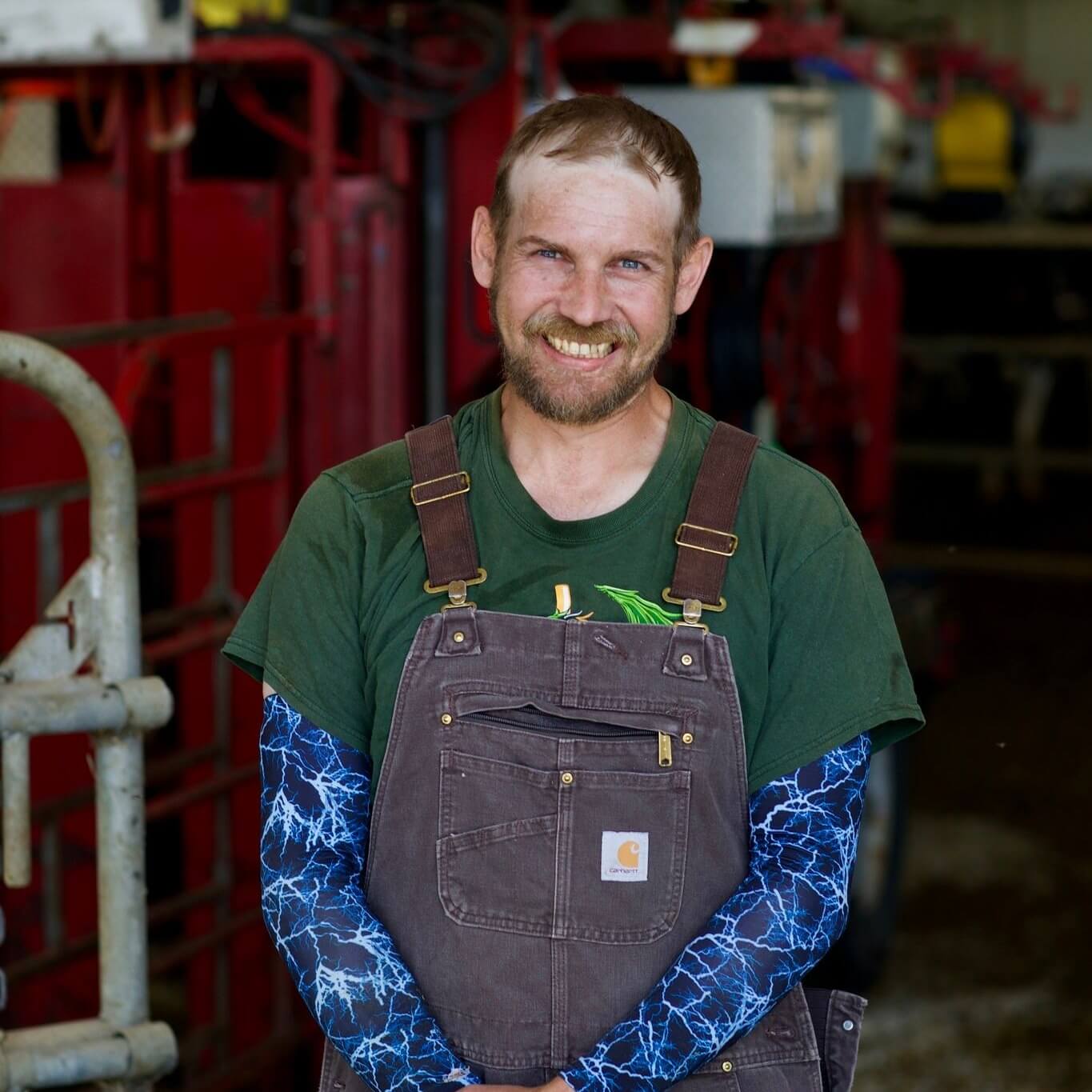
I am 40 years old, I started hoof trimming about 15 years ago with my Dad. I grew up in town, so when I first started, there were a few odd comments about “oh you can tell he’s a town kid”. I’ve learned a lot over the years. Because I was born in town, I did not have the perspective of a farmer. When I started working on farms, I started asking questions and learned and saw things that you kind of wonder about. Once you talk to a farmer and ask them questions and understand why they do it that way, things start to make much more sense.
I would join my Dad on farms working when we had PD days or needed something to do for a day when we were younger. From there, I went into carpentry and cabinet making, but after a couple of years of doing that, I decided my Dad could use the help as he added a new cattle chute to grow his business. I thought I could give it a try and see how it went.
It’s been 15 years since then and when he retires at the end of this year, I will be taking over the business. Working with 50-60 cows a day is probably our average, we’ve done up to 160 in a day with extra hands to help. It takes about two to three minutes per cow from the time she walks into the chute until the trimming is complete.
Foot care is actually very important since cows are on their feet a good part of their day, and it’s like us, if our feet are uncomfortable or sore or our toenails are too long, we are not going to be comfortable and we aren’t going to be as productive. It is the same thing for cows, you have to have their feet finely trimmed or well-trimmed and maintained so they are comfortable and they stay healthy.
-Joël Cousineau – Hoof Trimmer
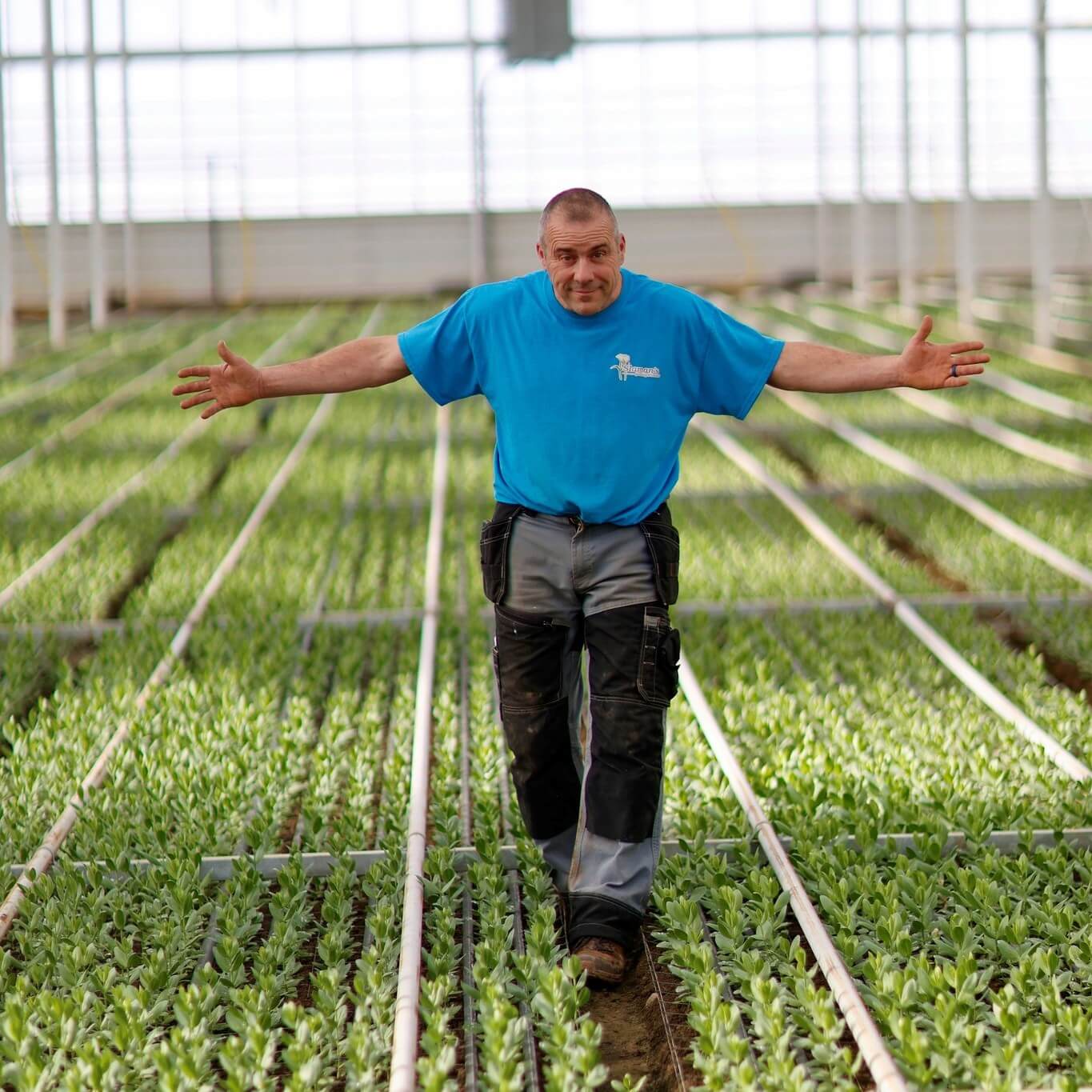
I was raised on a pig farm. After the farm sold, I worked in the playground industry, which led to a career in greenhouse installations which took me all over North America. I began working in a maintenance role at this greenhouse 15 years ago. Last year, I took a full-time position here where I support the owners in managing the staff and greenhouse businesses. I enjoy the people most in this job; I look at my role as the cheerleader. I want people to succeed and have fun at their work.
I love seeing the look on people's faces when they receive flowers. I have been married to my wife for 33 years - and she loves flowers. When the flowers on the table start to die, I always bring her new ones home. Last Halloween, I took seven buckets of flowers home and drove through our neighborhood to give them to the mothers who were trick-or-treating with their little kids. If I had ample money, I would probably buy a pick-up load weekly and give them away. I've learned a lot from my boss on this front. There is not one person who visits our greenhouses who doesn't walk away with flowers.
I love fishing and floating down a river or being on the lake in a boat; I enjoy the quiet and solitude. Every morning I take time for myself. I wake up early, listen to a meditation and do a morning gratitude activity. I do all of these things to get myself in the right mindset to go to work.
Family is very important to me; I have been married to my wife, Dawn, for 33 years, and we have two amazing children and a wonderful daughter in law. I also come from a very large family. There are over 90 of us, from my mother down. She passed away last summer, her legacy is her family, and we continue to gather and support one another. I plan to write a book in the future called "Stories from Oma's Kitchen."
-Bill, Operations Manager, Flower Greenhouse
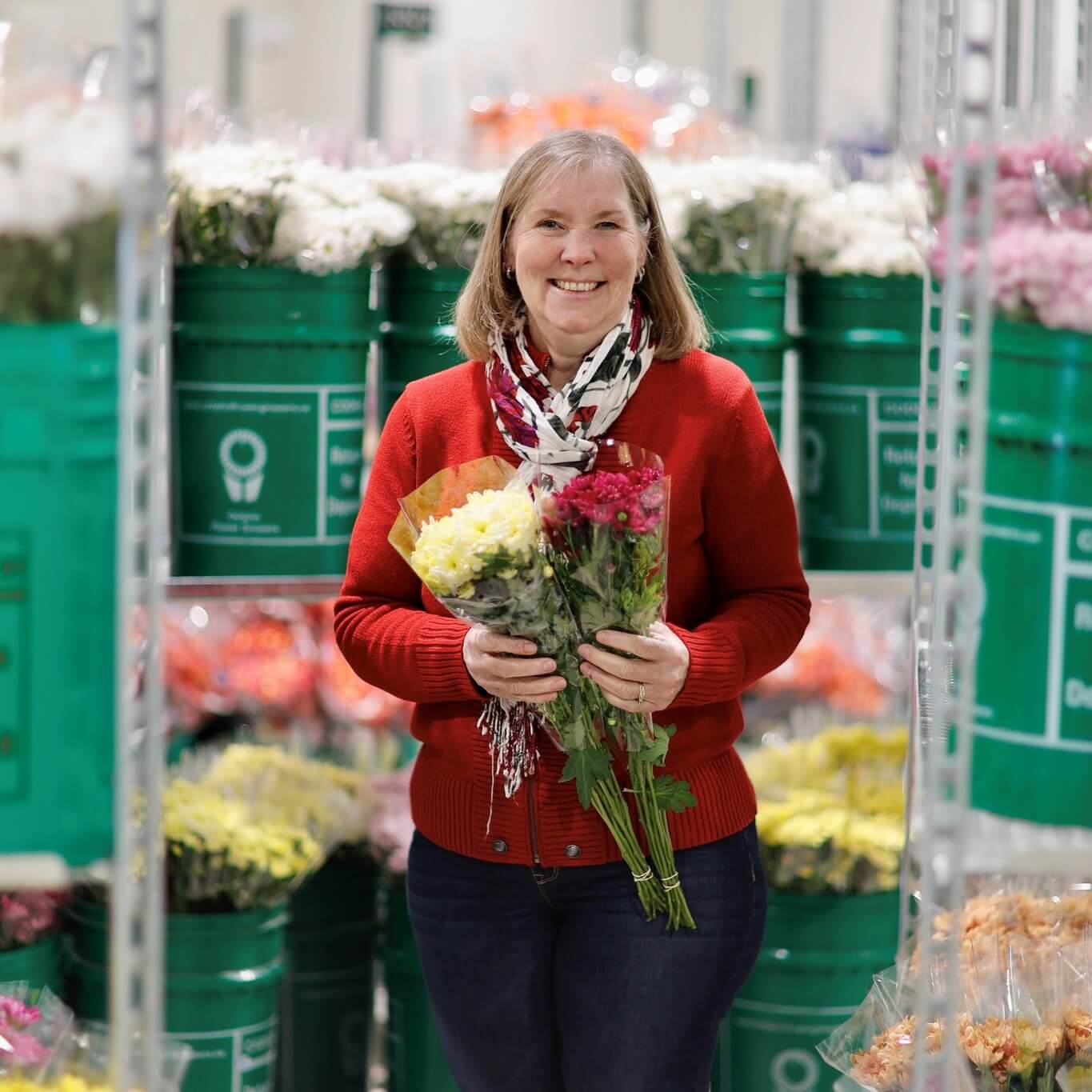
In our greenhouse, we grow Chrysanthemums (mums) and Lisianthus. We put a lot of care and love into the flowers, and the end result is very important to us.
When asked what part of the business I enjoy the most – it’s the end result; of course, it is the prettiest. I always have test flowers in the house. We bring the flowers home to see how long they will last in the home of customers to ensure quality, so I am lucky to always have flowers around the house.
I grew up in the city and only moved to a farm once I married my husband, Brian, 38 years ago and joined his family flower business. I have homeschooled our eight children; our youngest is 16. I have enjoyed the flexibility of being able to offer the kids extracurricular tours and outings to add to their learning in the classroom. I have always loved reading and hope that I have been able to pass along this enjoyment to my kids as well.
Even with homeschooling and managing our home, I have been able to support the flower business by doing deliveries and helping out where needed during key seasons. I have taken on a greater role in the last six months in the shipping department as the business grows, and two of our children join us as third-generation owners.
Whenever we are invited to visit the homes of our friends or family, and we ask what we can bring to contribute, the answer is always flowers! We never have to worry about bringing food when we have beautiful flowers to arrive with.
-Judi, Owner, Flower Greenhouse
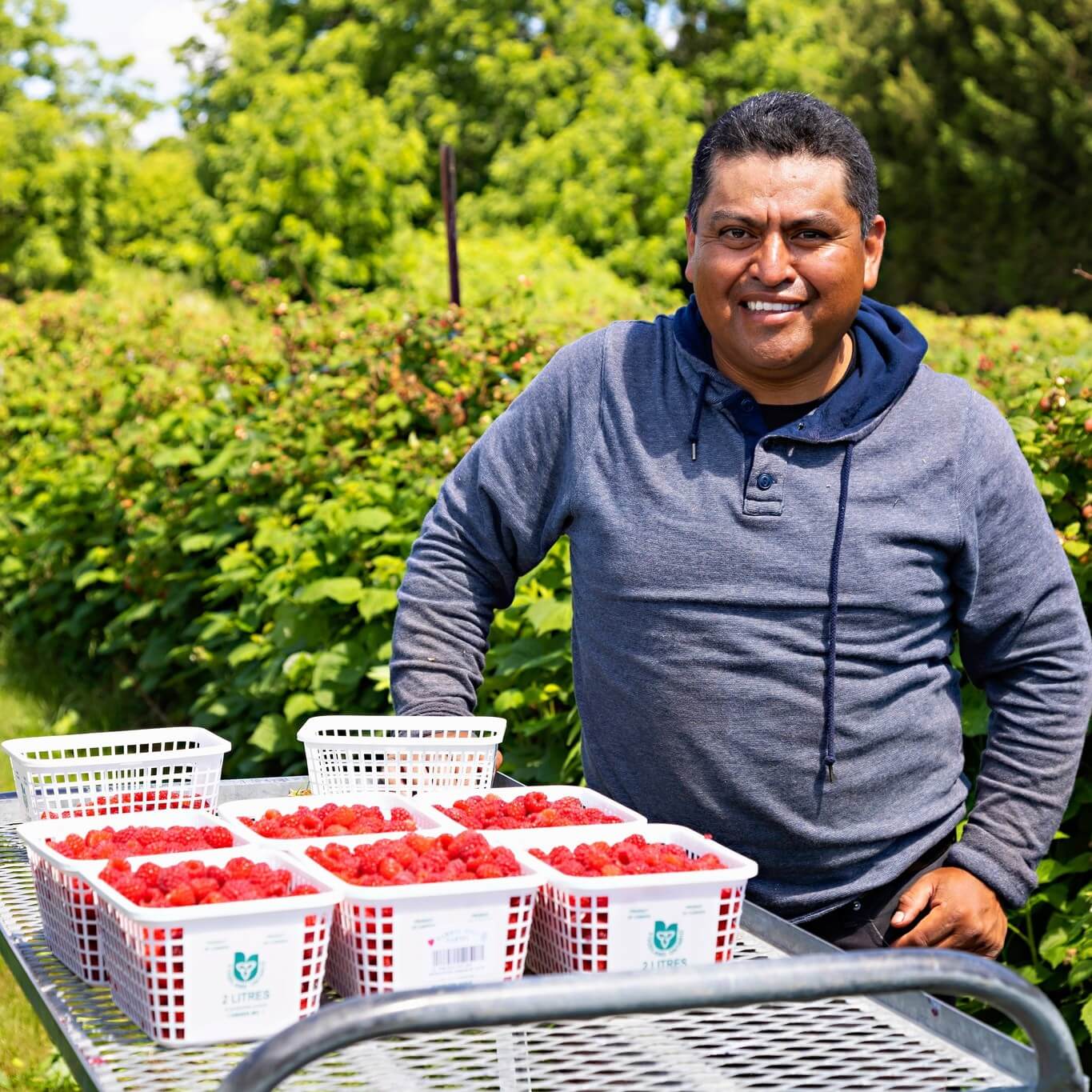
My job here is to harvest the raspberries and strawberries. It is my first year working here at this farm, but I have been in the agricultural workers program for 17 years. I have been in different regions of Canada including Manitoba, Alberta, Quebec and Ontario.
I decided to come to Canada through this program because it was a very good opportunity that our government, in Mexico City, gave to me to be able to improve my economy and bring my family forward. I can move forward to provide for my children and earn a little more. I make more money here in Canada under this program, so we can have a different life. A little more makes life easier in Mexico.
I have three children, two girls and a boy. In Mexico, I work in the fields harvesting corn, beans and strawberries. There is not work all the time, as they are seasonal jobs. This is why we have to seek work here in Canada because the work in Mexico is only for a short season.
I like the work, the places, there are very nice destinations to visit and most importantly there are very nice people. Our employers are very nice.
When we have spare time, we go to the shops to buy some clothes, prepare our favorite food at home, do some cleaning or have some fun with our coworkers. That is how we spend time during our day off.
-Nahum, Seasonal worker from Mexico
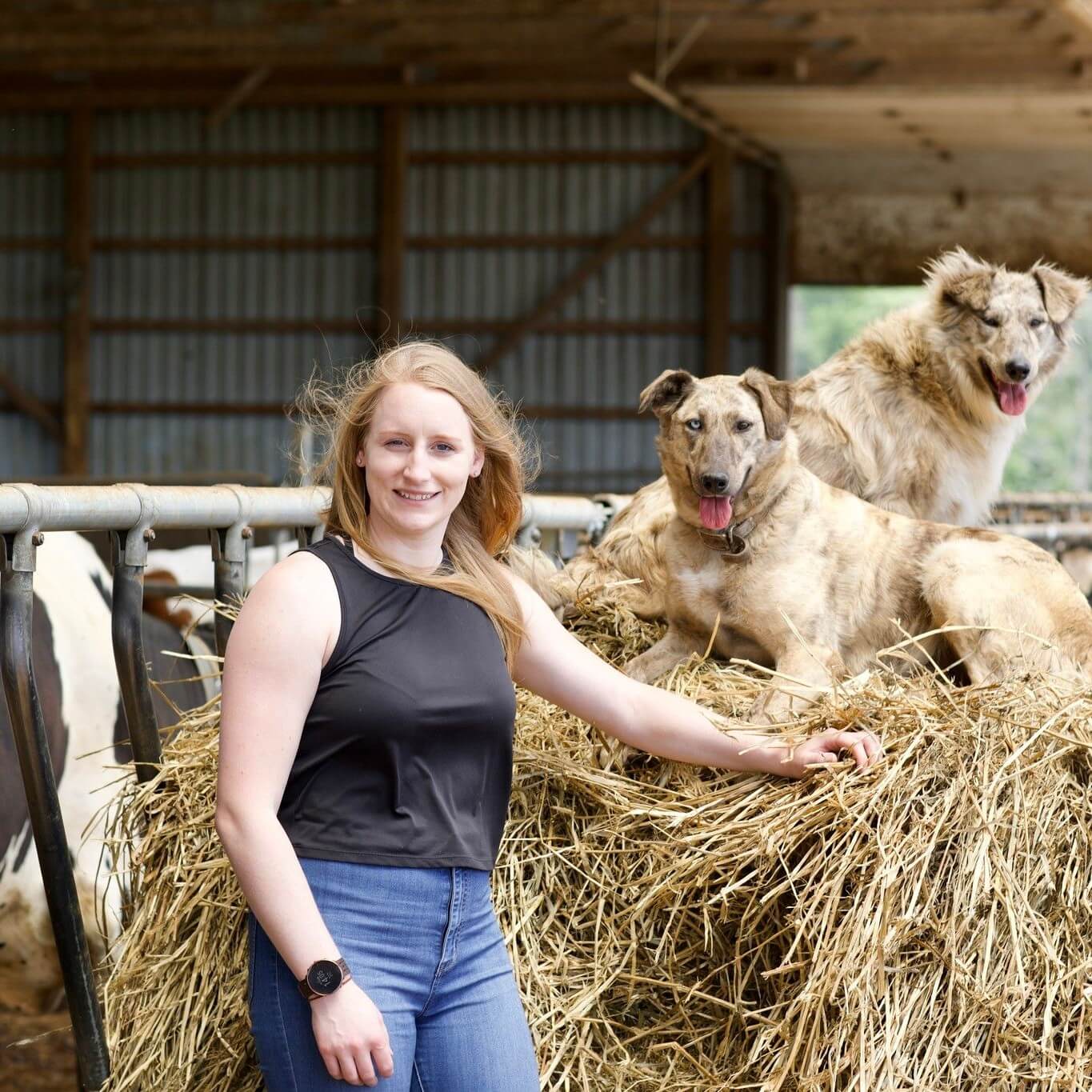
When I was in high school, I wanted to keep as many options open as possible for my future, so I applied for nursing, agriculture business and generic business. I was lucky to receive scholarships to attend the University of Guelph which swayed me in the agriculture business direction.
When I was showing dairy cattle at the Royal Agricultural Winter Fair growing up, I always saw representatives from the banks at the show and thought it looked like a pretty great job working directly with farmers. This pushed me in the agriculture business direction and I’ve been working as an Agricultural Relationship Manager at a bank for the last five years.
In my role, I work on behalf of my clients to secure funds related to the basics of farming – like buying equipment or building a new barn. My clients are passionate about what they do and you can tell they really love farming. This part of my job is a highlight for me as I know that I am helping support the food chain while seeing how much people care about their farms and businesses. I know that I am making a difference supporting the industry not just for this generation, but for generations to come.
When I’m not working, I spend a lot of time on our family dairy farm. I enjoy the barn and the cows more than the field work, you will rarely find me on the tractor. I love the game of soccer and play four nights a week. My games are later in the evening so I can fit in chores and milking after work and still make it to the soccer field.
Right before the pandemic started, I had the opportunity to go backpacking across Southeast Asia on my own. It was the most eye-opening experience. If I ever get that opportunity again, I will definitely go. I also hope to travel in the future to help with agricultural development projects.
-Deanna, Dairy Farmer and Agricultural Relationship Manager
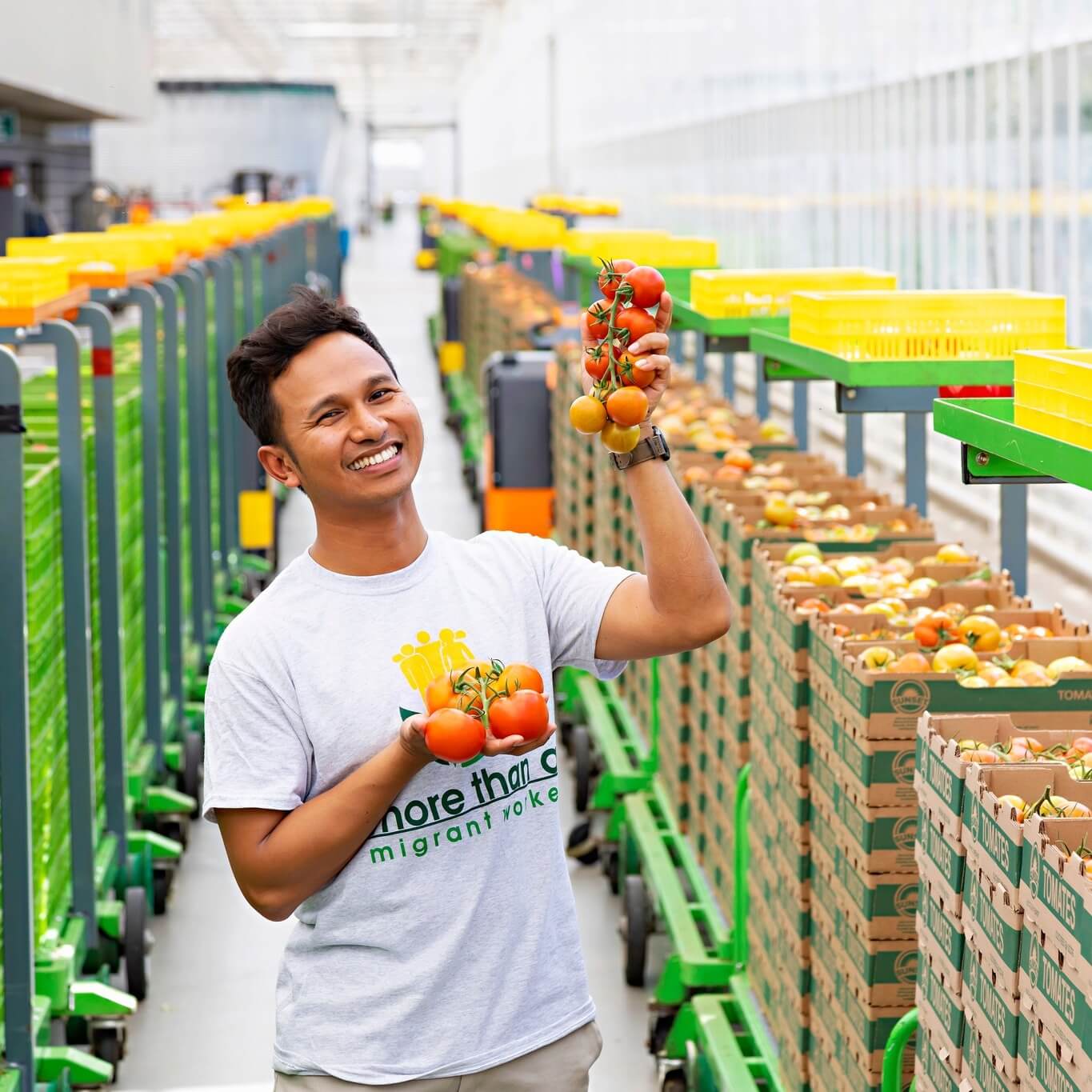
I work as a supervisor in the greenhouse. I am from Thailand, and I have been here for 8-9 years now. What brought me to Canada was the English and the opportunity to make more money. I wanted to improve my English at that time and learn new things in another country.
I am interested in many things and try and learn new things. What makes me happy is working in media. I like filming, photography, and those kinds of things. These are things I enjoy.
At Truly Green we have many people from around the world. Many of the Thai workers do not speak English here. I have become a translator for them which is exciting, and I can improve my English more and more.
-Punuwat, Seasonal Agricultural Worker in an Ontario tomato greenhouse
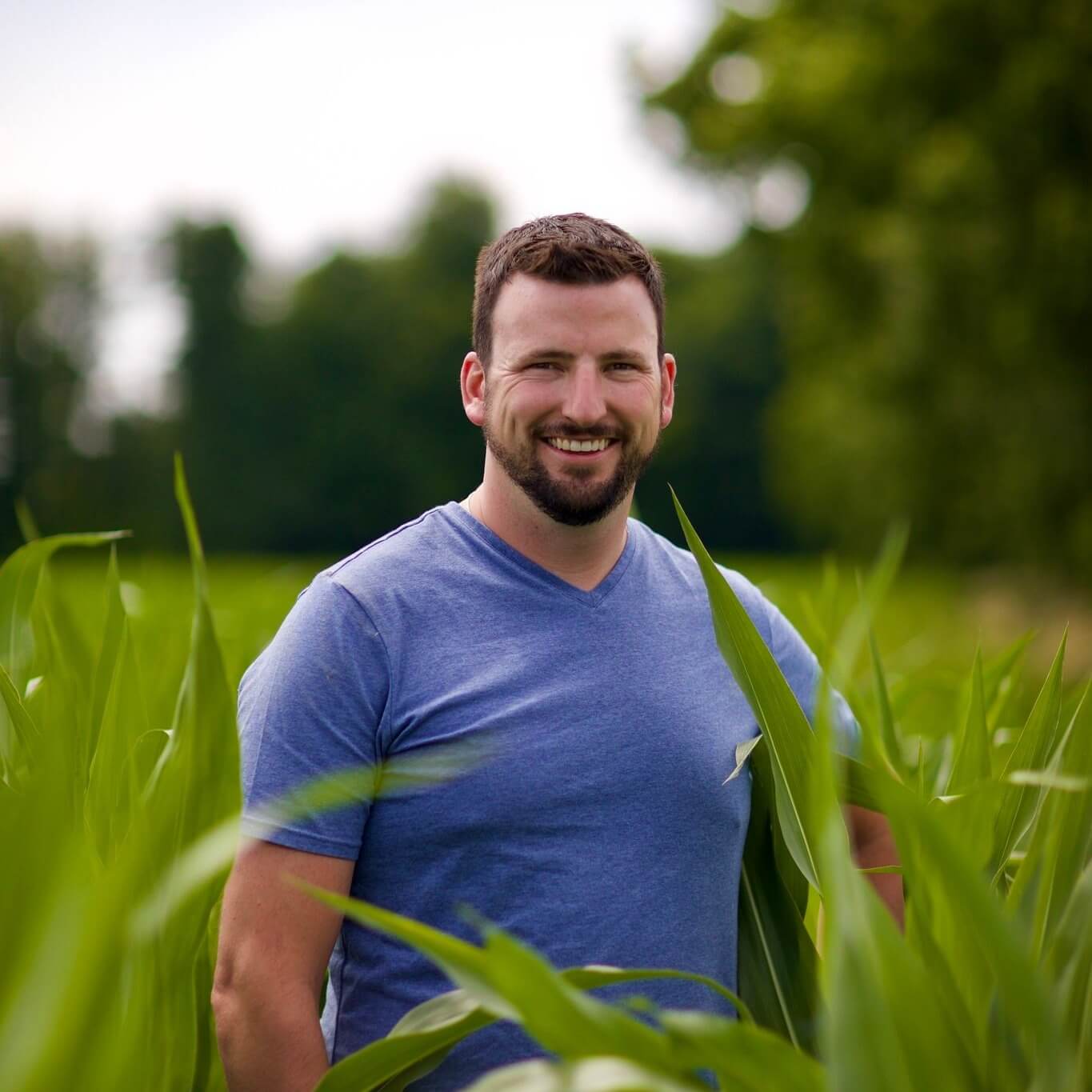
I was raised on a cash crop farm with chickens and a commercial grain elevator. I was very active on the farm from a young age, and when I went away to school in Guelph for four years, I would return home and start farming. While doing my Honours in Agriculture Science degree, I started a summer job doing agriculture and crop protection research. I did this for a few years and really enjoyed the research side, bringing new innovations to farmers. I followed my passion and earned my Masters in Science at the University of Guelph. I went on to work as a field biologist at Syngenta, developing new crop protection products, before moving to my current role as an agronomist and sales rep in midwestern Ontario.
Three years ago, I had the opportunity to move into a role closer to my family farm. Being closer to home, I am much more involved with the family farm. I can assist with planting crops in the spring, harvesting in the fall, or receiving grain at the grain elevator.
My brother and I are the third generation farming. My wife and I plan to raise our kids on the farm. With both of us having grown up on a farm ourselves, we appreciate the lifestyle living in the country gives. Working close to home is the first step to starting work at the farm, full-time again, with the long-term goal of farming with my brother and family.
When I am not working, I am doing triathlons. I do long-distance ironman triathlons; it’s a good way to relieve stress and gives me a break and something else to think about other than agriculture and farming 24/7. That escape and release you need once in a while.
-Matt, Territory Sales Rep, and Grain Farmer
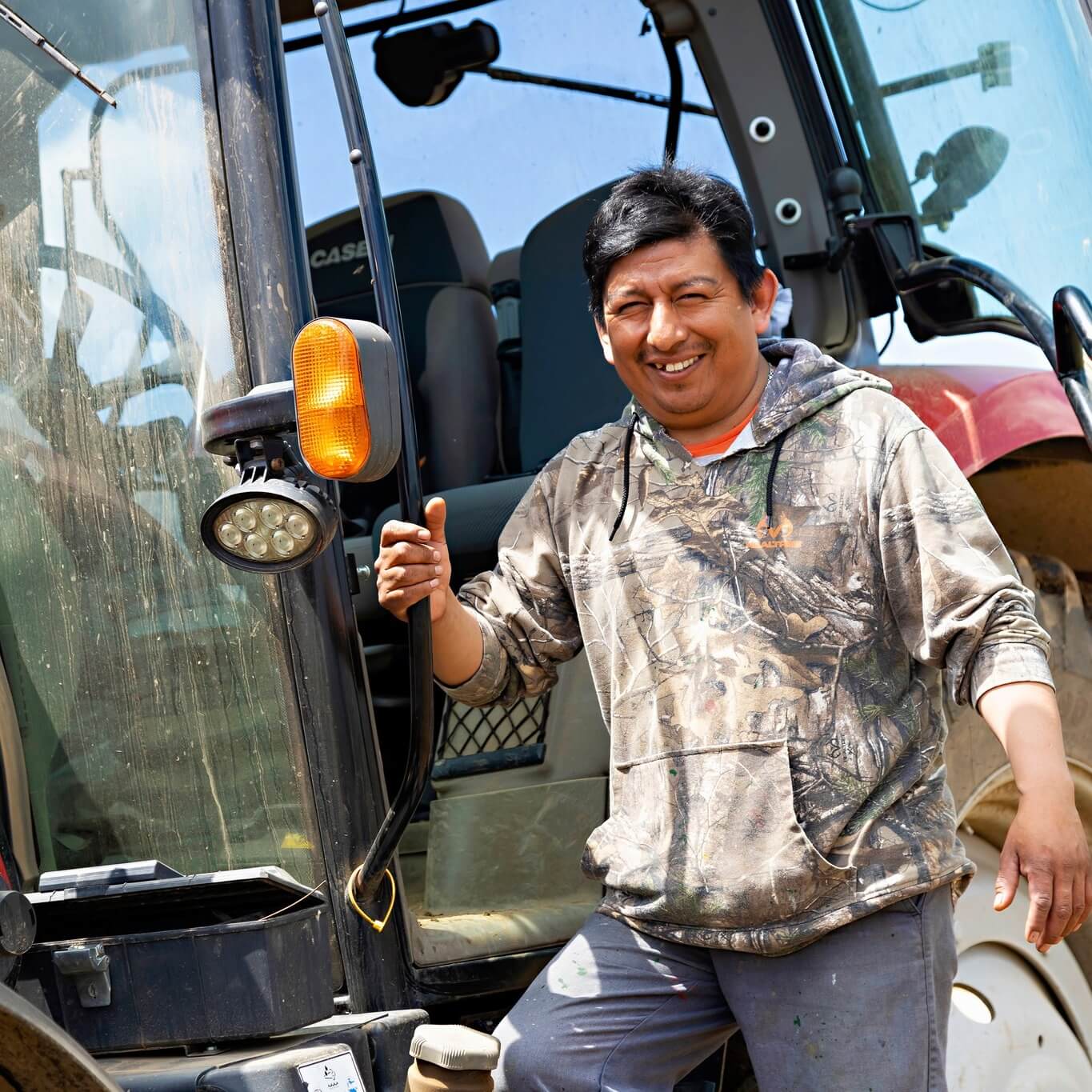
I have been coming to Canada for twenty years since 2001 and I came here to this farm in 2005. It is a farm that I like because the work is very nice. When I arrived back then for work, I picked strawberries, cut asparagus, pruned blueberries, cut green beans and picked peas. As time passed, I started to drive the tractor and now my job is to prepare the ground, spray, irrigate and all the things that can be done.
My work changed here because I think I have put a lot of effort into it. I have learned many things driving the tractor and I really like to do the work I am doing.
I got into the program because there is a need you have as a Mexican. The program helps a lot because it is a little more money that you earn. In terms of work here there are more work opportunities than in Mexico. Now, thanks to God with the work I do, I have my children studying in university. I have two children and I like the work.
When I return to Mexico, I try to spend more time with my family, to be with them, my children and my wife. When I am home, I work very little because it is more like a break because I come here for eight months and I work every day.
I like the cold in Canada. I really liked the snow because I had never seen snow. In Mexico, it is pure heat. I like the people in Canada, they are very respectful and more than anything, I enjoy the work.
My favourite food grown here on the farm is the asparagus.
-Jesús, Seasonal Worker from Mexico
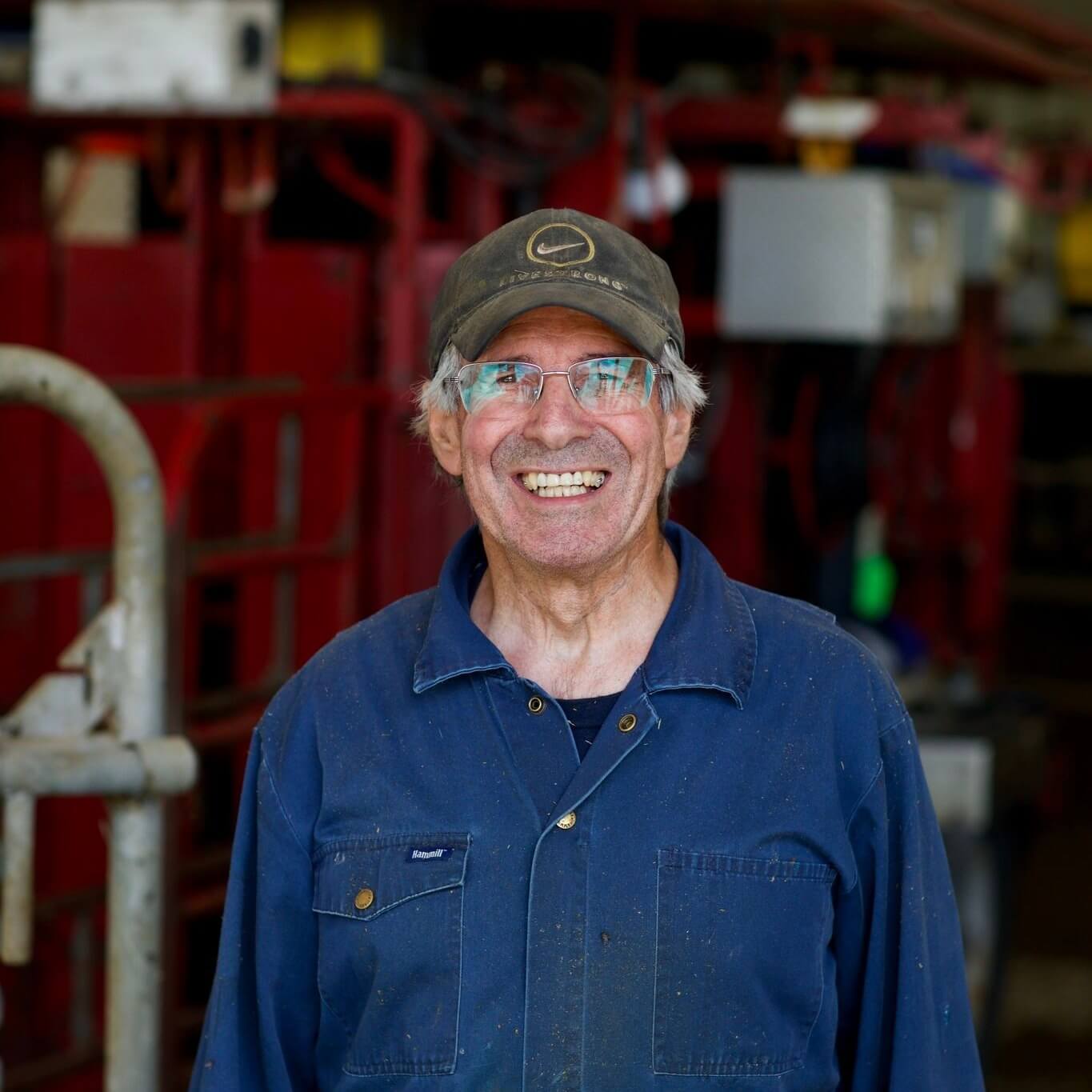
I started hoof trimming in 1980. At the time, my wife and I operated a dairy farm. When the interest rate spike happened in the early 1980s, we could no longer make it farming. I was looking for something different and knew I wanted to be self-employed. I was trimming hooves with a hammer and chisel in my early days. I could see my career's end coming quickly, as the job was so physically demanding. One of my first customers asked me why I hadn't upgraded my equipment to make life easier. Through his encouragement, I moved to a new system for working with cattle, which he built for me. Thankfully, improvements in equipment and technology have allowed me to continue going for 42 years.
We work with the farmer to establish a regular routine for hoof trimming and provide reports to monitor the health of a herd. Our work is essential on farms as hoof trimming plays a large role in preventing lameness in cattle. This is important preventative care.
My son, Joël, has joined the business. We work on over 70 farms in northern Ontario, northwest Quebec, and southwestern Ontario. We are away from home for about 100 nights per year. In the early days of my career, I would work on roughly 30 cows a day. Today, we can now trim 25 cows per hour.
I'm known as "The Hoof Trimmer" on Twitter. My work takes me away from home, leaving little time for friends outside my family. Having a platform on Twitter and social media has let me expand my circle and give people a glimpse into my world. Most of my page followers are farmers, but I love when people outside of farming want to learn more and engage. I have built a large following by being myself and showing through photos and posts the real side of my business as I experience it. It is the connection with others that I enjoy the most.
My career as a hoof trimmer spans 42 years, two provinces, three farming generations of clients and more than 200,000 cows. I will retire soon and pass the business to Joël. It has only been within the last six months that I have been able to talk about retirement. I love what I do; I truly enjoy working with farmers.
-Albert – Hoof Trimmer
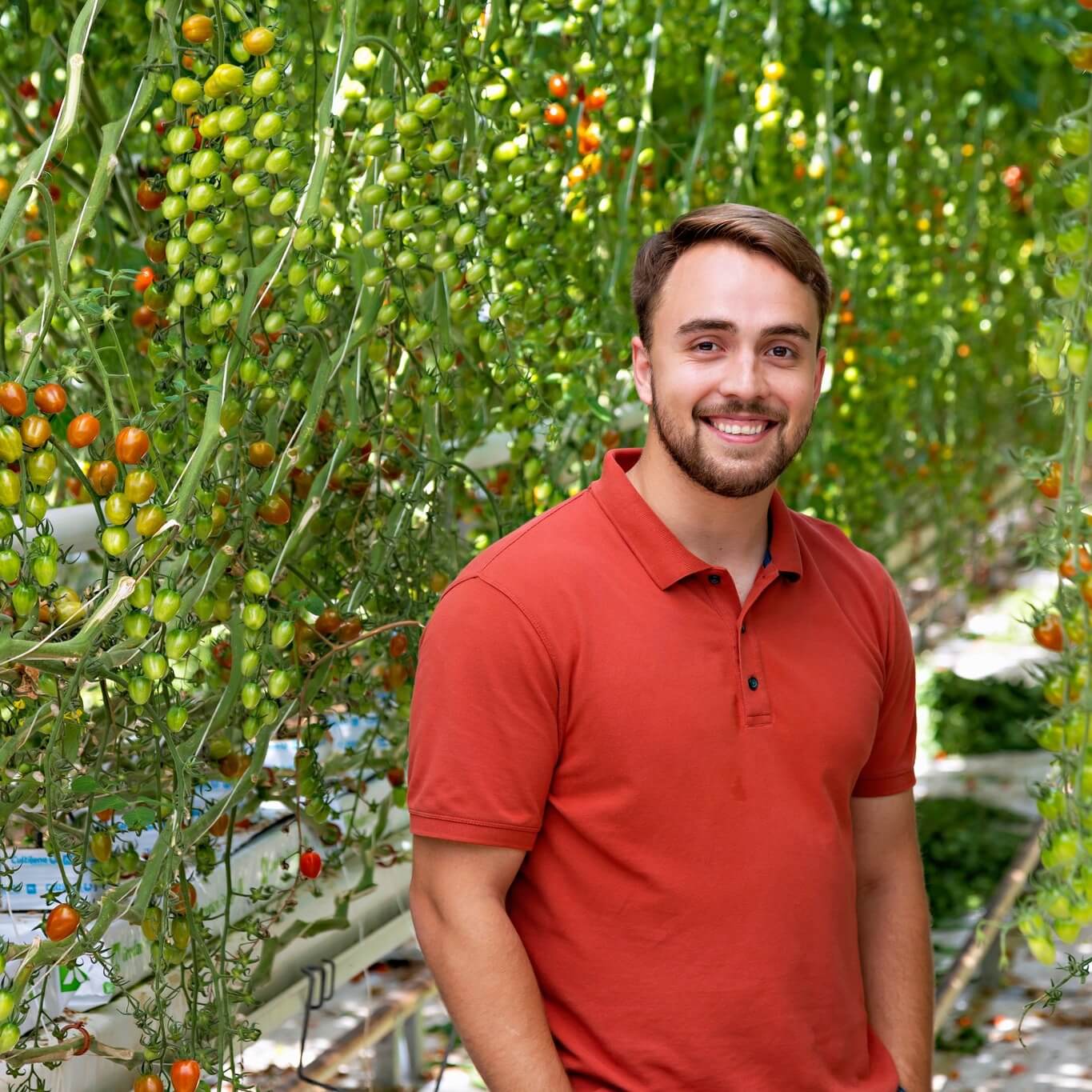
I am from Chatham. I don’t have a farming background. I come from a family with business backgrounds. I was drawn to a career in the greenhouse industry because I saw a lot of opportunity. I have always been fascinated in sustainable food production and I thought this company was a great fit.
I took the greenhouse technician program at Niagara College. My future goals are as high at the industry will take me. I don’t want to put a ceiling on them. I want to do as much as I can, as best as I can. I am a Junior Grower right now and I am hoping I can climb up the ranks in time.
I would like consumers to know there is a lot of work that goes into tomatoes. We work with a very tricky and finely tuned system. The work that goes into the product from the workers abroad is incredible and we are super lucky to have them. Greenhouse growing is much different than open-field farming, it is very technical. This was something I was surprised with when I first started working here. I was surprised how much was being focused on and measured on a day-to-day basis.
-Justin, Junior Grower, Tomato Greenhouse
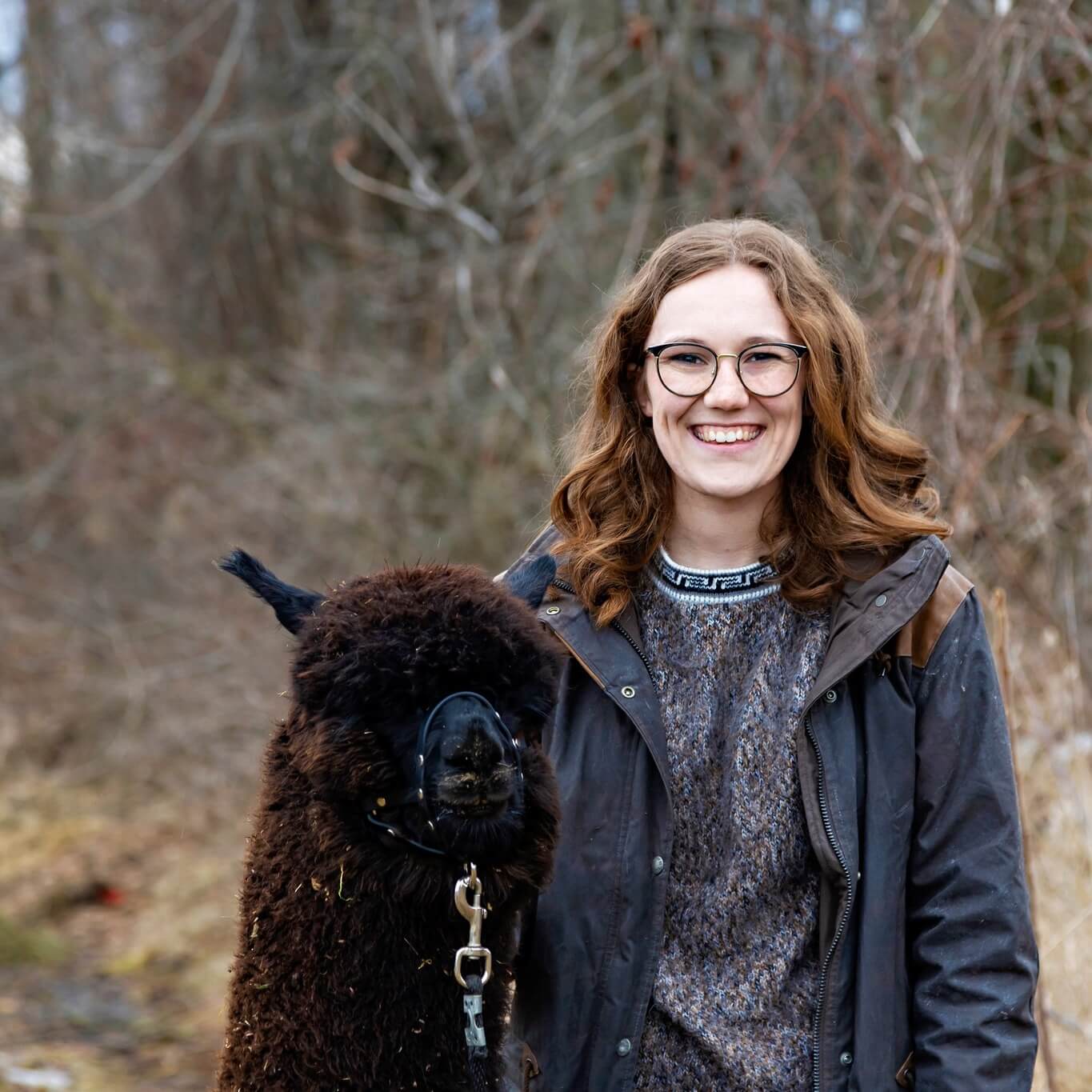
I was ten years old when I helped my parents find their first herd of alpacas. We were new to farming but just fell in love with the animals. Alpacas are native to Peru and have only been in Canada for about 20 years. When I was 18, my parents bought me two alpacas to start my own breeding herd.
I’ve just graduated from the University of Guelph with a degree in environmental governance. I’m really proud that I’m the fourth generation female in our family to study there – my great grandmother studied at “normal school” there. And now that I’ve graduated, I really want to help my parents build our family business which involves helping new alpaca enthusiasts develop farms of their own. We also sell the fleece.
I’m especially interested in the genetics side of the alpaca industry – focusing on improving our breeding stock. I also show alpacas at competitions all over Ontario.
This business is as much of a lifestyle choice as anything. It’s a great family project, working with interesting animals and we love helping others build their own businesses.
-Ruby – Alpaca farmer
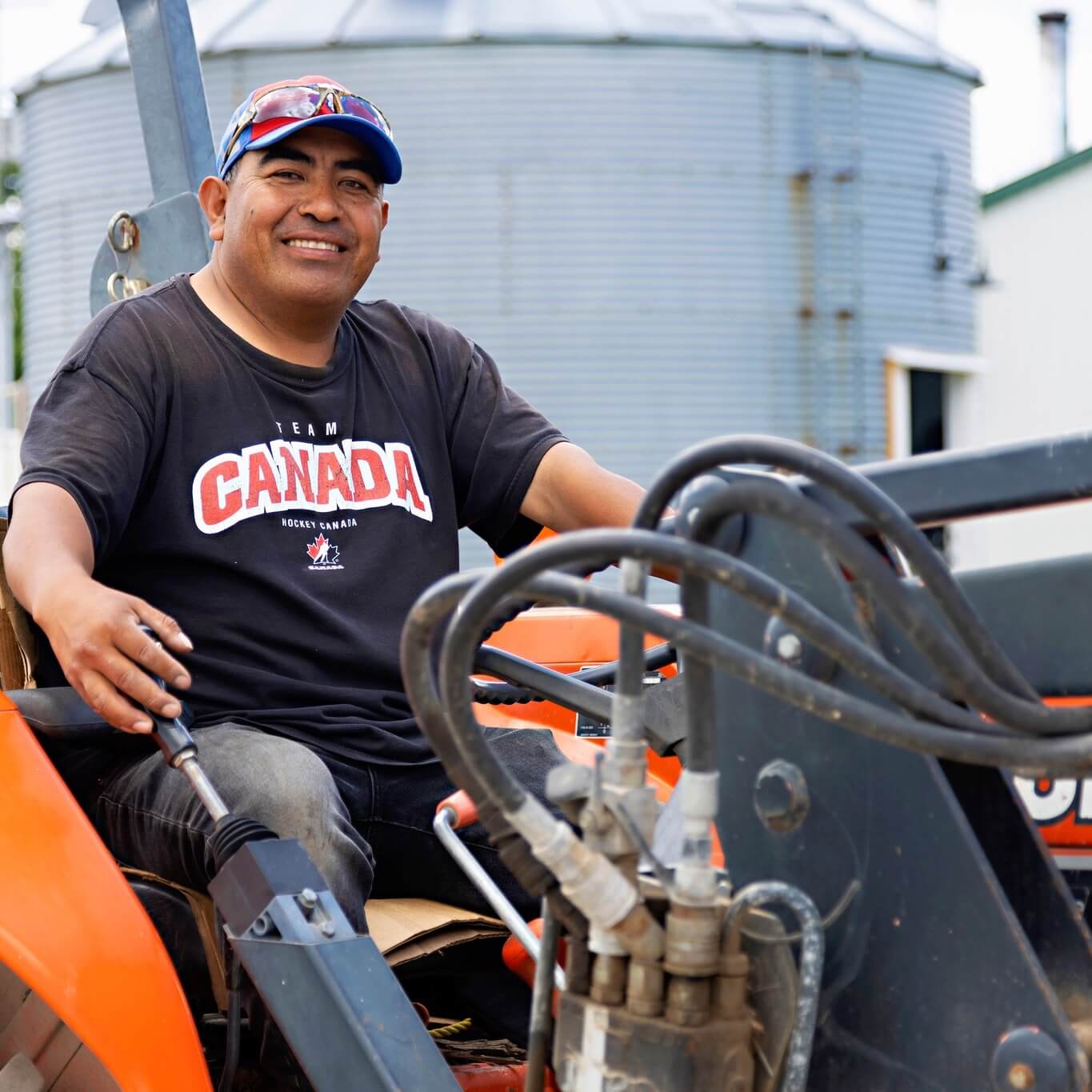
Here my job is to load and unload the trucks arriving. Fruit, vegetables, everything, I put them in refrigerators to keep them fresh and good.
I have been in this program for 22 years and on this farm 13 seasons. I am from Mexico. In my country there is not much work. I had the opportunity to enter this program which is the SWAP. We come here looking for a better quality of life for our children. This also allows us to provide them with a better education and that is why we are here. We have this opportunity thanks to the employers for bringing us to work here and I am grateful for them.
About three years ago I had a health problem. I told my employer about my problem and he was the one who supported me, helped me and took me to the hospital. Through this program we are able to access health care. They gave me treatment and thanks to God, I am fine, healthy and very grateful.
I have a wife and three children. My children are studying. I have a daughter who finished university and now I have two others children who are still in university. They are giving it all and that is why we are also giving it all for them.
Canada is a great country. It has very nice things, very pretty things, many beautiful places and good work. The weather is variable, but it can be handled and it is very beautiful here.
We have a good working environment here. We have many countrymen working here with us. There are also Canadian people that we work with here together. Sometimes it is a little difficult to communicate with them, because of the language. We are giving it all and we are trying to learn English to understand each other.
-Antonio, Seasonal worker from Mexico
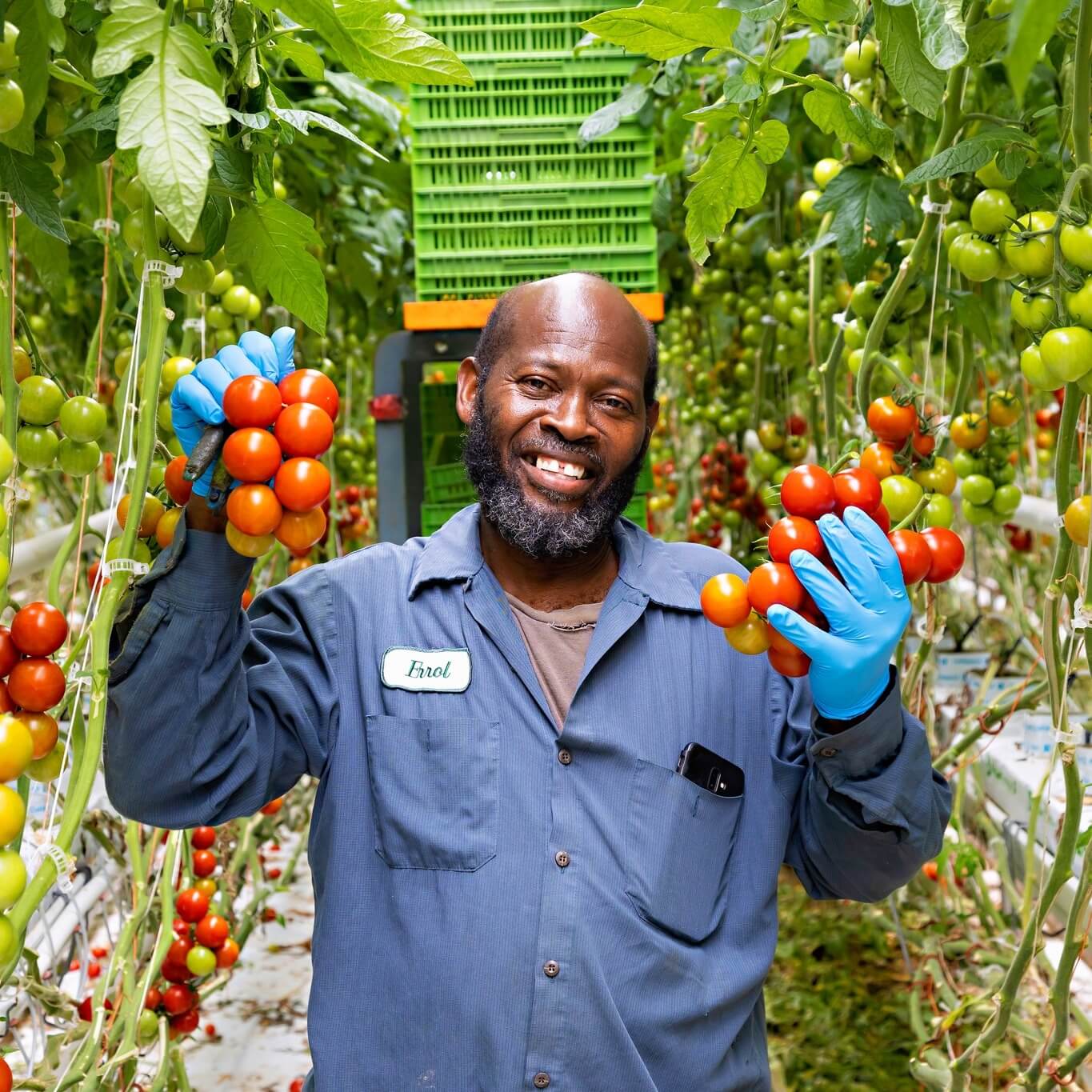
I am a crop worker and cut tomatoes. I’ve been doing this now for seven years. It is a very good environment to work in, we meet a lot of different people from Thai and Jamaica, and we have a good relationship.
I am a carpenter back in Jamaica. It is a very good job, but Canada is very nice, and I love Canada. I don’t love the cold, but I do love Canada and I would love to live here someday.
The future looks good because I’ve been coming here for 16 years, and I can see the benefits that I have achieved because of these 16 years.
I have a wife and four beautiful kids, two boys and two girls. I’ve been married for 27 years. My wife works at the post office. My first son just finished university and is an electrical engineer. My second son does mechanical work and music. My third child, my daughter is 21 and unfortunately her brain is damaged because of Meningitis. She is my joy and is everything to me, I love her. My last daughter is still going to school, she is 14.
I love to cook, and I love to listen to music. I love cricket, so we have a team sometimes and I play a little cricket. I enjoy cooking for the guys sometimes. I cook and everyone sits and eats. I love listening to music, Jamaicans love music.
-Errol, Seasonal Agricultural Worker in an Ontario tomato greenhouse
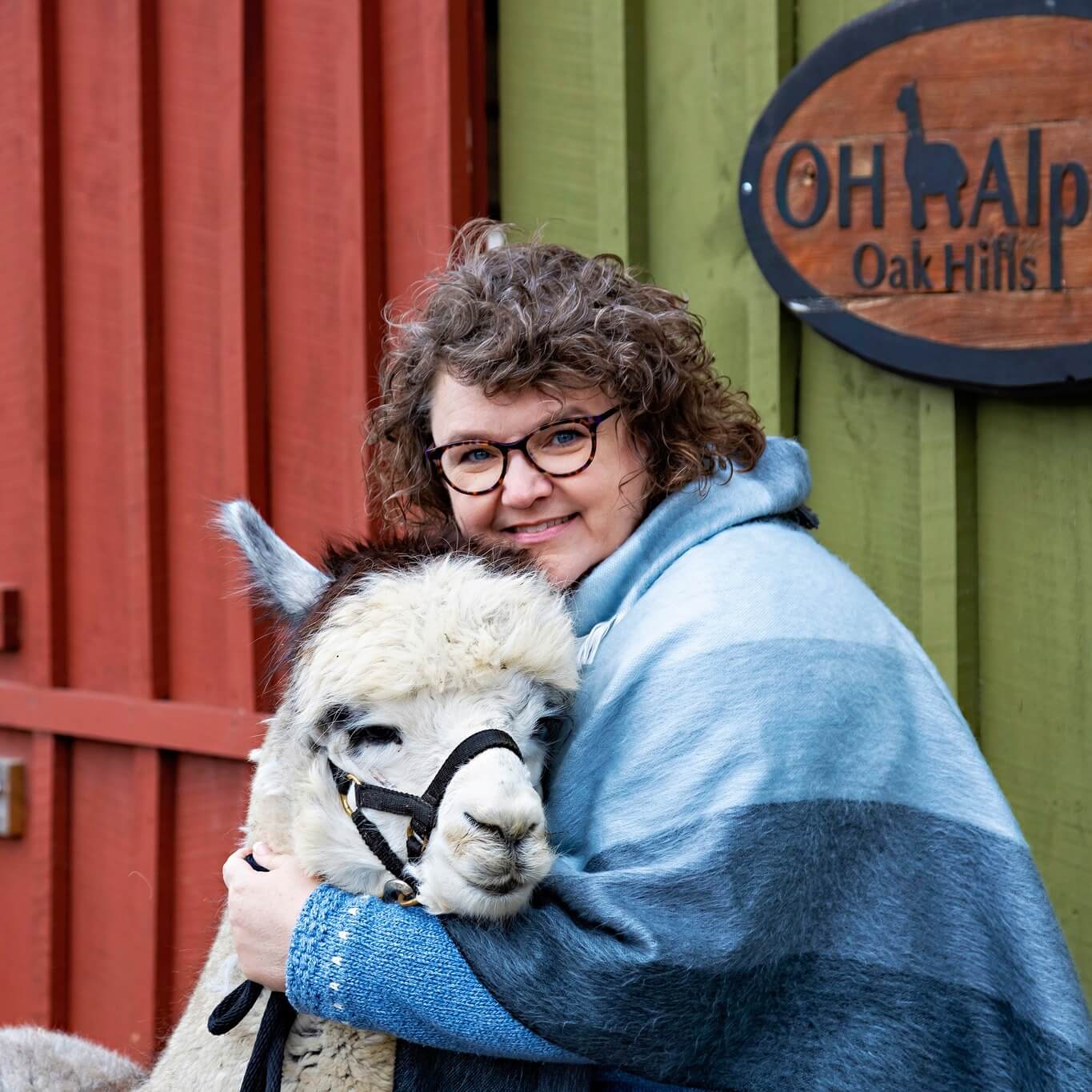
What we love to do the most is introduce new people to alpacas and alpaca fibre. We’re not just in the business of raising alpacas – we raise alpaca farmers. And over the last 13 years, we’ve helped 30 new alpaca farms get started across 3 provinces.
I wasn’t raised on a farm – but when we bought this country property, we started trying to think about what we could use the land for. We bought our starter herd in 2009 and have never looked back. It’s a lovely industry to be in. These animals are gentle, friendly, require little land, are sustainable and are very healthy. I often tell people that they’re easier to care for than a dog. We’ve now got 21 alpacas living here, broker dozens of alpacas each year, and are expecting several new cria (baby alpacas) next spring.
I’m also a knitter. Working with a luxurious fibre like alpaca is addictive to fibre artists like me. It’s an elite product. Sheep’s wool is sold by the pound, but alpacs fibre is sold by the ounce. We wholesale all of our fibre and that side of our business is growing too. The herd is shorn once a year in the spring.
When someone is interested in raising alpacas, we mentor them through the whole process. We teach them how to feed and care for them, how to give them vaccinations and how to shear them. We’ve even dropped everything to go and be part of the birthing process when client’s alpacas deliver their first cria. Their success is our success. It’s rewarding to help build this growing industry. There are now about 80 alpaca farmers in Ontario and it’s growing all the time.
-Heather, alpaca farmer
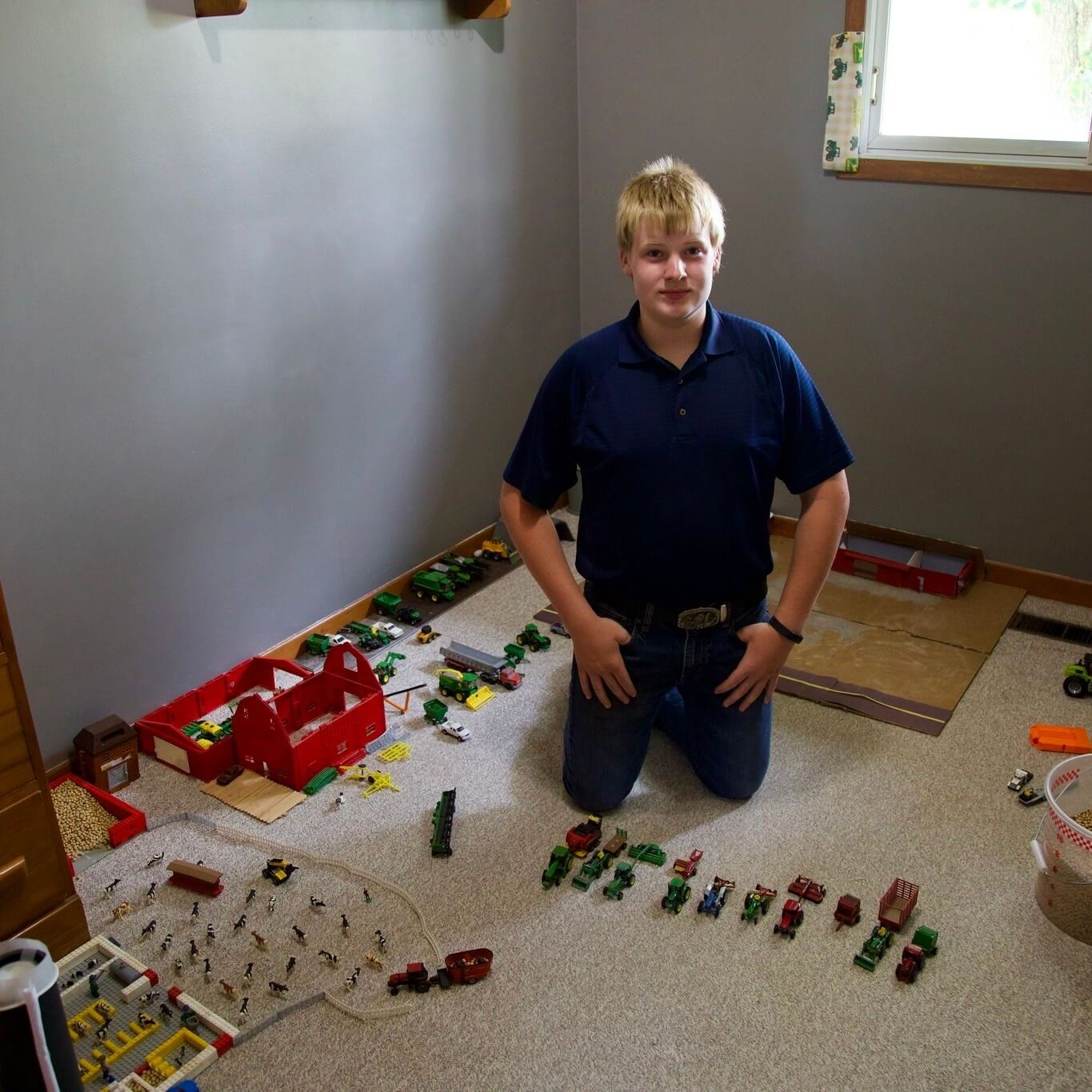
On our dairy farm, I take care of feeding the cows and heifers. I go to the barn every day before and after school. Although feeding cows is my favourite job on the farm, I also enjoy working in the fields, fixing and maintaining equipment, and other stuff around the farm. When I was very young, all I wanted to do was dairy farm on our family farm. More recently, I have decided in addition to farming I would also like to be a mechanic. I enjoy spending time on the farm working with my hands, taking things apart, fixing them, and then putting them back together. Repairing and building things is something that I find very satisfying and rewarding and I am good at it.
My love of farm equipment has me always checking out what other people have for equipment. It also inspired me to start my hobby of building and collecting 1/64th scale farm toys. When I am not busy on the farm, I spend time in my toy room. I have also started an Instagram page (@our_farm_story) that follows what I do on the family farm and shows my 1/64th scale set up.
In school, I enjoy doing tech, small engines, and woodworking classes. Once I am finished high school, I plan to study mechanics at college and then I will spend most of my time farming and fixing equipment.
-Ethan, Dairy Farmer
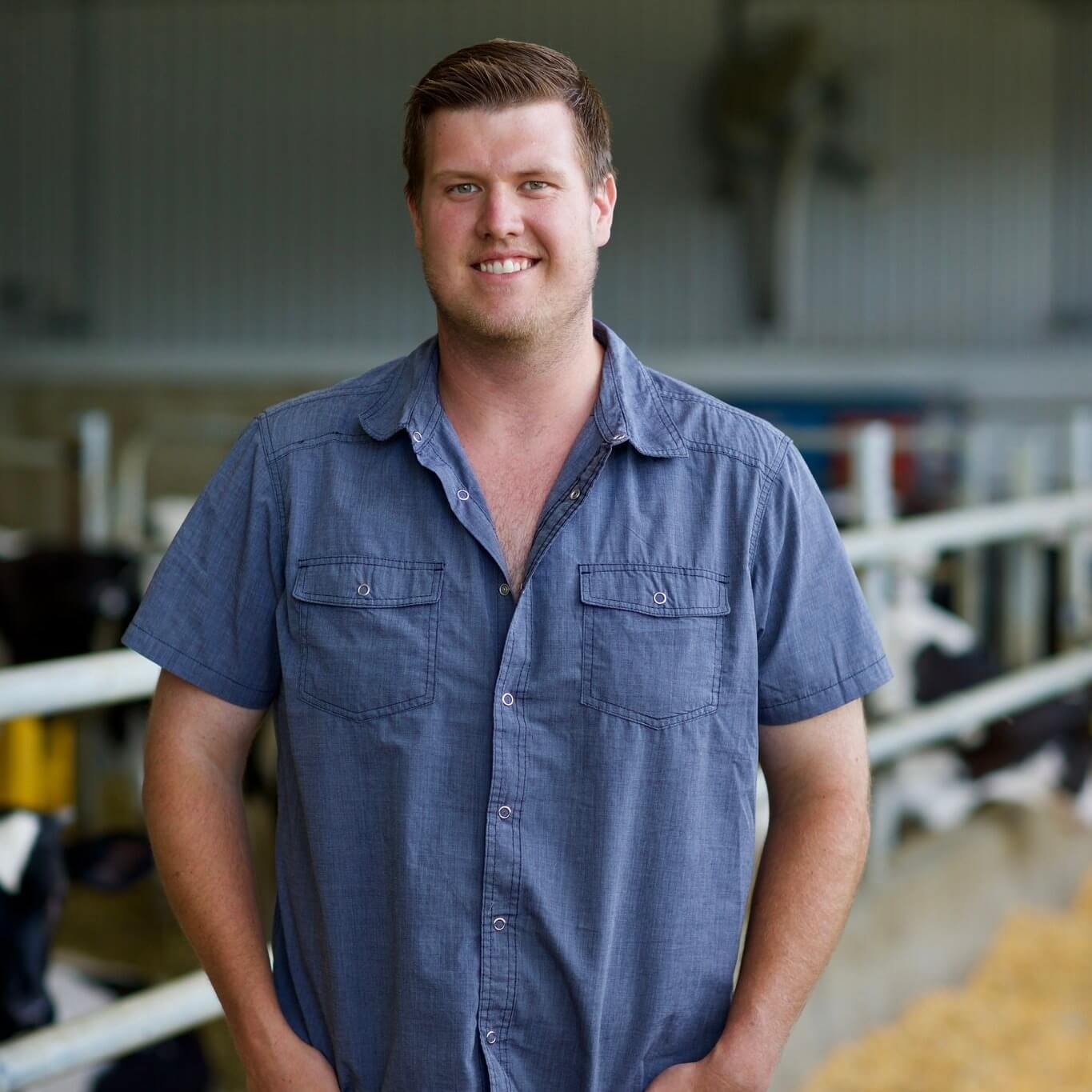
I have fond memories of spending time with my Dad at a young age asking a million questions and learning everything there is to know about veal farming. That's when I knew I wanted to be a farmer.
We have raised veal cattle for 22 years and grow crops on 300 acres. We do our best to produce enough corn annually to feed our animals and rotate in soybeans as a cash crop.
Every day is different, which is something I like about farming. The change of seasons and tasks we have to do ensures I never get bored. Each day starts with us feeding the veal cattle. On the farm, we only eat after all the animals on the farm have been fed. After breakfast, we move on to cleaning pens, checking the cattle, changing ventilation, and everything else that must get done before the day ends. Weekly, I am at the sale barn buying calves, enjoying field work, fixing things or working on new projects.
We’ve slowly built the farm over the years through hard work and dedication. We will continue to raise veal and add more land and equipment to the farm, if possible. We’ve been able to sustain healthy growth over the years, while enjoying the work we do.
If I muster enough energy at the end of the day, I hit the gym to make sure I get exercise. I enjoy spending time with my friends and family and try to get out and see them when I can.
-Phil, Veal Farmer
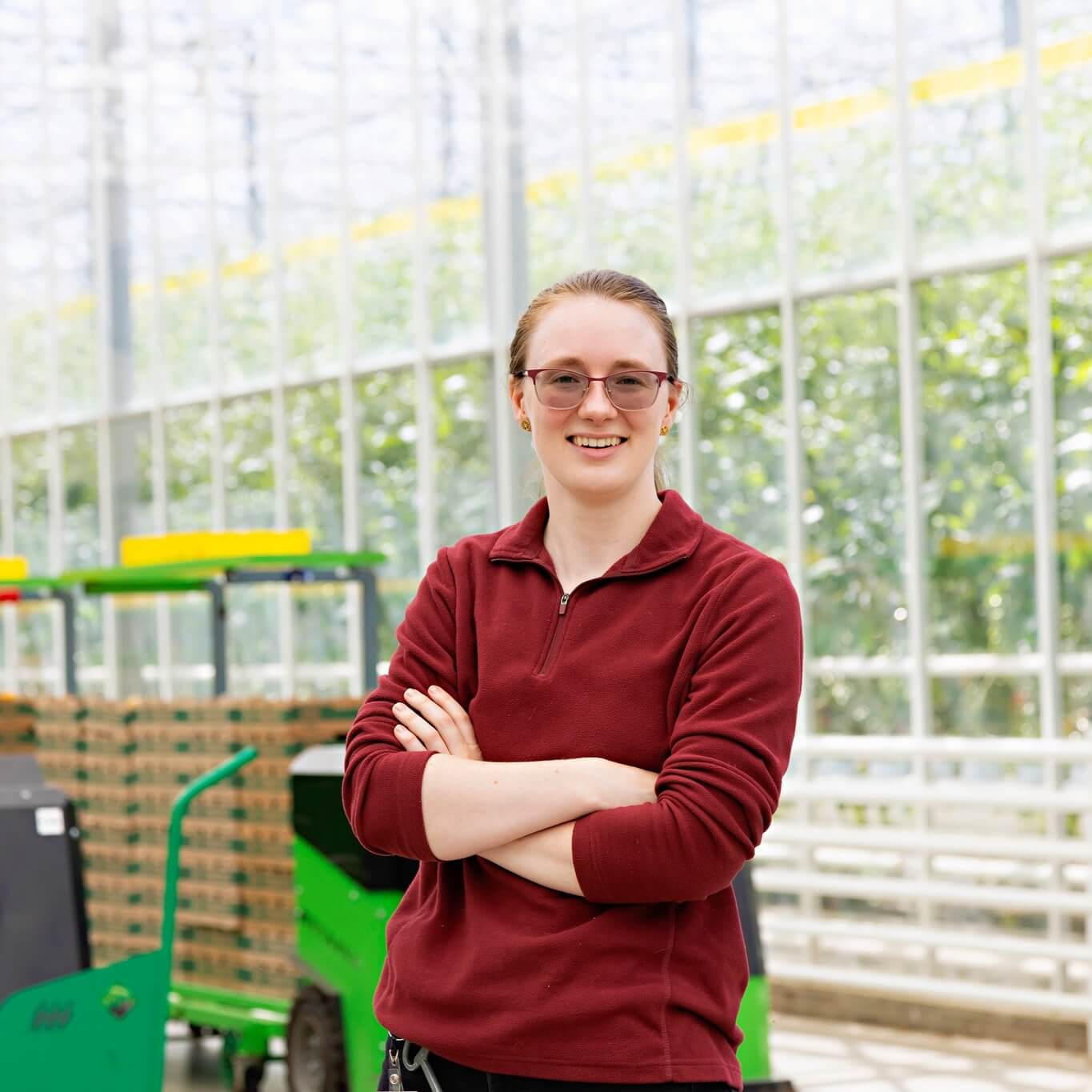
I don’t have a set schedule for my day in this tomato greenhouse. Some of the things I do include water measurements, mixing fertilizer and taking the time to look at my plants. It is important to me to spend the time inspecting the plants to make sure what I’m doing with the climate on the computer is actually helping the plant thrive.
I grew up on a beef and cash crop farm in Orillia. I fell in love with the agriculture community as a whole and realized field-focused agriculture wasn’t something I wanted to do. The technology and the infrastructure behind greenhouse production really interested me.
In the future, I would like to continue in the growing stream while developing myself. My goal is to look at a plant and better identify exactly what it needs. I’ve only been here for six months and I still have a lot of room to grow.
I would love for the consumer to know that it takes eight weeks from the day that the tomato flower closes until the day the tomato is picked off the vine. In those eight weeks, that plant is touched almost every day by a crop worker. They have to clip them on strings so they don’t fall over, they prune leaves and shorten our clusters to the right number of flowers. We would not be able to provide the product without our temporary foreign workers here at the greenhouse. I know how much work and passion that goes into each tomato that goes out the door.
Emma
-Junior Grower, Tomato Greenhouse
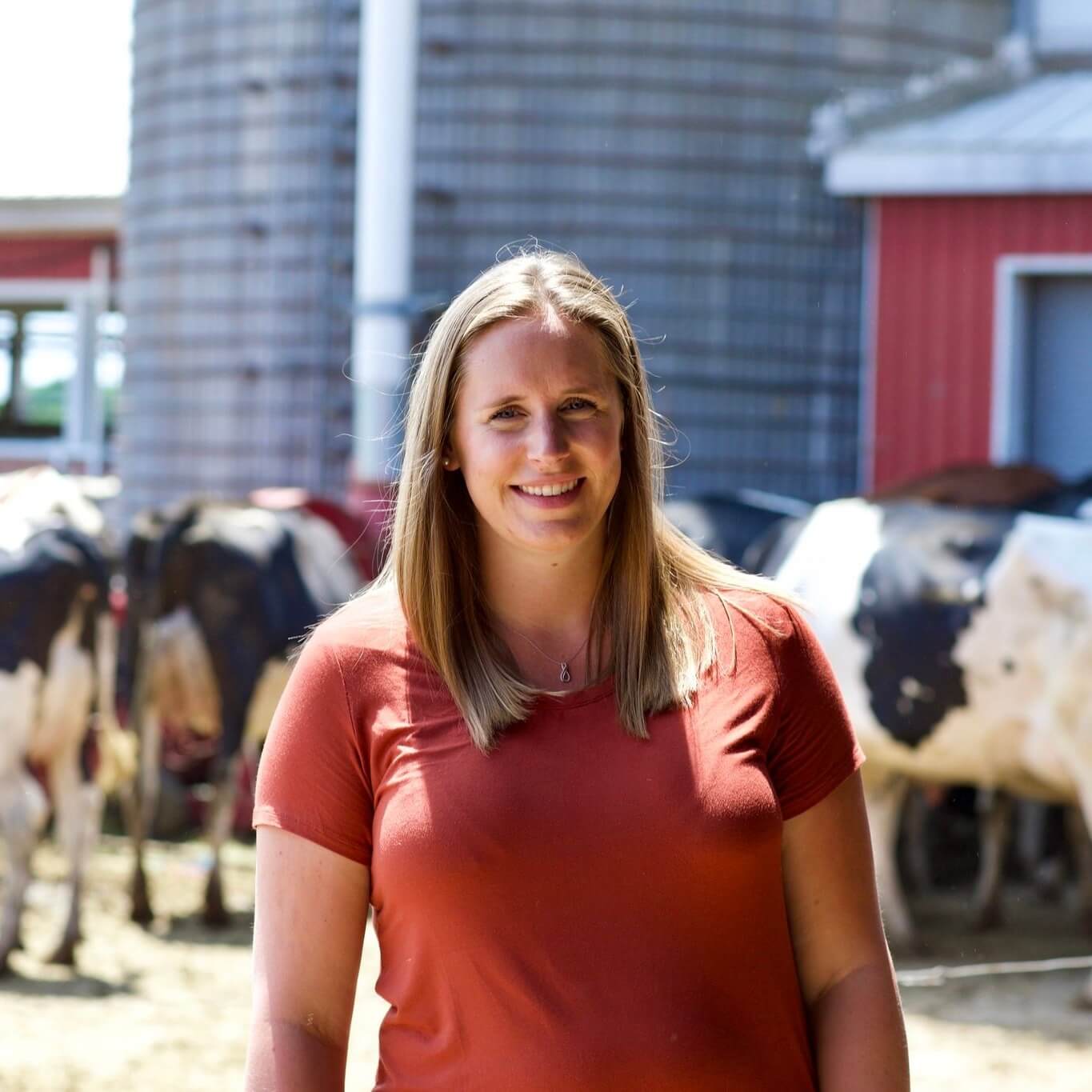
I had a really strong role model growing up. My Mom was the one who managed our farm full-time, with my dad working off the farm. She encouraged us to stay involved in farming if that was what we wanted to do and not be scared to take on these roles as females.
I decided young that I wasn’t going to farm or marry a farmer. I looked at all the things our non-farming friends did that we missed out on growing up. We didn’t get away for family holidays, and I was going to have a different life. As life went on, I realized all the really great things about farming and living on a farm, and this brought me back to my roots. I ended up marrying a farmer. Sometimes, you need to step away from your passion to realize what it is.
Today, I work in the banking world, lending money to farmers and agricultural businesses. Farmers and business owners come to me with ideas and their goals; in return, I offer financial advice and find ways to support their goals. I like helping people succeed and grow their business operations, and I get to do that every day in my role.
Today, my husband and I are contributing to both our family farms. My family milks 60 Holstein cows on a 170-acre farm. We plan to join my husband’s family, who grow grains, raise chickens and manage a commercial grain elevator on a large farm in western Ontario.
-Kathryn – Agriculture Account Manager and farmer
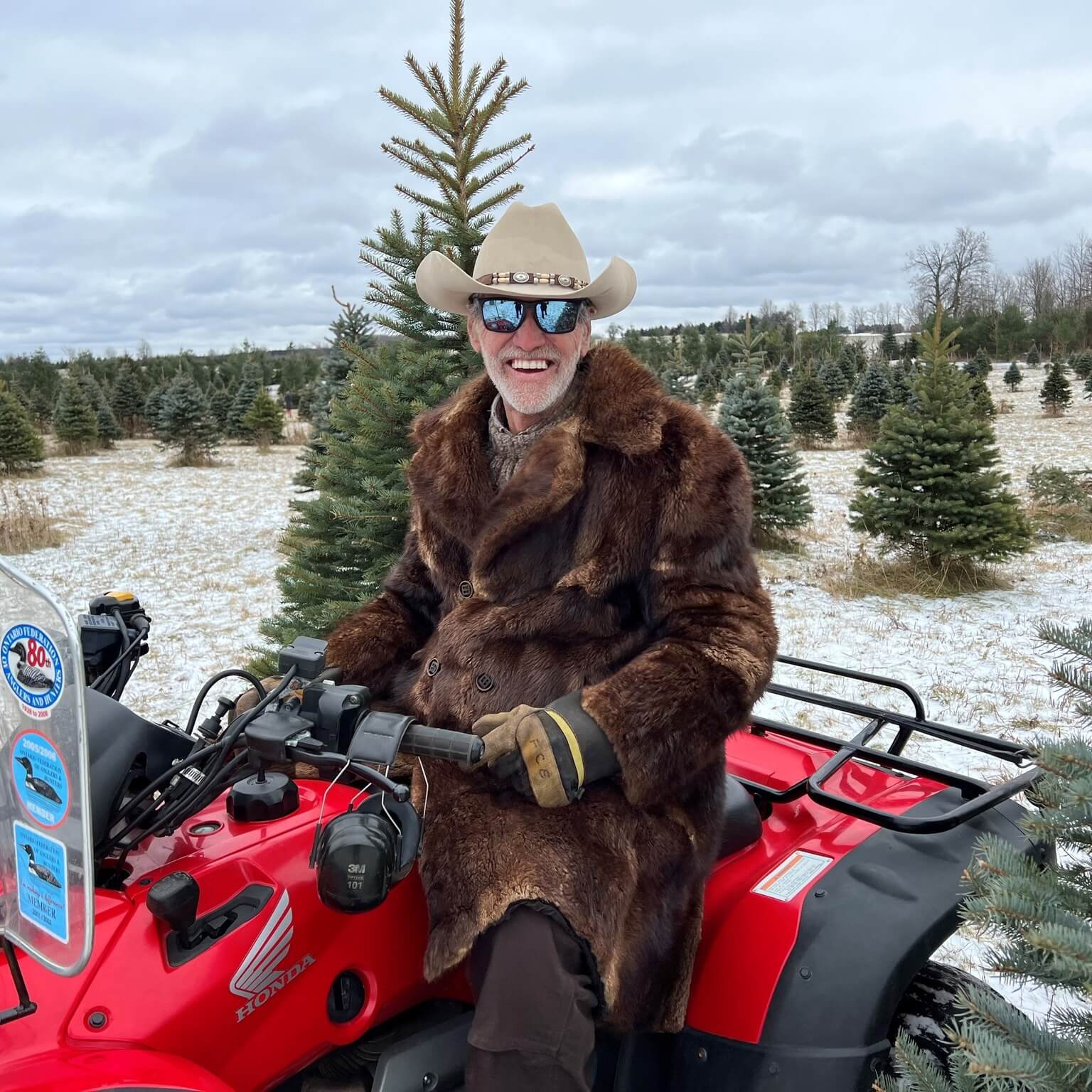
Recently, a customer came in and asked me for a sad tree. I thought I heard him say a fat tree, but he said no - I want a sad tree. I asked him what a sad tree was, and he told me he was looking for a Charlie Brown tree, an ugly tree. I have no idea why he was after that, but it was funny. I take the time to make small Charlie Brown trees that we sell in our on-farm shop.
The farm was a potato farm when I moved here in 1984. Potatoes had been grown on the farm for 40 years before that. In 1985 I planted 2500 trees. This plan was a retirement project and would allow me to sell trees for landscaping. Every year after that, I have planted 2500-3000 trees. If I add up the trees planted on this farm during my time here, it would be more than 135,000 trees. My son took over the farm eight years ago and changed the focus of the business to Christmas trees.
I knew in 1984 that planting trees was something I needed to do for the future. There is a belief that you grow trees for the next generation. The trees I plant now, I won’t see to maturity - my grandchildren will. All trees contribute to creating a healthy atmosphere. The cool thing about Christmas trees is that they are a renewable resource. For every tree we cut, we plant three in their place.
We work every day, and we are never ahead, but they are all great days! Farming may be challenging on cash flow, but it is rich in lifestyle. When you get to my age of 80, lifestyle is more important than money. I like to interact with the customers and want to ensure they feel good energy and feel welcome here. I also help them find trees in the cut-your-own lots. Riding around on the four-wheeler saves a lot of walking these days!
Christmas will never go out of style, and we are lucky to be Christmas tree farmers. We also have maple season activities here on the farm, and maple syrup festivals will never go out of style, so I can say the future looks bright for this farm. My son Derek has done an incredible job of taking a farm I started and growing it to a whole new level. I am very proud of him for that.
-Fred, Christmas Tree Farmer
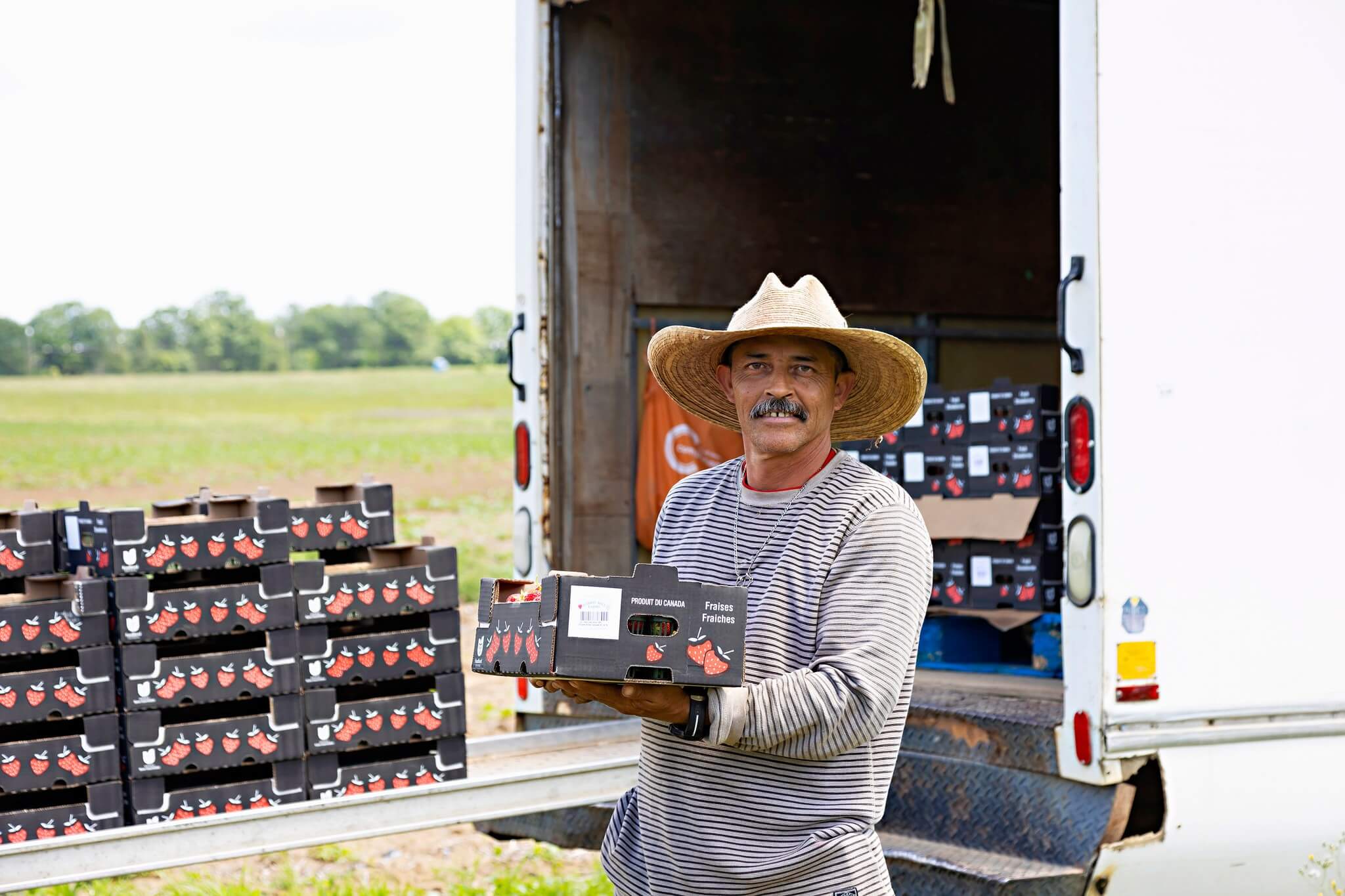
I have been coming to Canada from Mexico for 12 years. I have worked here at this farm for seven years. Today my job is to bring in the fruit, check the fruit and also to help my co-workers pick.
In Canada, I work on two farms. I come from a Christmas tree farm, where I work for two months. After I finish there I come here to work with strawberries for three or four months and then I return for the Christmas tree harvest.
I come to Canada so we can live a little better, so my family has a little more food, clothing, to overall live better.
When I return to Mexico, I spend time with my family. I try to spend the majority of my time with them as long as possible because it is short, the time that I am in Guadalajara.
My fondest memories are playing games with my kids. I love the pictures of my family that I look at when I am here. I look at the videos that they send me. The good thing is that I can communicate more with them by video call and those are the most beautiful memories that I have. Every time that I see my family through the phone or when I go back, they are always smiling. They are glad when I am back home and can spend more time with me.
- Humberto, Seasonal worker from Mexico
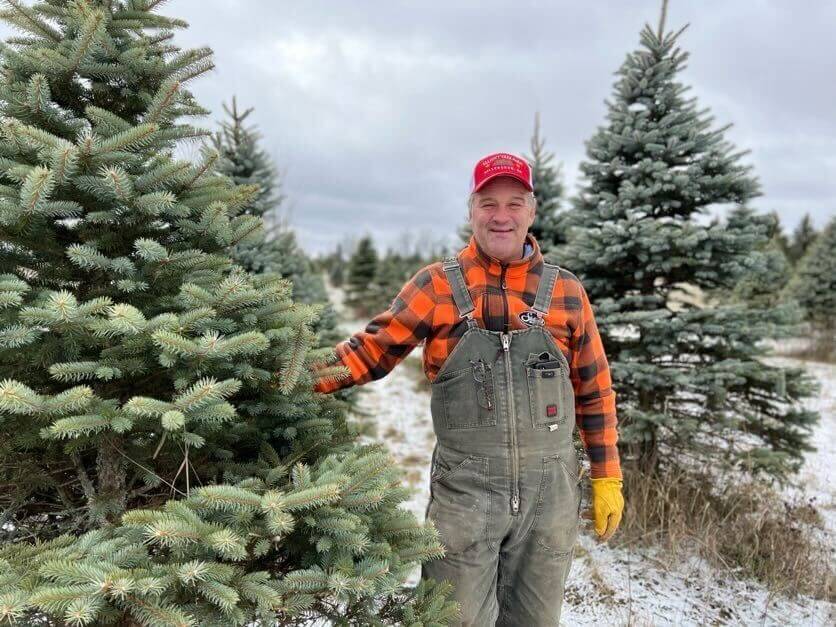
My father started this farm in the mid-1980s and began a business of growing trees to sell for landscaping. I took over the farm eight years ago and began focusing on providing Christmas tree and maple season experiences.
We are open for 35 days a year to sell trees, but we are farming them for the rest of the year. We are also open seven weekends a year during maple season. A lot of work goes into growing a Christmas tree crop. It takes about ten years to grow a tree to harvest. The trees start as seedlings. Depending on the year's climate, we can lose anywhere from 30 – 70% of seedlings planted in their first year. Once the tree takes root, they are fertilized and pruned at different stages, and there is a lot of grass cutting in the fields. Christmas trees are very physical, manual labour. You certainly don't need to have a gym membership when you are moving Christmas trees around.
We really enjoy what we do. Even on the days we feel invigorated, we are tired - it is a good tired, though. The highlight of our work is seeing people come here, whether at Christmas or during maple syrup season, and sharing what we do with them. We love seeing the smiles on their faces.
The demand for trees is rising - more people want to return to natural trees. What we do here is very sustainable. For every tree that is harvested, we plant three. As development has continued throughout Canada, fewer Christmas trees are being grown. Tougher growing conditions have also been impacting supply. The pandemic has also affected demand. People are looking for experiences rather than material things, and the Christmas tree becomes a central part of that.
We pick a different tree for our home every year. This year, we have an eight-foot tree in our farmhouse. Each tree has its own personality.There have been years I've taken a tree into our house that isn't perfectly shaped – that sends the message that life isn't always perfect, and you still honour that tree.
The Christmas tree is something that brings families together; that is the best part of this job.
- Derek, Christmas Tree Farmer
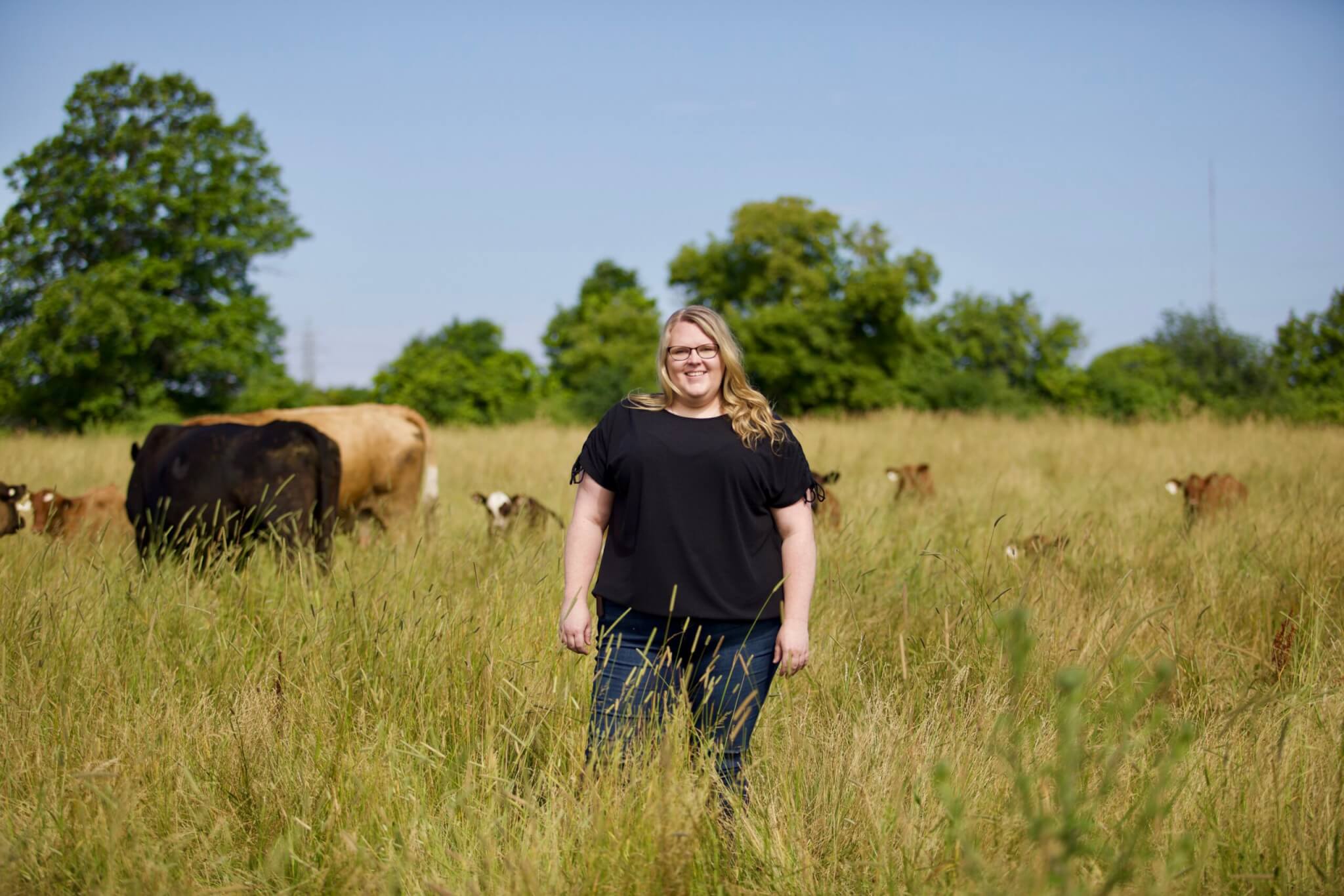
The best advice given to me in life has been to, “Say yes to opportunities.” I grew up on this farm with my grandfather and father farming full-time. Today, my brother and I support my Dad raising beef and growing crops. I was always super passionate about agriculture, but wasn’t exactly sure what I wanted to do. My hope was to find a career in agriculture that would allow me to still be part of the family farm, but would also give me new opportunities to support the agriculture industry off-farm.
I said “yes” to an opportunity to participate in the Canadian Cattle Young Leaders Program for young people between the ages of 18-35 who are involved in the beef supply chain. Participants are paired with an industry leader in their specific area of interest for a nine-month mentorship. This experience led me to an Ontario delegate position on the Canadian Cattle Youth Council. Saying yes to these opportunities as well as many others that include board seats in various beef industry associations has allowed me to learn, share my opinions and voice as a beef farmer and help shape policy. These experiences have opened up a lot of doors for me.
Today through a role with the Ontario Federation of Agriculture, in addition to my role in our family farm, I have a grass roots connection to growers and farmers. My involvement in various boards has allowed me to witness how much work is devoted behind the scenes of organizations supporting Ontario farmers. I am passionate about food and farming and want people to know how safety, sustainability and best practices are our priorities, day after day.
I am a third generation volunteer firefighter. My grandfather was a volunteer and my dad is a volunteer captain. I was raised with such a strong sense of community with my Dad at the fire hall and my Mom being the first one to take food to people in their time of need. I have been firefighting for 14 years and the opportunity to help fellow members of my community is what drives me the most.
-Charlene, Beef Farmer
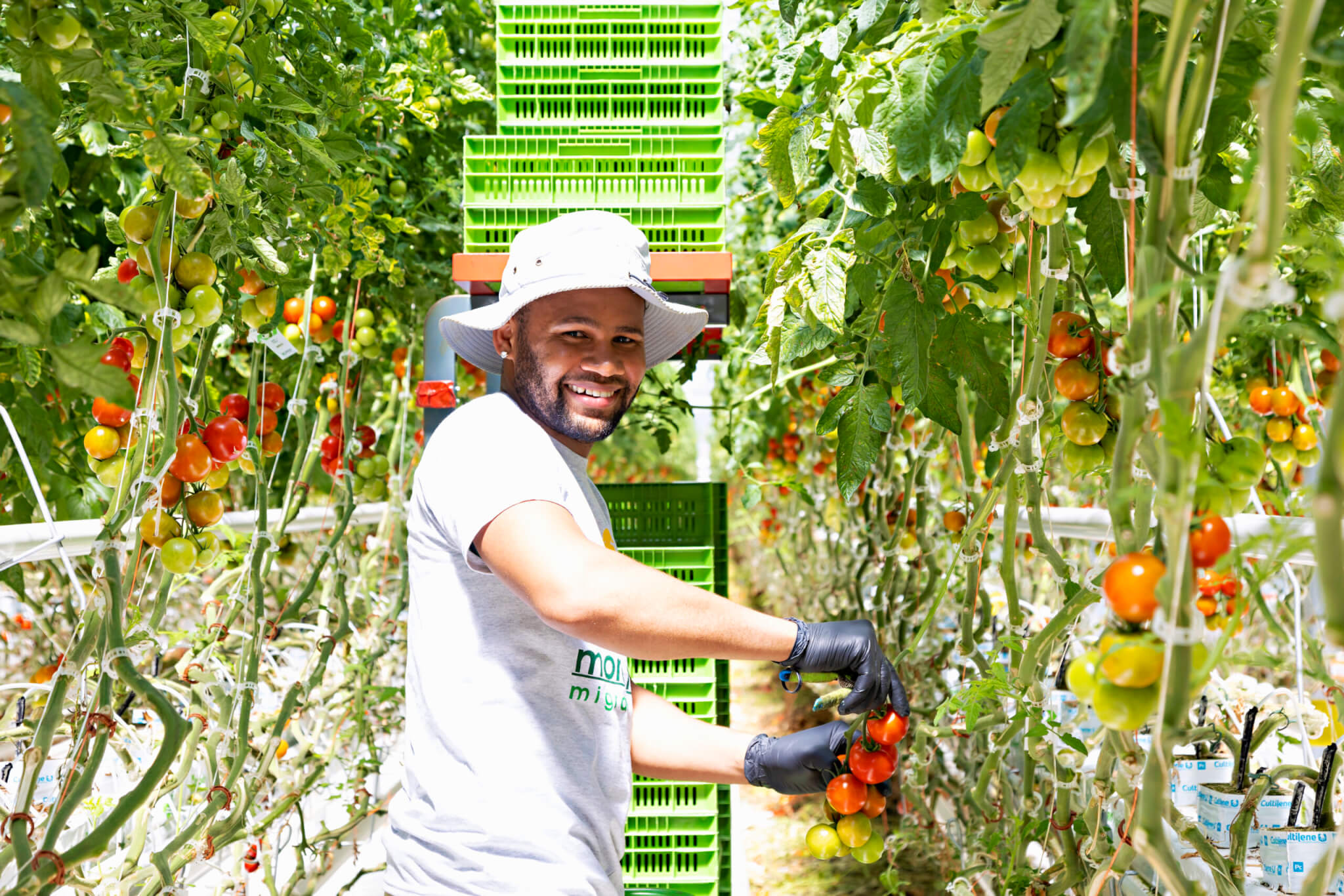
This is my fourth season. First, I was a crop worker, now I am a picker. I pick Campari tomatoes.
Jamaica is a poor country, to come to Canada is a better life for us. Farm work is the best thing to go into to take care of your family and make yourself a bit of money.
In Jamaica, I was a construction worker and tradesman. I built homes. When I go home now, I spend time with my family, eight months is a long time to be away. It is just time with my wife now when I go home.
I have a beautiful family back home. My wife, Susette Gregorio, is a beautiful lady. I love her so much and I miss her I also have my little sister who lives as home with us in Jamaica. My family is beautiful, and they miss me a lot.
My job keeps me active. It keeps me going because I am a guy who thinks it is never enough. I have a good team, they are beautiful. My team always wants me to give them more.
When I’m not working in the greenhouses, I sleep! I watch movies. I don’t play, my playing is in the greenhouses.
I am a hard worker. When I leave Jamaica to come here, it is all about working. I make sure I get out there and my supervisors are pleased with my work quality.
-Leroy, Seasonal Agricultural Worker in an Ontario tomato greenhouse
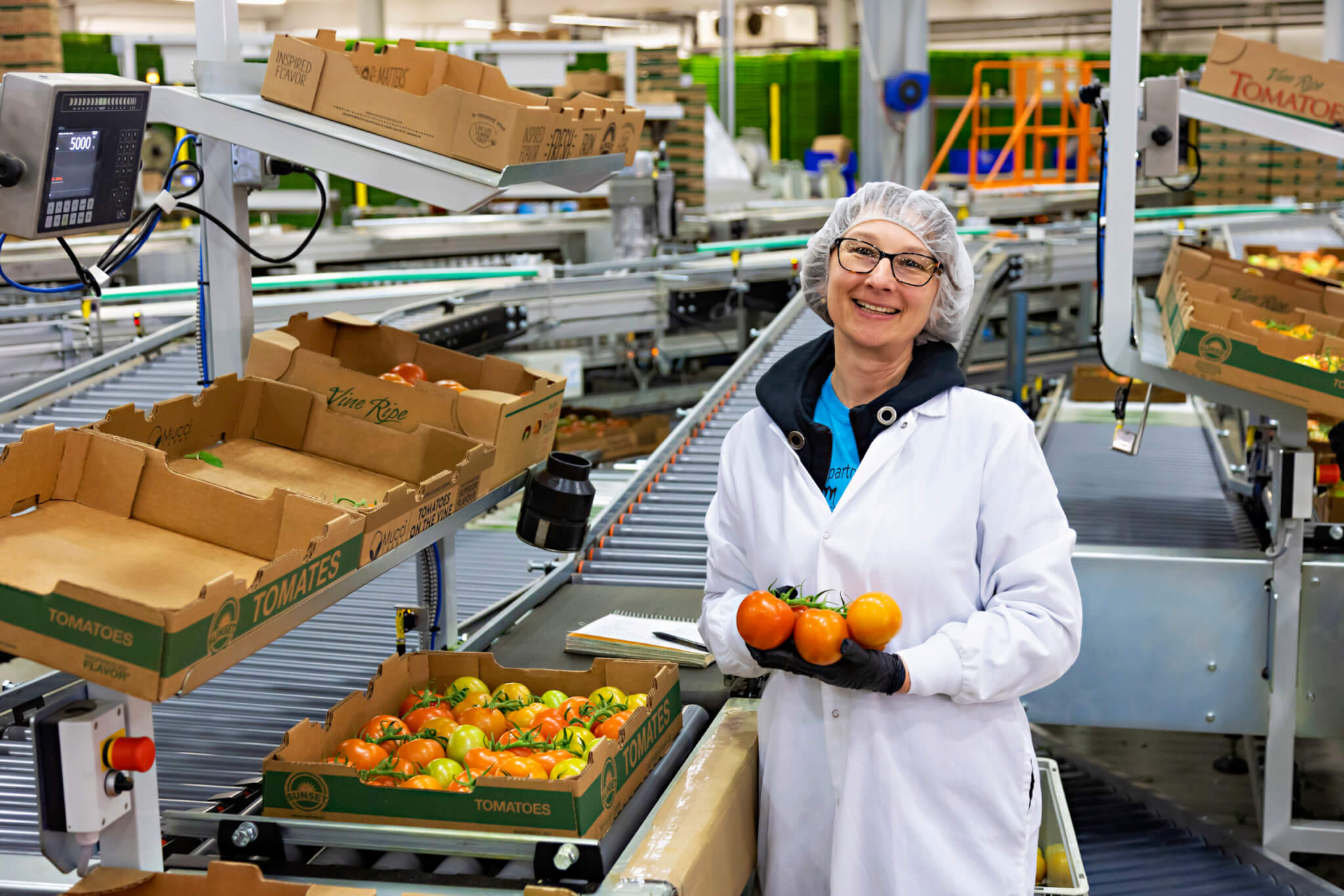
I have worked here almost six years. I started here in August 2017. I came to Canada from Ukraine.
We decided to come to Canada because of the war in Ukraine that was happening in 2014 We decided to find a perfect country for safety and live here like a happy family. We waited for five years to get to Canada. We tried a lot of way and we decided to get a study permit for my husband and a work permit for me and a study permit for my kids because they were young.
When I came to this farm I didn’t know English very well and only knew a couple of words. At first, it was not easy for me to learn everything and to understand everything. I did a very good job, I worked very hard and I went to school in the language centre and I am still there to complete my high level training. I do my best!
I have two kids, my son is 23 years old and my daughter is 16.
When I came to work here, I was a packer where I learned a lot about quality and quantity and I got a position as a quality line expeditor. I now check the quality before shipping.
We got good new that my family from Ukraine is coming tomorrow. My sister and niece will arrive tomorrow and then my daughter-in-law arrives the next week and I have never seen her before. This will be the first time I have met her, and I am so excited!
I came to Canada as a temporary worker, and we applied for permanent residency here. Last year we got permanent residency and bought a house. I love Chatham, I love Canada and I love the people. The people are so friendly and nice.
-Nataliia, Seasonal Agricultural Worker in an Ontario tomato greenhouse
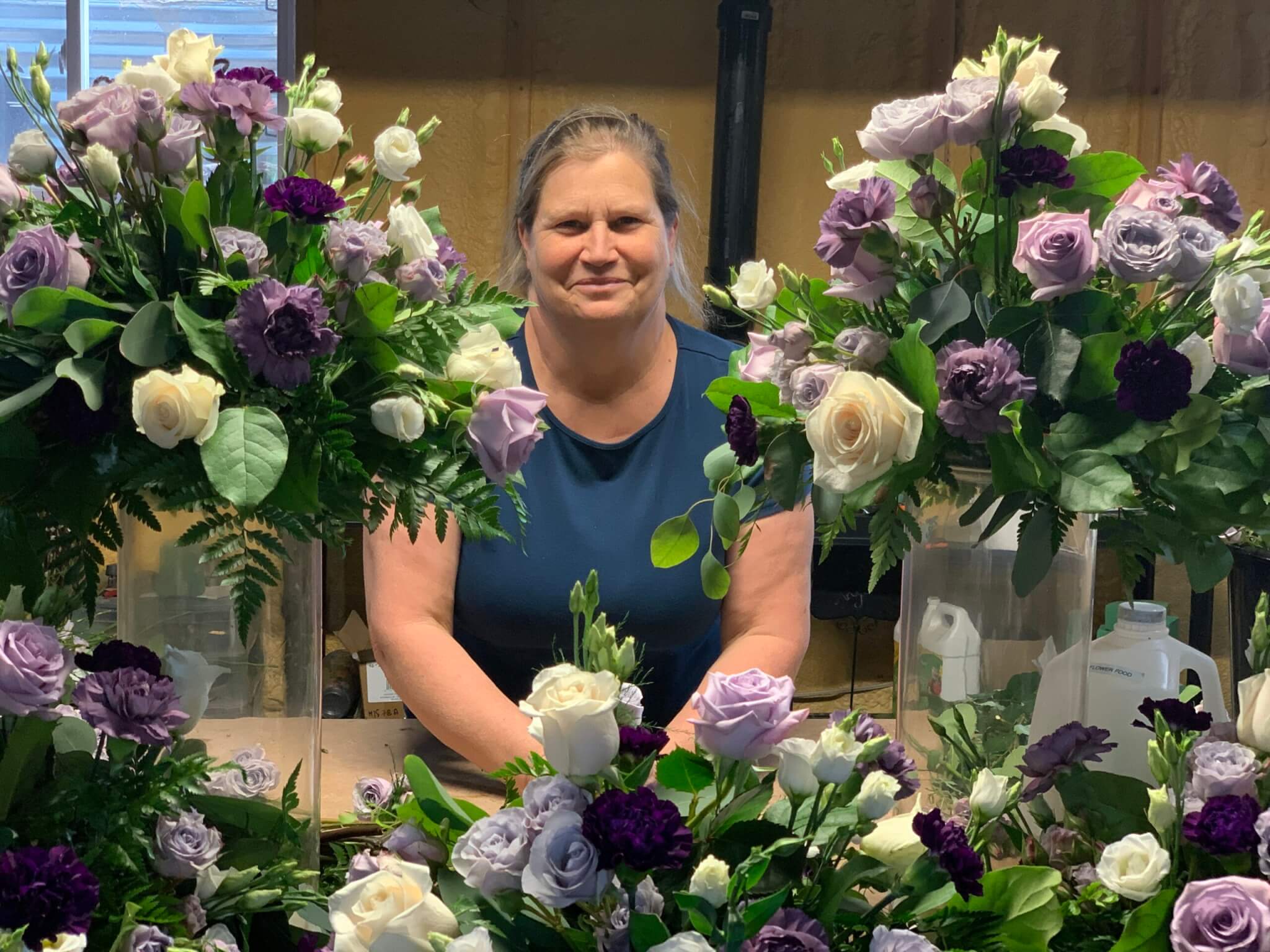
I was raised in town but my sister lived on a dairy farm and I’d often go to help – and I really liked it! So I decided to go back to college and study agriculture. That’s where I met my future husband who is the fifth generation of his family to farm near Georgian Bay, growing crops and raising beef cattle.
When I was younger, I took a floral arranging course and would help in a local shop on weekends. Then, when I moved up here, I started a cutting garden which has now grown into a busy florist business over the last decade. The first year, I did flowers for one wedding. The next year, there were 10 and now it’s 55 to 60 weddings a year plus a lot of bouquets for other events. A lot of female farmers in the area say they’ve never been treated so well by their husbands since I set up my business! On Mother’s Day, I’ve even been known to deliver a bouquet to someone driving a tractor working in the field!
I still have the cutting garden but now grow exclusively for my own orders. I love being creative and being able to make people happy. During Covid, I think florists were busier than ever. People couldn’t see each other but flowers were a great way of showing affection and sending happiness to loved ones.
Flowers have come a long way in the years I’ve been working in this industry – the colours and variety are so diverse. My favourite has always been the lily. I really like to grow it.
Our two children – Mitch and Kate – are also now involved in agriculture so it’s great to see the sixth generation of our family in the industry.
-Sarah – florist
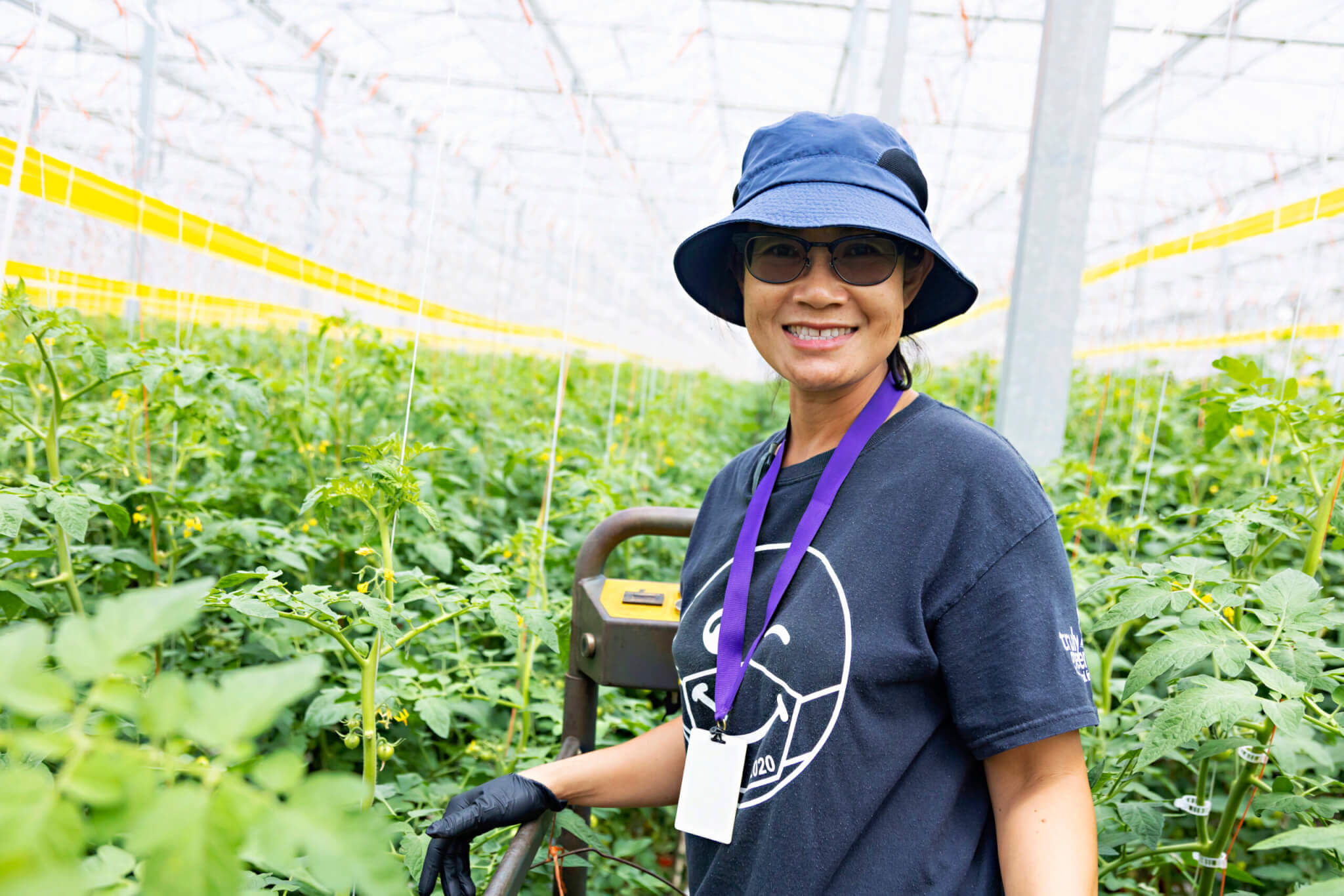
I am working in the greenhouse and am a crop worker, sometimes I am the Thai leader sometimes, I translate English for my Thai people.
I chose to come to Canada because it is a nice country. It is a good place to find a job making good money. I came here in 2006 and have gone back because we have three-year contracts. After I renew my contract, I can go back and visit my family for about three months and then come back. All my time here together is about 10 years.
My family back home is doing very well. My Mom is happy and stays with my son and they are together. My son just got a new job, he is 24.
I enjoy living in Canada, if I have a chance, I would like to live here permanently because it is a good place, and I can make more money to send home to support my family.
What I love most about my job is helping my people, my Thai friends. They don’t understand English very well and I am very willing to help them. I really enjoy this. This company is very good. They treat the workers very well and I also love Canada. All the people here work together, we all come from different countries. We have fun when we work. We joke, we talk, and this helps us to forget when we are homesick.
-Wanwipa, Seasonal Agricultural Worker in an Ontario tomato greenhouse
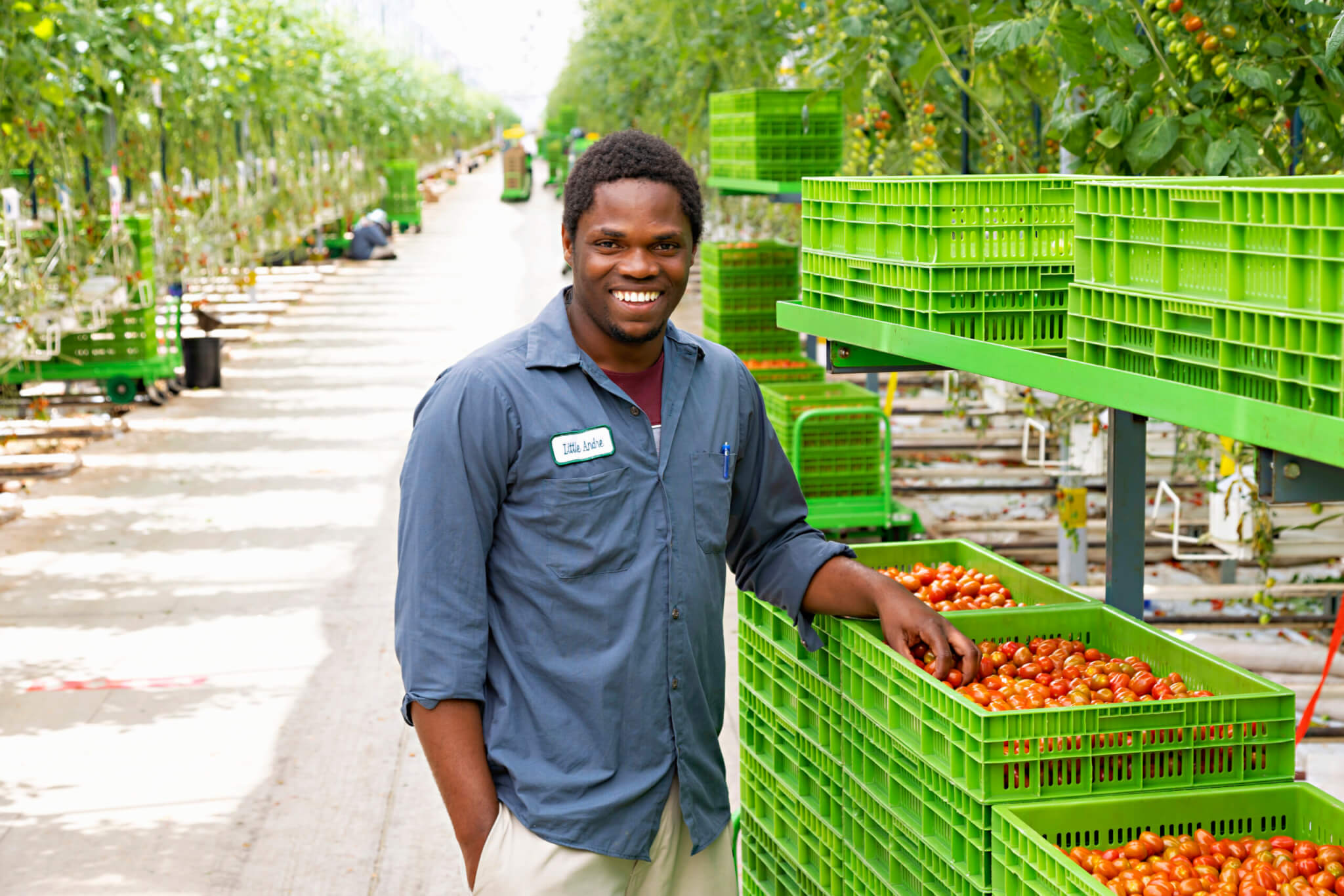
My name is Andre, and I am from Jamaica. I have been coming here for six years. I am an operator on the truck that moves tomatoes. I came to Canada to make life easier for me and my kids. My dream for my kids is to not live the same life as I do, I want to make it better for them.
Growing up my father was not around. I grew up with my Auntie, Grandmother and Grandfather and some older cousins and my Mom. I saw my father for the first time when I was about 12-13 years old. I had to stop going to school when I just turned 15 because it was so hard for my Mom to have the finances for me to go to school. I had to stop so my two smaller sisters could go. Things were not easy back then; it is better now. It is easier now because I am coming to Canada and my siblings have got bigger and everyone has started to work which makes things much easier now.
The reason I came to Canada is because I want to own a home.
Working in Canada allows me to share things with people back home, the money I make is more valuable there. This gives me the opportunity to see more things outside of Jamaica and have exposure to new things. I didn’t have any experience in greenhouses and working with people outside of the nation. Coming here and working and mixing with other people is a good thing so you can learn to appreciate people more.
-Little Andre, Seasonal Agricultural Worker in an Ontario tomato
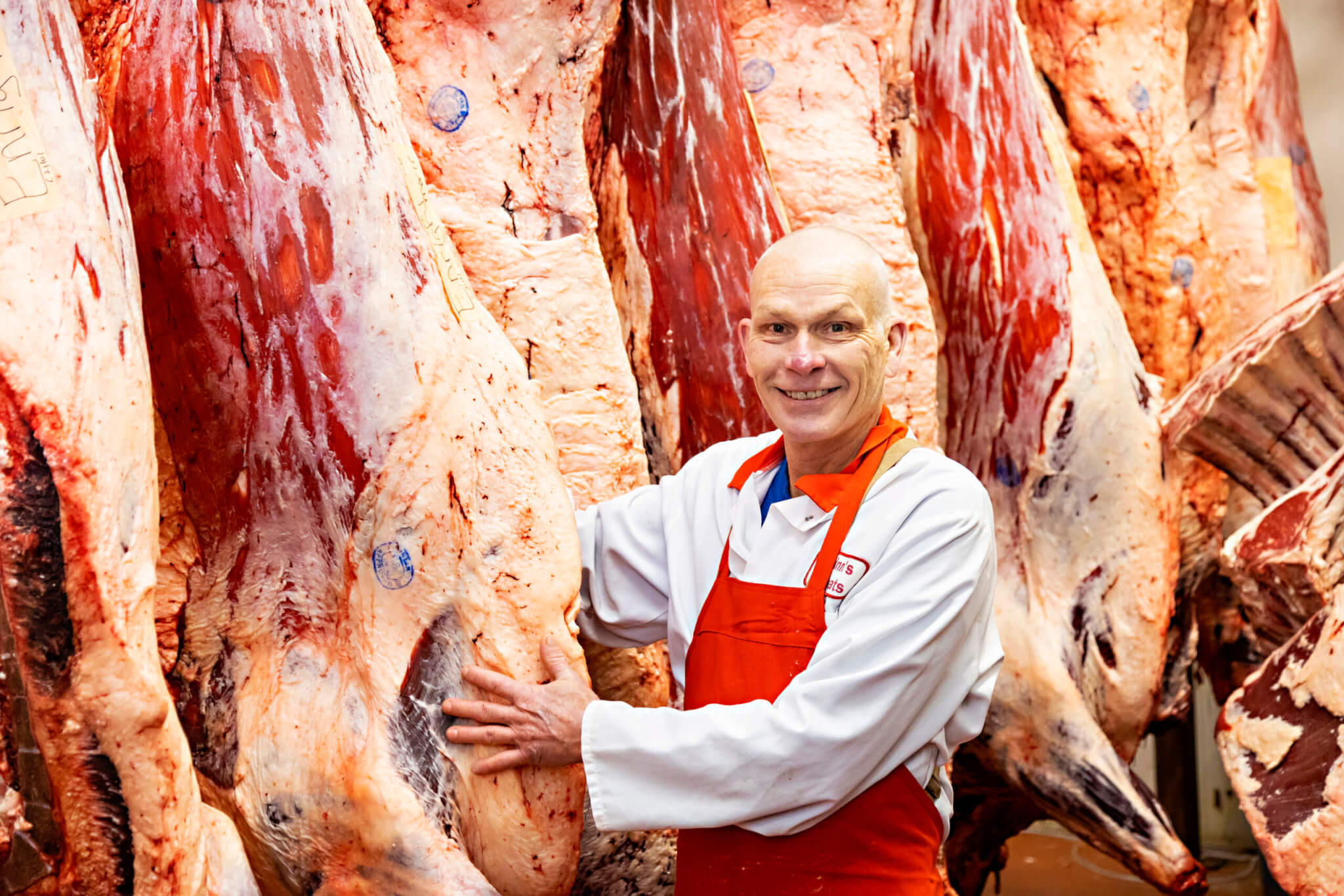
I went to school to be a butcher. Back then it was an apprenticeship program. I moved out west for a number of years to work in the oil patch as a precision driller and on off shifts, still worked at beef plants in Alberta.
I’ve now been here, working at Quinn’s Meats, as their Master Butcher, for about nine years. It’s a good trade – it keeps you young. I really like helping to train the younger employees. I won’t always be here and they need to know how to do what I do. I always lead by example. I think we have a good story to tell here.
We’re selling fresh, locally-raised products that have been overseen, by the same family, from birth to beef. People like knowing that about their food.
What else should people know about me? I’m colourful! And I love sports cars. I also play cribbage.
-Dave, Master butcher, Quinn’s Meats
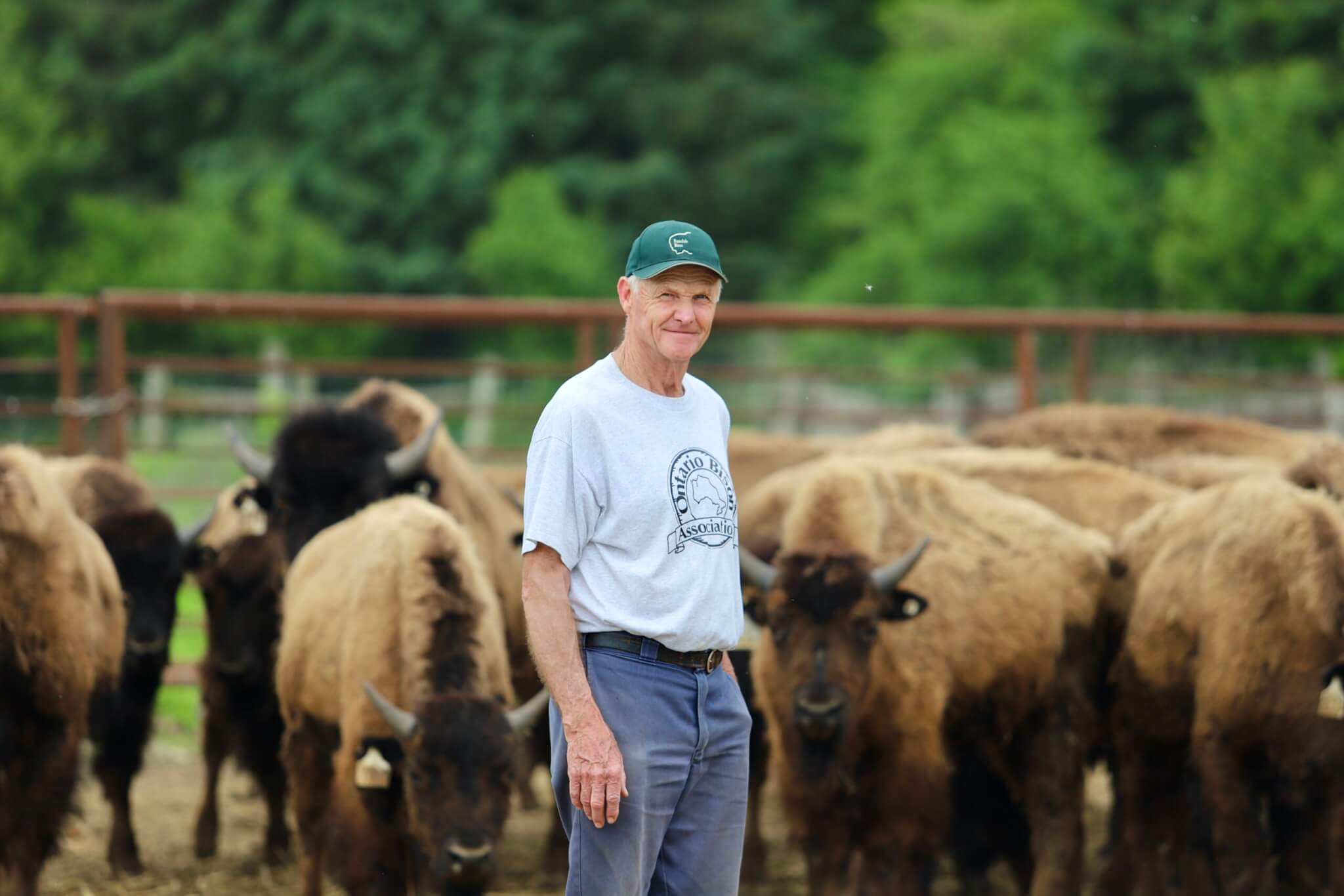
We’ve been raising bison on our Ontario farm for 30 years. My wife Shirley and I were both raised on dairy farms and were looking for something different to raise when we got married. There are about 30 bison farmers who are part of the Ontario Bison Association. We now have about 100 animals in the herd including a number of calves born this spring.
Bison are an easy animal to look after. There’s not a lot of work involved. They’re really healthy and rarely need a vet. When it comes time to give birth, the cow has her calf and there it goes – no help needed! You’ve got to respect bison; they never lose their wild instinct. The less they are handled, the better. An exception to that is Lucy. She was born blind and has become a bit of a pet on this farm. She loves having her head scratched.
There are two types of bison – Wood and Plains. These are Plains.
Because it’s a small industry in Ontario, farmers have to do their own marketing and promotion. We have been selling our bison meat at the London Covent Garden Farmers Market for over 20 years. And to a couple of local restaurants. It’s a great meat – its low in fat, lower in cholesterol, high in protein, and iron. The ground meat is awesome in so many recipes.
-–Bruce, Ontario bison farmer
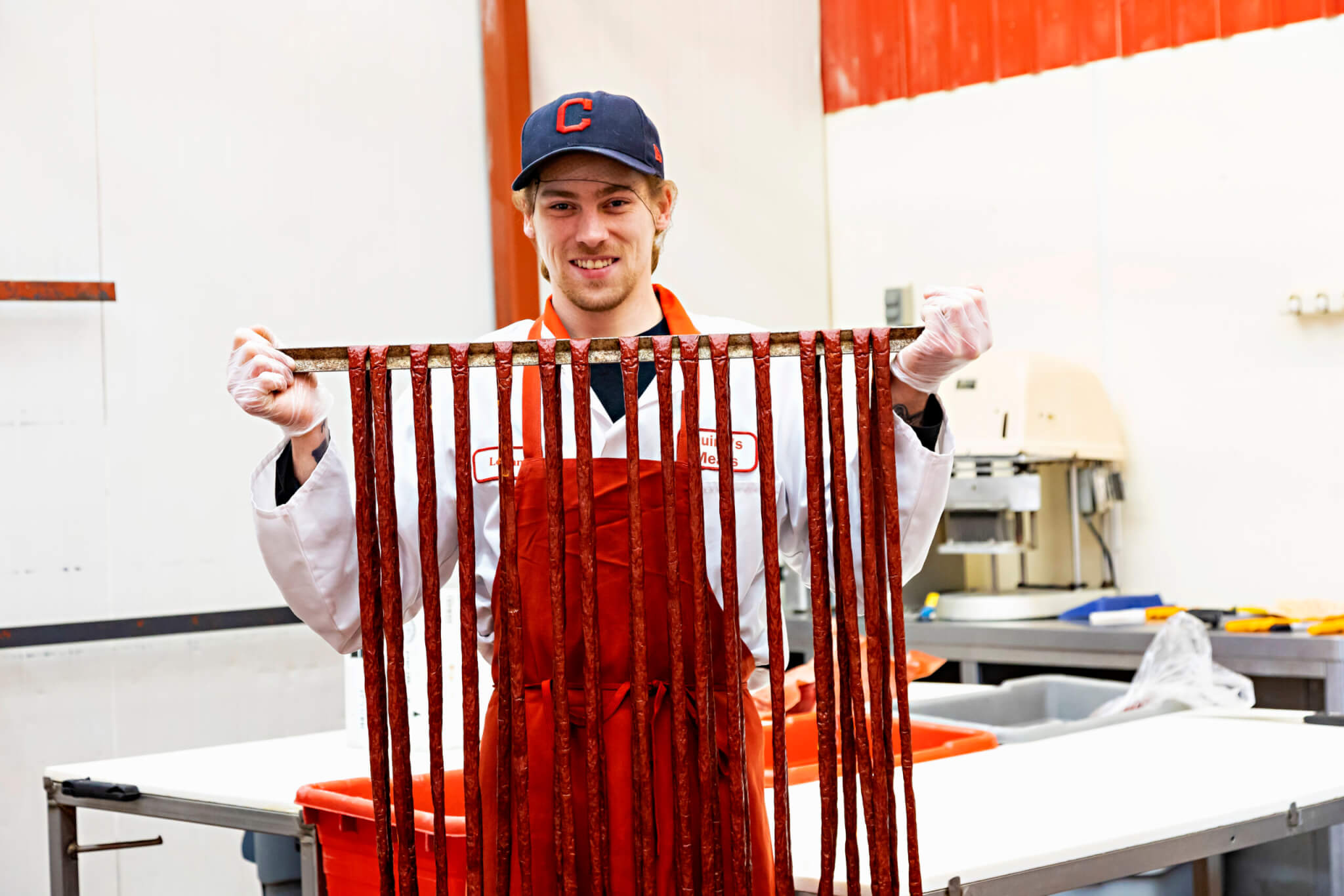
I have been working here since November. Before that, I worked in a grocery store cutting meat but when I was a kid, I wanted to be a super hero!
I’m really enjoying learning how to cut meat. It’s a skill that not many people know how to do. And knowing that the product I’m cutting ends up on people’s plates is great and is really important. A lot of our product goes into restaurants in the area.
For fun, I play guitar. I really like playing the blues – but it’s just a hobby.
-Logan, butcher
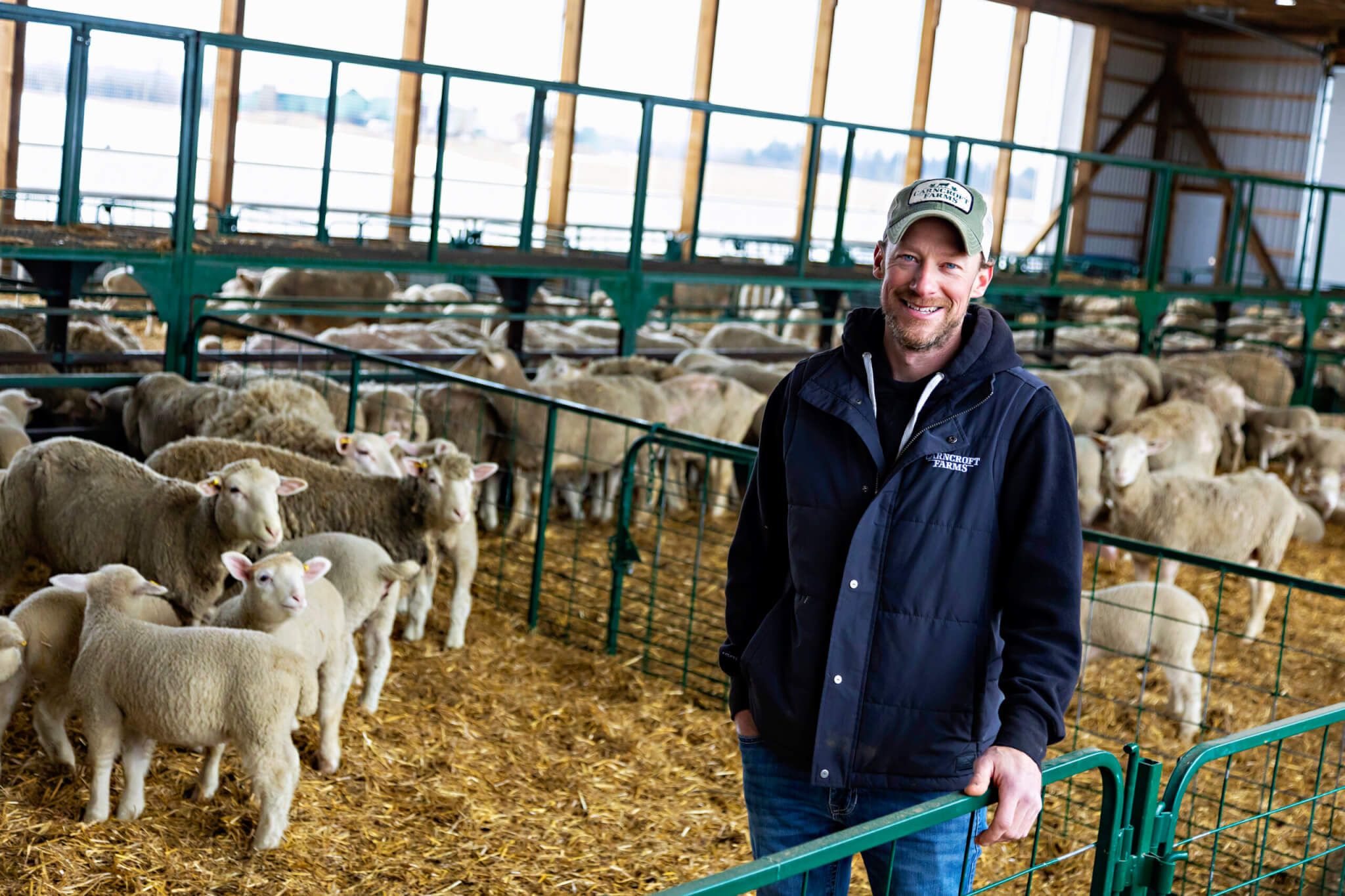
This was my grandfather’s farm. I grew up next door and have been helping to farm it since I was about 13. My grandpa passed away in 1996 and I started farming full time when I graduated from university in 1999. He’d be happy to see us raising our children here now.
We’ve just moved our animals into this new barn where we’ve got about 800 ewes (female sheep). It’s a great barn to work in and a really nice facility for our animals. There’s a lot of opportunity for Canadian sheep farmers. The demand is high for locally-produced product and the industry is really growing.
I like working with sheep because they’re easy to handle. Our three kids, Logan, Alissa and Bree, are also great helpers when they’re not busy in their extracurricular activities. We spend a lot of time taking them to hockey, gymnastics and cross country events. We also like skiing and snowmobiling together as a family.
-Luke – Shepherd
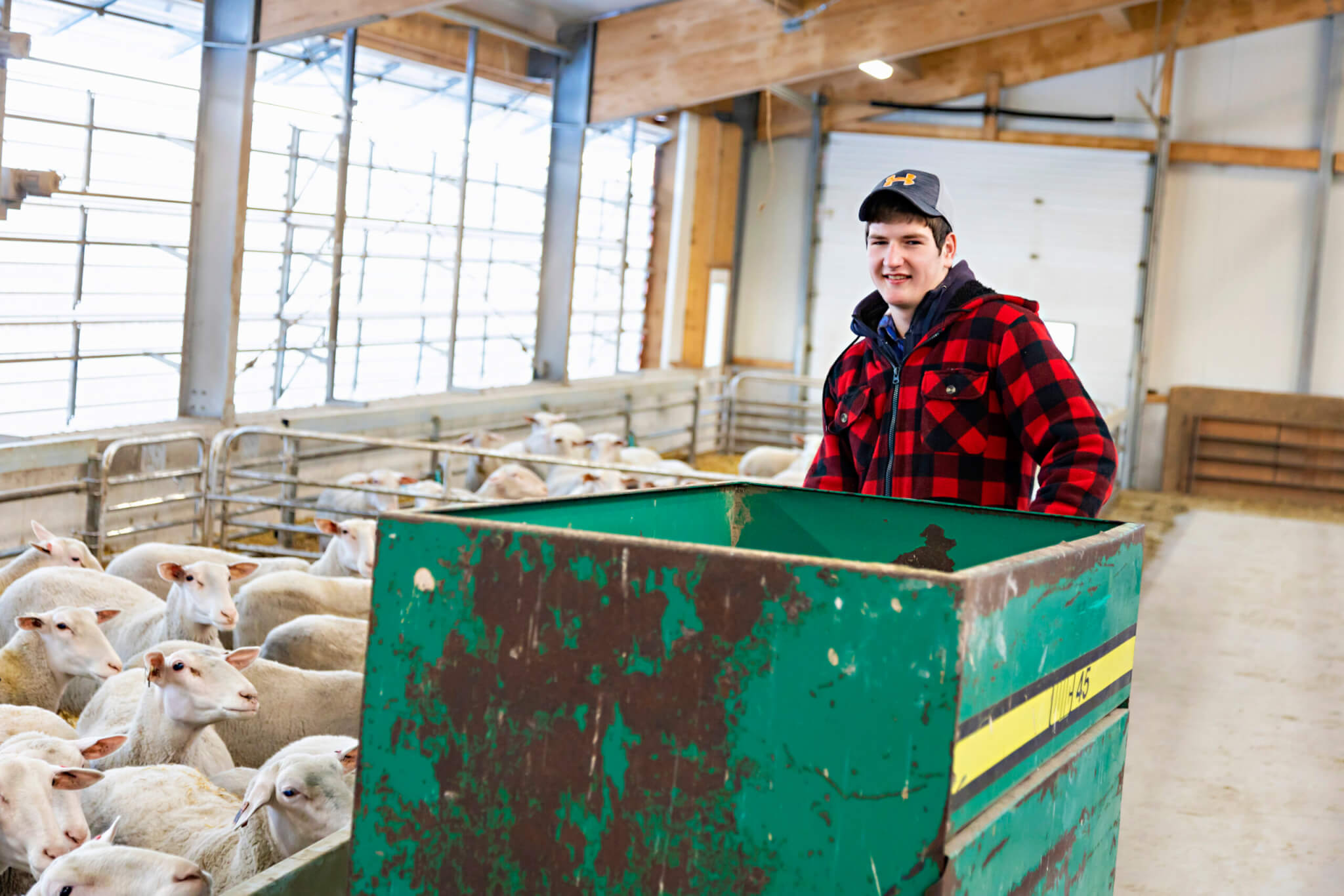
I get to do a lot of stuff on our family farm. There’s always work to be done. I do a lot of the feeding of the sheep and make sure they have fresh bedding too. I really like farming and I like working with sheep. They’re really easy to handle.
For fun, I’ve built a campsite at the back of our farm. It’s called Wudecoki – named for myself, my brother and my cousins. There’s a pond and a cabin and I’m currently welding a slide for the pond. It’s my favourite place to hang out. We swim there in the summer and skate in the winter.
-Connor, dairy sheep farmer, Ewe-nique dairy
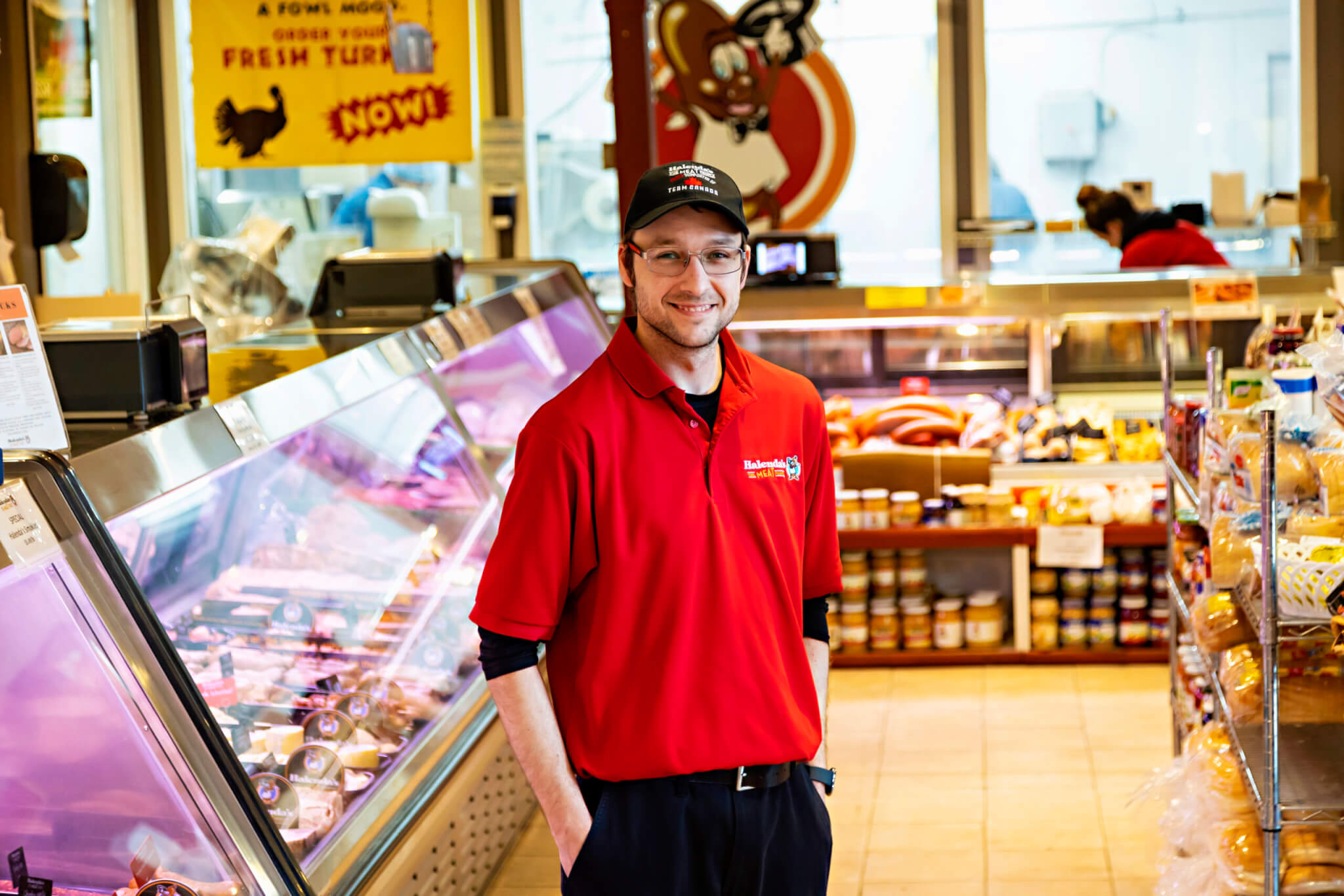
I grew up playing hockey with the owner’s son – and Halenda’s were sponsors of the team for many years. So, they’ve always sort of been part of my family. When I was offered a job working here, I couldn’t say no.
I like dealing with people so my role as a customer service representative fits well. And I also like that every single day is different.
In the early days of COVID, we were really busy as we worked hard to adapt to changing circumstances. People wanted to avoid big stores and wanted to know that retailers were looking out for them and their safety. That was important to us too.
I like answering questions of our customers. They often want to know if the product is local – or at least Canadian – and how it was produced.
When I’m not working, I’m a big gamer. I play everything. I enjoy binging TV shows with my fiancée. I’m also a big gamer and love playing Fortnite with my step sons.
-Jeff, customer service representative, Halenda’s Meats
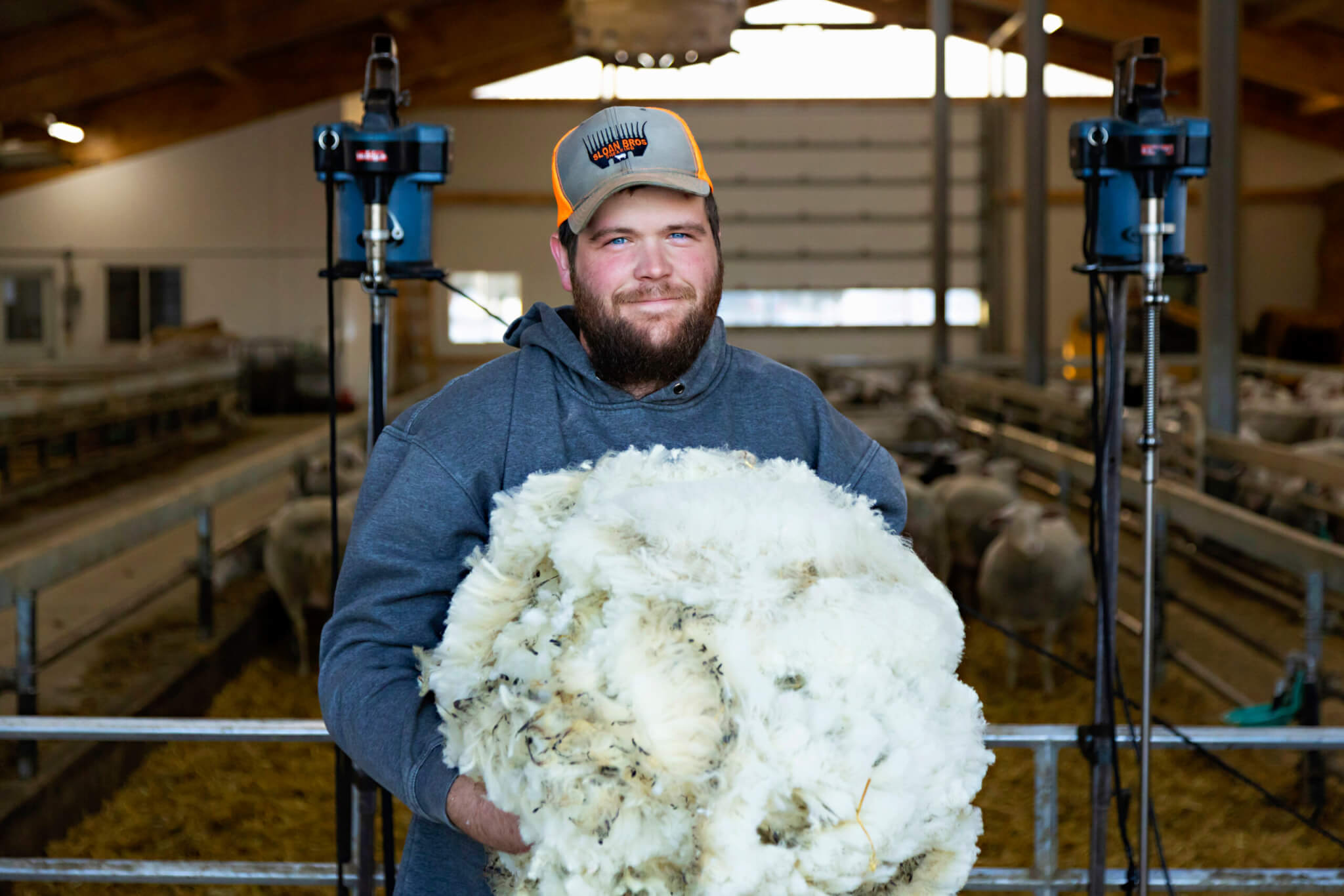
My name is Sam and I grew up alongside my brother on our family farm in Bruce County. We were home schooled which enabled us to get an early start at this sheep shearing career. I probably started when I was about 14 and I’m 24 now.
I like the fact that our job is different every day. We’re always seeing new farms and meeting new people. We’ve competed in competitions across Canada and the USA.
I won the senior category in the Eastern Canadian competition last year which was great. Contrary to popular belief, sheep need to be sheared to keep them healthy. It’s the equivalent of a haircut for humans and when done properly and on time (every 6 months to 1 year) can aid in the health and safety of the animal which is why the work we do is so important. My goal is to always keep improving – always working to shear the next sheep better than I did the one before.
Another benefit of shearing is having my wife Brooke help out as a wool or sheep handler.
-Sam – Sheep Shearer
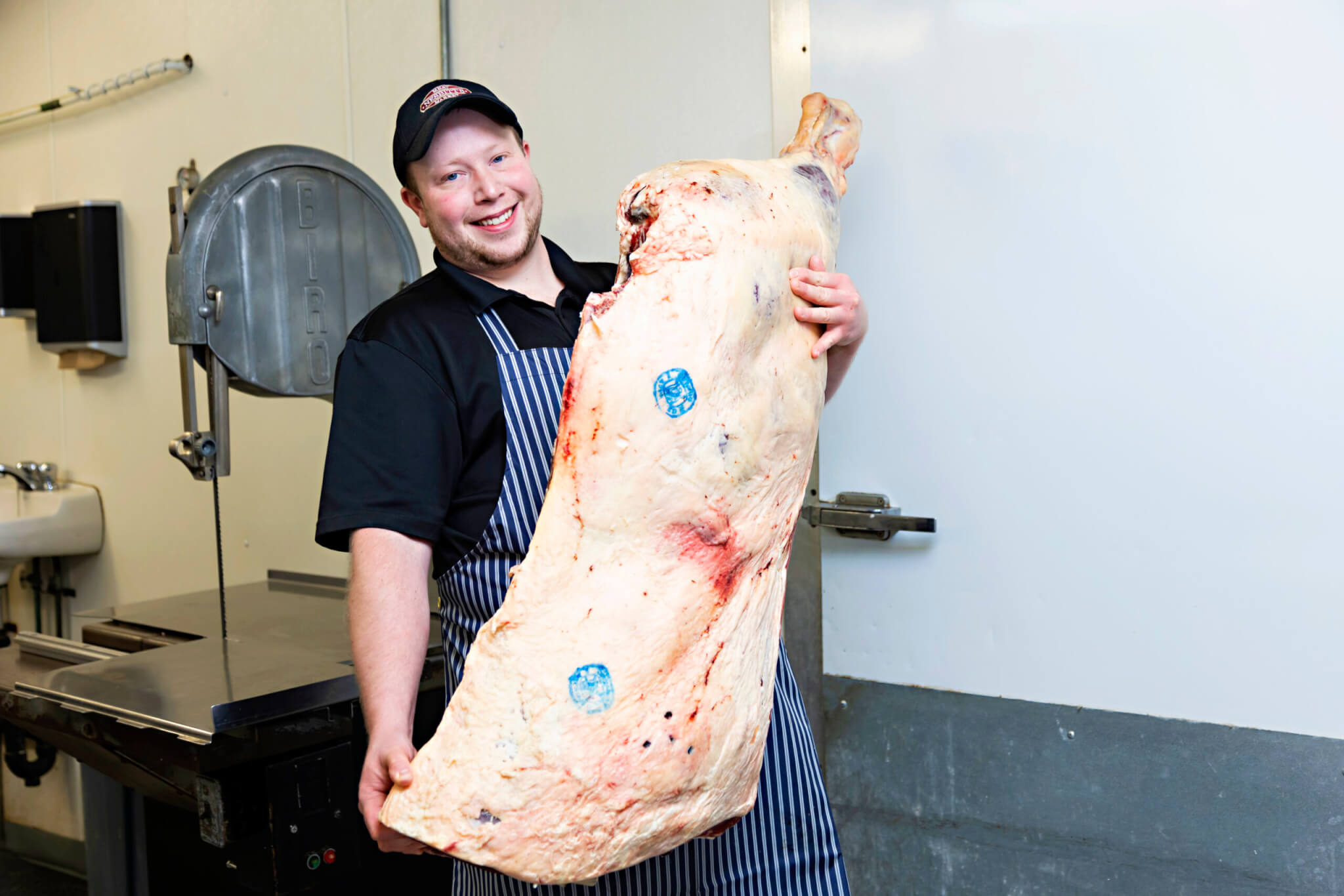
I started here as a cleanup kid when I was about 14 and worked my way up. I was raised in this town and just fell into this career. I went to the Seaway Valley Meat Cutting School and then apprenticed here. I’m now the head butcher.
I like answering customers’ questions about our local products. They often ask about what food labels mean or where the product comes from. I like everything we sell but if I had to choose, it would be the ribeye steaks.
For fun, I like anything outdoors. I love camping and four-wheeling.
-Paul, butcher
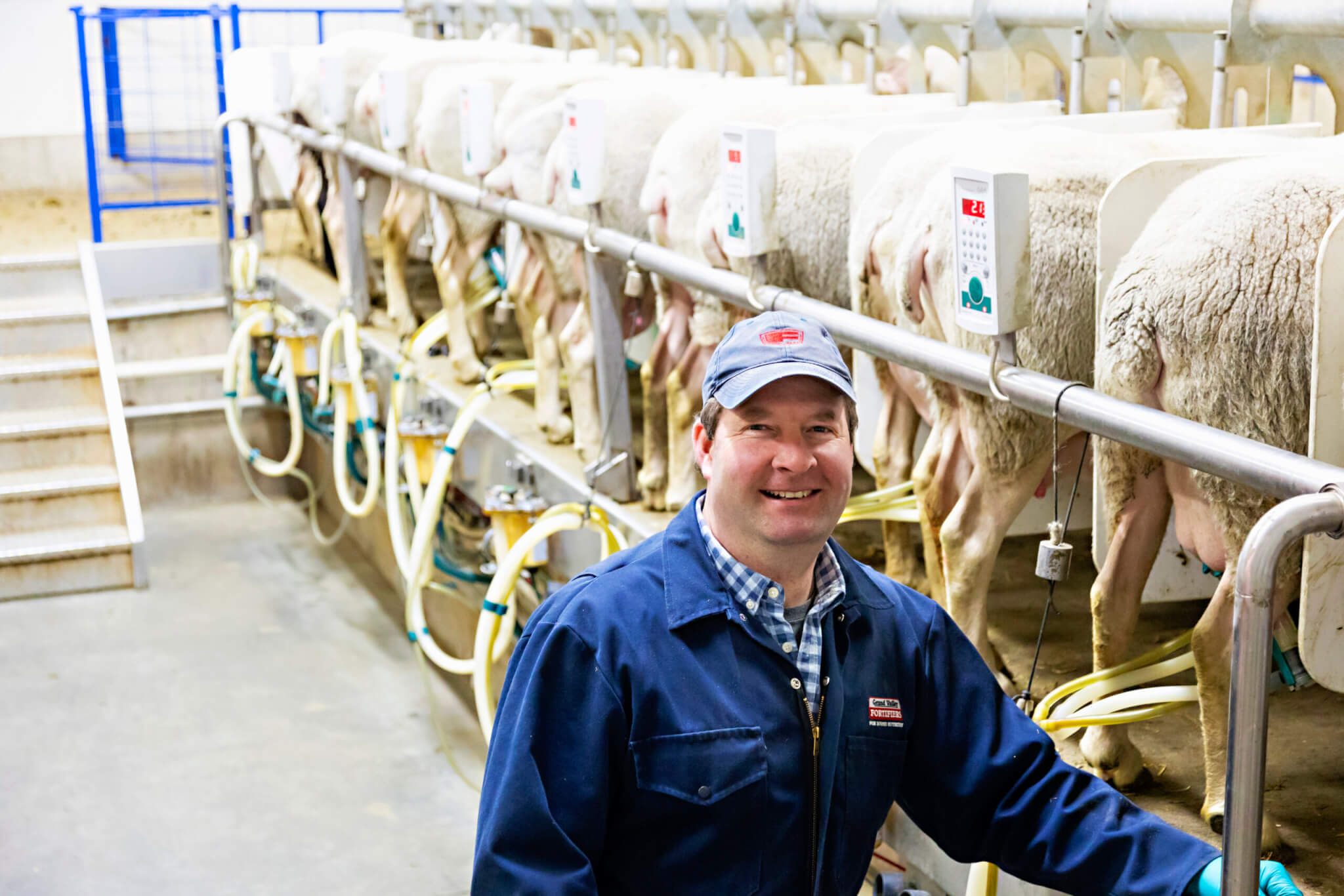
I really love the family atmosphere of our farm. It’s nice to go to work with my wife and children and sheep are clean and nice to work with. We have six children. Two work off the farm but help when needed; two are fulltime on the farm and two help before and after school. My wife and I were both raised on farms that had pigs and beef cows but we only started raising sheep ten years ago.
We now milk 220 sheep. Most people aren’t even aware that you can milk sheep. It’s a healthy, nutritious and easily-digestible product. Most of the milk goes to a processor to be made into feta cheese and then we work with a smaller processor to turn some of the milk into our own cheese.
-Mark, dairy sheep farmer, Ewe-nique dairy
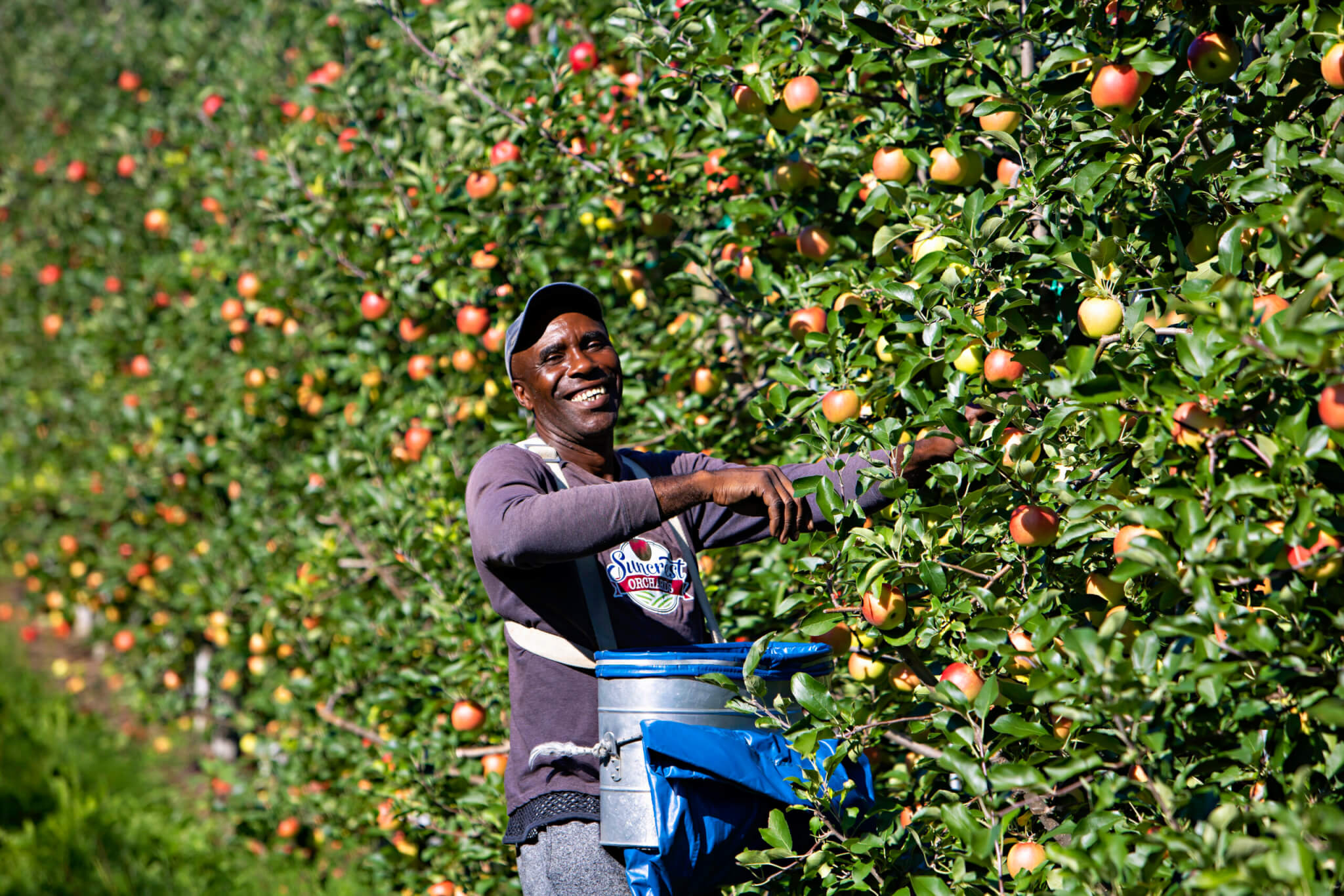
I’m Livian and I’m from Kingston, Jamaica. This is my 22nd season coming to Canada. One of my friends had been coming to Canada to work. He told me he was going to take a break and asked if I wanted a chance to go. I was doing carpentry work at the time and, at first, to be honest, I said no but Tony kept asking and I finally did the application.
I didn’t hear anything for a long time and finally gave up and went back to doing construction work. Then I got the call to do an interview. And then they called me to come.
Our kids were small at the time. I talked to my wife, Sherene, who encouraged me to give it a try and here I am after 22 years. She is an amazing woman. She absolutely supported me so I put all my effort in because I didn’t want to let them down. She is the backbone of our family. I talk to her every day.
Leaving them that first year was so hard. I didn’t know where I was going or what the job would be all about. But I was told that if I could work, this was a good place for me. I had a plan, stuck to it and it worked.
This program helped us put all four of our sons through school. If I were back home, I could never have done that. The oldest is an engineer in welding. The second one teaches in the army. The third is teaching English in Japan. The last is doing journalism at college. I’m very proud of them.
I’m just so comfortable here now. I never believed I’d be so comfortable in this job and in Canada. My bosses are like my dad and my mom. We’re all just like a family here.
-Livian, Seasonal Agricultural Worker on an Ontario apple orchard
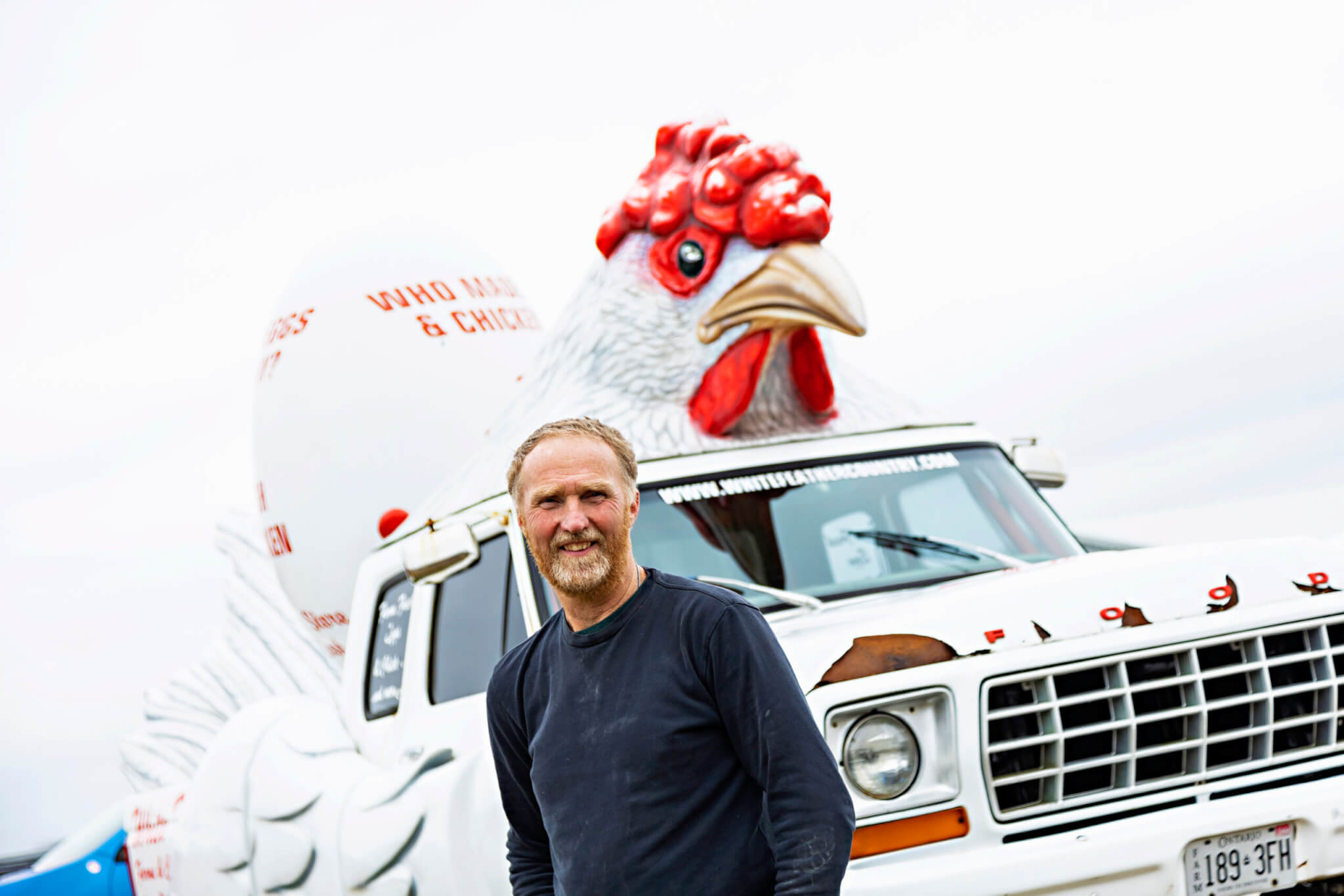
This truck is definitely a show stopper! Another local company had been using it before we bought it. It already had the chicken design – and we added the egg because our family produces both eggs and chickens. It’s a 1978 Ford ¾ tonne truck and it’s a lot of fun – even if the wings are on backwards! At the beginning, we did drive it – I remember driving it to my kids’ school! But now it’s mostly for decoration, sitting outside our family’s farm and retail store in Oshawa.
My parents emigrated here in the 50's from Holland and started this farm on a small scale in 1963. Next year will be our 60th anniversary on a farm outside of Toronto. The retail store was added in 1988 after years of our family selling products at the farm. Having the retail business also gives us a good opportunity to meet with customers and answer their questions about local food. After all, there’s nearly a million people that live within an hour’s drive of here. It’s a great opportunity to talk to them about farming.
-Hubert, Egg, Chicken and Crop farmer
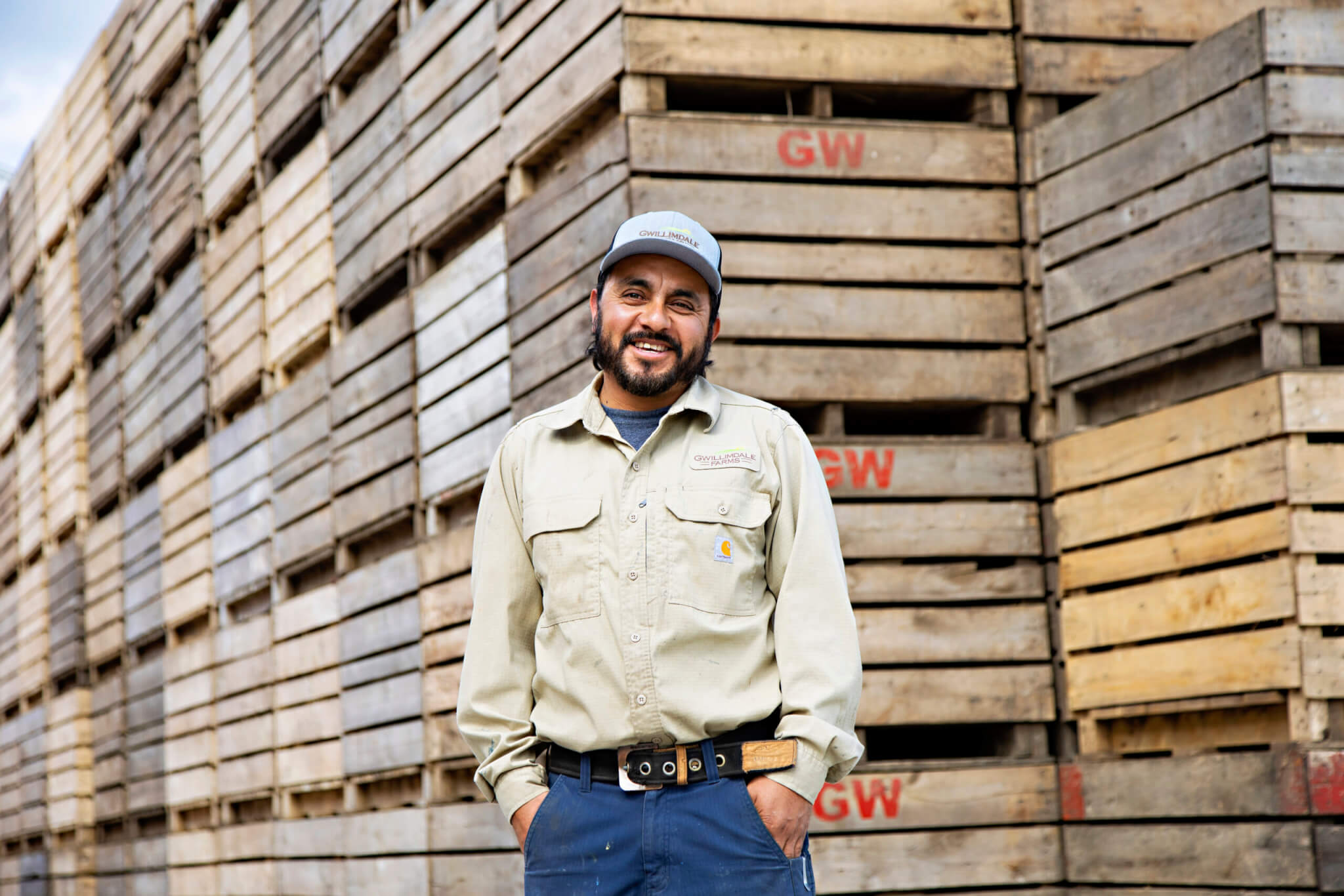
Coming to Canada to work within the program meant for me the realization of many dreams that I saw would be very difficult in Mexico. Like building my house – which is now finished. I have two children in college which also generates heavy expenses in Mexico. It is a great financial piece of mind. My children’s dream is to become professionals and mine is to have economic freedom as the years go by.
I also have a beautiful 8-yr-old daughter and my wife back home. I talk to them every day. They are waiting for me to come home with eagerness. The goodbye in the spring is the hardest. I come for approximately 234 days and every day is important. I do a job here that I like and that makes my life easier. It is harvesting time now and the days go by very fast.
I use my free time to talk with my family through WhatsApp, by video calls. I talk to them every day and constantly for any food recipes that I want to cook and I do not know how. They help me and motivate me. That is actually my biggest hobby, talking to them.
What I like most about Canada is its people. They are honest people. I see a lot of human warmth in them. I have worked in another country, but people here seem sincere to me. When people in Canada smile at you, it is a sincere smile. You can see the affection in their eyes. Mainly that, I would say the weather is a bit drastic for us, but you learn to like the winter. Above all it is the people, the warmth you feel here. You feel at home.
-Jaime, Seasonal Agricultural Worker from Mexico
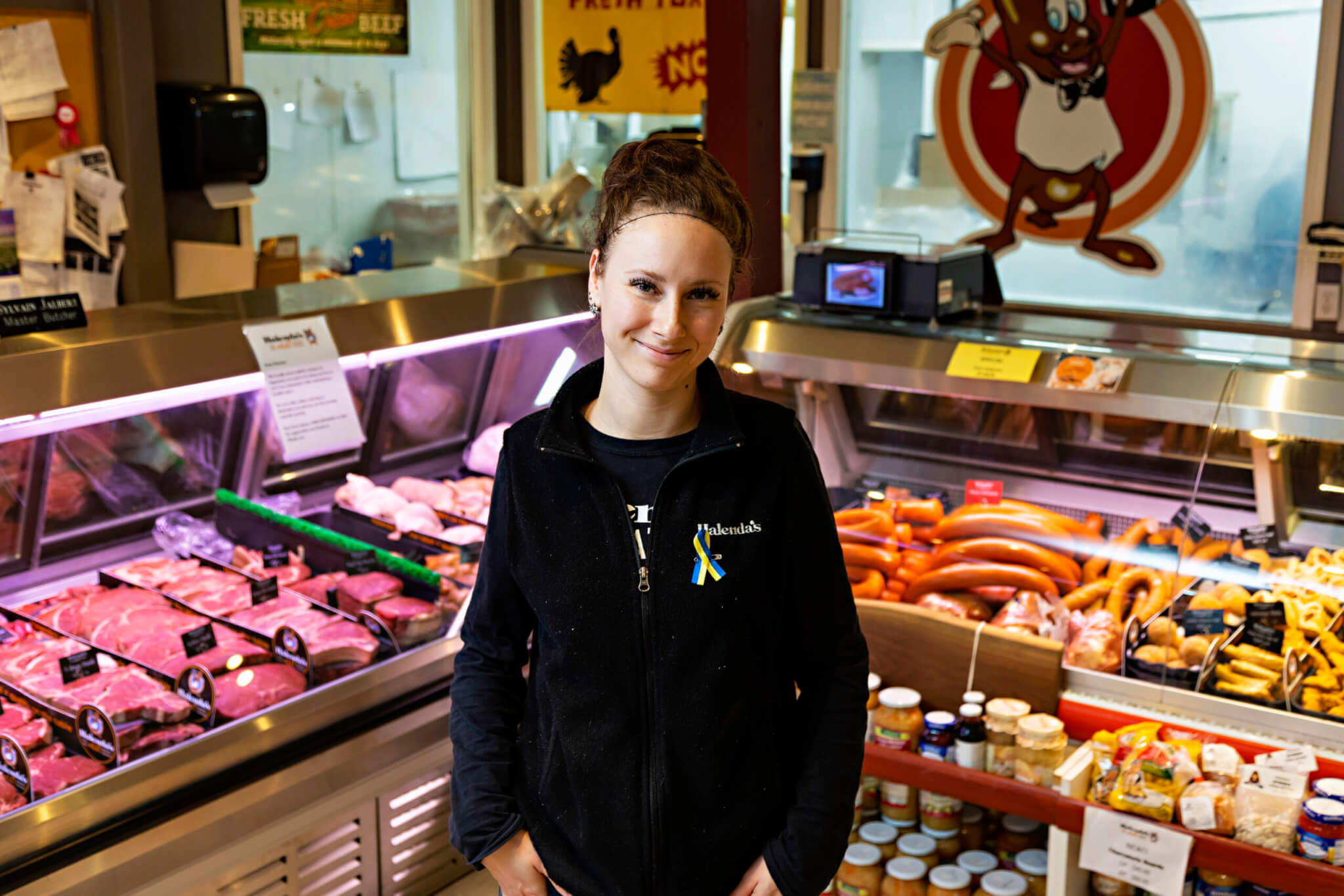
I was born in the Ukraine and moved to Canada in 2010 when I was 21 years old after my mom had moved here. I didn’t speak any English so when I got the job at Halenda’s in 2012, talking to the customers was a perfect place to practice! I am now a deli clerk in our retail store. I feel like it’s such a positive place. The customers are wonderful and we know most of them by name. Our product is also amazing. And when you have great products to sell, it’s easy to make your customers happy.
My favourite products are likely the Kobassa sausage and the chicken fingers – but of course there’s more!
I’m now married to a Canadian and we have two sons – age seven and five and a half. We love playing video games as a family and taking walks together.
-Anna, Deli Clerk, Halenda’s Meats
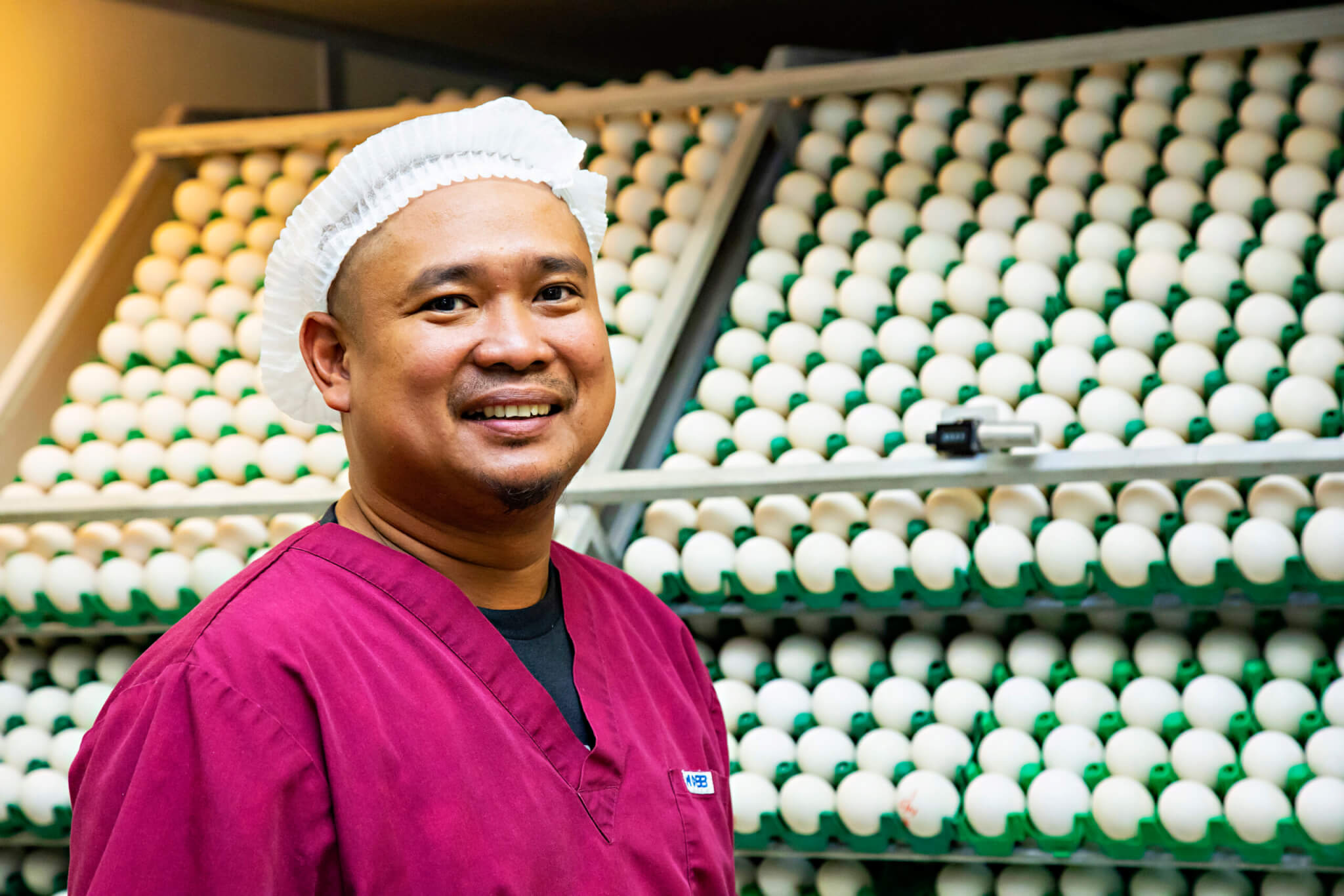
My wife and I met in the Philippines in nursing school. She immigrated to Canada two years before me. I had to stay behind with the kids until my paperwork came through but we’d talk every day. We came here through the Temporary Foreign Worker program and just got permanent residency this year. Hopefully, we’ll someday become Canadian citizens. It was a long hard process to come here but it’s all worth it.
My mother in law used to work at this duck farm and my wife works here too so the job was waiting for me when I arrived. I work in the hatchery, where the eggs incubate before being hatched as ducklings. I love the company and the way they treat their employees. When you see your boss working beside you, as hard as you, that’s motivating.
At home, we have a wet season and a dry season. We don’t have snow. After a couple of months of my first winter, I didn’t have that much excitement anymore for the snow!
-Arthur, Duck hatchery employee
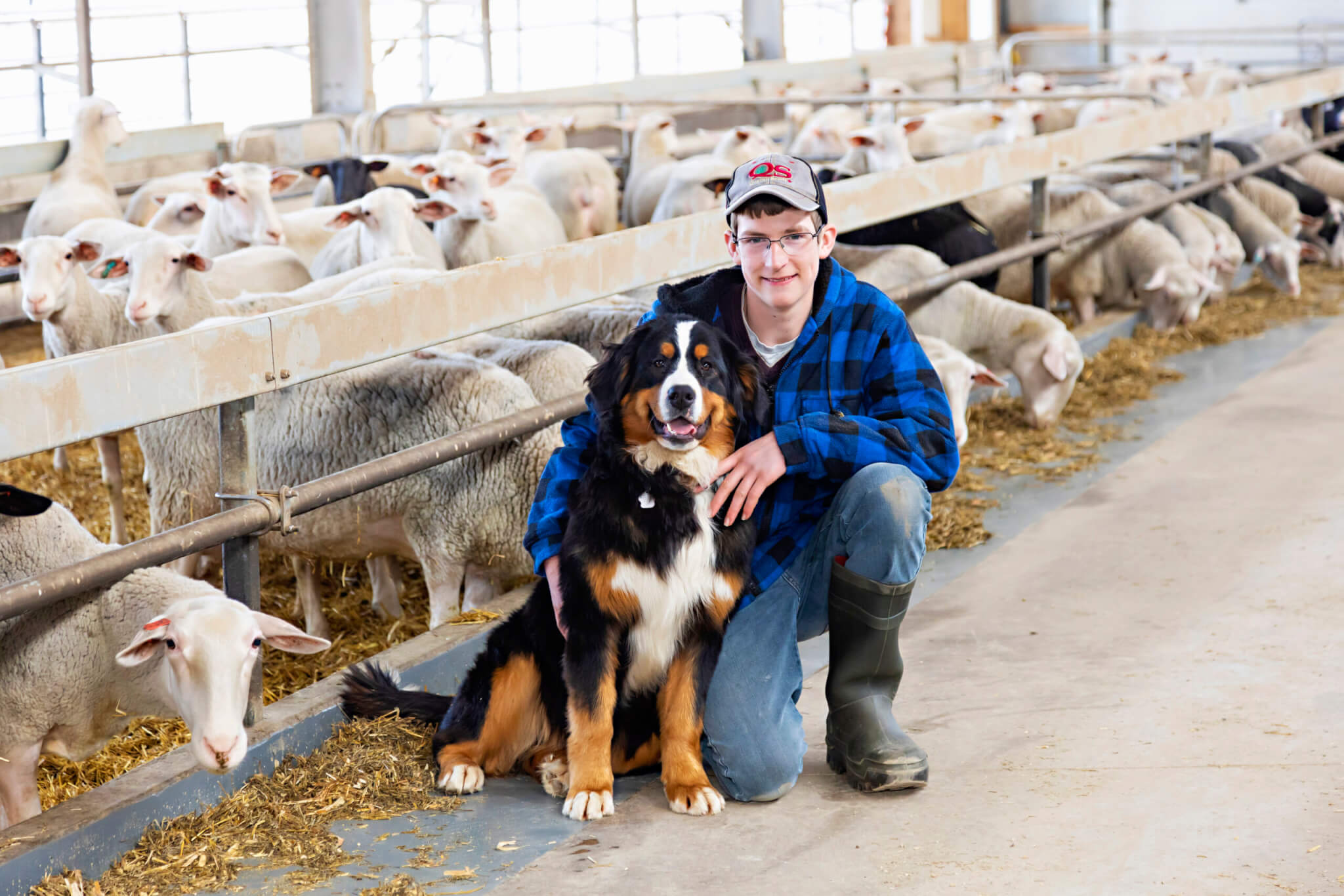
I’m in grade nine and hope to be involved full time in our family farm when I finish school. I really like working with sheep. They’re smaller and nice to handle. Cows are bigger and harder to work with.
I help with chores around the barn and with milking the sheep. We milk them twice a day, morning and night. Skorbit is my new puppy. He’s a Bernese mountain dog and he loves being in the barn with me.
-Delmar, dairy sheep farmer, Ewe-nique Dairy
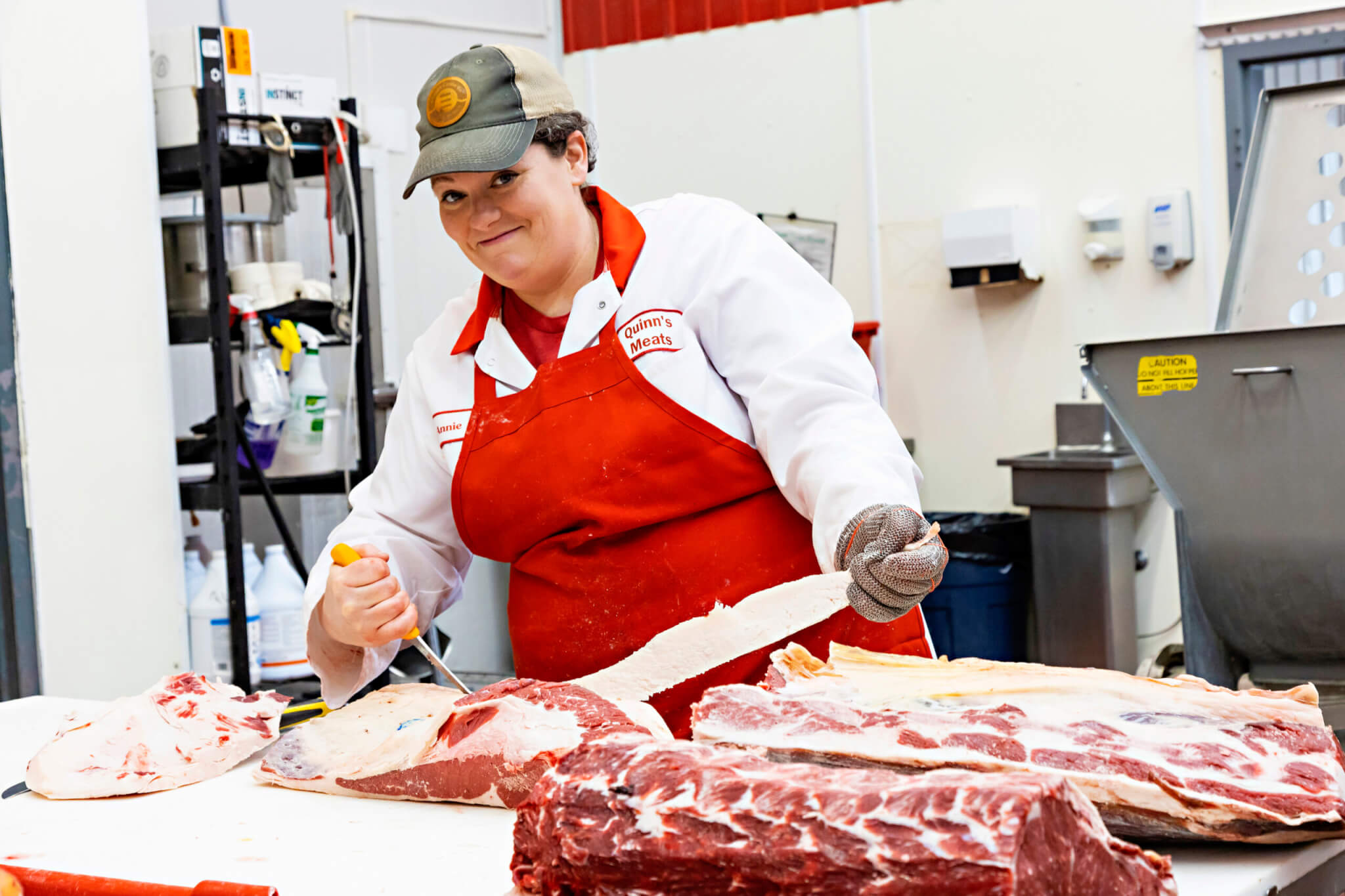
I started working for the previous owners of this butcher shop 12 years ago. They were looking for part time help. That part time work has turned into a great full time career. The staff get along great and they give me flexibility to care for my two young children, aged seven and four.
I’m now in training to be the company’s head butcher. It’s a hands-on learning process. I’ve been taught to always make that first cut count on a piece of meat – because that product will end up on someone’s plate and it’s got to be great. I grew up on a local beef farm. I’m the seventh or eighth generation of my family to be raised there and it’s still run by my mom and my uncle. I really like manual labour. I have to be doing something with my hands and here, there’s always something to be done.
It’s a switch in the career plans I originally had. I actually went to college to become a pilot but that’s an expensive career to pursue. A highlight back then was that I flew a small plane by myself on a flight out of the Kingston flying club. That’ll always be a great life moment to remember.
When I’m not working, I help on our family’s farm and love to garden, fish and hunt.
-Annie, Master butcher in training
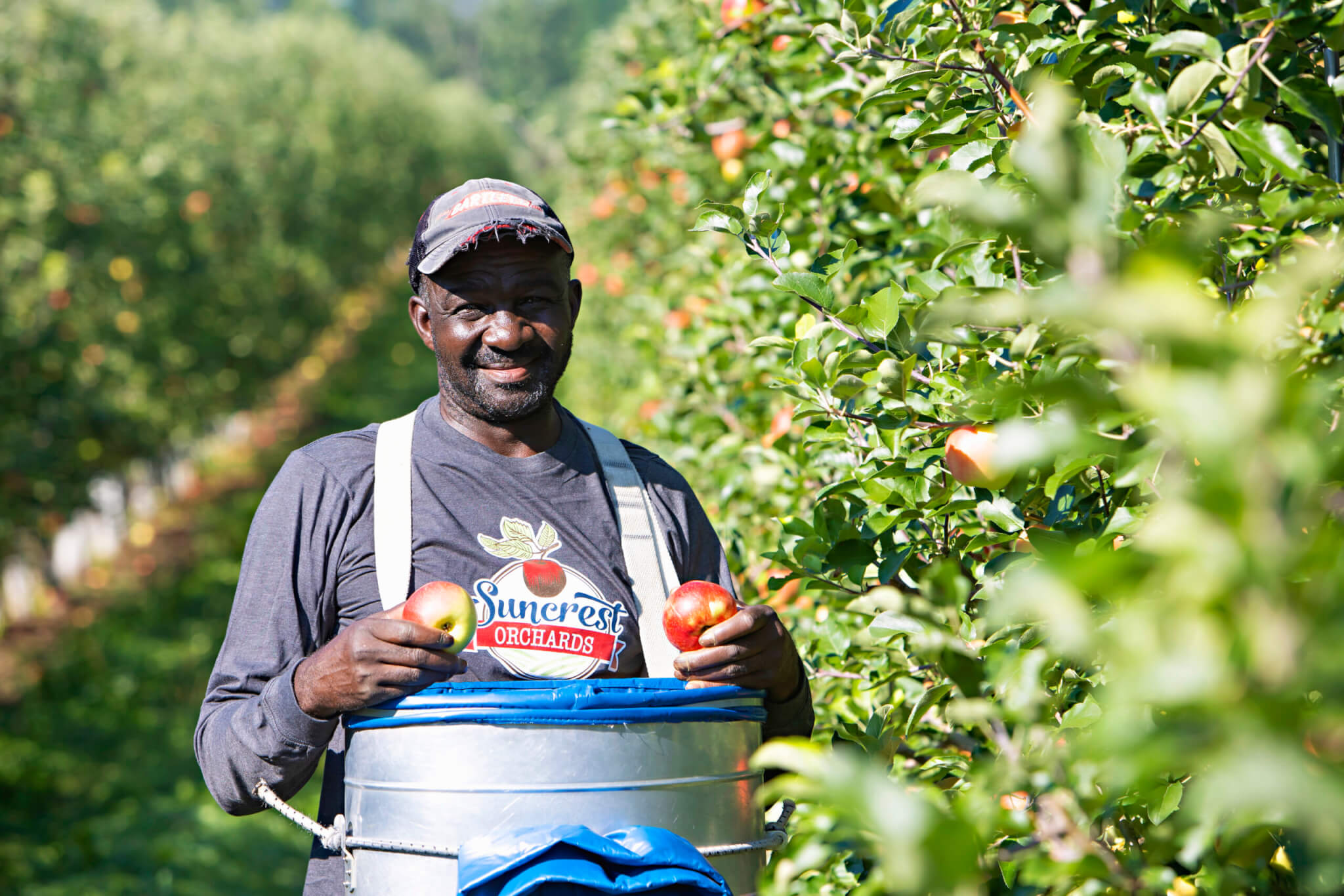
I’m George and I’ve been coming from Jamaica for 22 years. I’ve always been working on this same farm.
Here, I drive the trucks, prune trees and pick apples. Back home, I grow vegetables like cabbage and tomatoes and raise some goats.
We still have that small farm. My wife Olga runs it when I’m here. We also have two kids and two grandkids. We talk every morning and every evening. She’s a very nice woman. We’re good partners. She’s always looked after the farm and kids when I worked here.
When I’m not working, I like to listen to music. Bob Marley’s my favourite.
-George, Seasonal Agricultural Worker on an Ontario apple orchard
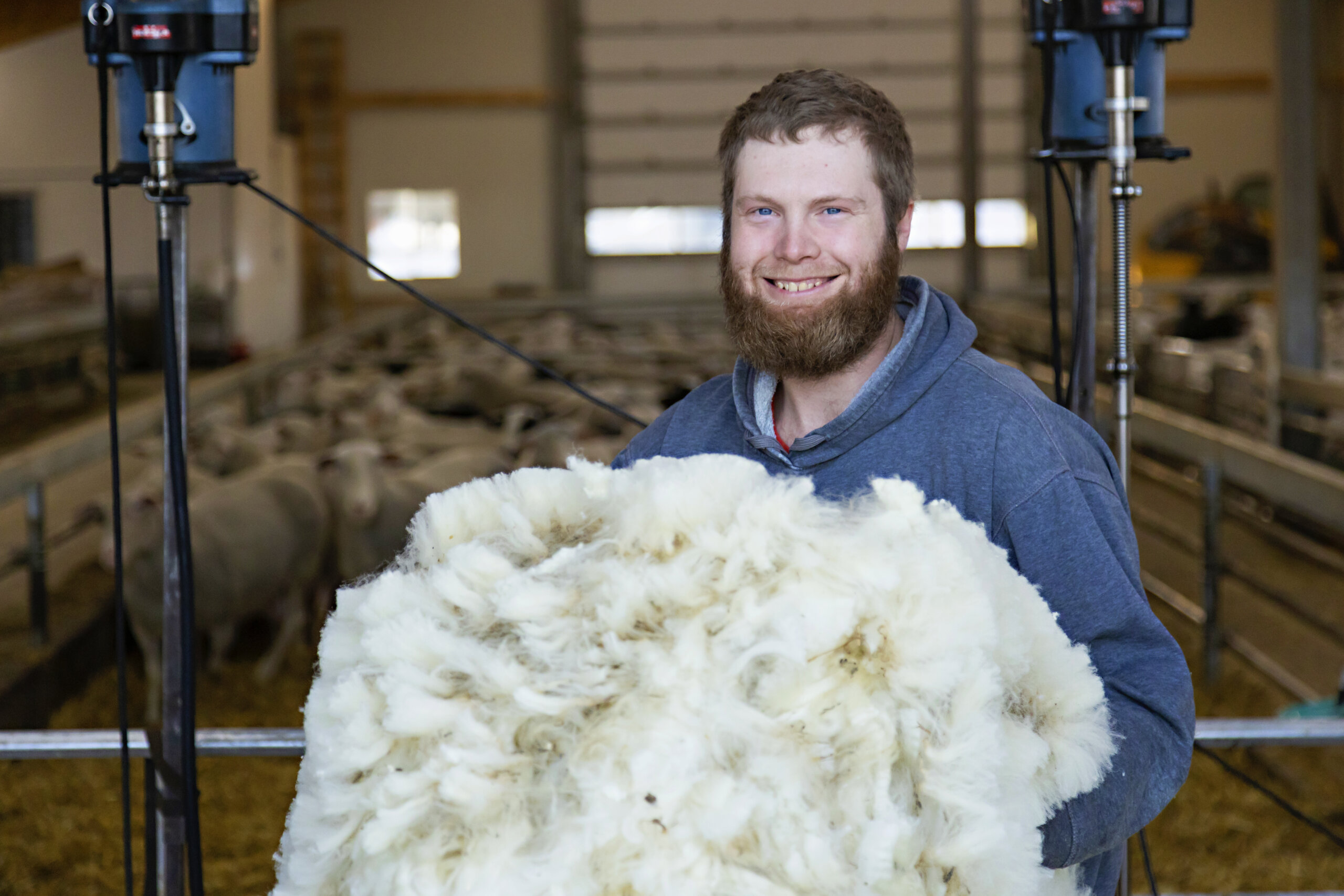
My name is Jake and I’ve been sheep shearing for 12 years now. My brother and I grew up on a farm with a mixture of livestock and crops and ventured into sheep farming in 2008. When it was time to have them shorn, we figured we could learn the skill ourselves and Sloan Brothers Shearing and Farming was born. We were lucky enough to have some great mentors along the way that trained and encouraged us. Since our conception, we’ve shorn an average of 29,000 sheep each year on hundreds of farms across Ontario, Quebec, South Dakota, Wyoming, and Montana.
In 2017 we also began shearing alpacas and llamas which was challenging, though a great change of pace/ scenery. We shear an average of 15 sheep per hour (30 sheep as a team).
Our work is in high demand. It’s an aging industry and there aren’t many young people like us in the business. We’re usually booked three months out and are already taking bookings for next year. The best thing about this job is I met my soon to be wife, Jasmin, while shearing.
-Jake, Sheep Shearer
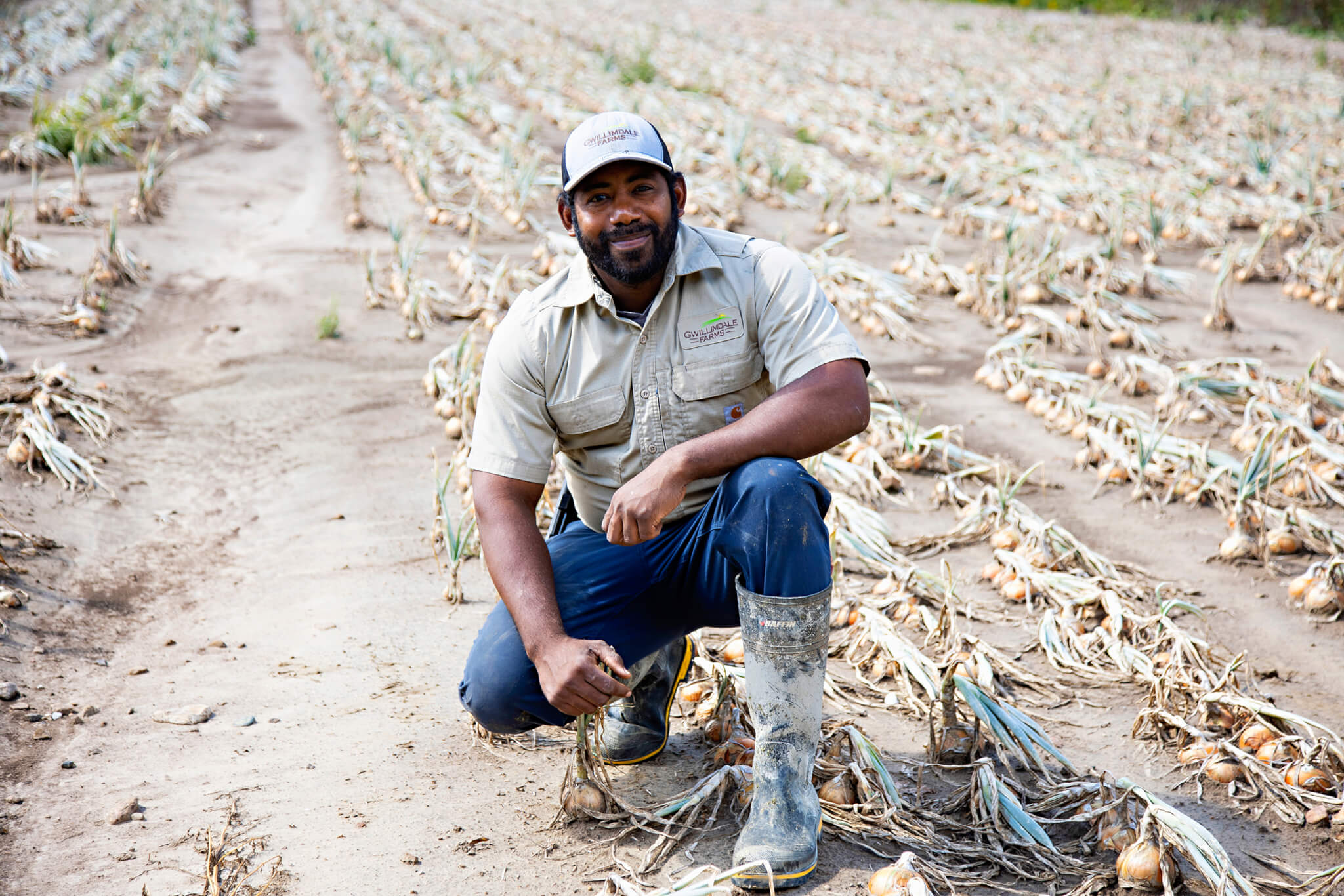
I’ve been coming to Canada from Trinidad and Tobago for about six years. My job entails whatever’s required of me on this vegetable farm. Packing, harvesting – the full works.
I knew of others who had come to Canada to work and they would come back home and build their homes and purchase nicer vehicles and maintain their families better and I thought I’d take that try. I didn’t get through the first time I applied but I got through the second time. My first job was working for eight months on a farm in Alberta.
2020 was complicated due to Covid. First, we had problems getting here. The Trinidad government was not allowing us to leave. And then when it was time to go back home, they wouldn’t allow us to return. By the time we would have been able to get home, the growing season was about to begin again here so we decided to stay all winter. It wasn’t as cold as some people told us it would be. Some people had described winter as this big monster but it passed by OK. It was a nice experience. That’s my second time experiencing snow. My first time was in Alberta.
My son Camden was born on the 26th of November last year and I was in Canada when he was born. This year, I’m hoping to get back home before he turns one year old. I’m really looking forward to that and to playing with that little guy.
-Ryan, Seasonal Agricultural Worker from Trinidad and Tobago
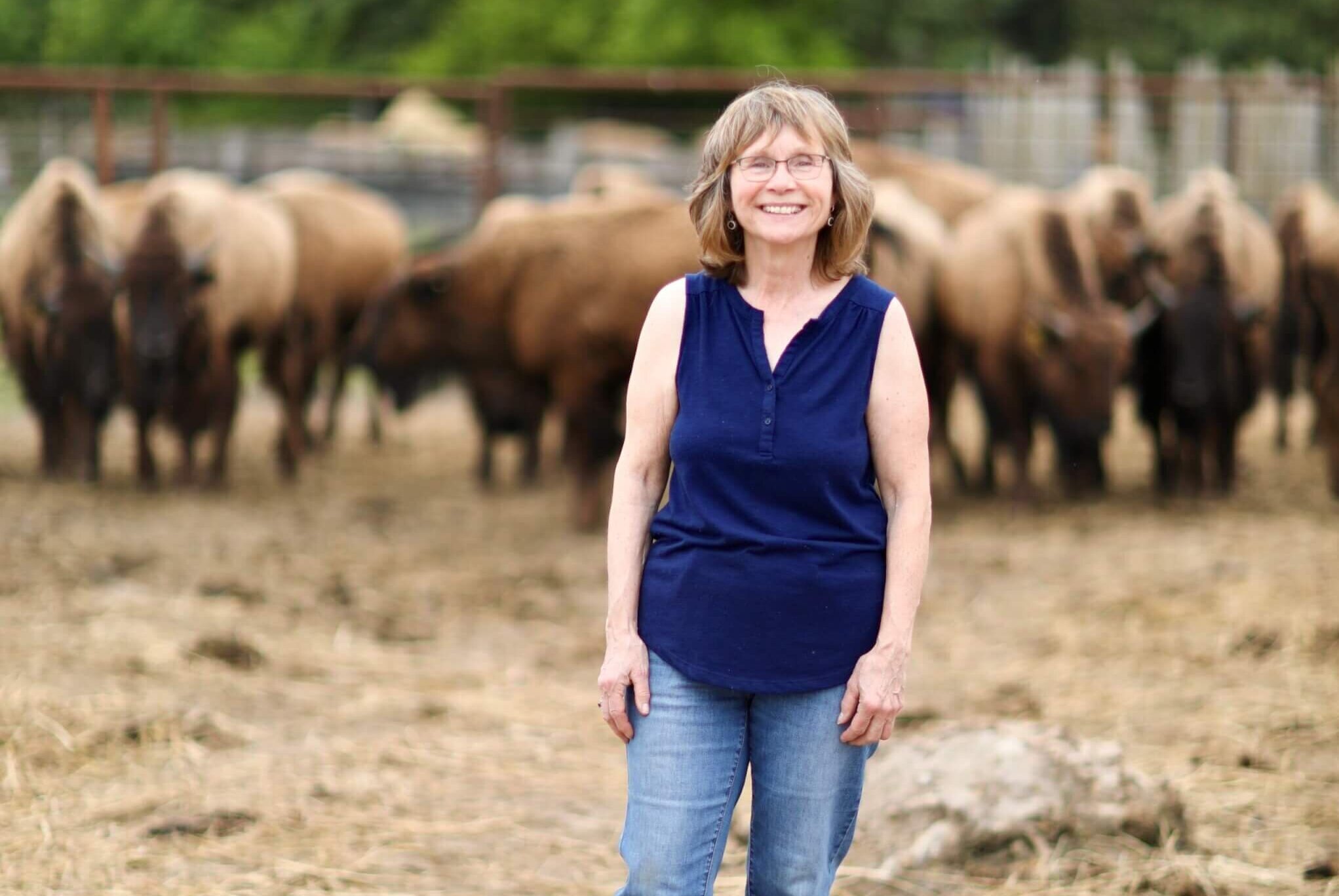
My husband, Bruce, and I started raising bison after we got married. We now have about 100 animals including a number of calves born this spring. There are about 30 bison farmers in Ontario who are part of the Ontario Bison Association.
We sell our meat at the London Covent Garden Farmers Market every Saturday. Talking to people about this great product and every new face is an opportunity to educate them. Our customers include personal trainers, families and individuals young and old. They enjoy the meat because it’s low in fat, lower in cholesterol, high in protein and iron. We also get a lot of new customers through word of mouth and through social media. Because we’re a smaller industry in Ontario, the farmers who are in it really have to work to promote and sell their products themselves.
I was raised on a dairy farm near here so knew what it was like to work with livestock. They’re really a majestic, beautiful animal.
My favorite way to use the ground meat is in lasagna. It’s not greasy and cooks up beautifully.
-Shirley, Ontario bison farmer
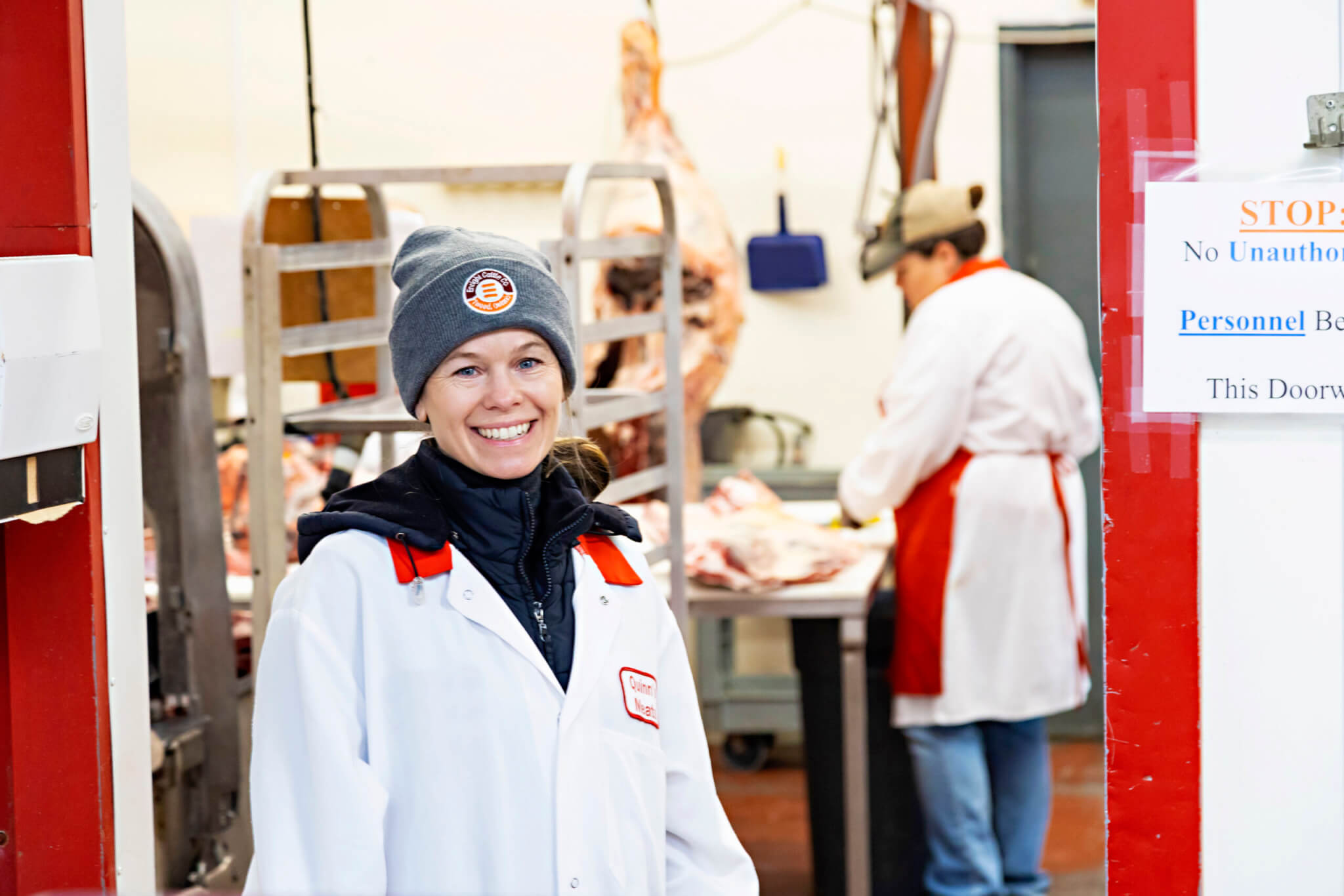
Our family are fourth generation beef farmers who have always made sustainability a priority. Our crops feed our animals; our animals feed us; their manure feeds the fields, and so on. We’ve sold our products locally for years and, as demand for our products grew, we were having problems getting our beef processed locally.
We had heard that this small abattoir was for sale and after touring it, talking extensively to the owners and a lot of contacts in the industry, we finally made the big decision to buy it. We had no experience running a butcher shop ourselves so it’s been a huge learning curve. We’ve got a great staff team though who have lots of experience and have helped us get through the transition. And we’re always looking for more energetic people who might be eager to join our team. It’s been over a year now since we took over the butcher shop. I feel like I spent much of it in a fog because we were just so busy. But now we are starting to see the light.
I’m proud that we’re a family business all the way through the process. My parents help raise the cattle. My husband, Darold, works on the farm and helps with the butchering process. My mom and mother-in-law help in the store and our two children – Corben and Evelyn are also eager to help. They often come to the store on Saturdays.
-Kara – Beef farmer and butcher shop owner
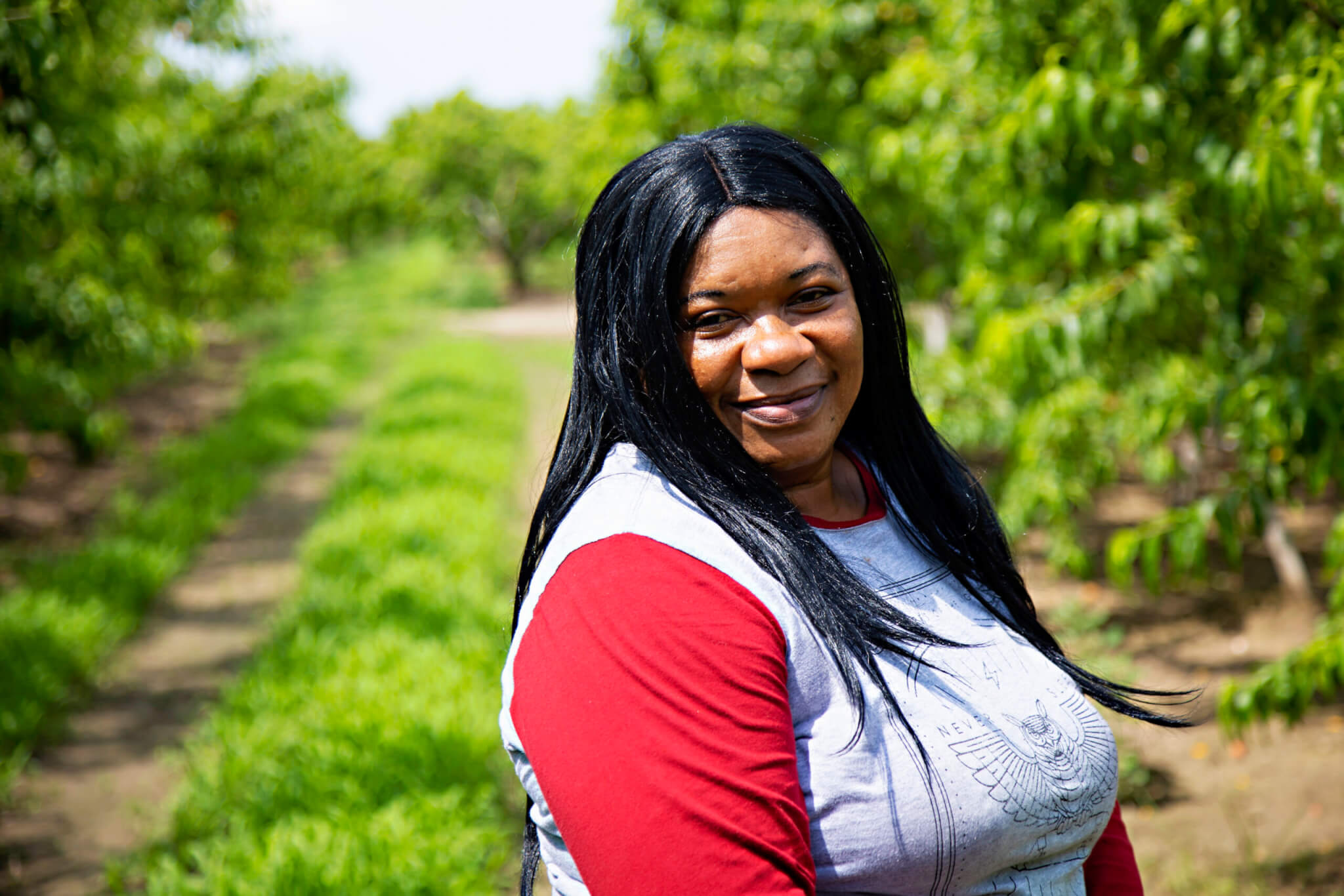
I’ve been coming from Jamaica to work on this peach farm for 22 years. I heard about the program from my MP. I was pleased to be chosen. Not everyone gets selected. It seemed like a good way to help my family. I’ve got four children. Working here helped them go to school. Three of them now live in the USA.
I’m known for my restaurant and my wig collection. I like to cook and back home I have a restaurant called Dimples Restaurant. We serve a lot of things – like pork, rice and peas, steamed fish with crackers and more. I like cooking here too – and sometimes I sell my food to the workers.
I also own about 25 wigs. They’re all different colours. I think I bought my first one when I was about 19 to go to a wedding. I buy them at different stores and I love wearing them.
-Desrine, Seasonal Agricultural Worker from Jamaica
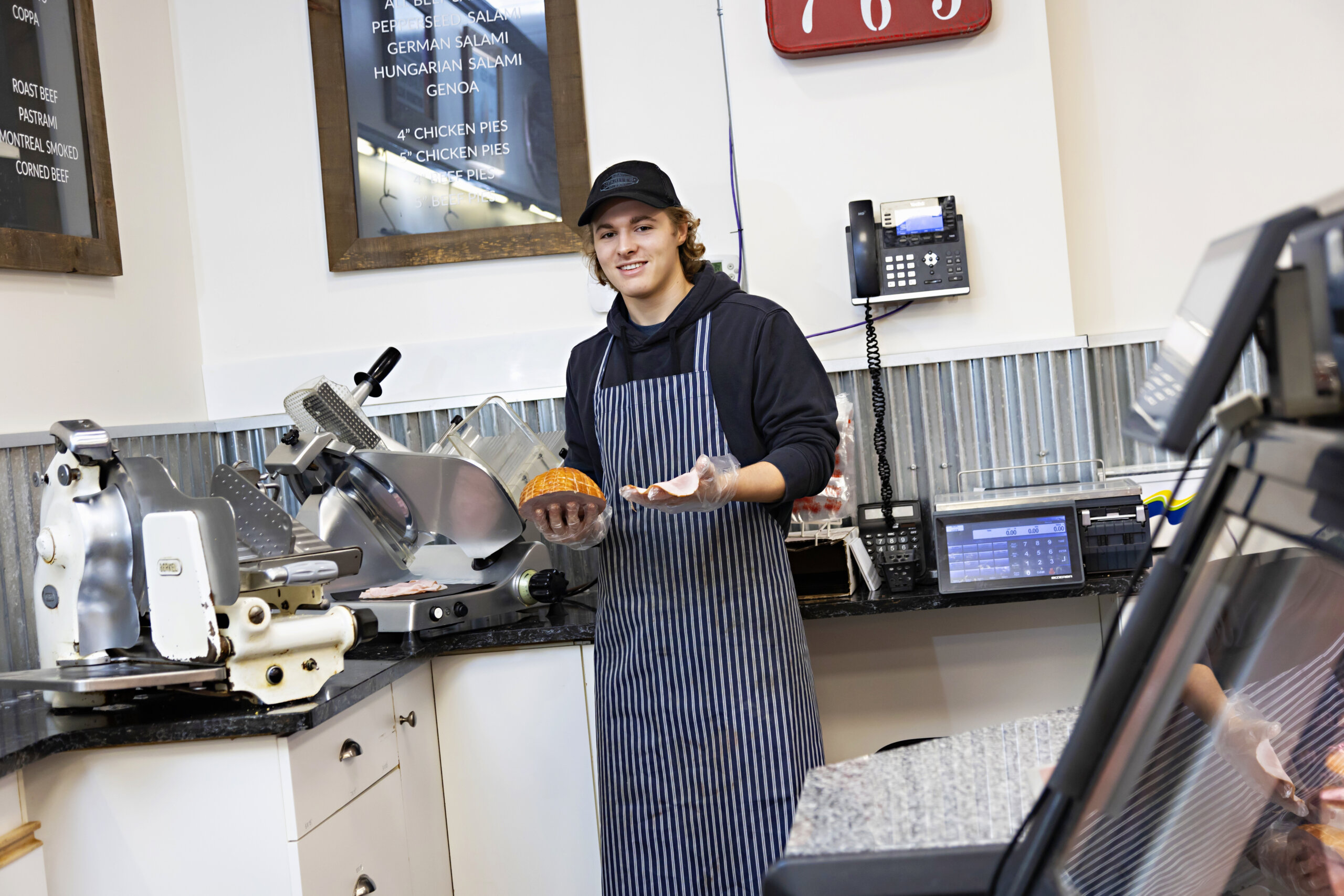
I’ve been working in this butcher shop for three years. I’d originally been helping out in the mall that’s attached to the store, sweeping, vacuuming and doing other jobs. Adam, the owner, then approached me to work here and it’s been a good job. Before starting, I knew zero about the industry. My aunt and uncle have a farm but that was my only connection.
Now, I work in customer service answering questions about our products – like the type of farm it came from. People want to eat healthy and it’s good to be able to tell them that our products are all local and have no additives. It’s good farm fresh stuff.
I’ve played rugby since I was 5 and now play four days a week for the local men’s team. I’m a winger. I love playing sports and being outdoors.
-Noah, Customer Service, Local Food shop
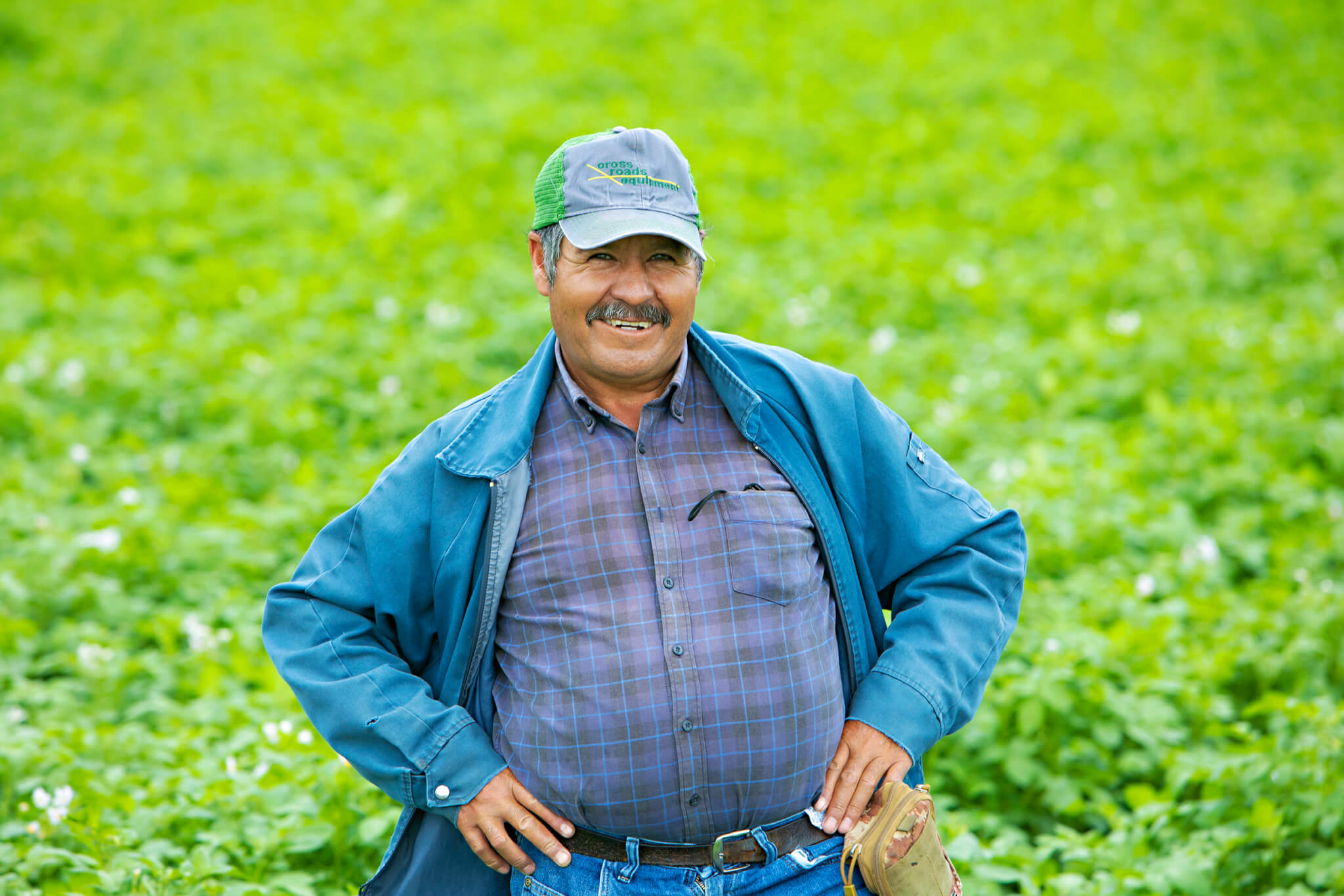
I live close to Toluca, about 45 minutes from Mexico City. My family started to grow and I needed more help and more support for them. That’s why I came here – it provides a little more money for everything and everyone is happier now.
It is hard to leave my four children to come here but I like it here. We make good food. I really like making a nice field of vegetables.
-Eduardo (Pina), Seasonal Agricultural Worker from Mexico, Vegetable farm
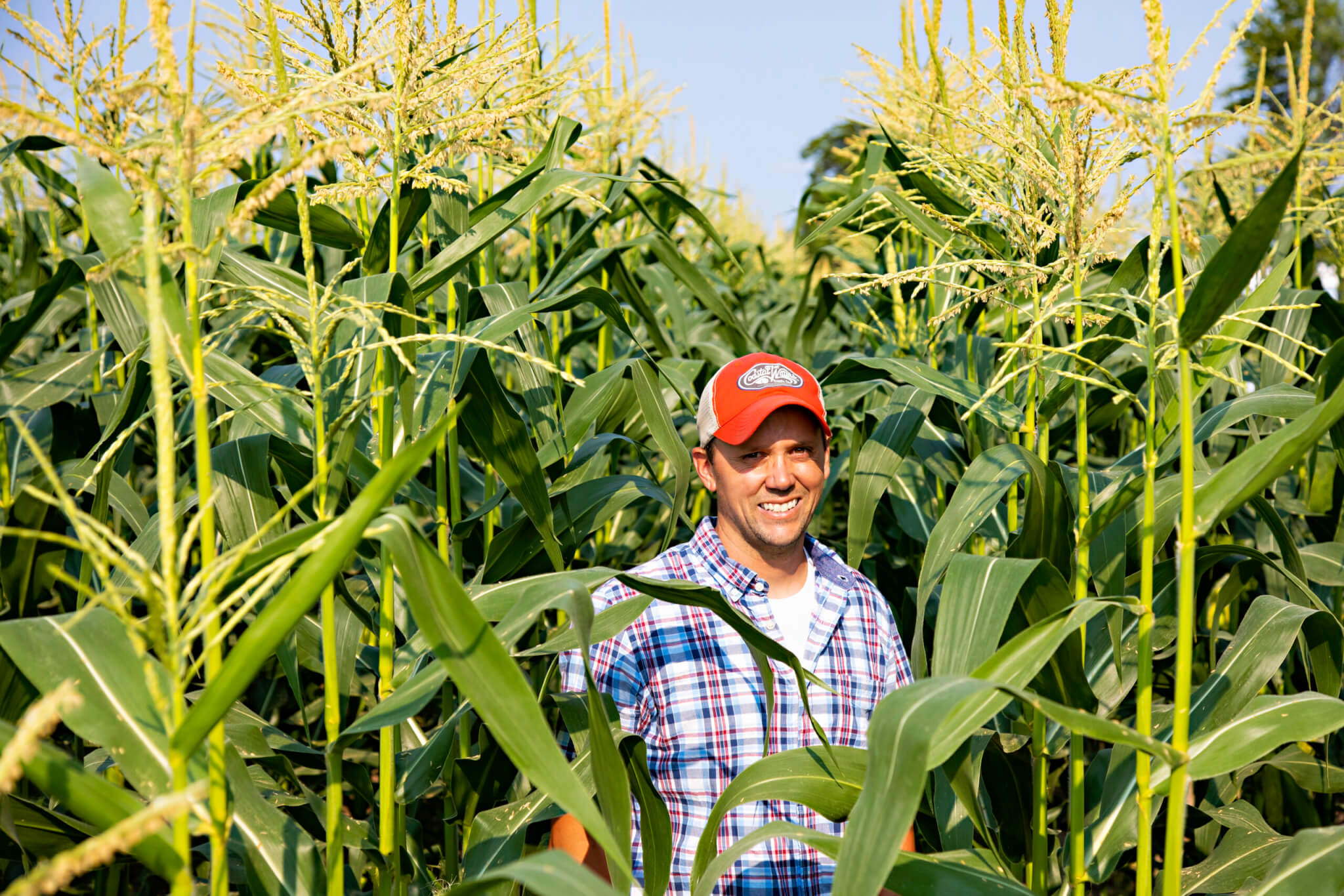
I bought into our family farm in 2005 and now live here with my wife, Whitney, and our children Cole and Esme. I’m the third generation of my family to live here. It was started by my grandparents and then my dad took it over in the 1980’s. My dad and my brother are still a big help to me.
On this farm, we grow vegetables like lima beans, green beans and sweet corn like the field here. They’re all sold to processors to be turned into frozen and canned vegetables. So even when there aren’t fresh Canadian vegetables in the produce aisle during winter months, you can still buy canned or frozen local vegetables. A lot of people don’t know that – that frozen vegetables are local and fresh. I like growing these crops knowing they’re going directly to Canadian customers.
I always knew that I wanted to farm and grew up helping my dad. I was taught to work hard and some of my earliest memories include helping him pick stones. You really have to love farming to be a farmer – because there are some hard days.
Now it’s fun to see my kids taking an interest. Cole, at 5 years of age, loves riding in the truck and he can tell a lima bean field from a soybean field already –not many people can!
I find lima beans the most challenging to grow. There are only about 30 farmers in Canada growing them. Each year, there’s always something I can improve on from the crop grown the year before.
-Clark, lima bean, green bean and sweet corn grower
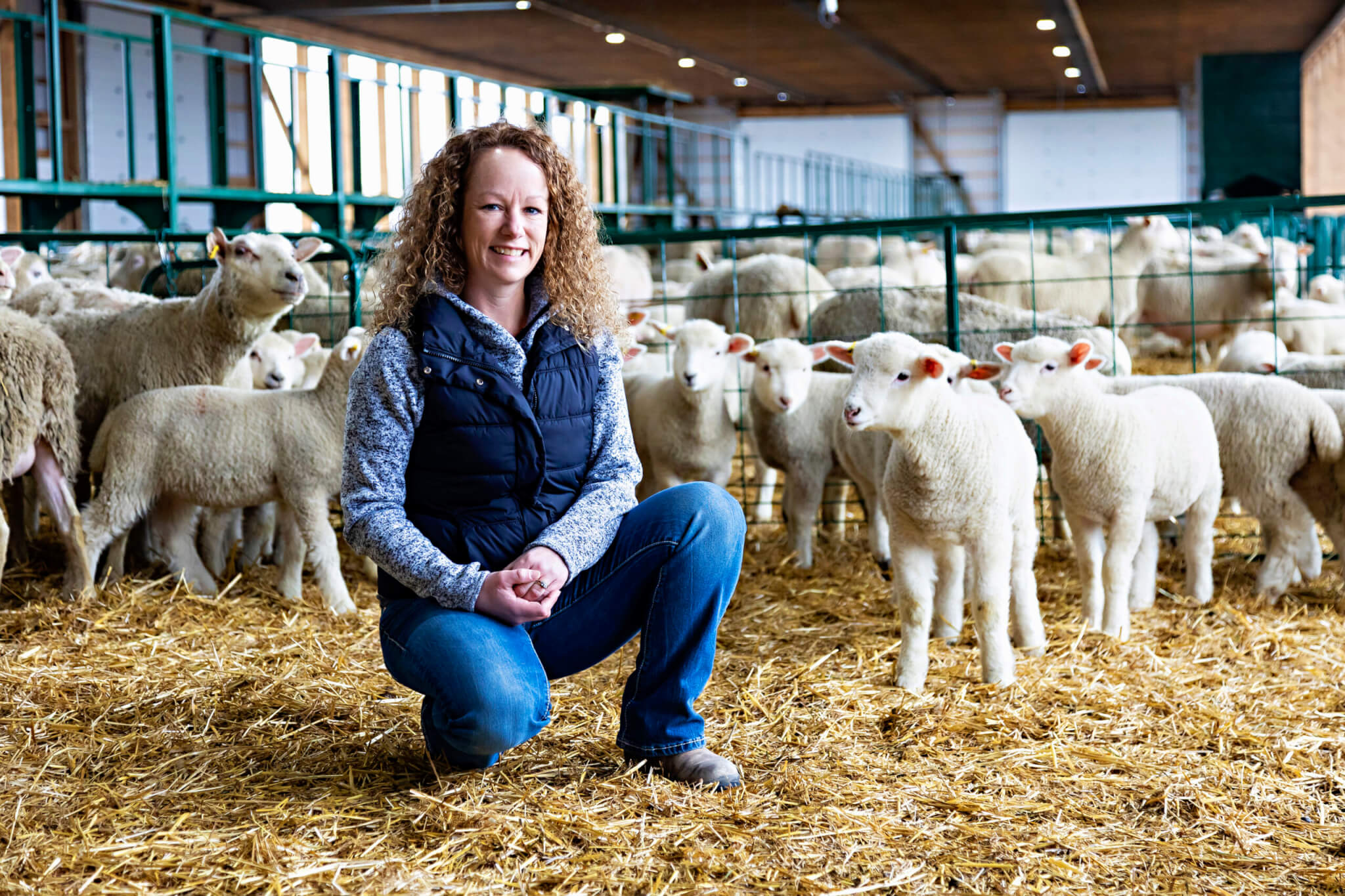
I was raised on a beef and sheep farm and met my husband when we were both studying at the University of Guelph. We started farming his grandfather’s farm when we graduated and have really enjoyed the opportunities available to us as sheep farmers.
We built this new barn last year. It’s a lovely place for us to work in and for our animals to live in. It’s got lots of room and is bright with open curtained sides to allow lots of fresh air into the building.
We’ve got three children – Logan is 14, Alyssa is 13 and Bree is 11. They’re all great helpers and Logan, especially, is really keen to be here on the farm.
One thing I’m really grateful for is a strong community of peers and friends in the farming community. Peer support is absolutely critical in this industry. They just get what the urgencies are and can be great sounding boards for ideas and dreams.
Our children’s extracurricular activities keep us busy when we’re not in the barn. We also love skiing and snowmobiling as a family too.
-Jenny - Shepherd
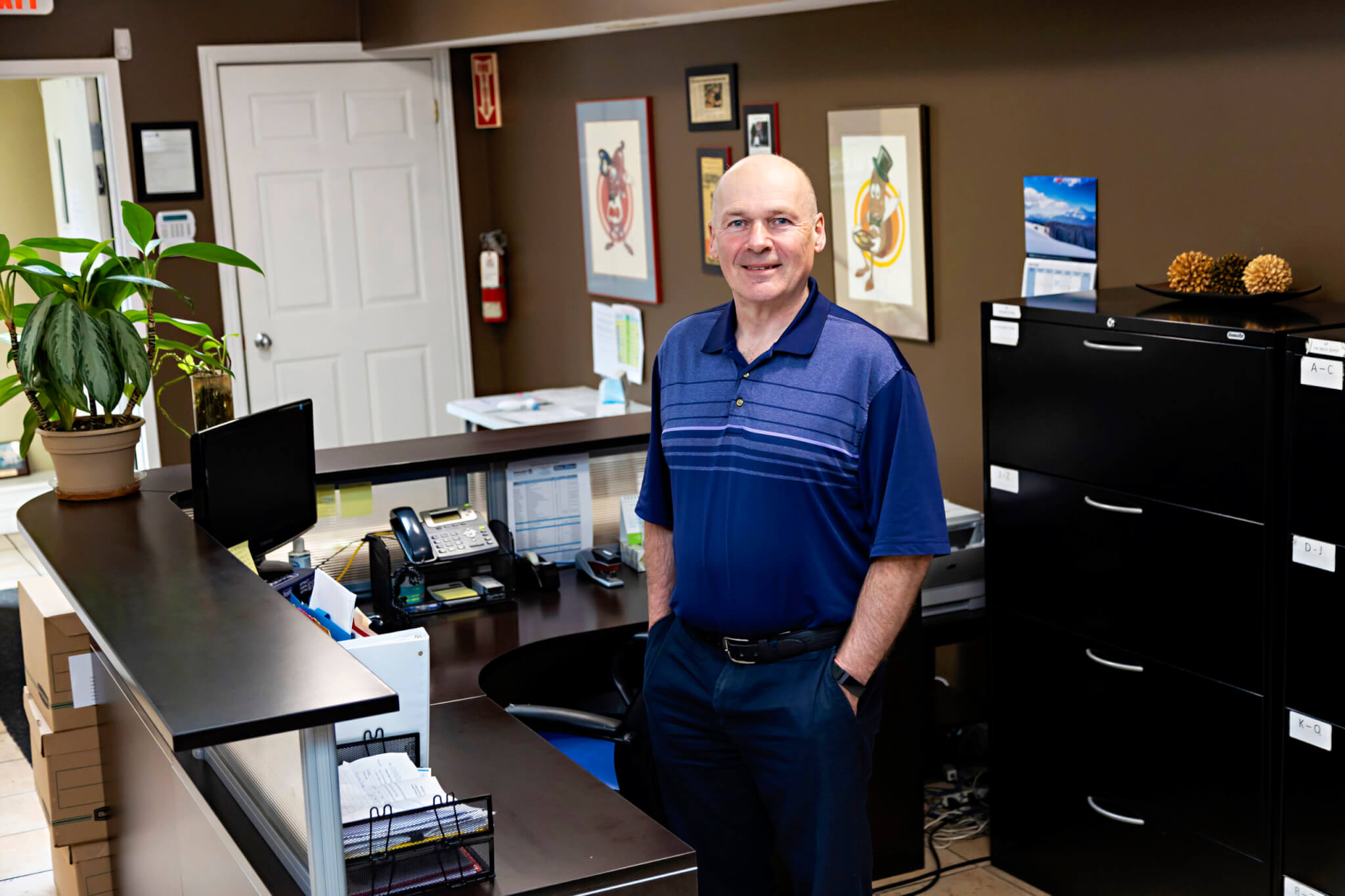
My wife, three children and I emigrated here in 2007 from the south of England. We were looking for a change and had visited family in Canada several times. In 2003, we came for an extended visit and then started the process to immigrate.
I work as a controller at this family-owned company which has butcher shops and retail stores throughout the Toronto area. I started here in 2011 and love the variety of the career. It’s a great place to work.
When we started the process to move here, we wondered whether time spent here on a holiday was a strong enough basis for making a decision to move here permanently but the decision has turned out better than I expected. The only surprise was the winters. We’d been warned about them but still weren’t prepared. That first winter we thought, “Woah, it snows so much and is so cold”. But we’ve learned to ski and embrace the winter season. I also love dirt biking in the summer. That’s the best thing ever.
-Peter, Controller – Halenda’s Meats
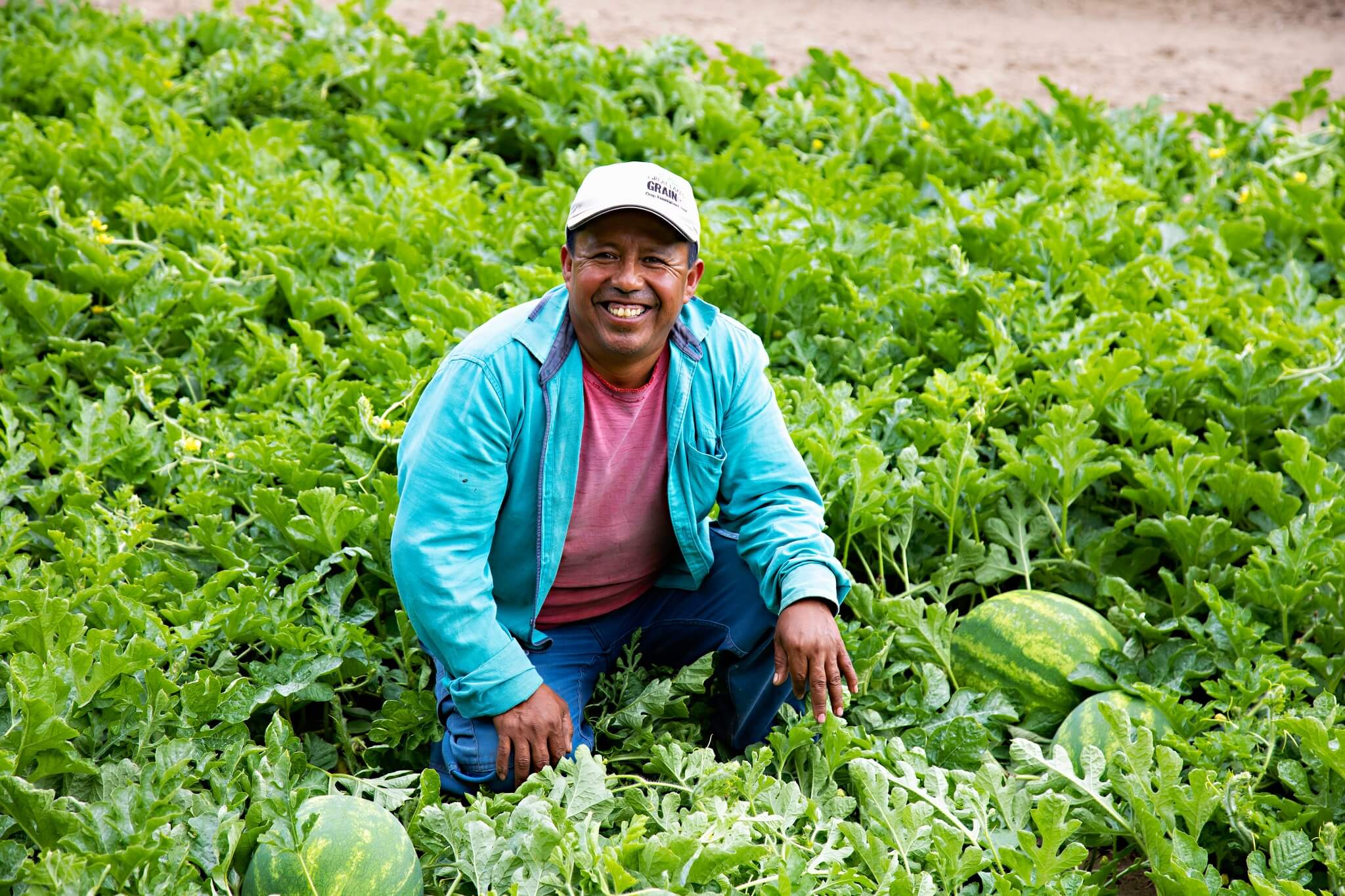
I come from Mexico – about two hours from Mexico City - and have been working in Canada for 24 years. I’ve been on this watermelon farm for 20 years. I help with the irrigation. Before harvest, we check the watermelons, check to see that they’re ripe and not hollow inside.
I like the work here. I come here for the money, for my family. It’s good.
Back home, I have three children. I talk to my wife every day. I miss her.
-Alberto, Seasonal Agriculture Worker from Mexico, working on a watermelon farm
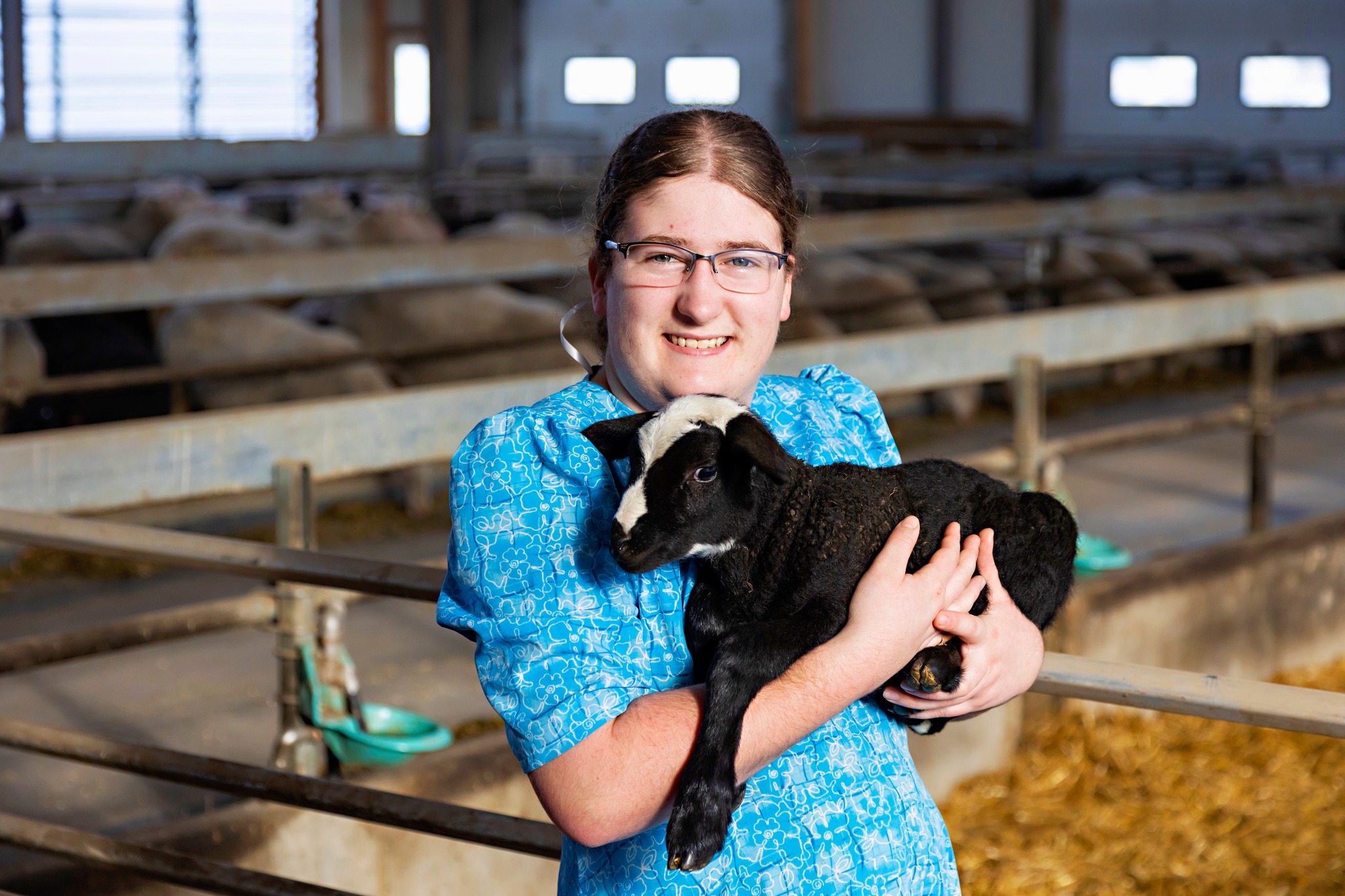
On our sheep farm, my job is to take care of the newborn lambs. I absolutely love working with them. When they’re born, I record their births. They’re also given an ear tag with a number in it so we know who they are. The lambs live with their mothers for the first few days after they are born. Then they move into a pen where they live with other lambs. There they drink from a milking machine and it’s my job to teach them to use it. They catch on pretty quickly.
I also help to milk our sheep in the mornings.
-Geneva, dairy sheep farmer, Ewe-nique dairy
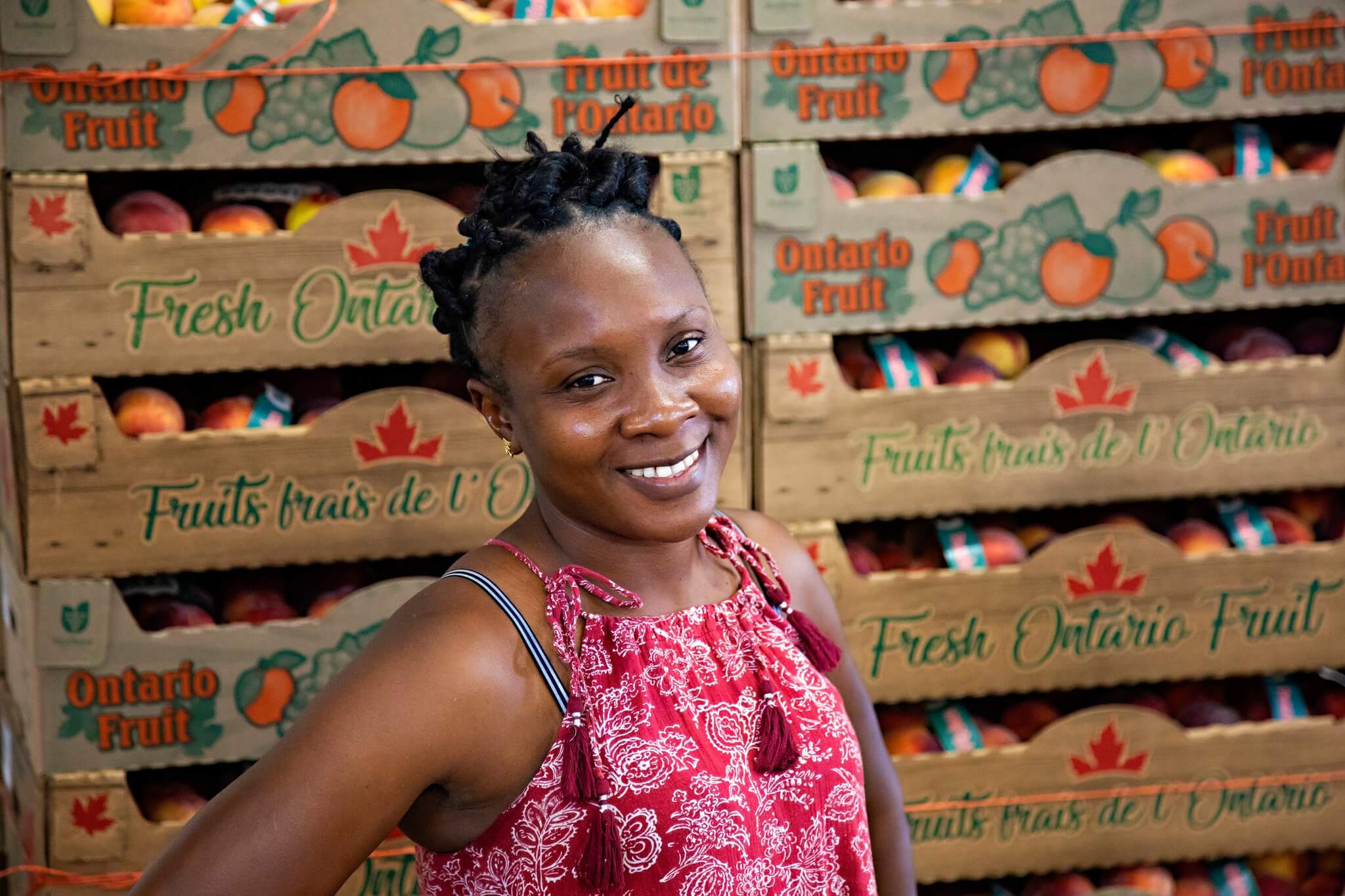
I first started coming to Canada as a Seasonal Agriculture Worker in 2009 and worked in an apple orchard in Nova Scotia but the owner got sick and I had to move. 2021 is my first year working on this peach and cherry farm in Ontario. It’s hard starting all over again meeting new people here but there aren’t any jobs or opportunity back home and by working here, I can help my family. The people I work with here are nice.
My husband is a mechanic in Kingston, Jamaica and he and my mom look after our two sons, age 13 and 9. By now, they’re used to me coming here. My kids would love to someday come here to see Canada. They’re always asking about it.
I’m a Christian and in my free time, I like to read my Bible, pray, worship and sing gospel songs.
-Mellissa, Seasonal Agriculture Worker from Jamaica
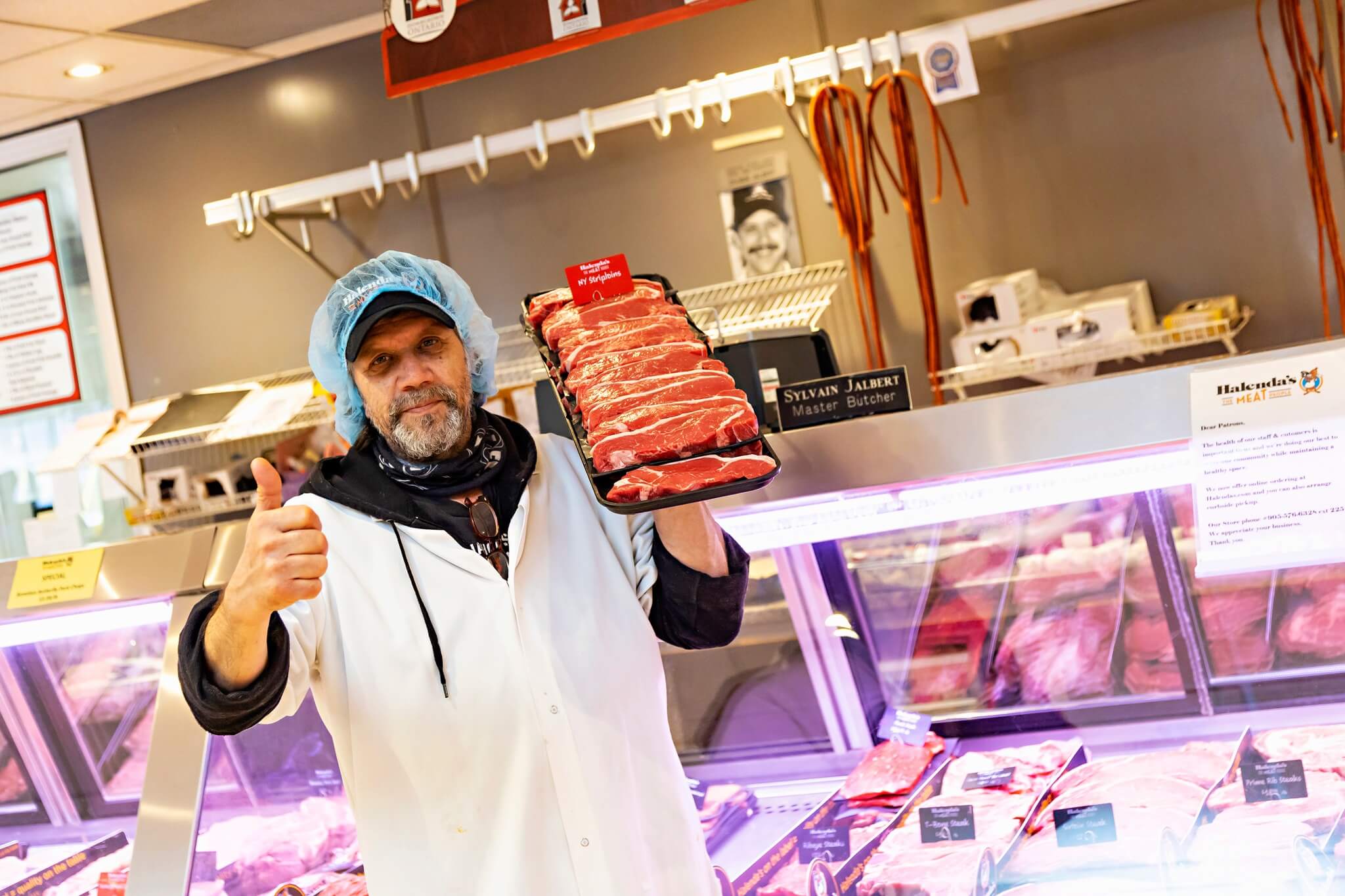
I started working for here when I was 17 or 18 – and the boss liked the way I worked. I started as a cleanup kid; then delivered meat. Finally, they decided to give the kid a try on the block. And guess what, I got it! Before that, I had thought I’d become a mechanic. I’ve now worked here for 37 years and am now Halenda’s master butcher.
This job has become part of me – it doesn’t even count as a job anymore and these people are my family. When I’m working at cutting meat, the knife almost becomes part of my hand. We take a lot of pride in the quality products we create and sell. If we wouldn’t feed it to our family, we won’t sell it out the front door. That’s a rule we live by. What’s my favourite product? Well the filet mignon is always the best but a nice striploin or T-bone is a good second choice. If you cook it well, anything is great!
I’m always trying to be better at what I do and now I’m training the next generation of staff working in this store. I won’t be here forever so it’s important that I pass along the trade to the younger employees.
When I’m not working, I love to bicycle. I’ve got two children and my daughter just got married. That was a beautiful day.
- Sylvain, Master Butcher, Halenda’s Meats
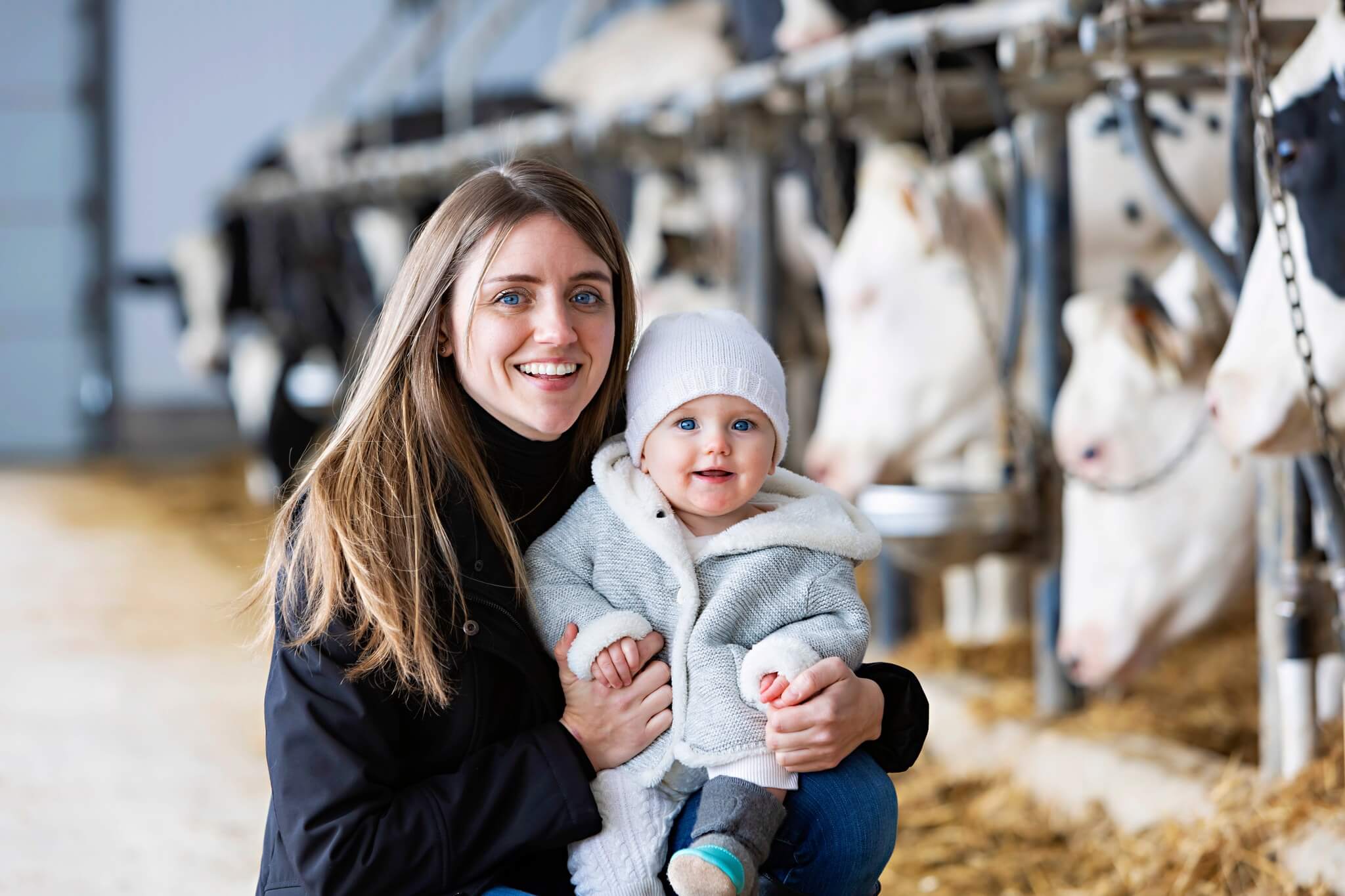
It was a university friend, while we were studying nursing, who encouraged me to date my now-husband Brad who was a dairy farmer. I wasn’t from a farm but we were both the grandchildren of Dutch immigrants and we had a lot in common. We have now been married 10 years and farm with Brad’s parents. Our nine month old daughter, Imrie, is the fourth generation of this family to live on this farm.
I also raise and train Australian Cobberdog puppies which make great family pets. It’s a business that fits really well with the farm because I can be at home with my family.
Life’s pretty busy with Imrie, the farm and the puppies but when we can get away, we love to go hiking. It’s a great hobby.
-Lauren, dairy farmer
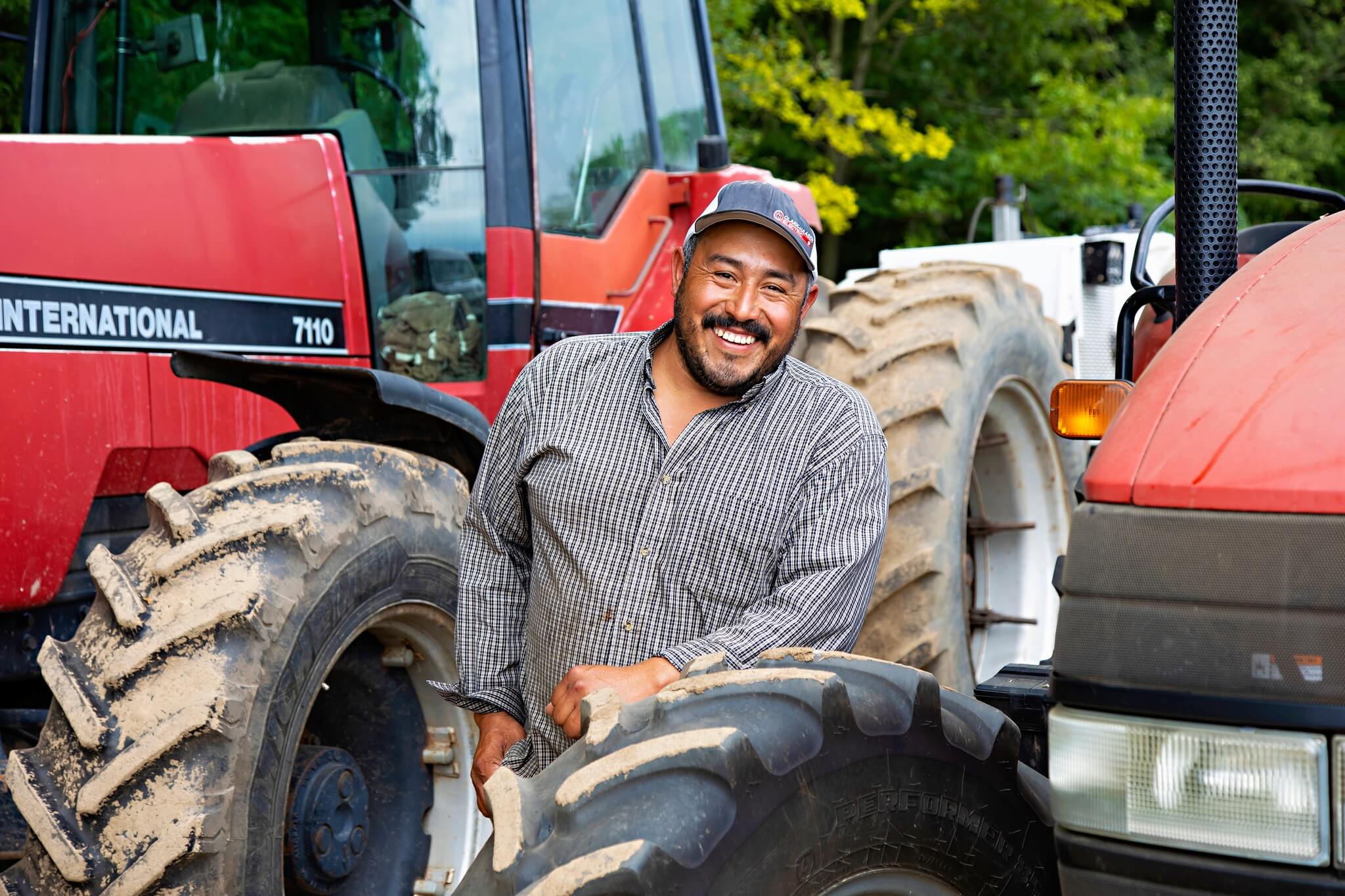
For 20 years, I’ve been coming to this squash and watermelon farm from Veracruz, Mexico. Working here means more comforts for my family. It helps with school for my children and food and our house and everything like that. In Mexico, there is not much work.
We have a small farm in Mexico that I work on with my father and brother. We grow coffee and sell it to a small factory. In my country, we grow watermelons and I so understand the watermelon and how they grow.
I have three boys and one girl, ages 22 to 14. I talk to them three times each week.
-Carlos, Seasonal Agriculture Worker from Mexico, working on a watermelon farm
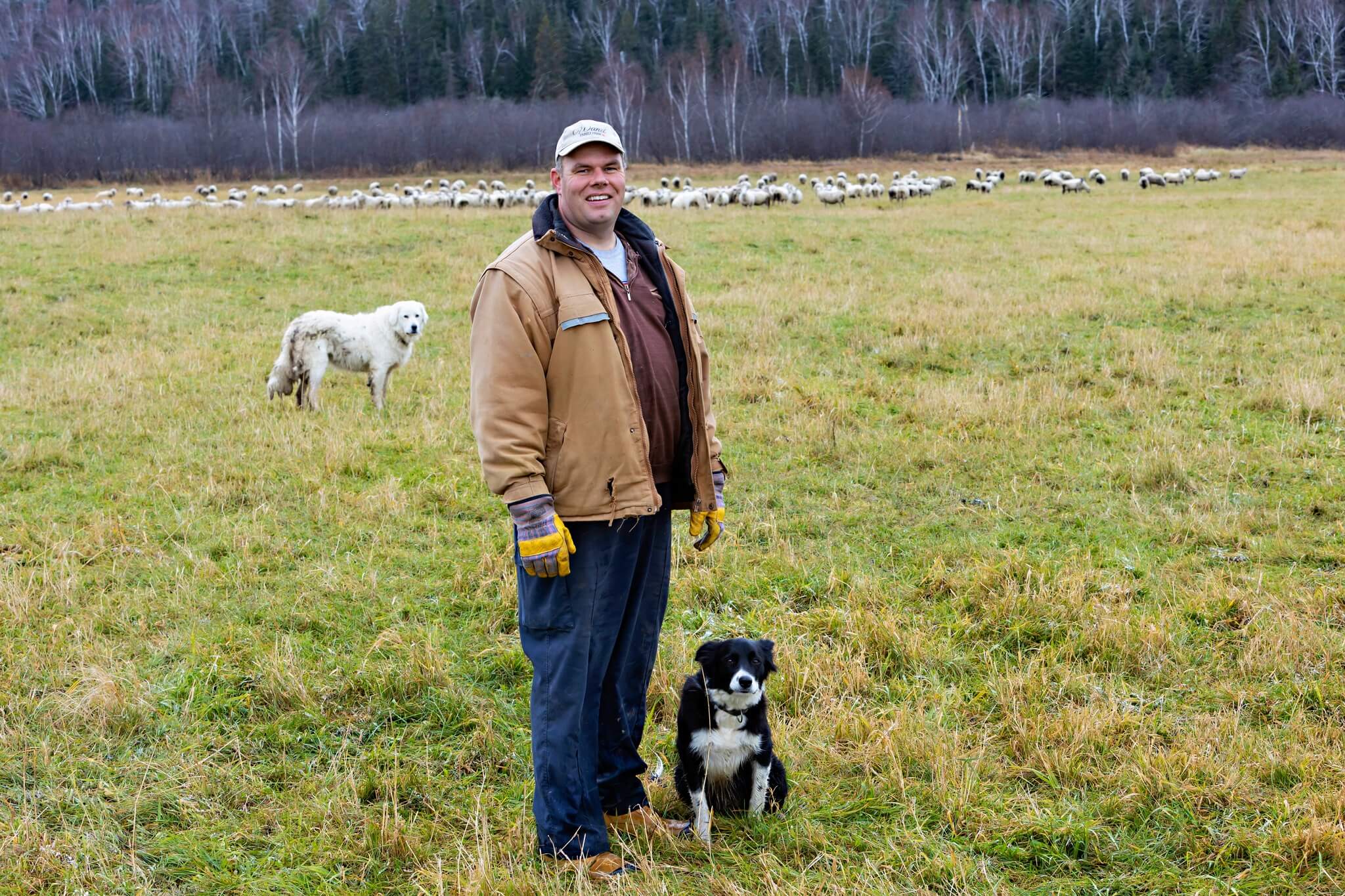
Even back in high school, I think I had my mind set on being a farmer. I studied animal science at university and am now back in northern Ontario with my wife Jen, raising our two children, sheep and beef cattle. We live right next door to the farm I grew up on. My parents immigrated to Canada from Germany before I was born.
Farming in Northern Ontario has its challenges. Threats to sheep living out on pasture include wolves, bears, coyotes and ravens. We’ve got five incredible guardian dogs who live with the flock and help to protect them. I’m also constantly assisted by our Border Collie, Lexi. She’s got an amazing natural sense for herding. In fact, the less I tell her to do, the better. She just instinctively knows how to bring a flock from one side of a field to another with just a few instructions from me.
In university, I was active in the track and field team and afterwards, started participating in Scottish Highland Games. I competing in stone putt, caber toss and sheaf toss competitions with sheaf toss being my best event. I held the Canadian record for quite a while.
- Markus, sheep farmer
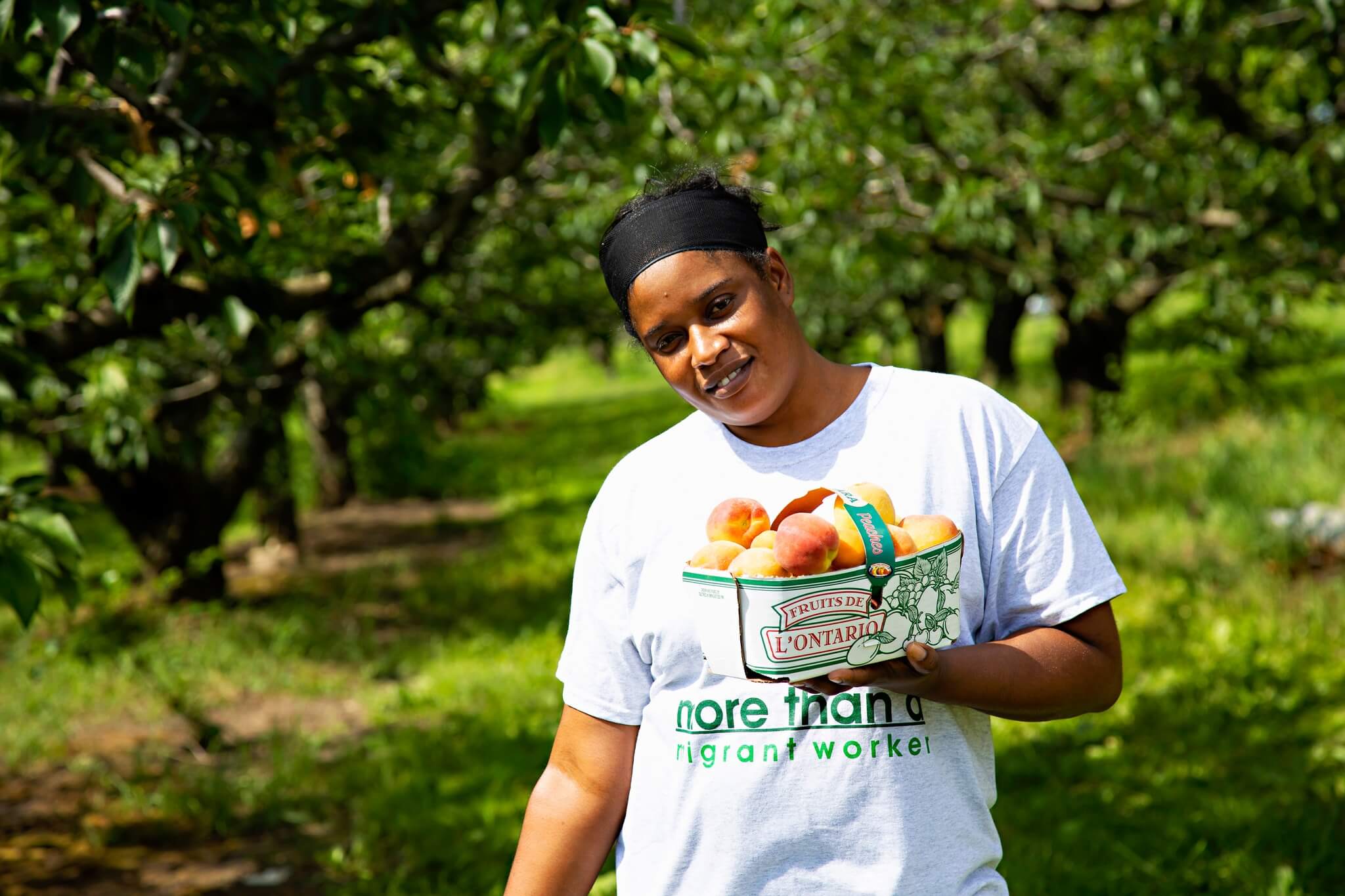
I’m 36 years old and have been coming to Canada for six years. I’ve worked on three different farms as a Seasonal Agricultural Worker. I’ve been on this peach farm for two years.
Back home, I have three children – ages 16, 13 and 4. Yesterday was my four year old’s birthday and I wasn’t home for the celebration. Missing those events is always hard but I have help from my family back home and video chats help. My mom is amazing. She’s such a nice lady.
My mom is a farmer so that’s what I do when I’m home. We grow crops like potatoes, yams and carrots. I don’t mind hard work and I like it here. It’s good, honest work growing food.
For fun, I love to dance, sing and read my Bible.
-Cordia, Seasonal Agriculture Worker from Jamaica
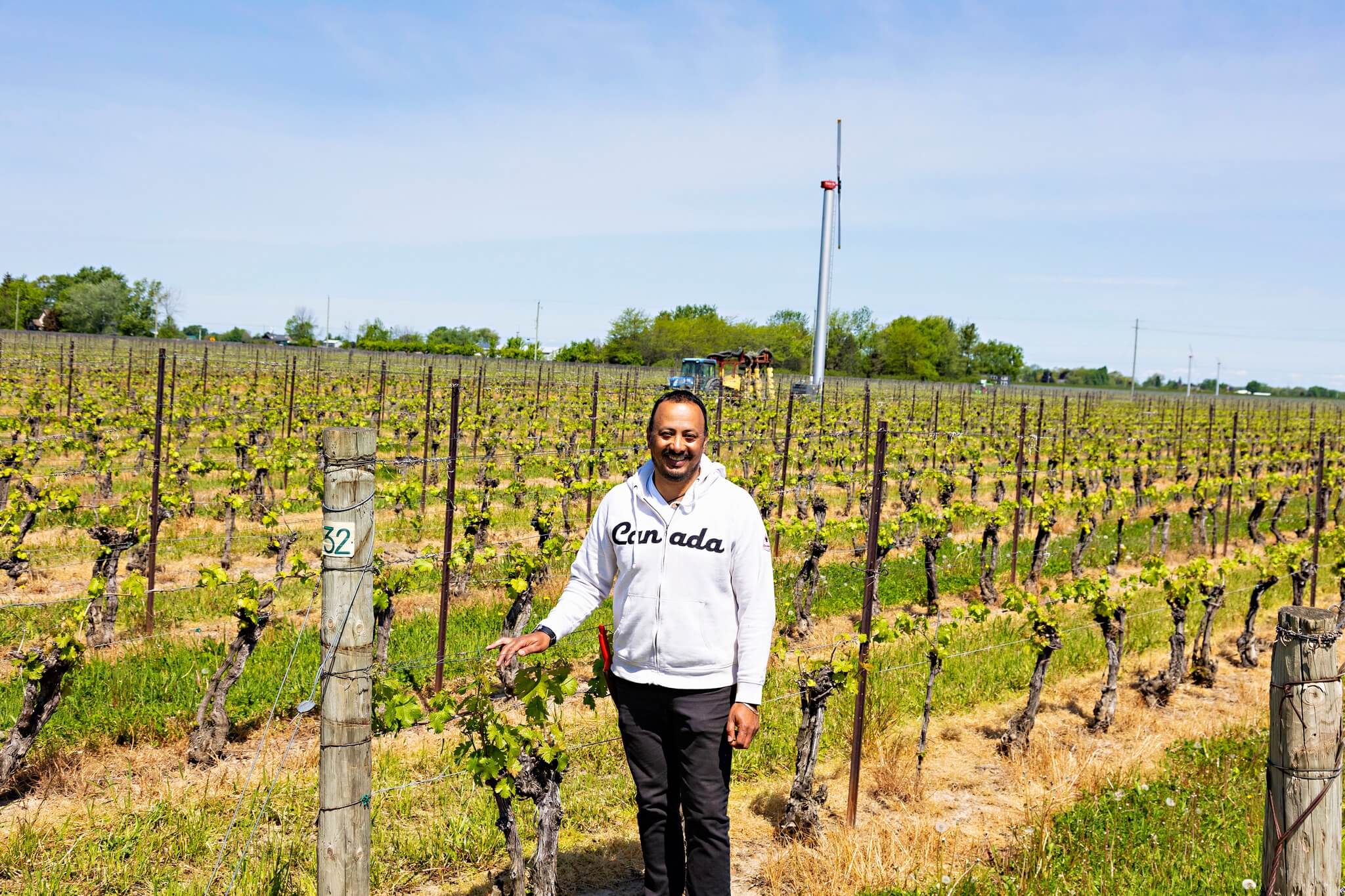
My name is Miguel Fontalvo. I was born in Columbia. I studied agricultural engineering and I’ve been in Canada for 19 years. I came here for better opportunities; to develop my career here.
Back home, my family produced rice, cotton, sorghum – I am the fourth generation of agriculturalist back home. When you study agriculture, you like nature. And you study how something so small can become a product. That’s what gave me the passion for agriculture. And then when I came here, the opportunity was in grapes. For the last 19 years, I’ve been doing this and I really enjoy it. I love it. The Gamay, for me, is one of the best.
Here, I’m the vineyard manager. Be in contact with the owner to tell me what he wants and what direction he should go. And then to tell our seasonal workers from Mexico what the boss wants and we get things done here.
Everything starts with the pruning in late February. After that, we’ll tie the vines and now we’ll cut the canes that we don’t need and tie the canes we need – and then other activities throughout the season. We’ll harvest in September and October.
Here, I have a wife and a lovely three year old daughter, Michaela. We like to hike. We’re from Columbia and we have coffee so we love to walk with a coffee.
-Miguel, vineyard manager
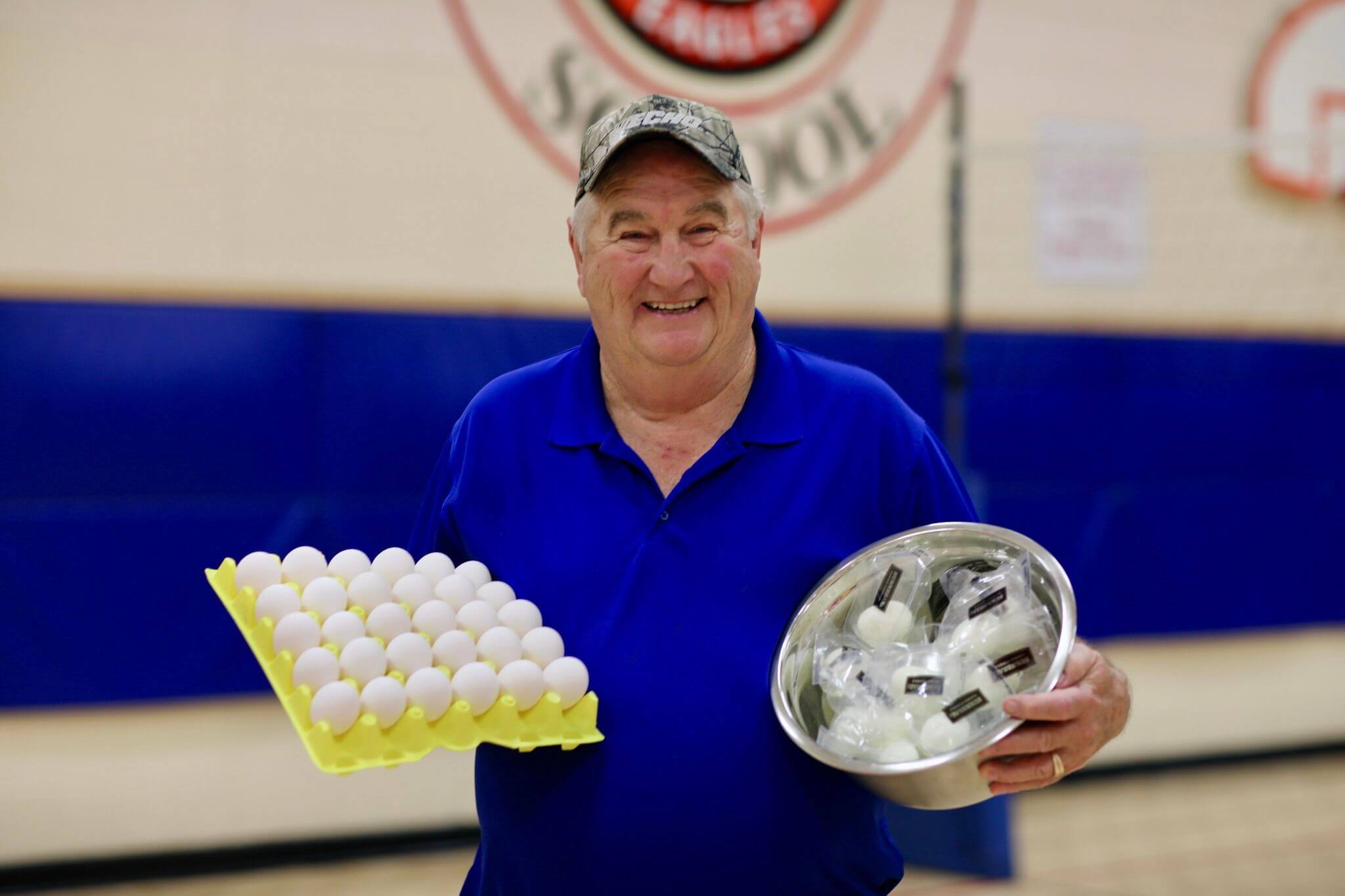
It started with a relatively small idea! I wanted to donate hardboiled eggs as snacks for students at a couple of elementary schools near our farm. That was 12 years ago and since then, the program has grown to feed students at more than 150 schools in three counties. Some of these students might not have access to high protein snacks at home so it’s great that we can provide that.
We now give away between 800 and 1000 eggs per week. That’s a lot of eggs! Covid shut us down for a while but now we’re back giving out individual packages that they can consume them safely. The program is entirely funded by local businesses who really got behind the nutrition program and the eggs are provided at cost by Burnbrae Farms.
I do a lot of the deliveries myself and it’s always fun to say hi to the students and teachers. I even deliver to my grandchildren’s school. I’d love to see programs like this across all of Ontario.
-Gary, Egg farmer
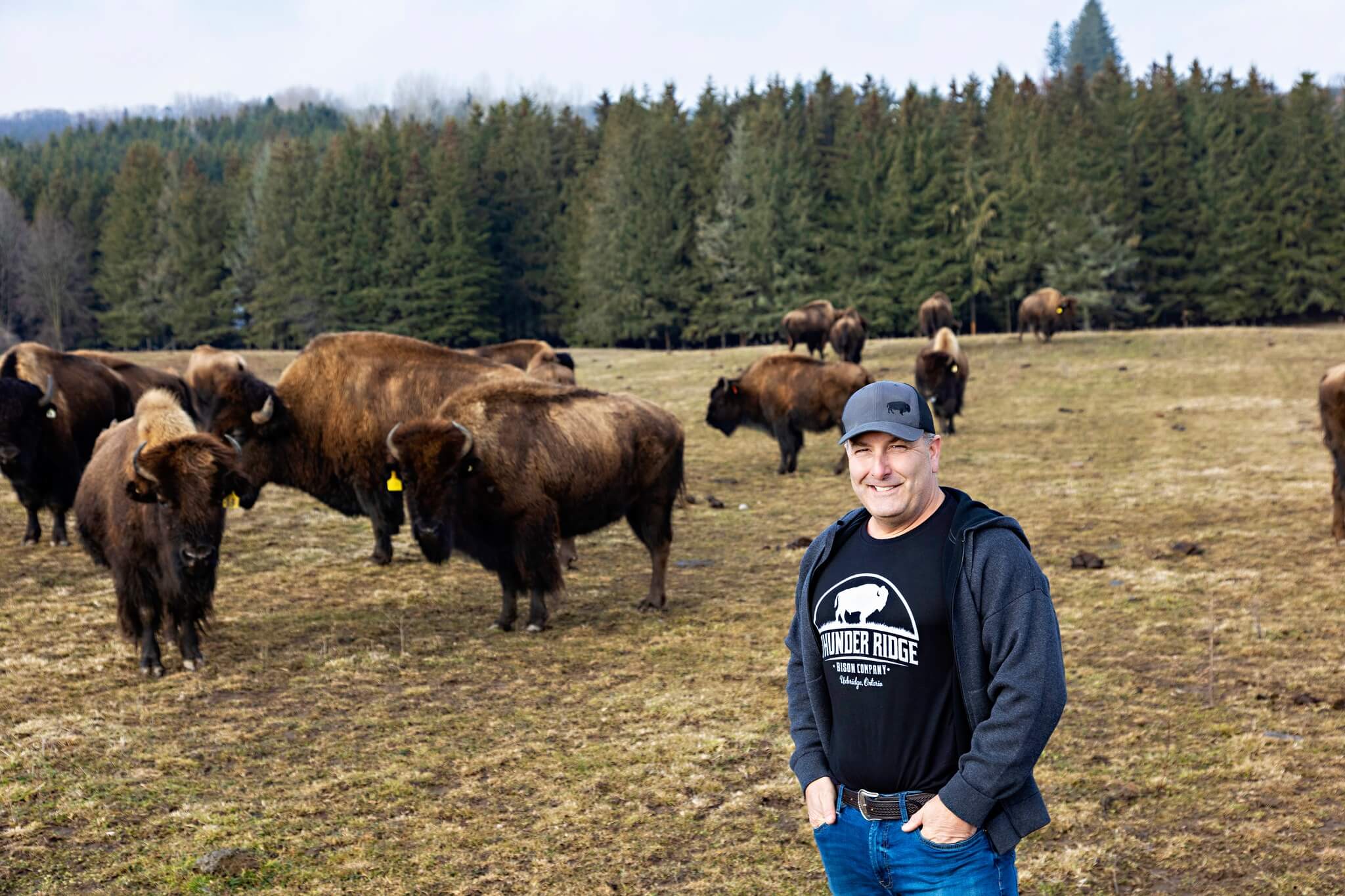
In my opinion, bison are just about the coolest animal on the planet. They’ve been unchanged for hundreds – maybe even thousands of years. What they look like now is what they looked like back then!
As a young kid, I’d raised some cattle and always thought that someday, I’d like to do that again. We bought this property in 2015 and got our first bison soon after. We’ve now got about 60 animals on the farm. My wife thought I was a little nuts – but like all my other ideas, she’s been very supportive! Off farm, I work as a police officer in the canine unit with York Region.
The demand for bison meat is growing significantly – it’s a very nutrient-dense protein. There are currently about 30 bison farmers in Ontario with more in the west. We sell the meat from our farm store and also to local restaurants. Our focus is entirely on local and environmentally sustainable. If we sell to a restaurant, we want them to come out first to see how our animals are raised.
One of our most unique relationships is with the Toronto Maple Leafs. We met their head chef several years ago and now provide bison meat for the team’s meals. We have also hosted many of the players to our farm.
This has been a fun adventure so far. I look forward to seeing it continue.
-Brian – Bison farmer
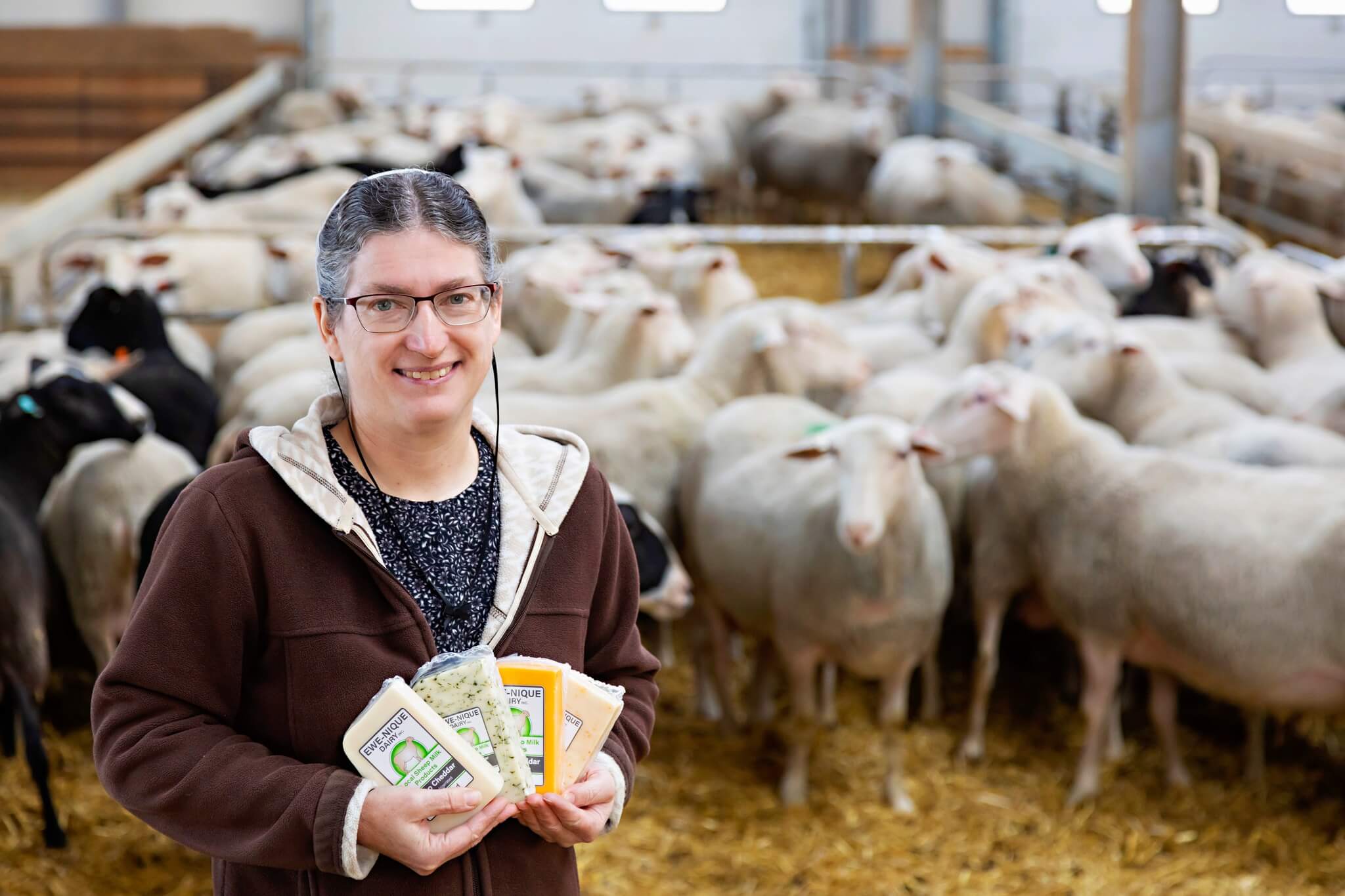
I came to Canada from Italy on a vacation in 1977 and that vacation has lasted 45 years! I came from a small town and started working at a local butcher shop there when I was about 10 years old. I think he paid me five cents per week.
I am the second of 11 children and was 18 when I came to Canada. I still have five sisters living back home.
I’m Halenda’s sausage maker. Our sausage has won awards at the Royal Agricultural Winter Fair and in Ontario’s Finest Meat competition. It’s been an interesting craft to learn. We make sausages that originate from all over the world – from Germany, Yugoslavia, Austria – all different kinds. Our Kobassa is the most popular. Everyone loves it.
My wife is also Italian – from Rome – but we met here. We’ve had a good life in Canada and have three children and four grandchildren. For fun, I love to barbecue, drink wine and garden.
-Rosena, dairy sheep farmer, Ewe-Nique Dairy Inc.
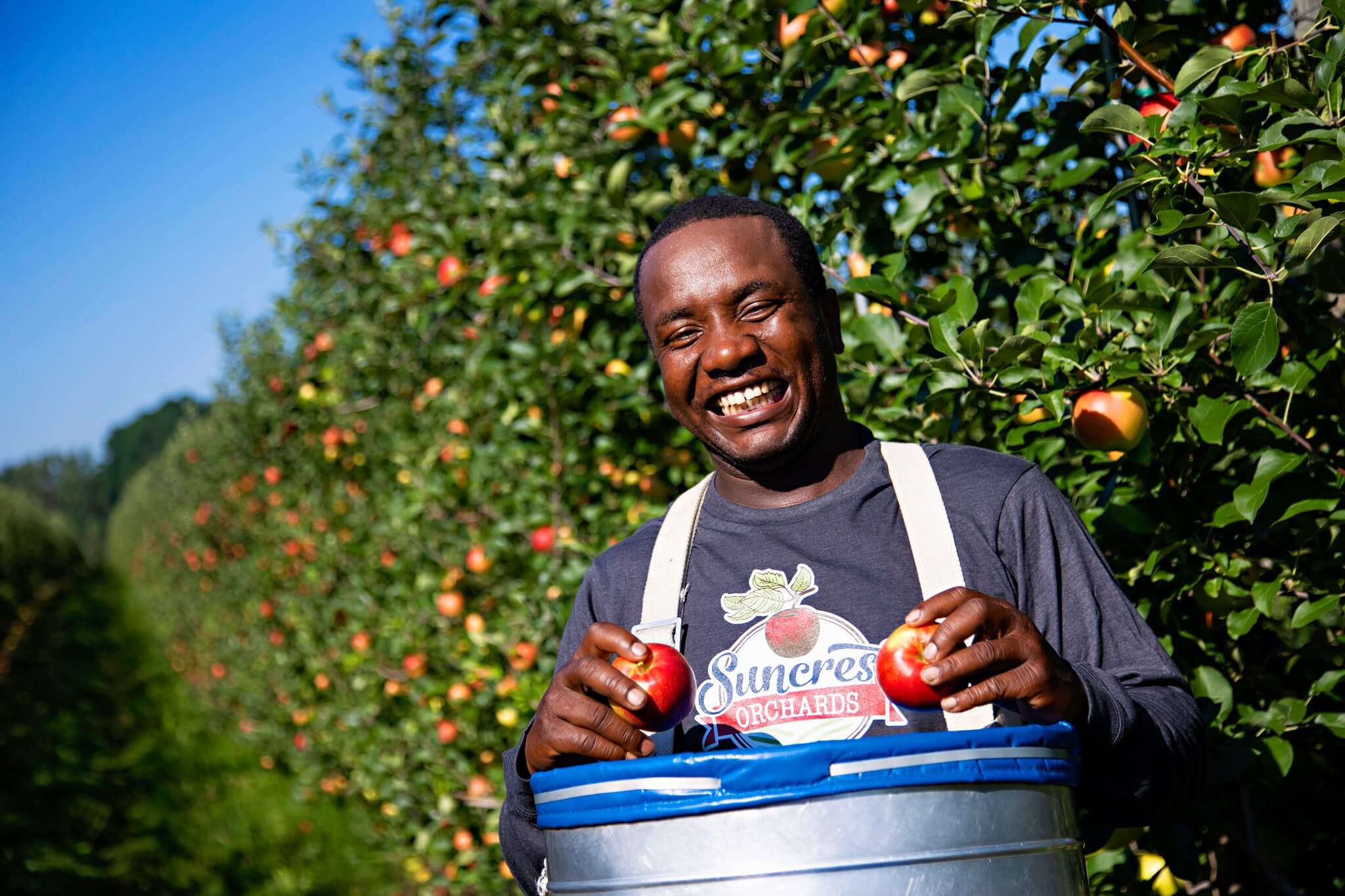
I’ve been coming to Canada for eight years. I wanted a better life for my family and myself. Coming to Canada has helped us a lot. It’s helped to build a home, send my two kids (ages 12 and 10) to school and pay for trips to the doctor and things like that. I talk to my family every day.
In Jamaica, I do construction work. I do it when I go home in the fall too. I like to work. When I’m sitting down, I’m uncomfortable. I like to keep moving.
On the farm, I do a lot of different jobs. I do maintenance, picking apples. Actually I do everything, operate machines and all of that.
-Raymond, Seasonal Agricultural Worker on an Ontario apple orchard
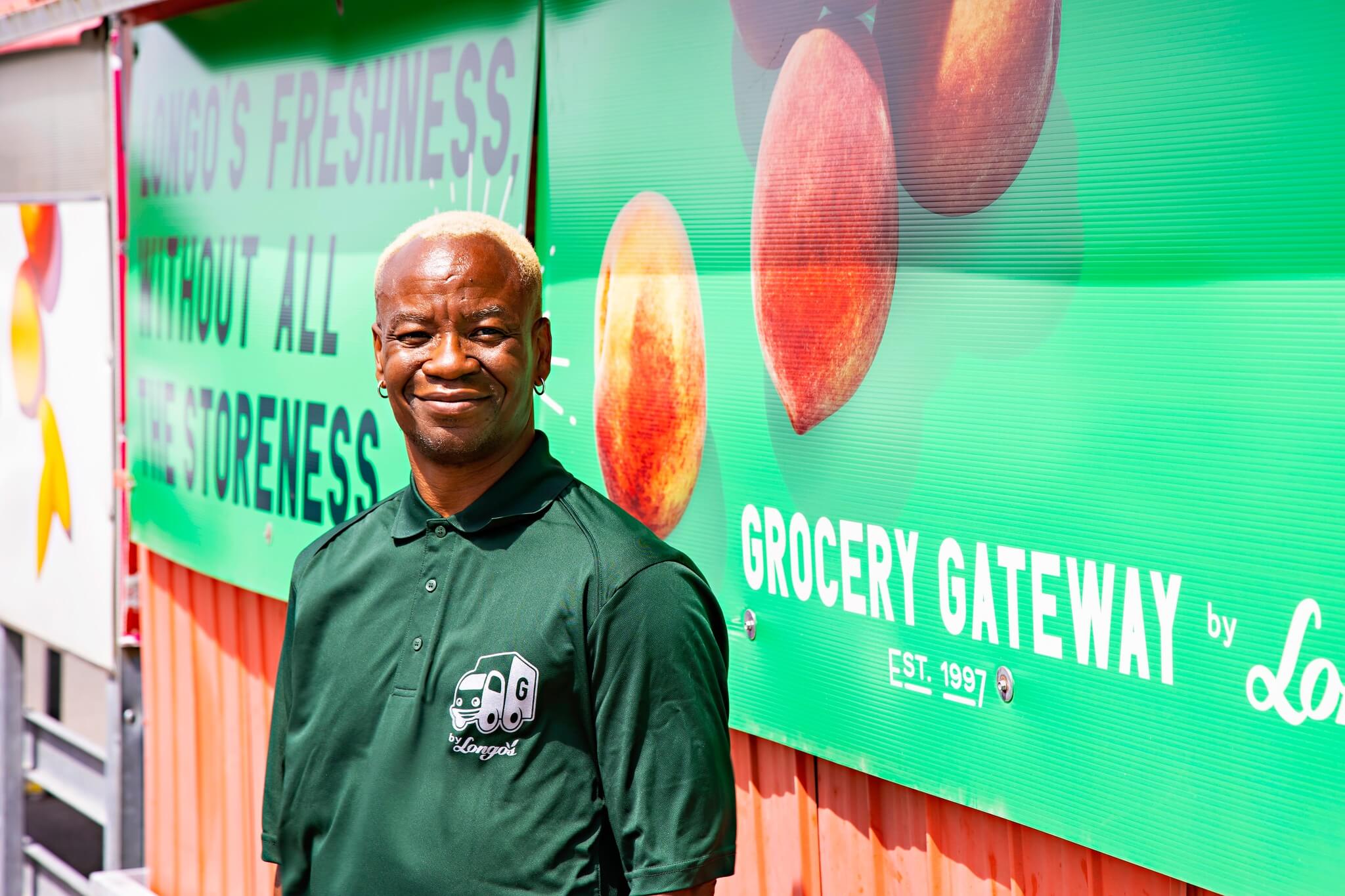
I was born in Jamaica but came to Canada when I was five years old. I’ve been a driver for Grocery Gateway for about 15 years. On average, I do about 20 grocery deliveries a day. I used to really enjoy visits with some guests who I had gotten to know over the years but since COVID, we have a new contact delivery system. It’s kind of lonely but we’re helping to keep families safe and that’s the main thing.
I contracted COVID in March of 2020. I was home for six weeks and am glad I’m better now. I’ve had my second vaccination so everything is feeling good.
My wife and I love hiking. When I’m driving for work, I often see new trails on my routes. I’ll take a photo of them and then on weekends, we’ll go back and try it. I’m always taking pictures of new places we should explore. During COVID, I’m also learning to golf like everyone else!
-George – Grocery Gateway Driver
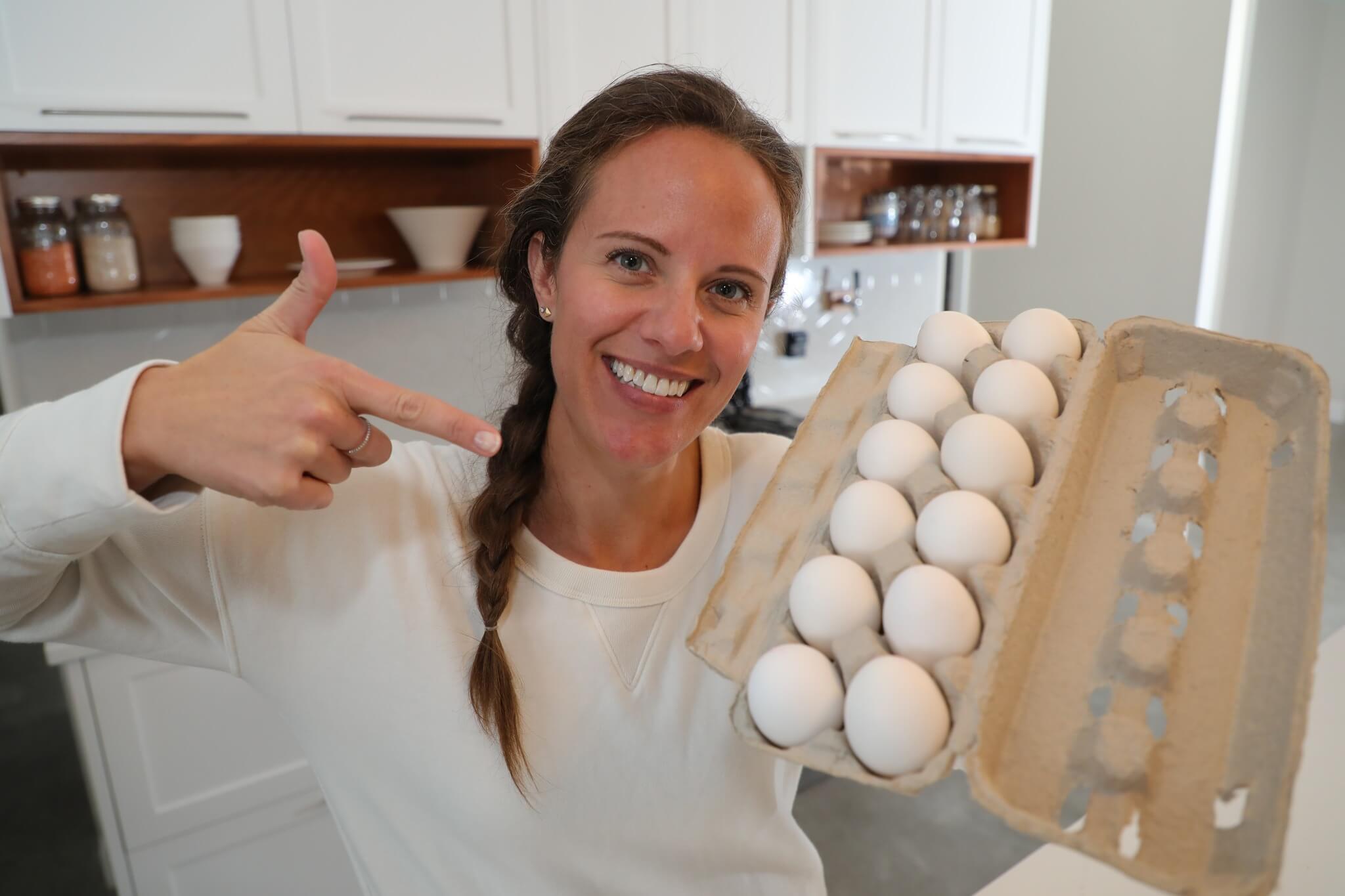
I grew up in Markham, had no farm background and met Ian when I was studying Environmental Sciences at the University of Guelph.
On our first date to the farm, I’d never been inside a barn before. I tried gathering eggs but wasn’t fast enough and the eggs kept piling up! I remember being surprised at how automated the barn was. I wasn’t expecting that. As a consumer, I'd never thought before about the regulations that farmers have to follow, the records they have to keep and the work they go to, to ensure that hens are healthy and well cared for.
When our last barn was built six years ago, my family and friends came from Toronto to see it. It was fun to be able to show it to them and be able to answer their questions.
We also grade and package a portion of our eggs for sale at our on-farm store as well as for other stores, restaurants and food banks in our community. I like being part of the entire process – from caring for the hens and collecting eggs to grading, packaging and selling them.
When I’m not busy on the farm or spending time with our three young kids, I love biking and running.
-Sara, egg farmer
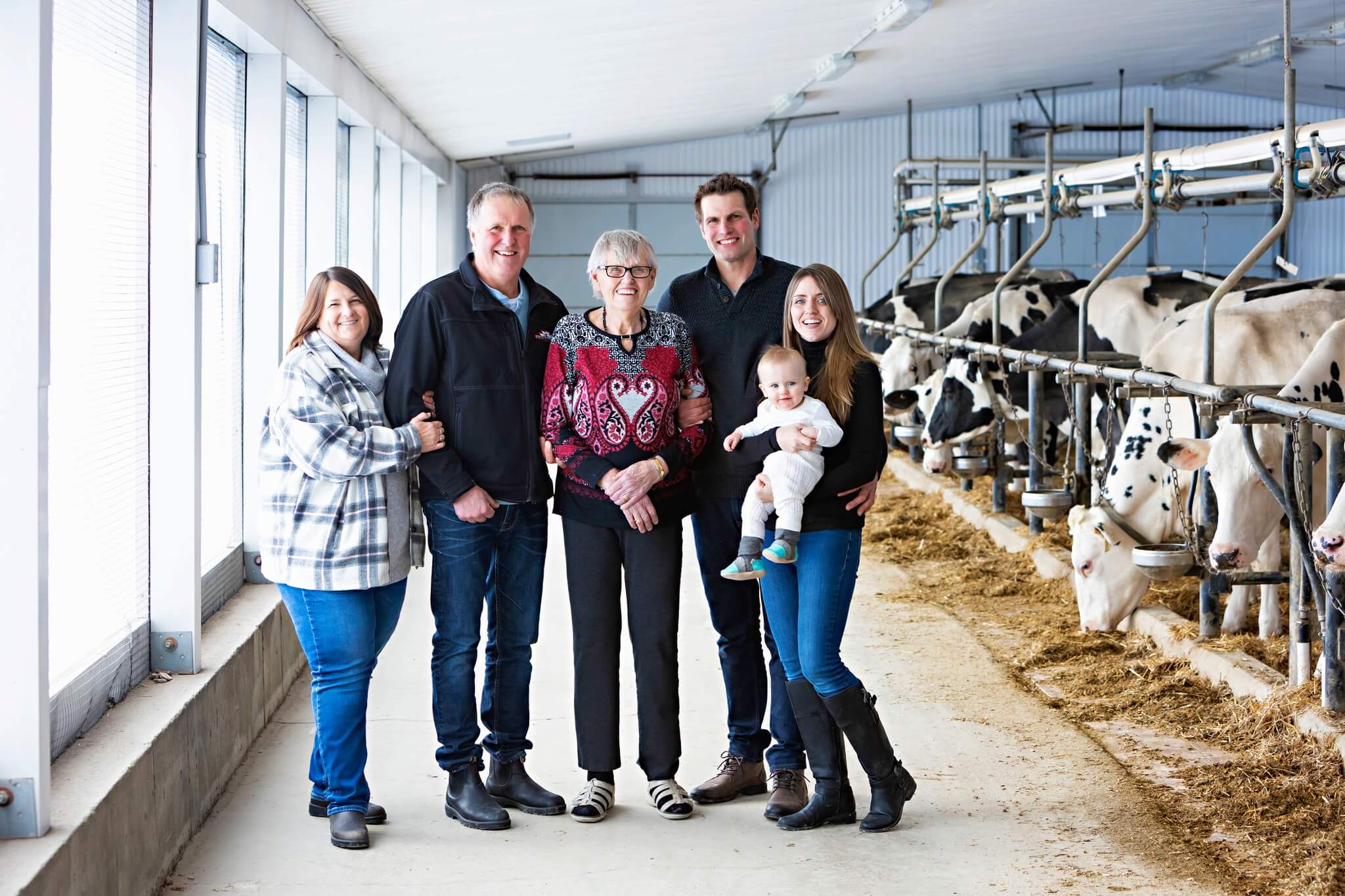
I met my future husband when we were teenagers in Holland. He came to Canada first and then we wrote letters to each other for a year and a half before he sponsored me to come. Those days, if your boyfriend sponsored you, you had to get married within four weeks of arriving. So we did. I didn’t know anyone in the church and didn’t speak any English so didn’t understand the service. When my husband said yes to the minister, I said yes too!
I came from a small town with lots of farmers but we weren’t farmers. When we moved from Toronto to this farm, we had 10 cows and seven children and really didn’t know what we were doing! It was really hard work. In the summer, when we were cutting hay, there were days when 1,000 bales passed through my hands. I also loved milking. I still miss the cows.
But we learned fast and it all turned out OK. I’ll soon be 90 years old. We’ve been very blessed. Our life on this farm was good. When the kids were little, we couldn’t leave them in the house so they’d come out to help too. My son and grandson and their families now run this farm.
- Margaret, retired dairy farmer
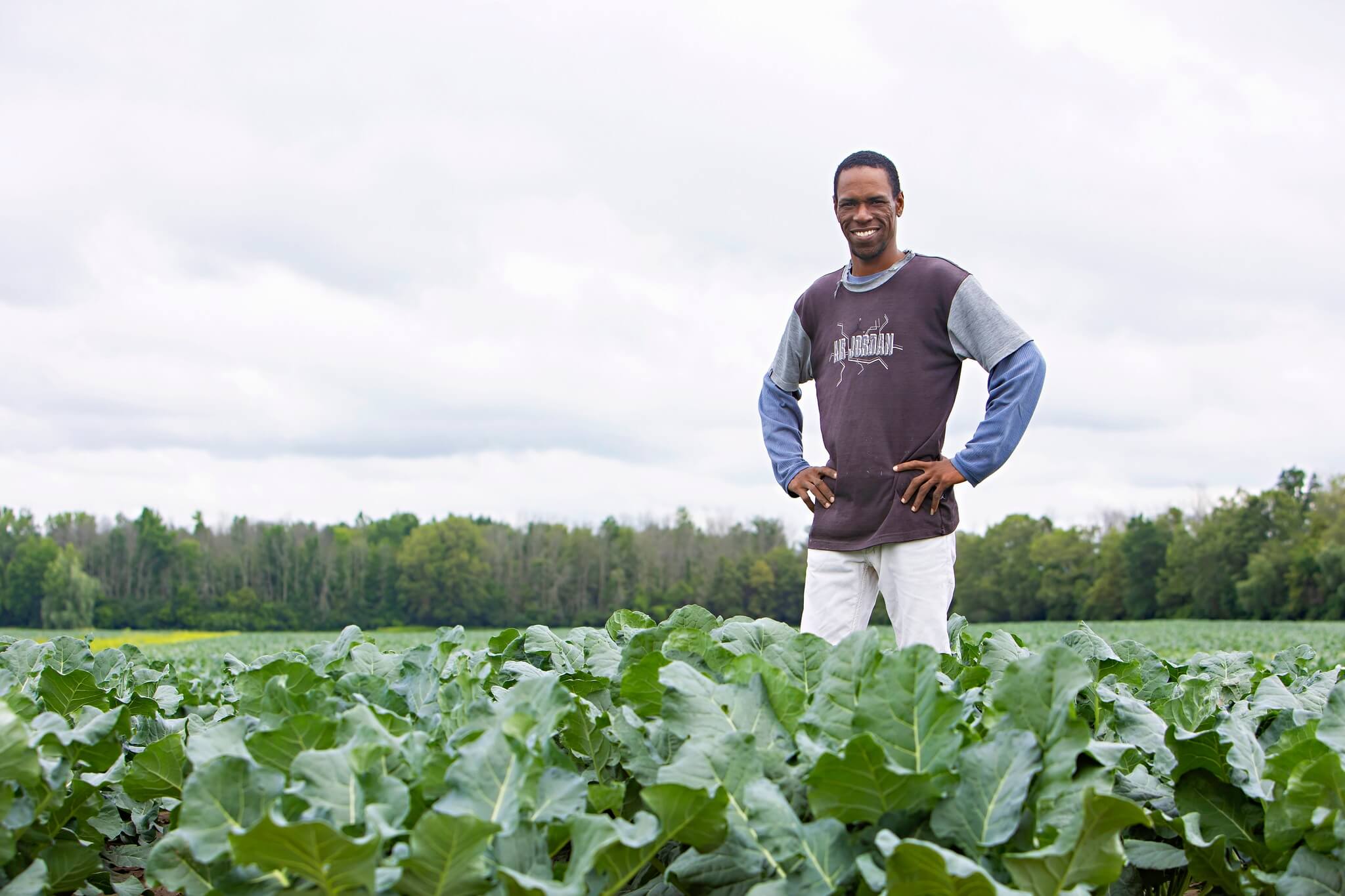
My name is Keron and I come from the great land of Jamaica – the land of sun and water! I’ve been coming here for nine years. Our MP distributed some information on the Seasonal Agricultural Worker Program and I applied. There’s always more people apply than get chosen so I was glad to get chosen.
I like working on this broccoli farm. Canada’s a very nice country. It’s got a nice environment and it’s clean but it’s too cold! The people are honest and hardworking and everyone’s OK. I work as a lead hand here. I help plant and harvest and serve as a supervisor in the field. If anyone’s experiencing trouble, I’m there to help.
I’ve got two children, a son aged 14 and a daughter 10. No one ever wants to leave their family and it was hard coming here at first but you have to sacrifice something to get something. Now, we’re all kind of used to it.
For fun, I like to exercise. I ride a bike and enjoy going for walks.
-Keron, Seasonal Agricultural Worker from Jamaica working on a broccoli farm
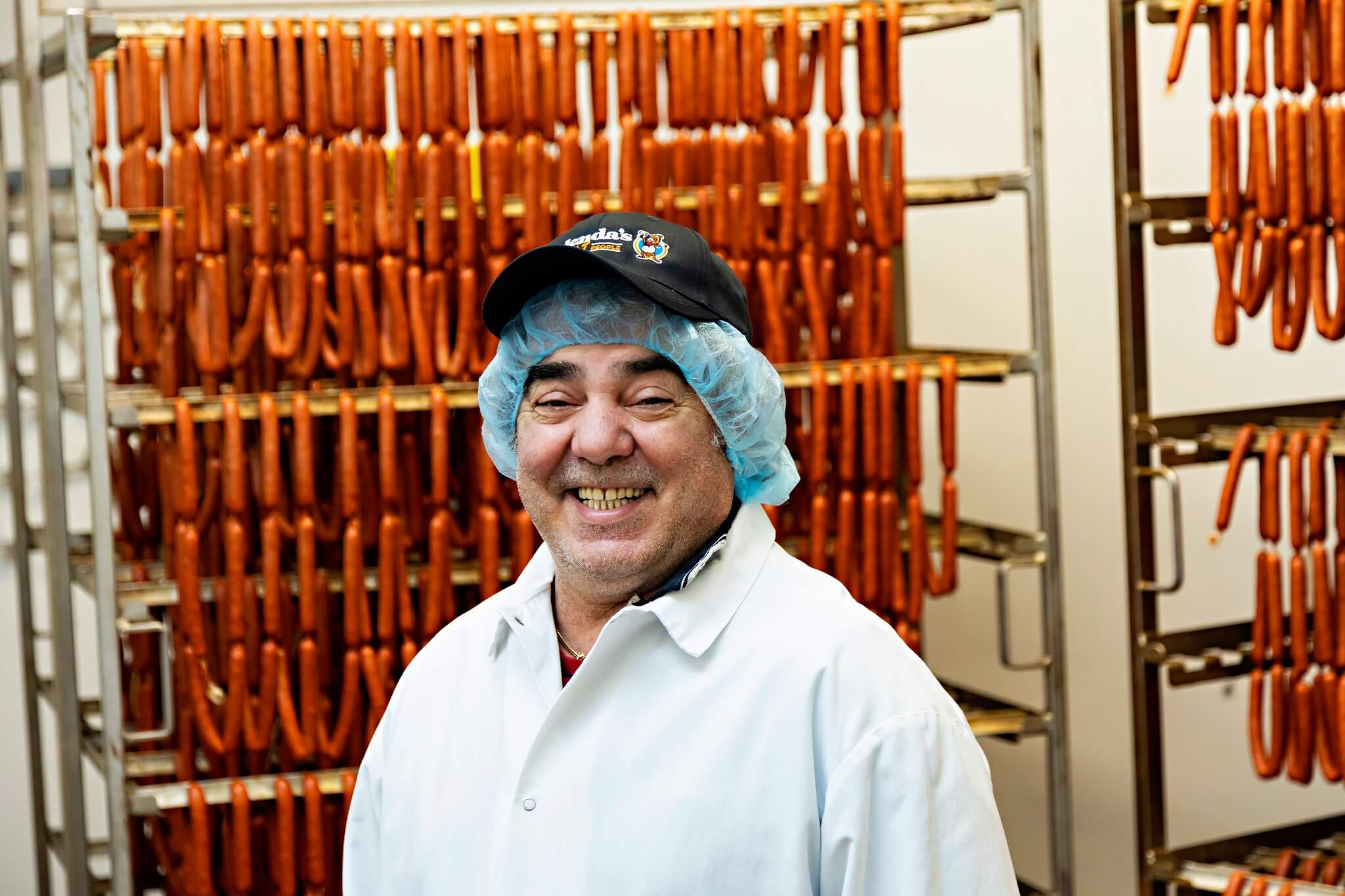
I came to Canada from Italy on a vacation in 1977 and that vacation has lasted 45 years! I came from a small town and started working at a local butcher shop there when I was about 10 years old. I think he paid me five cents per week.
I am the second of 11 children and was 18 when I came to Canada. I still have five sisters living back home.
I’m Halenda’s sausage maker. Our sausage has won awards at the Royal Agricultural Winter Fair and in Ontario’s Finest Meat competition. It’s been an interesting craft to learn. We make sausages that originate from all over the world – from Germany, Yugoslavia, Austria – all different kinds. Our Kobassa is the most popular. Everyone loves it.
My wife is also Italian – from Rome – but we met here. We’ve had a good life in Canada and have three children and four grandchildren. For fun, I love to barbecue, drink wine and garden.
-Lorenzo, Sausage Master, Halenda’s Meats
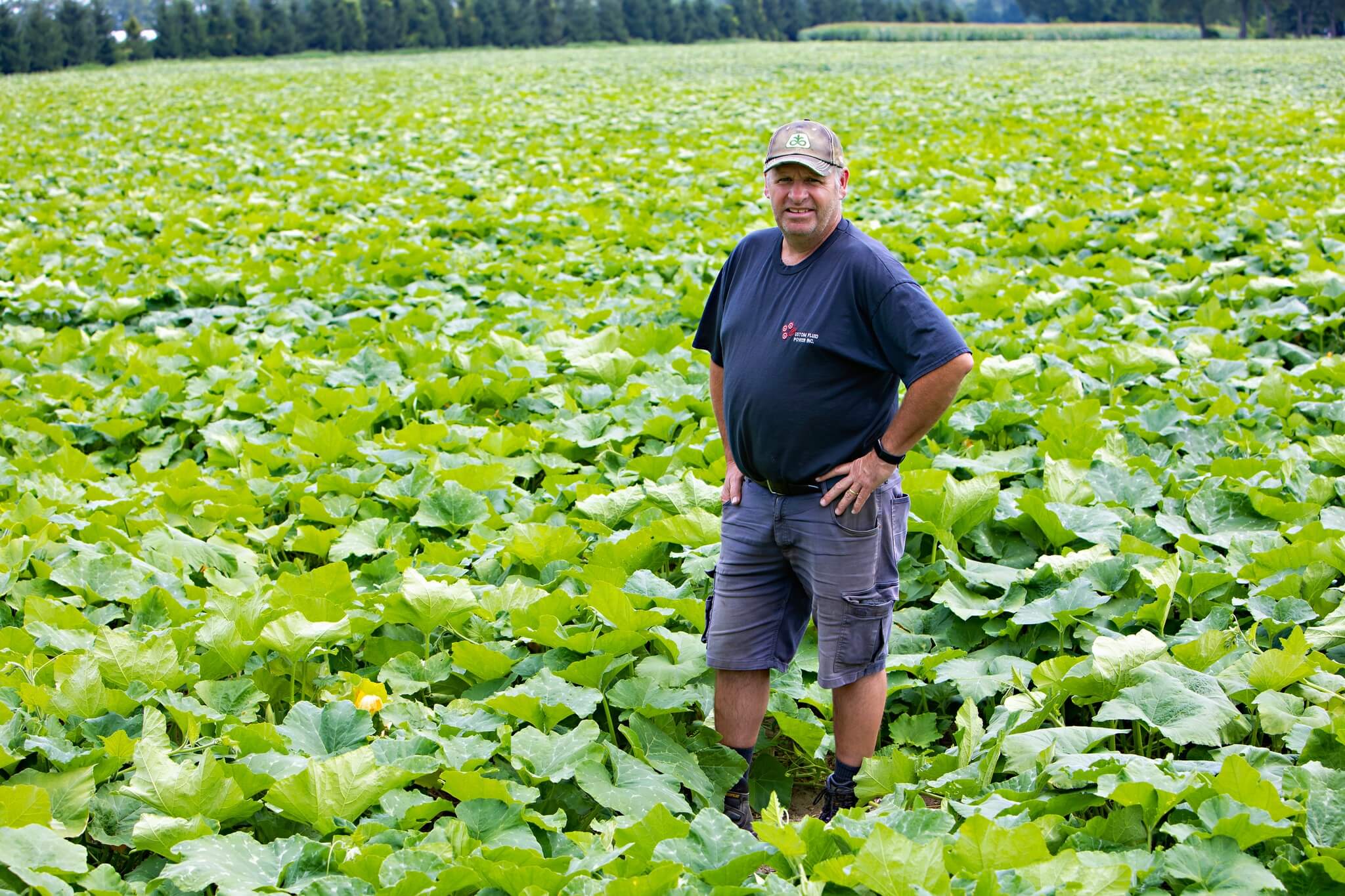
I grew up on this farm. My parents bought in 1964 after emigrating from Holland. Back then, they grew tobacco but as that industry declined, we had to diversify if we were going to keep farming. Now, we grow watermelons and butternut squash. The watermelons are sold to grocery stores and the squash is processed into baby food and other products. There are only about 10 watermelon growers in Ontario.
These crops require a lot of labour. They’re planted, weeded and harvested by hand. In 2020 when COVID-19 hit, our skilled team of Mexican employees couldn’t get here on time. So we hired a team of high school students and other local people to fill in. We were desperate for help and were grateful when they showed up.
Some of our Mexican employees have been coming here for 20 years. Without them, we couldn’t do what we do. They’re essential to our farm’s success and they know our crops as well as we do – maybe even better. Carlos, as an example, has been coming here since 2011. He can feel and tap a water melon and tell you exactly what’s inside – whether it’s ripe, cracked or still needs more time before harvest. It’s incredible. Alberto’s been here for 21 years and is our main watering guy.
-Pete, Watermelon and butternut squash grower
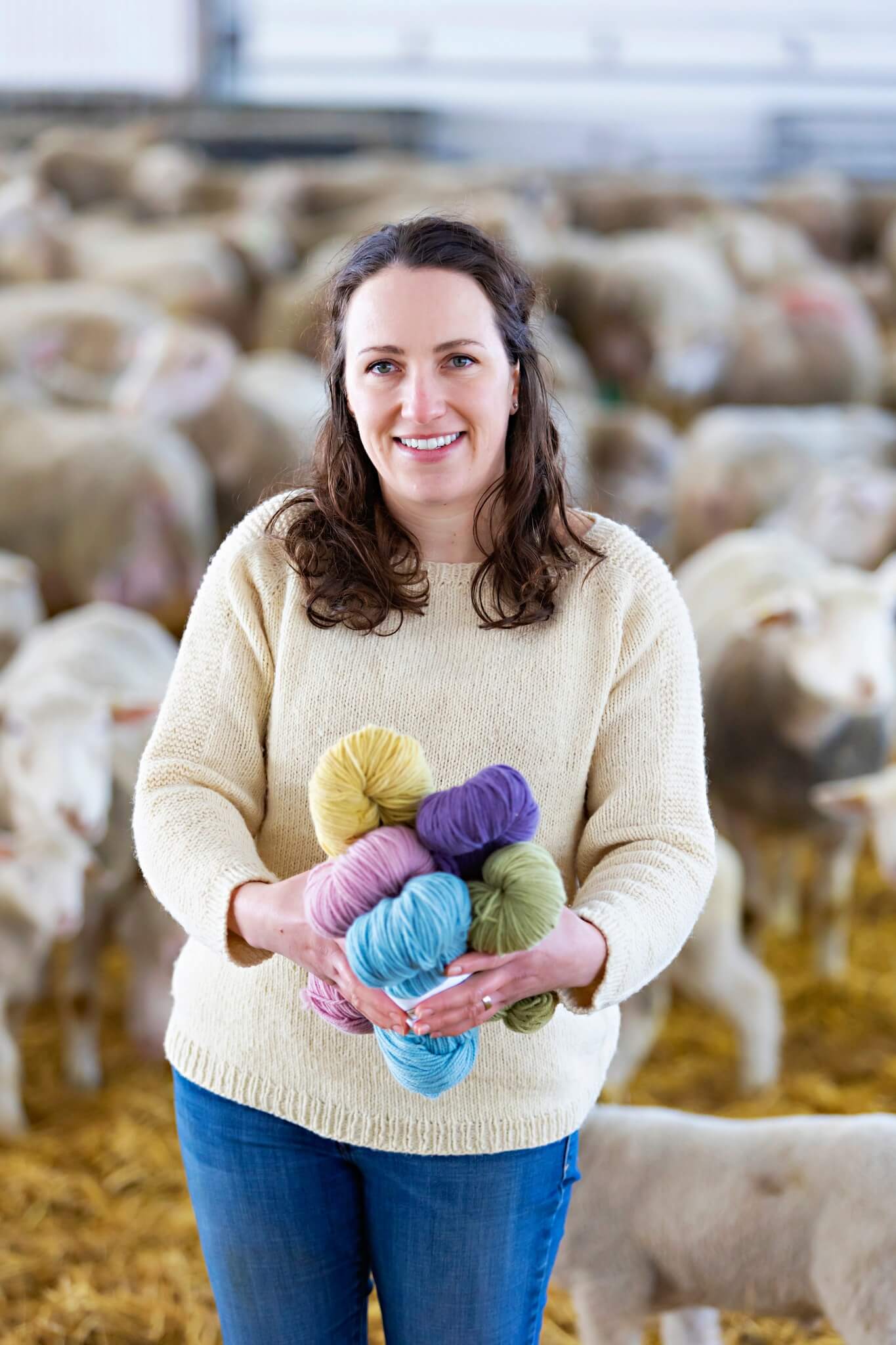
Why did I get into the wool business? It’s because sheep grow wool, wool makes yarn and yarn makes sweaters ... and why can't we use our wool for that?! My husband and I have been raising sheep since 2005 and while we need to shear them to keep them comfortable, wool is mostly exported and as shepherds, we don't get to see the value. I started using my creative and artistic side and got involved in the fibre world and experimented with what we could do with our wool. We’re now selling products like yarn, pillow stuffing, blankets and more. The products are beautiful and there’s a real demand for them. Much like local food, local fibre is something our customers look for. We mostly sell online and at fibre markets but for the first time this year, I’ll be bringing our products to the One of a Kind show in Toronto.
-Romy, Ontario sheep Farmer
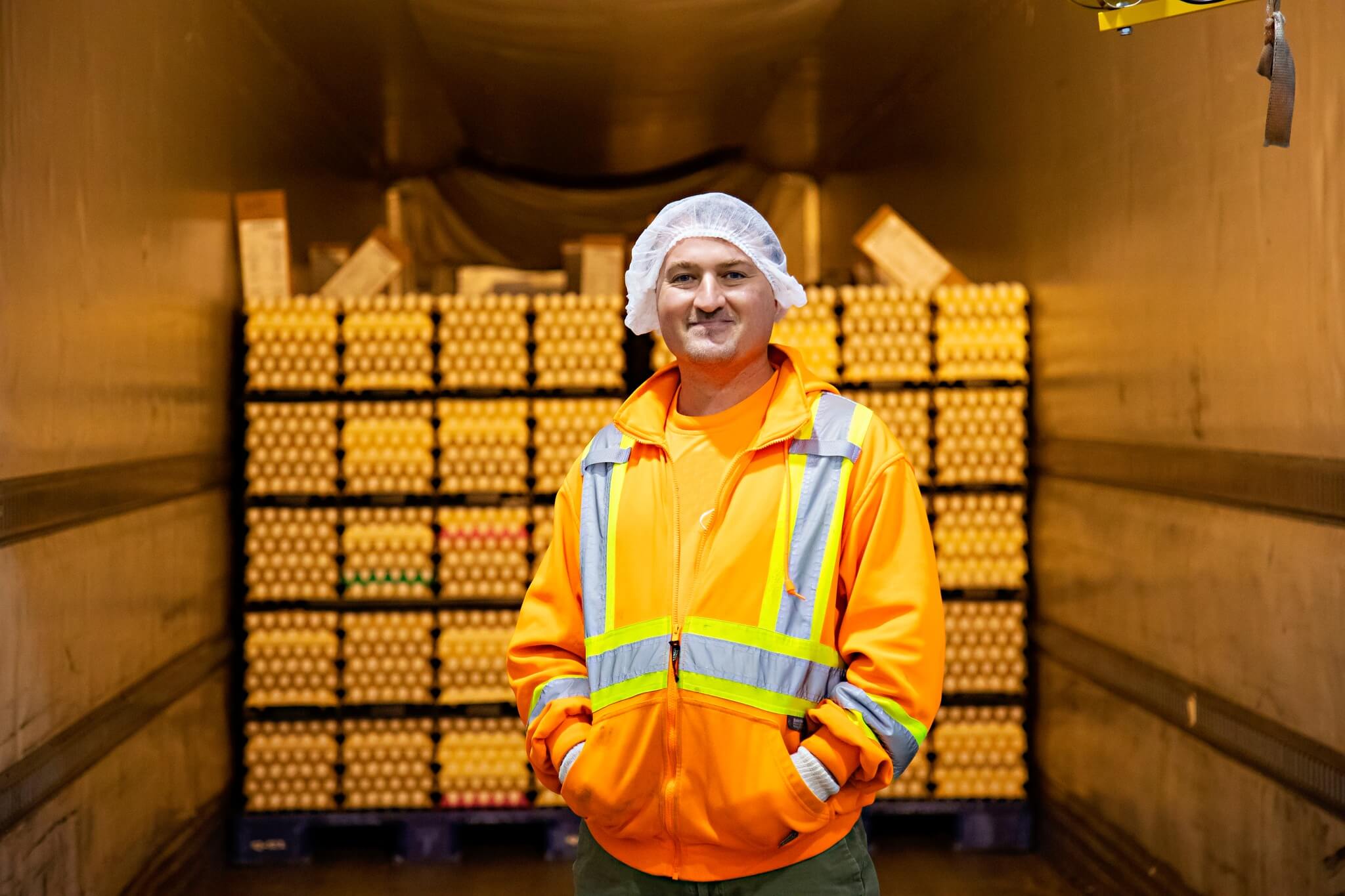
I was raised on a hobby farm. We had horses, pigs, chickens, rabbits and beef cattle and I worked there when I was a kid. I also worked for a food manufacturer and for a lumber company before coming to this egg company.
I’m amazed at the automation here. Everything’s really changed so much in the last 20 years. At the beginning, I was just overwhelmed at the amount of eggs that come through here.
When I’m not working, I play slow pitch and really enjoy fishing. I’ve also got a little hobby pickling eggs for my coworkers. I add a little jalepeno to the mix. I like the spice!
-John, egg processing company
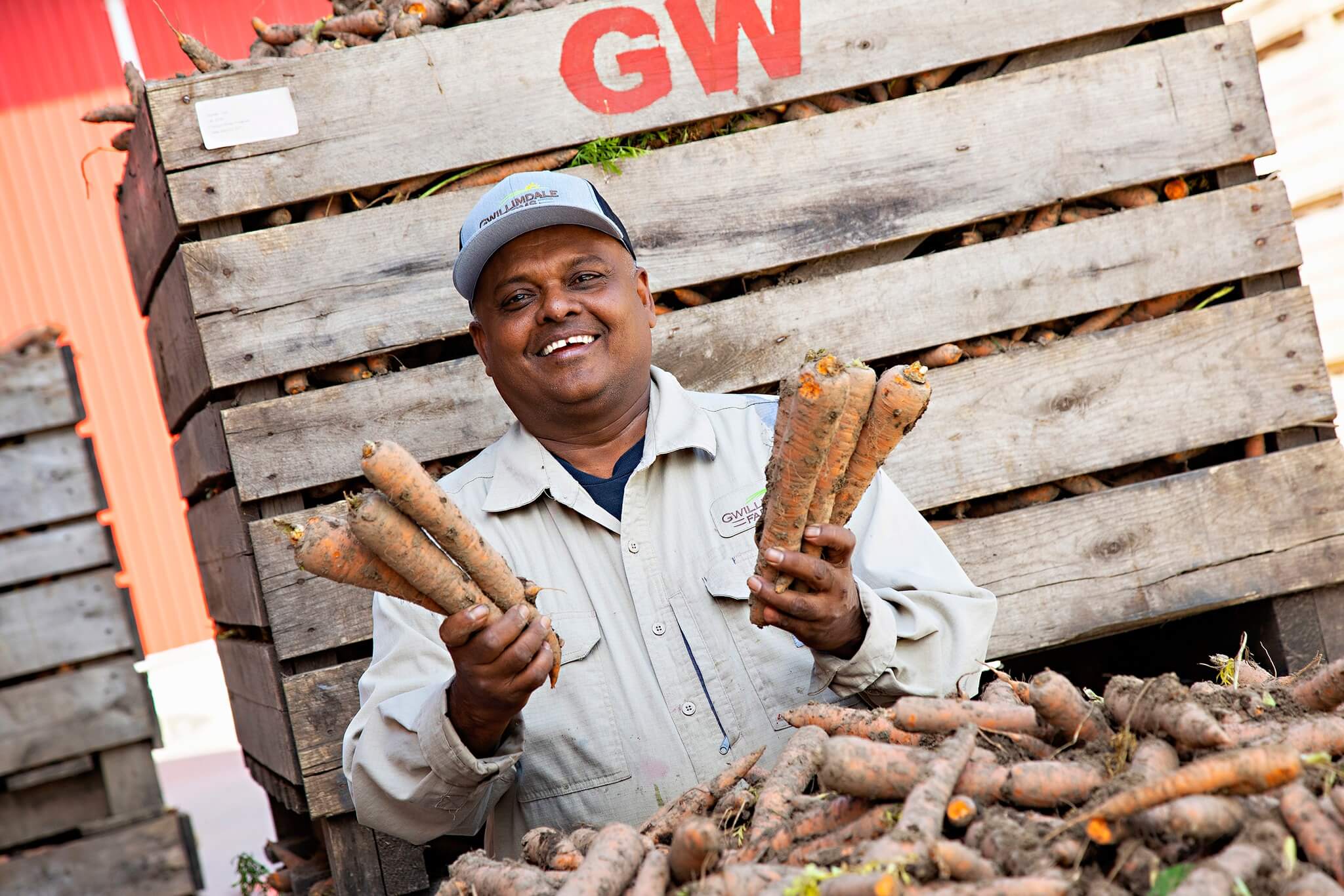
My name is Baldeo and I’ve been coming to Canada from Trinidad and Tobago for 22 years. I’ve been on this vegetable farm for about 12 years. I arrive the first week of April and leave the first week of December.
I had some friends from Trinidad working in the farm program. I had done all types of agricultural work back home and I wanted the opportunity to travel and a way of upgrading myself. When I was back in school, my teacher would say “try and uplift yourself and here I am still.”
I do a little bit of everything. At different times of the year, we have different jobs – planting, picking stones, harvesting, driving equipment. I really love my job.
What do I like about Canada? From the places I’ve been, I like everything. The people are nice. The agriculture is great. I like it because I get to learn more stuff – new things, new horizons. I get to try different equipment and new technology.
When I’m home, I work six days a week for a guy who raises honey bees. I’ve been working for him since I was young. I work with the bees and help with the construction of hives. I like sports and I really love fishing.
-Baldeo, Seasonal Agricultural Worker from Trinidad and Tobago
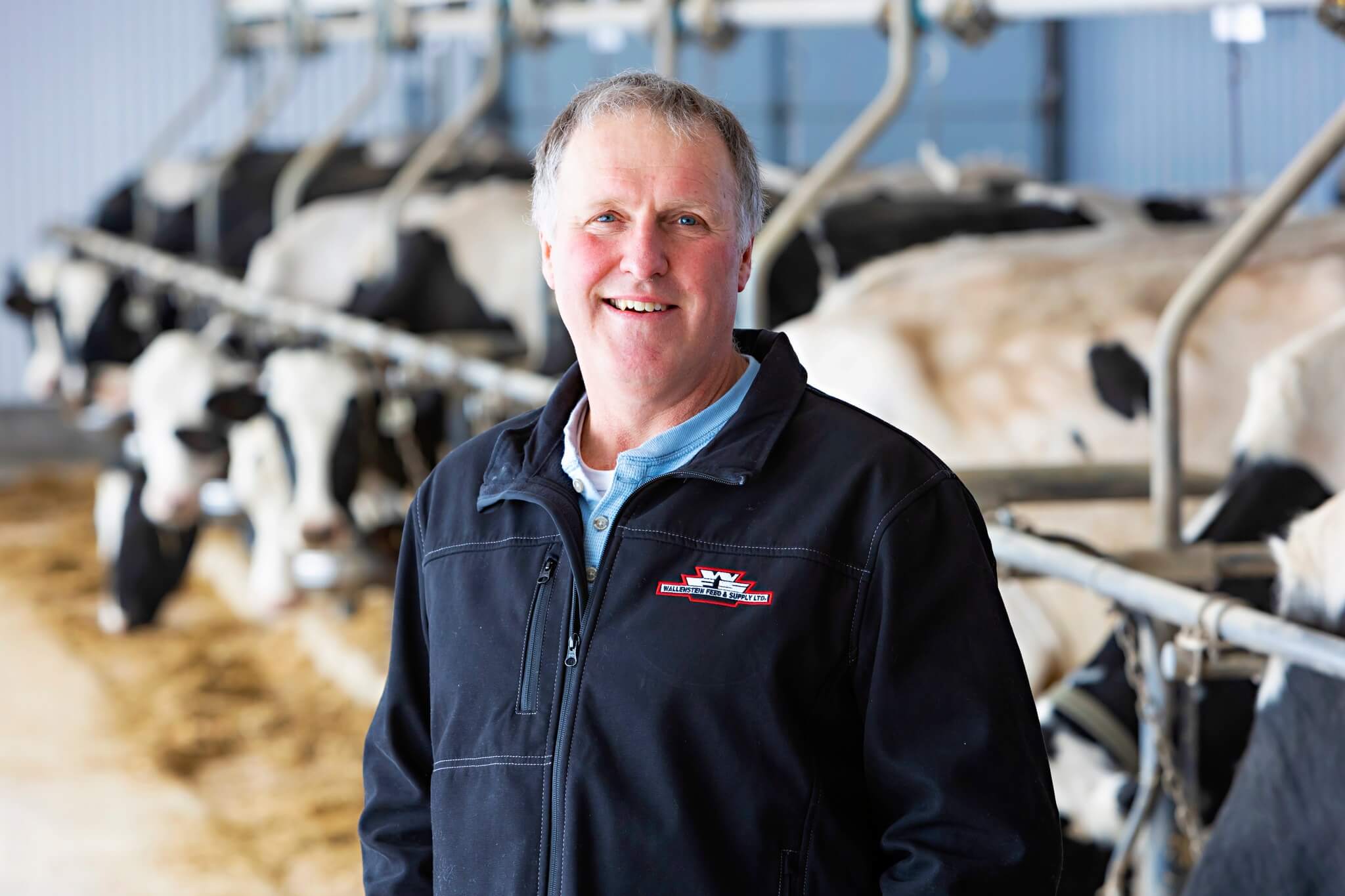
My parents moved to this farm in 1965 – when I was nine months old. Both had emigrated from Holland and neither were farmers so those early years must have been really hard for them. I’m the youngest of seven kids and never really thought about doing anything other than farm. We love what we do and it’s rewarding now that our son and his family are also farming with us.
I love being my own boss. I love working with our cows and I love to dream about the future of this farm. And I can dream because it’s my own and anything’s possible.
It’s important to spend time away from the farm too. We love camping and golfing in the summer, curling in the winter and spending time with our 10 grandchildren.
-Doug, dairy farmer
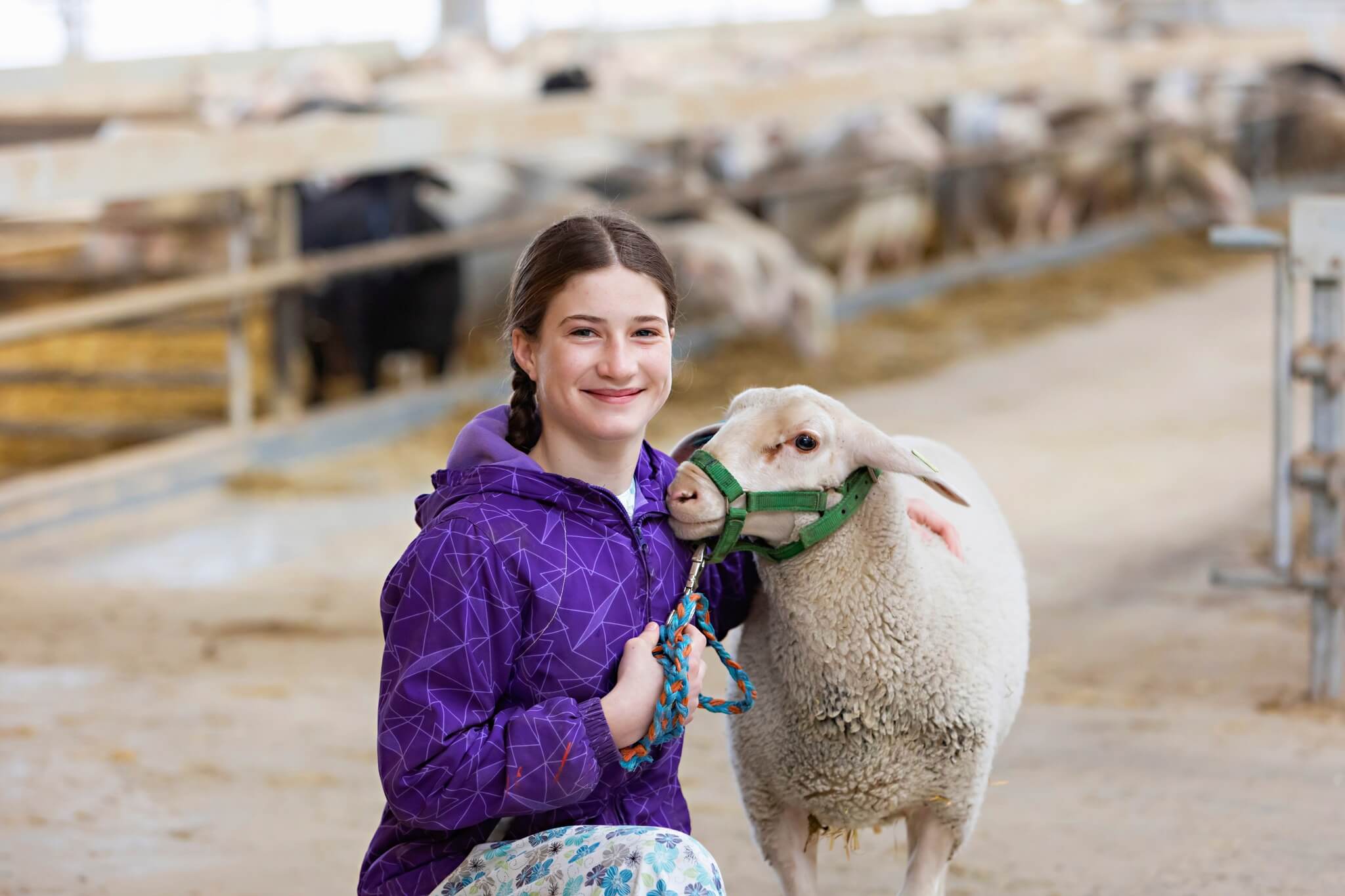
This is Ross. He’s my pet sheep. I love spending time training him. I work with him every day after school and that’s the highlight of my day. I’m training him to pull a two-wheeled cart that I can ride in. The cart used to belong to our goat, Pansy. I’ve been busy painting that cart for Ross.
On our farm, I also help with milking the sheep. I’m going to be 12 on Tuesday.
-Heather, dairy sheep farmer, Ewe-nique Dairy
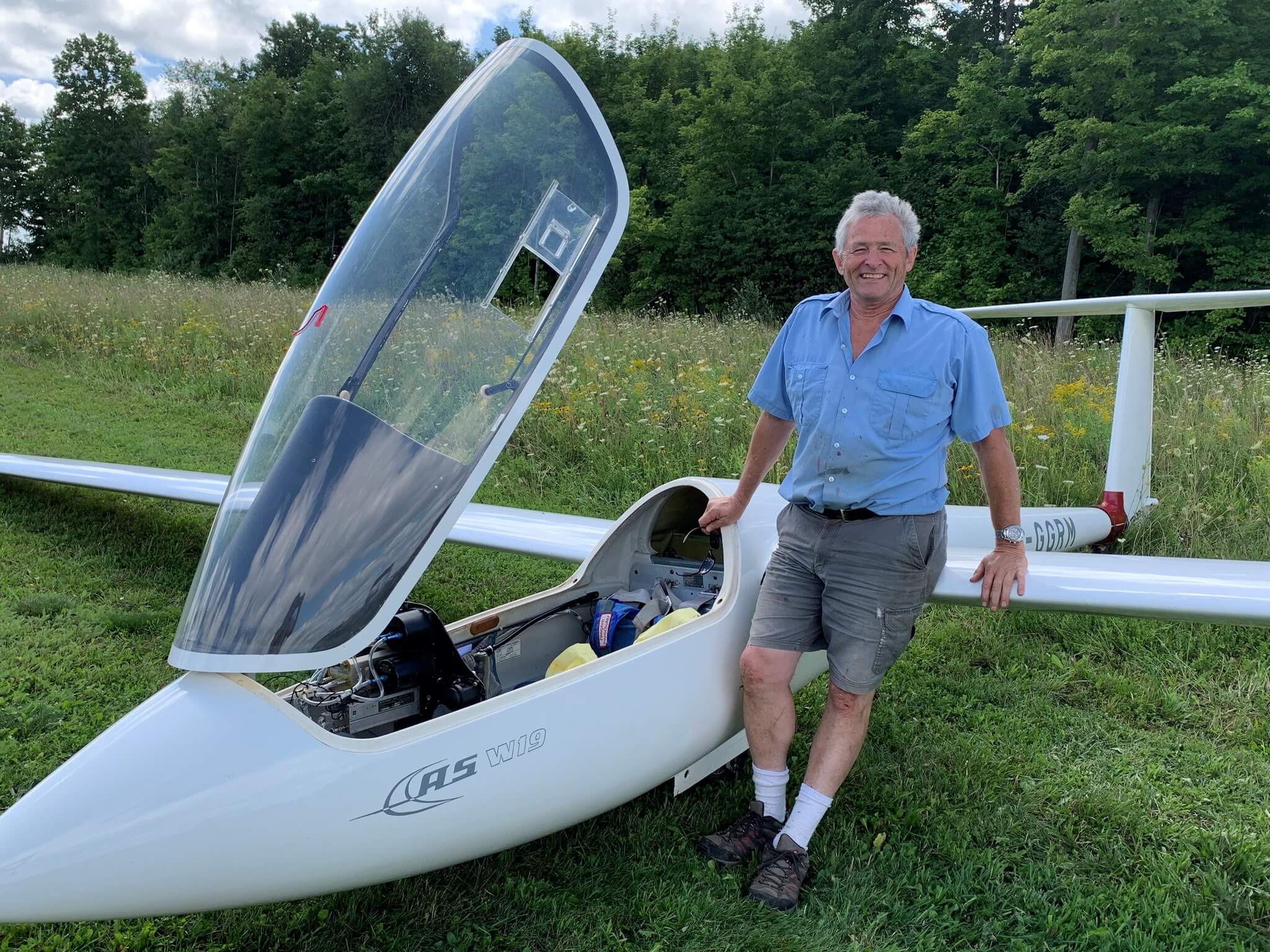
I always had a love of flying and was really interested in the stories of a neighbour of mine who flew during the war. At one point we even discussed trading straw from my farm for flying lessons from him! His recommendation was that I learn to fly gliders first – so that’s what I did. I started in 1982 taking glider lessons and then in 1984 began learning to fly planes with engines.
This one seater glider is mine – it was built in 1975 and was owned by three people before me. It’s inspected every year but because there’s no motor, there aren’t as many parts that can go wrong.
I belong to the Toronto Soaring Club and on summer weekends, I’ll either take my glider out when possible or act as the tow pilot, pulling other gliders up into the air and releasing them.
When you’re flying a glider, you’re always looking for the lift which is the turbulence that takes the gliders higher up in the sky. Lift is invisible so you’re always looking for it. Think of a pot of porridge on the stove – you’ll see the bubbles popping up in different places. In the sky, those bubbles are what glider pilots are trying to find.
I absolutely love the freedom that I feel when I’m flying in it. Some people like to go to the beach – I love to take to the air. There’s almost no feeling like it.
-Roger, grain farmer and glider pilot
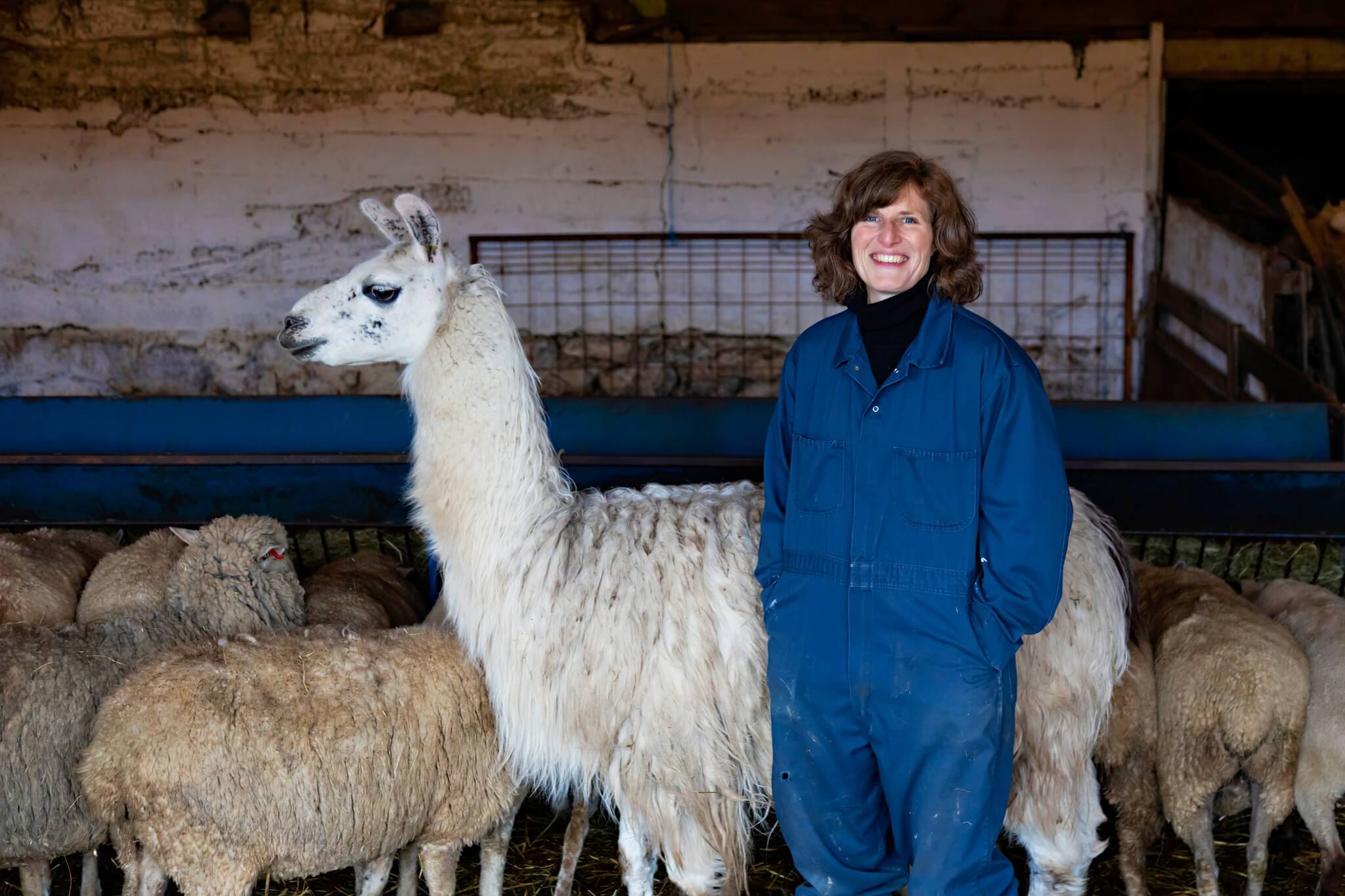
My favourite part of living and working on the farm is that we’re able to be outside every day. The land is beautiful here and we’re out of the fray. The rural community of neighbours here is also exceptional.
My husband and I raise sheep and their lambs on our property. We also have a llama, Chocky, who helps to protect our sheep from predators when they’re out on pasture.
I also work for Threads of Life, a charity that supports families after a workplace fatality or significant injury.
I love to write poetry – and a lot of my subject matter springs from what happens here on the farm. I was published in the Best Canadian Poetry book of 2020 and have my own poetry book coming out late in 2021.
-Susan, shepherd
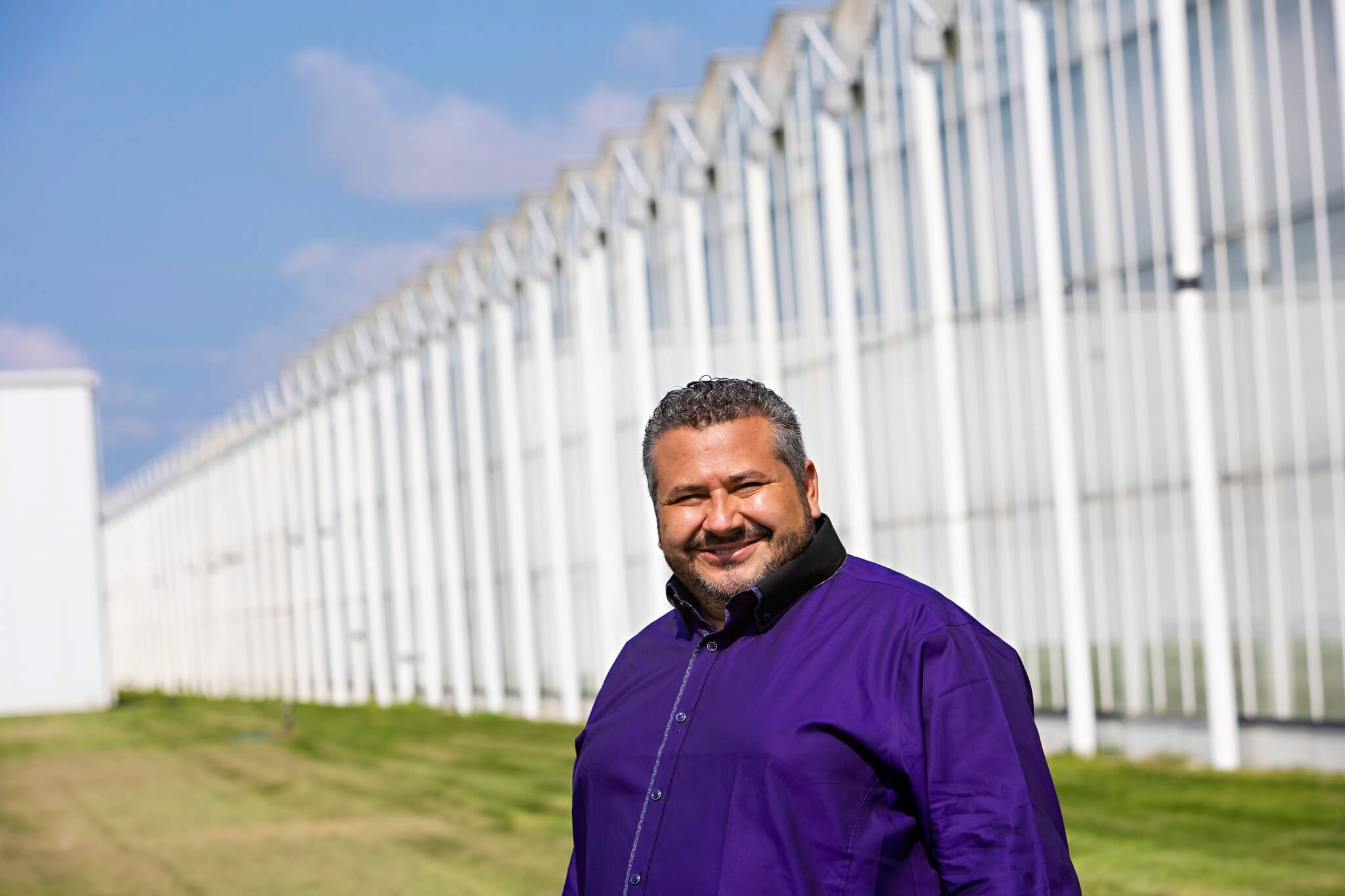
I came to Canada from Mexico over 12 years ago. What brought me here was the safety of this country. It is a nice place to live and raise my family.
In my day job, I’m a financial advisor and I like to be very involved with the community. I was president of our local Rotary Club and when that ended, I was invited to be on the board of the Migrant Worker Community Program here in Leamington. Now I’m the chair. I do this all on a volunteer basis. It has my heart. I love the project.
Our charity has been around for more than 18 years – since 2003. We’re here to support the community’s migrant workers, especially in the area of interpretation – for example when they need to go to the doctor or when they need to go and get their social insurance number or their health card. We want to help them feel more secure in the community and to feel settled when they are here in Canada.
We also organize sports events and cultural events for them. We hold English classes. We also hold a big health and information fair annually for the workers to know the resources available to them.
During COVID, we’ve been turning maybe 90 per cent of our efforts to combat this pandemic. We’ve been helping the municipality and our health unit with translations for workers getting tests and with vaccinations. We’ve been also helping with vaccination pop up clinics.
Our biggest hurdle for the MWCP is funding. The work we do is so important but every year we don’t know if we’ll have enough money to run the programs the next year. I want to keep this amazing program going because we help so many migrant workers every single year.
Why do I love working with the migrant community? I came here 12 years ago with a little bit of English and started from the beginning. I’ve been in their situation and I know what it’s like to come to another country not knowing the language, not knowing the culture.
I’ve met so many great people – and there are so many stories. With one worker that I knew well, I was able to offer advice using my background as a financial advisor. He was able to start his own business in Mexico and he’s now successful enough that he doesn’t need to come to work here. It’s nice to see stories like that.
-Martin Varela, Chair, Migrant Worker Community Program, Leamington and Kingsville.
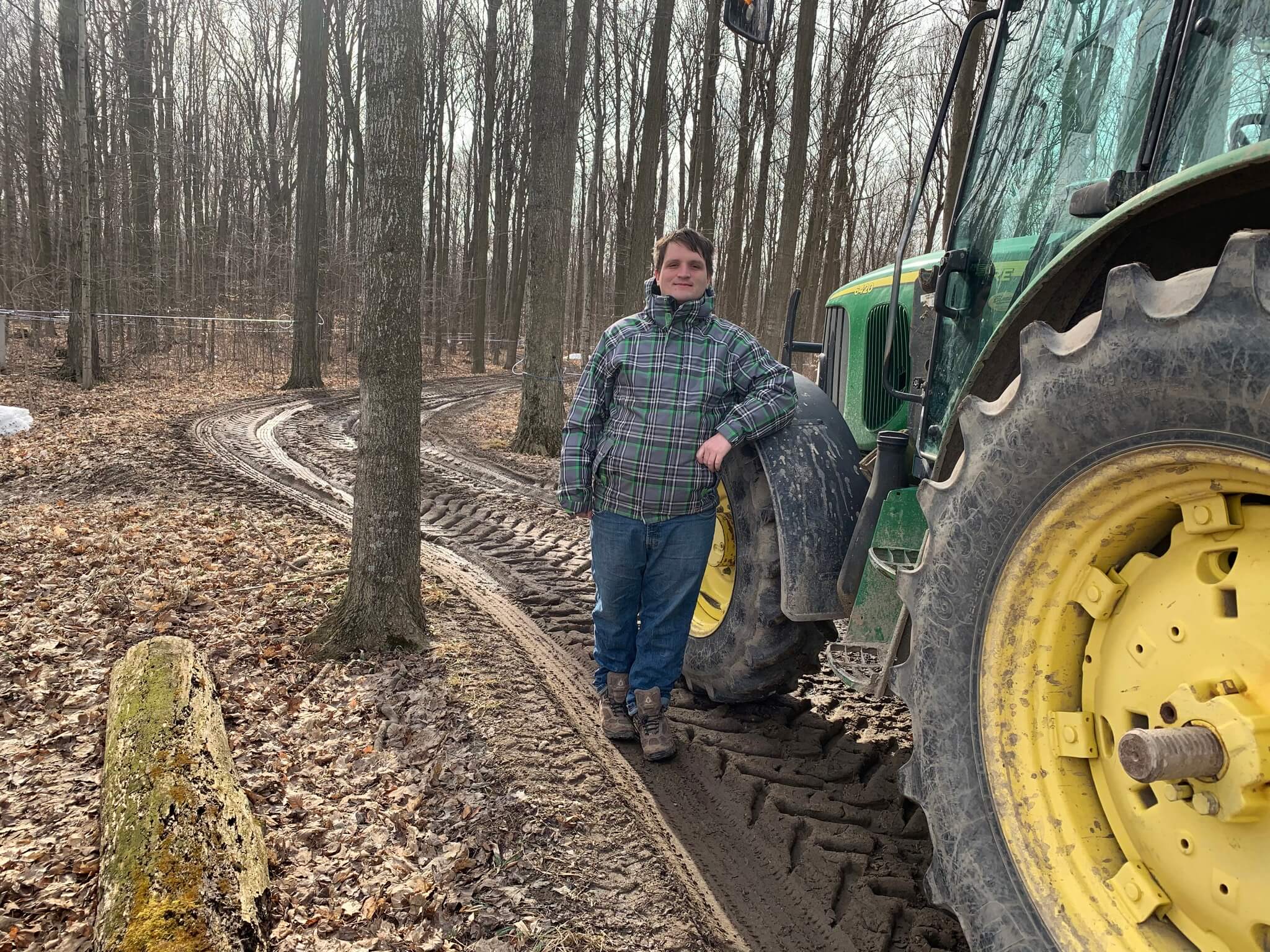
During maple syrup season, my role on the farm is to drive the tractor back and forth between the bush and the sugar shack. I also help split wood during the winter and I help in our turkey barn, feeding and bedding the birds.
Annually, we also hold a Maple weekend and my job is to host the groups visiting our sugar bush. They always want to know a lot of information about how the system works and how much sap you can get from a tree. It takes 40 litres of sap to make one litre of maple syrup and we get about 1.5 litres of syrup per tree. Most trees only have one tap but some of the bigger ones can handle two. I think most people are really amazed by the process. It’s good to show them where their food comes from. My favourite type of syrup is Amber.
-Addison, 27, sixth generation maple syrup producer and farmer
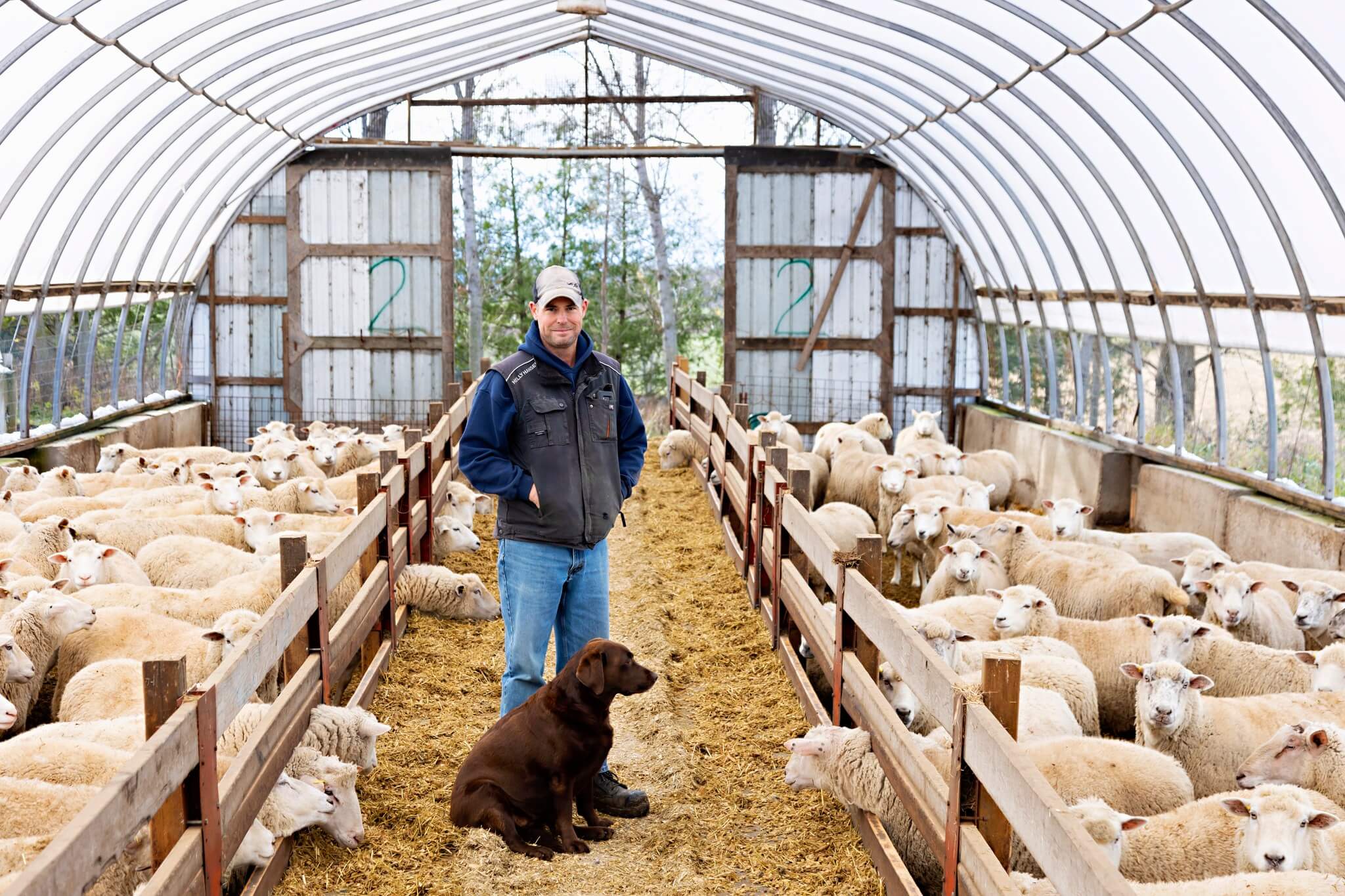
It’s been a unique journey to get here. It’s not like I rolled out of bed one day and said I want to be a shepherd but I really do enjoy it.
I was raised on a small beef cattle farm. I went to school for Mechanical Engineering and did an apprenticeship as a tool and die maker. In 2010, my wife Jen (an elementary school teacher) and I purchased my parents’ farm and started growing crops on the land. As we could afford it, we bought some of our own equipment and then a second farm.
In 2015, I bought my first 50 sheep from the farmers that owned this farm. They were great mentors to me, teaching me about raising sheep and lambs. When they decided it was time to retire, we bought their farm and business, raising mostly crossbred maternal sheep that are sold to other farmers to start their flocks. It’s been a good business to be in.
I love to learn things and here, there’s something new to learn every day. It’s also really important too to remember that we’re not simply farmers. Our family are consumers too. What we’re producing will end up on someone’s table – and that’s a big responsibility.
Our three daughters love living. Katie is 13; Jolene is 11 and Lucy is seven. They’re as involved as they choose to be. They love lambing season the most.
-Todd, Shepherd
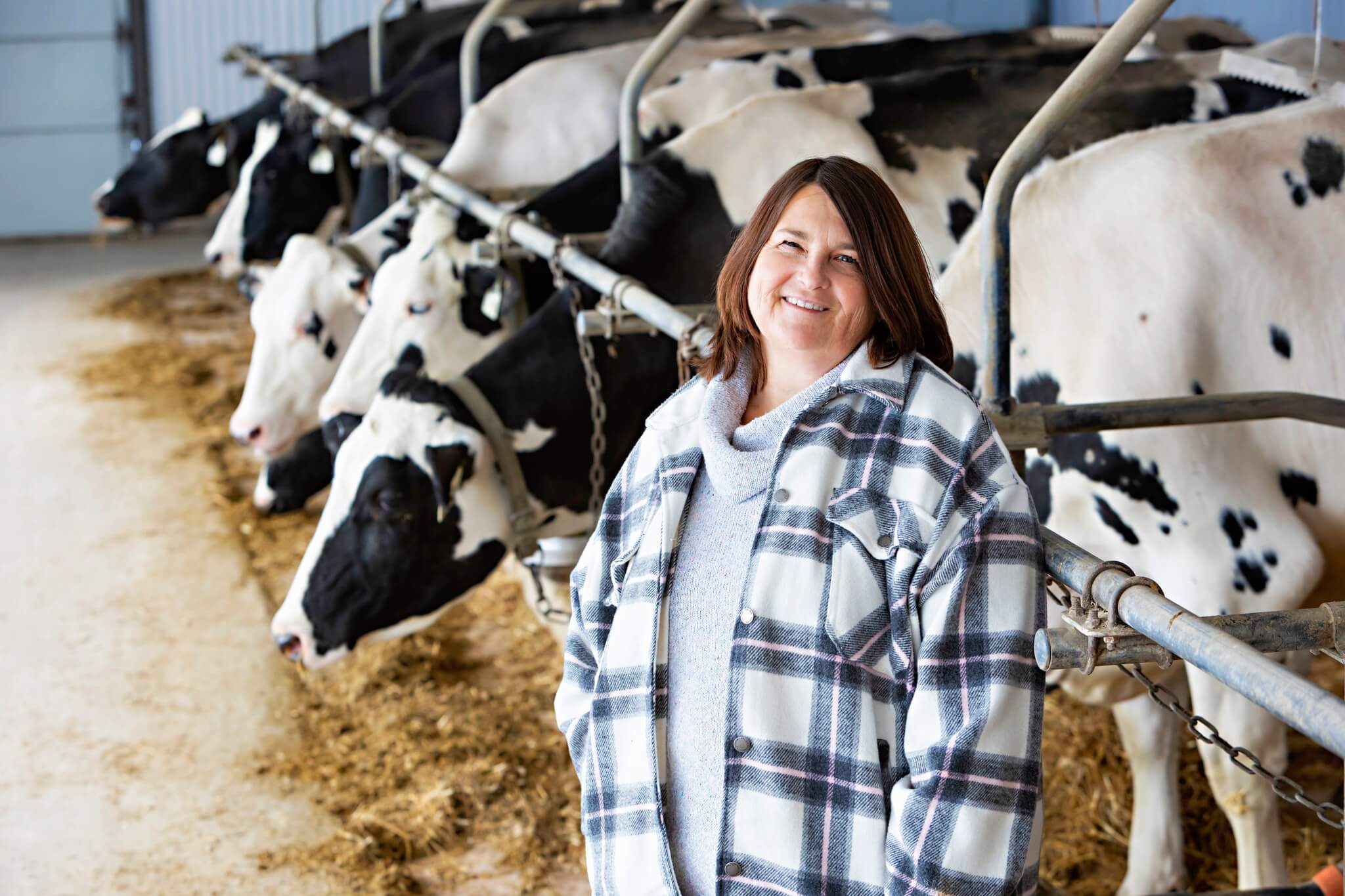
I was raised in the city and met my farmer husband Doug through a church youth group event. I remember the first time he brought me home to this farm to meet his family. I was so nervous. I never dreamed of a life as a dairy farmer but we’ve had a great life here, raising our four children and now having our 10 grandchildren come for visits. Our son and his family now also farm with us. I had a great career as a children’s programmer in the local library system and still work as a casual librarian. My role in the farm is to maintain the financial records. I really enjoy camping, golfing with Doug and crafting.
-Sandy, dairy farmer
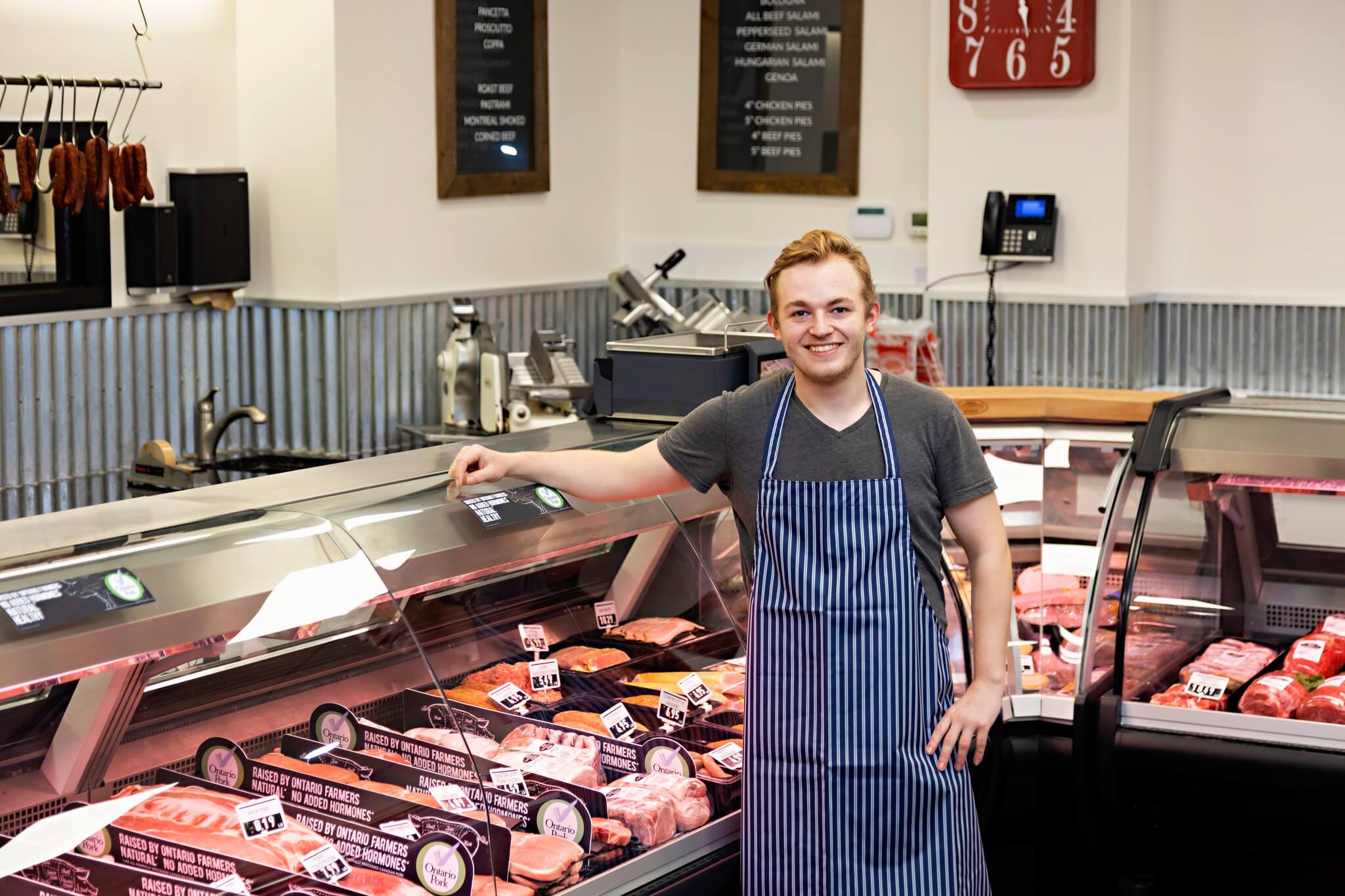
I started working at this butcher shop when I was 14 years old, sweeping up and working in the back. I’ve now been here for 10 years.
I also go to Georgian College where I’m studying aviation management. Eventually, I’d like to get my recreational pilot’s licence.
I think that the one thing people don’t realize is how local and fresh things can be. We take no short cuts here – everything is top quality coming from local farmers. That’s why I fell in love with the place. My favourite product is likely the marinated beef kabobs. They’re awesome.
I love to skateboard and long board and spend time with my dog Ollie. He’s a Australian Shepherd/Red Heeler cross.
-Simon, butcher
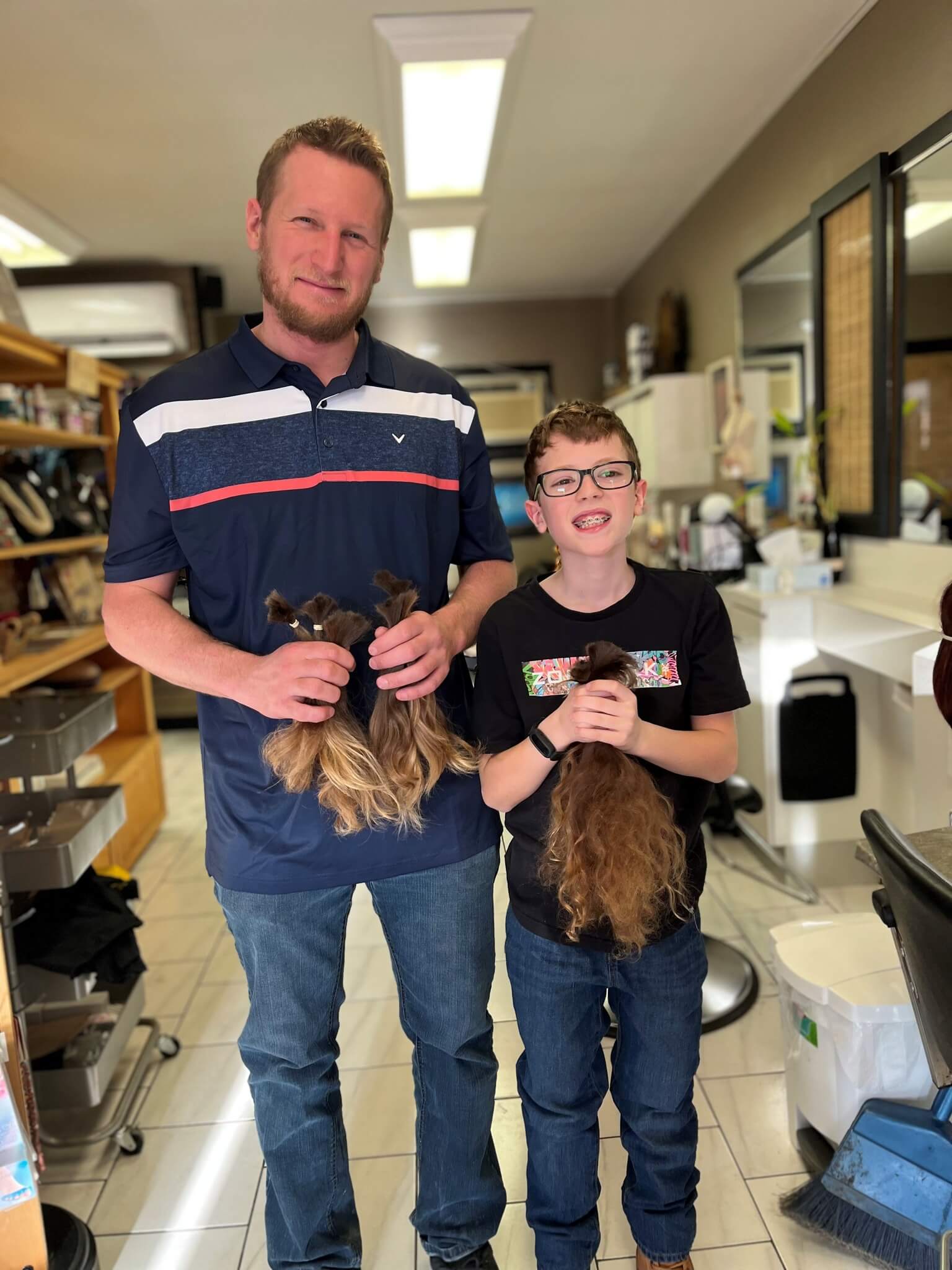
I grew up in the city my whole life. I worked for many years in the hospitality industry as a hostess and waitress at a couple of good restaurants. And then one day, I decided it might be interesting to give the other side of the food business a try. For many people, it may seem like an unusual decision but I made up my mind and was ready to give it a try! I applied for a job at this duck processing plant – an industry that I had no experience in. I was excited to be contacted for an interview, and then was given a tour. Not long after, I was offered the job and I thought, “Let’s do it!” I’ve now been here almost five years. My brother also works here too.
I was so nervous at the beginning but the lady training me was so knowledgeable and her help led me to where I am today.
One of my favourite parts of my job is the drive out of the city every morning. I love seeing the city in my rear view window and commuting out to the country. It’s so peaceful.
My family are of Trinidadian and Guyanese heritage and traditionally, we eat a lot of duck. I love cooking and my favourite way to eat duck is curried. I take a lot of pride in seeing our products in grocery stores and knowing people will enjoy it as much as my family and I do.
-Evan, age 11, turkey farmer with his dad Steven
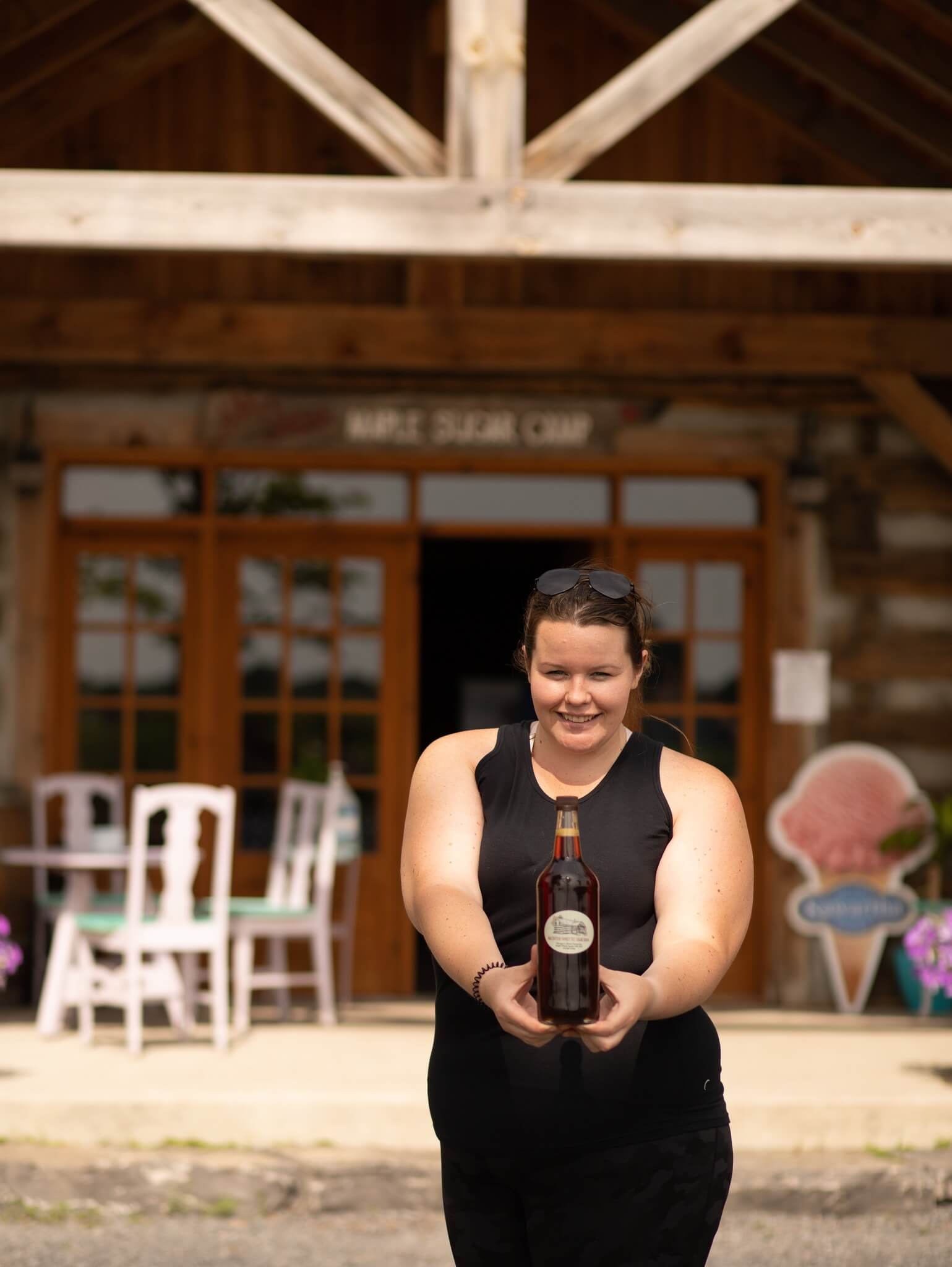
I think it’s important that people know where their food comes from and why we as farmers do what we do. That’s why we invite our community annually to our ‘Old Maple Sugar Barn’ in the spring to see how we produce our maple syrup.
My dad, uncle and grandparents started tapping trees in the early 1970s. We now have about 1600 taps. When we started building our new maple barn, all the neighbours came over with stones to add to the stone fireplace, and since then it has become a spring gathering place for friends and neighbors to come and socialize while we boil sap.
Since finishing the building, we have been fortunate to host local groups including youth organizations, historical and horticultural societies, as well as some school groups. As I take more of a lead here, my goal is to open our doors more too local groups and continue to connect the community to their food. These tours give us the chance to connect more people with their local farmers.
Springtime is obviously my favorite season. It's great to get out in the fresh air after winter and working away boiling sap really wakens me after the long winter.
My dream is to one day be full time here on the farm alongside my sisters. Right now I am finishing schooling in bookkeeping which will help me better manage our family businesses. When I am not busy working at the maple barn or dairy, I love spending time in our garden.
- Brittany, Dairy farmer and part owner of Old Maple Barn
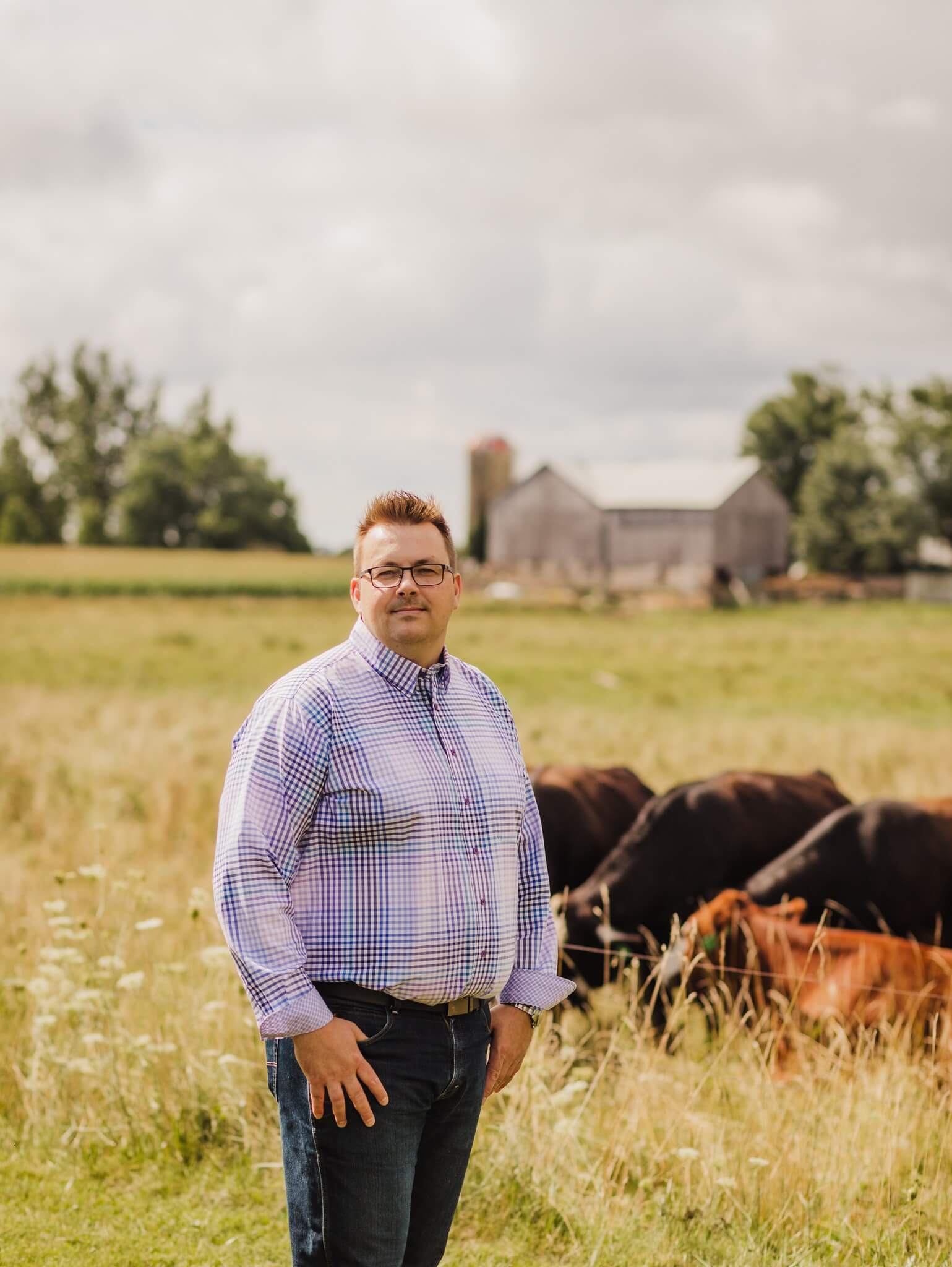
I grew up here but after university, I worked for a bank in downtown Toronto for a number of years. In the city, there are some statues of cows and I found myself looking at them and wondering why I wasn’t spending more time here at the farm with real cattle. And that was the start of moving back into the agricultural sector and focusing more on the family farm business. Even when I worked in the city, I’d escape here almost every weekend.
My dad was passionate about his family, his farm, and his cattle. He loved bringing people together. I grew up working with him on herd improvements and learned to fix or solve anything that needed attention by myself or with family. He passed away 11 years ago but I think he’d be pleased to see me now. I now farm with two uncles and a close family friend. We all share resources and cooperate on other aspects of the business too. It’s a real family affair, it’s great to see everyone pull together when needed.
Our farm’s main focus is on Simmental genetics. We want to ensure that our animals are the best they can be. We’re always trying to plan five or ten years into the future to anticipate what we think the beef industry will look like and produce animals for that market. In the past we’ve even exported our cattle to Brazil, Europe, Russia and Australia.
My wife is a veterinarian. We met at university and now we’re raising our daughter, Annika, on this farm too which is pretty special.
-Josh, beef farmer
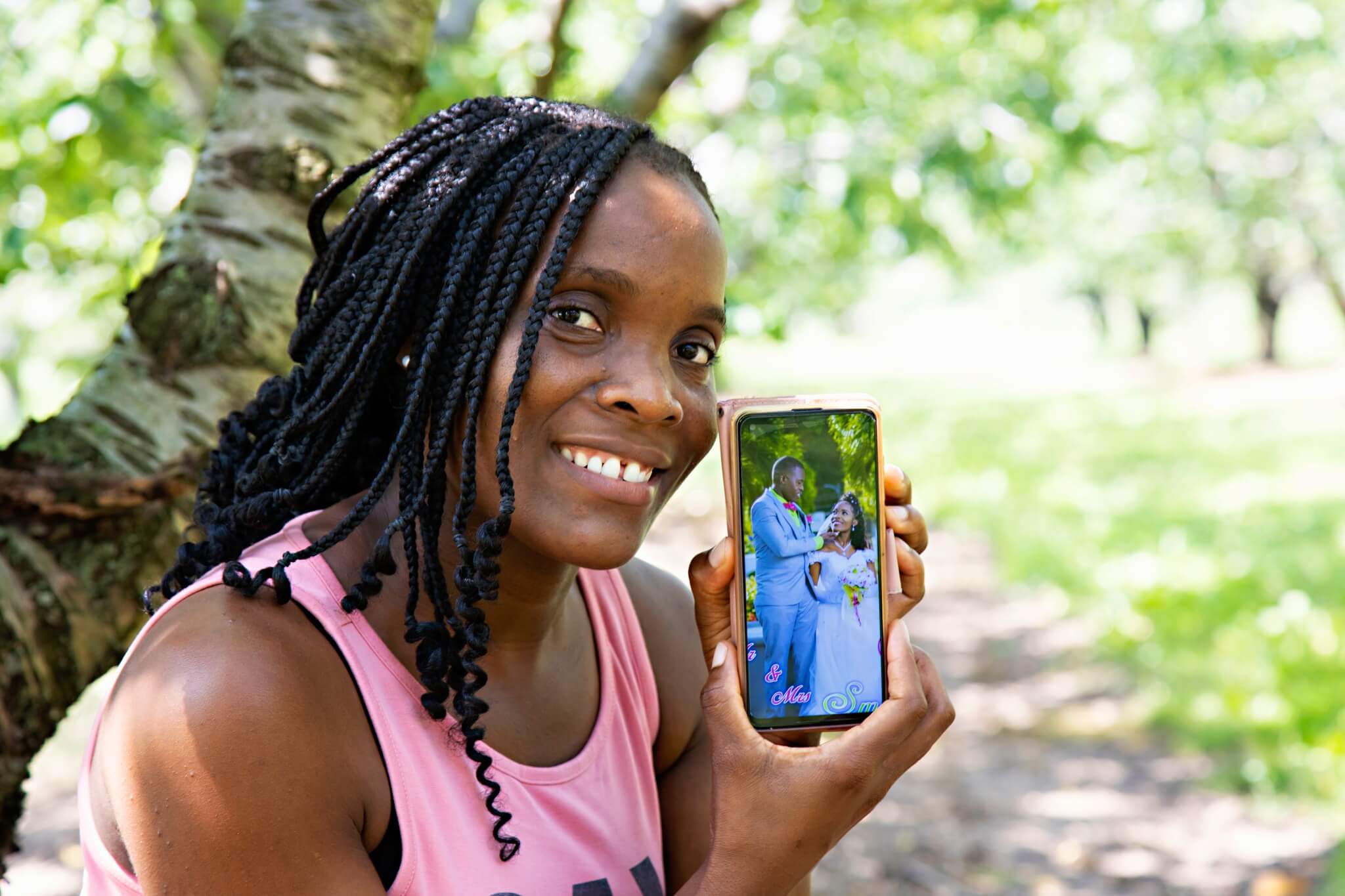
This is my fourth year working on this peach farm and my seventh year coming to Canada from Jamaica. I met my husband Dwayne working on here. He’s also a Seasonal Agricultural Worker from Jamaica. Back home, he did a bit of farming and a bit of construction work like plumbing, tiling and carpentry. What attracted me to him? He’s very humble and caring. He’s also a God-fearing man who loves and respects his family.
We started dating in July, 2019 and were married on January 4, 2021. It was a beautiful wedding. I’m originally from St. Mary Parish but now we live in the Portland Parish on the north/east part of the country. It’s nice that we can work on this farm together.
For fun, I like to play dominoes or go on picnics to the river.
-Tackesha, seasonal agriculture worker from Jamaica
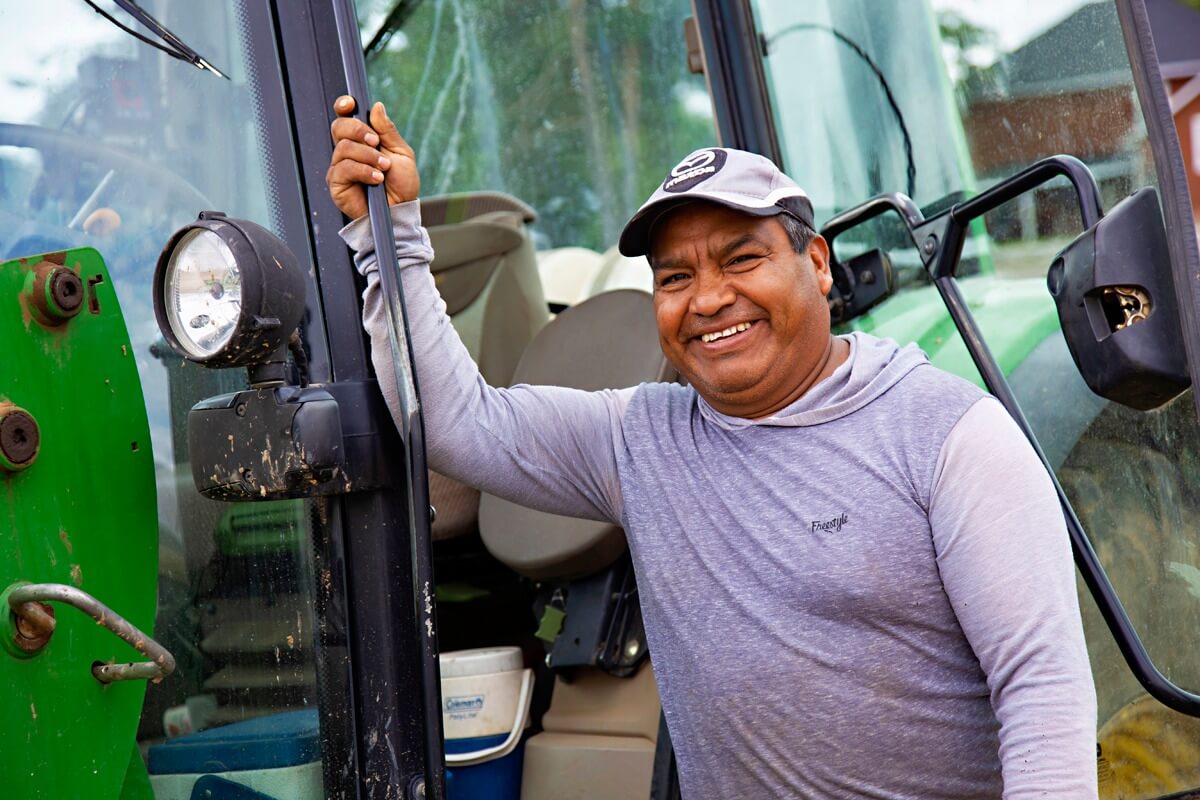
I’ve been coming to Canada for 22 years, always working on this flower farm. Today, I’m heading out with the tractor to plant sunflowers.
I knew people in Mexico that had been hired through the Seasonal Agricultural Worker Program so I applied. I’m a farmer at heart. In Mexico, I have a little farm growing maize (corn) and raising animals. I have two oxen for working my land there. They are easy to care for because they don’t require any gasoline or diesel to keep them running (like tractors do). Only food! Here, I do a lot of the tractor work, helping with everything from the time the flowers are planted until they are harvested.
-Noe, Seasonal Agriculture Worker from Mexico
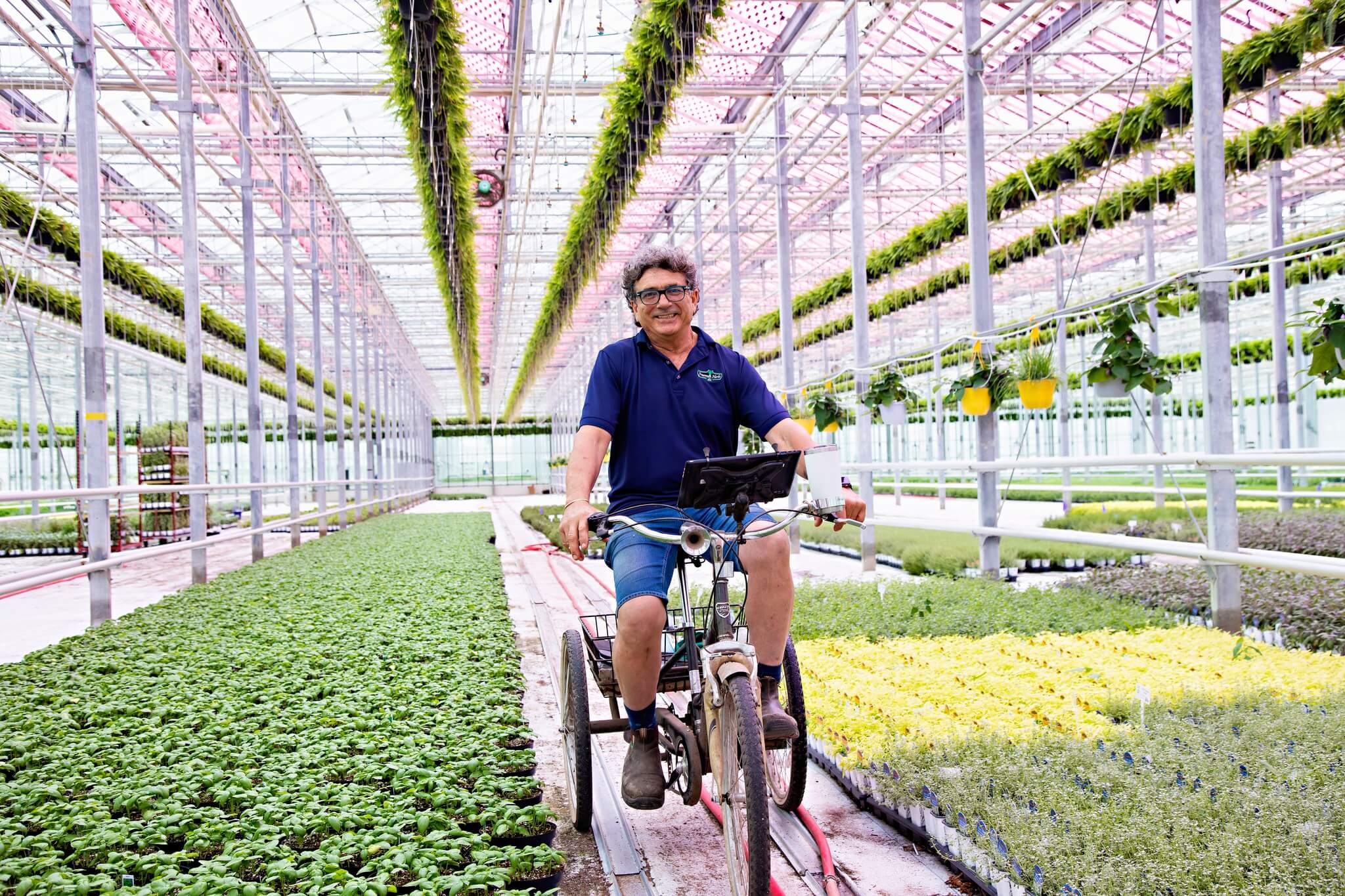
My parents had a farm in southern Italy growing crops like wheat, grapes and olives. I studied tropical agriculture on a scholarship from the FAO (Food & Agricultural Organization of the United Nations) and, after visiting Indonesia on a holiday, stayed there for 20 years. I speak eight languages and also worked as a consultant in Thailand, the Philippines, India, Singapore and Australia. I met my Canadian wife when she was in Italy on a skiing holiday. She was 15 and I was 19.
We decided to move to Canada in 2010. I wanted my son to have a western college education. I started working at this herb business in 2013. We grow 12 kinds of certified organic culinary herbs year-round like basil, mint, parsley, oregano, cilantro. We have a conventional production as well.
What’s my favourite herb? Every one of them is important! I’m Italian after all. I grew up with herbs. If you’re cooking lamb, you need thyme. Salmon? You need dill. If you’re making a béarnaise sauce, you need tarragon. I love to cook and am a member of the Niagara chapter of Les Marmitons, an international association of amateur chefs.
My work here is in researching new technologies and new products. I’m especially interested in the effects of lighting in the greenhouse and think that we as a company have been ahead of the trends in using LED lighting. It’s incredible how by simply changing the spectrum of lighting in the greenhouse – by changing the light spectrum red/blue ratio, for example - you can change the architecture of a plant – making it taller, more aromatic, trigging its defence mechanisms to control diseases. I also love testing new seeds from breeders. We’re currently testing about 15 varieties of basil. Maybe four will eventually make it into production for the consumer.
I’m known in this greenhouse for my bike. That’s how I get around!
-Marco, Organic Production/ R&D Manager
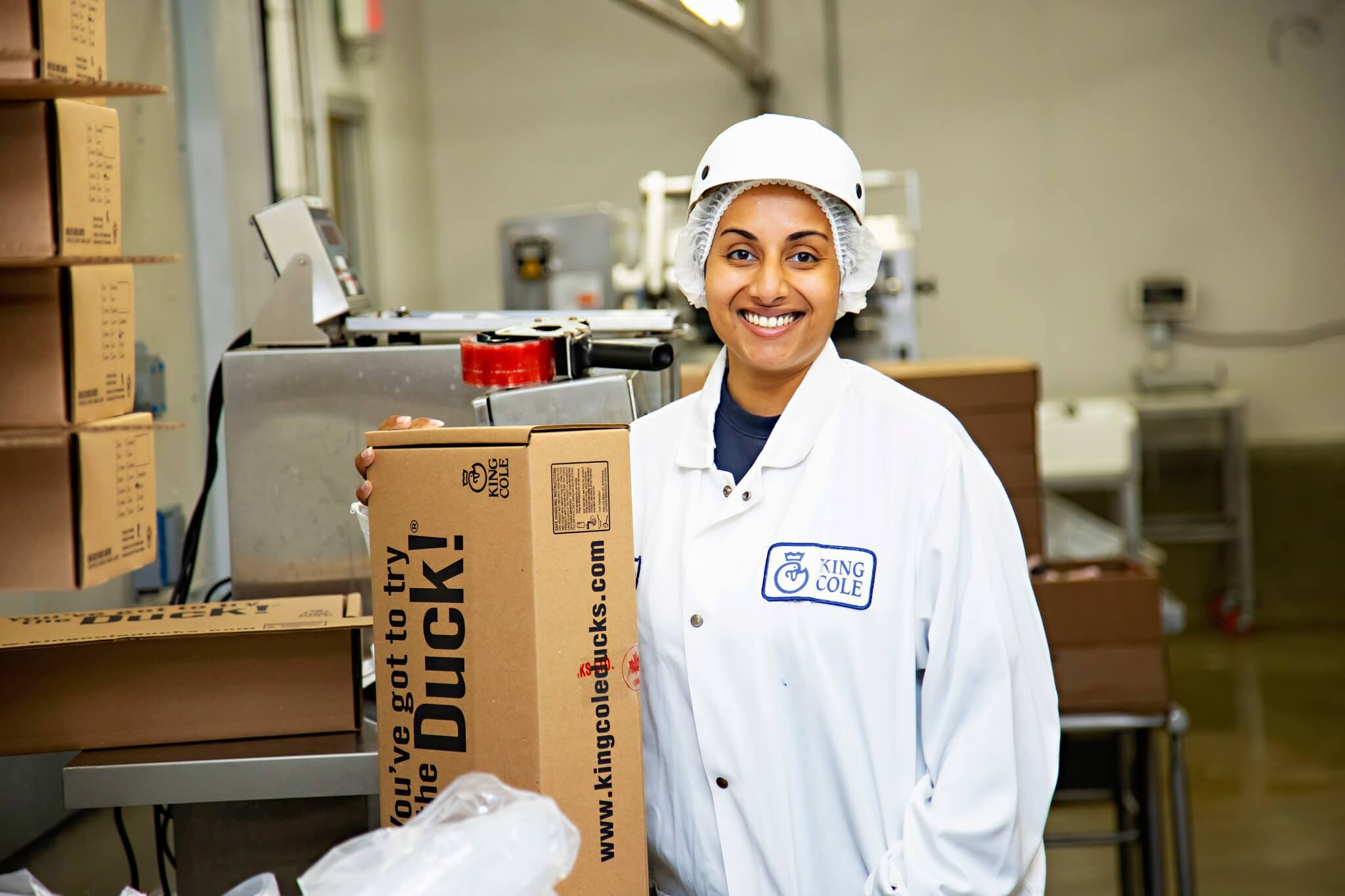
I grew up in the city my whole life. I worked for many years in the hospitality industry as a hostess and waitress at a couple of good restaurants. And then one day, I decided it might be interesting to give the other side of the food business a try. For many people, it may seem like an unusual decision but I made up my mind and was ready to give it a try! I applied for a job at this duck processing plant – an industry that I had no experience in. I was excited to be contacted for an interview, and then was given a tour. Not long after, I was offered the job and I thought, “Let’s do it!” I’ve now been here almost five years. My brother also works here too.
I was so nervous at the beginning but the lady training me was so knowledgeable and her help led me to where I am today.
One of my favourite parts of my job is the drive out of the city every morning. I love seeing the city in my rear view window and commuting out to the country. It’s so peaceful.
My family are of Trinidadian and Guyanese heritage and traditionally, we eat a lot of duck. I love cooking and my favourite way to eat duck is curried. I take a lot of pride in seeing our products in grocery stores and knowing people will enjoy it as much as my family and I do.
- Rose, Barn Lead Hand, King Cole Ducks
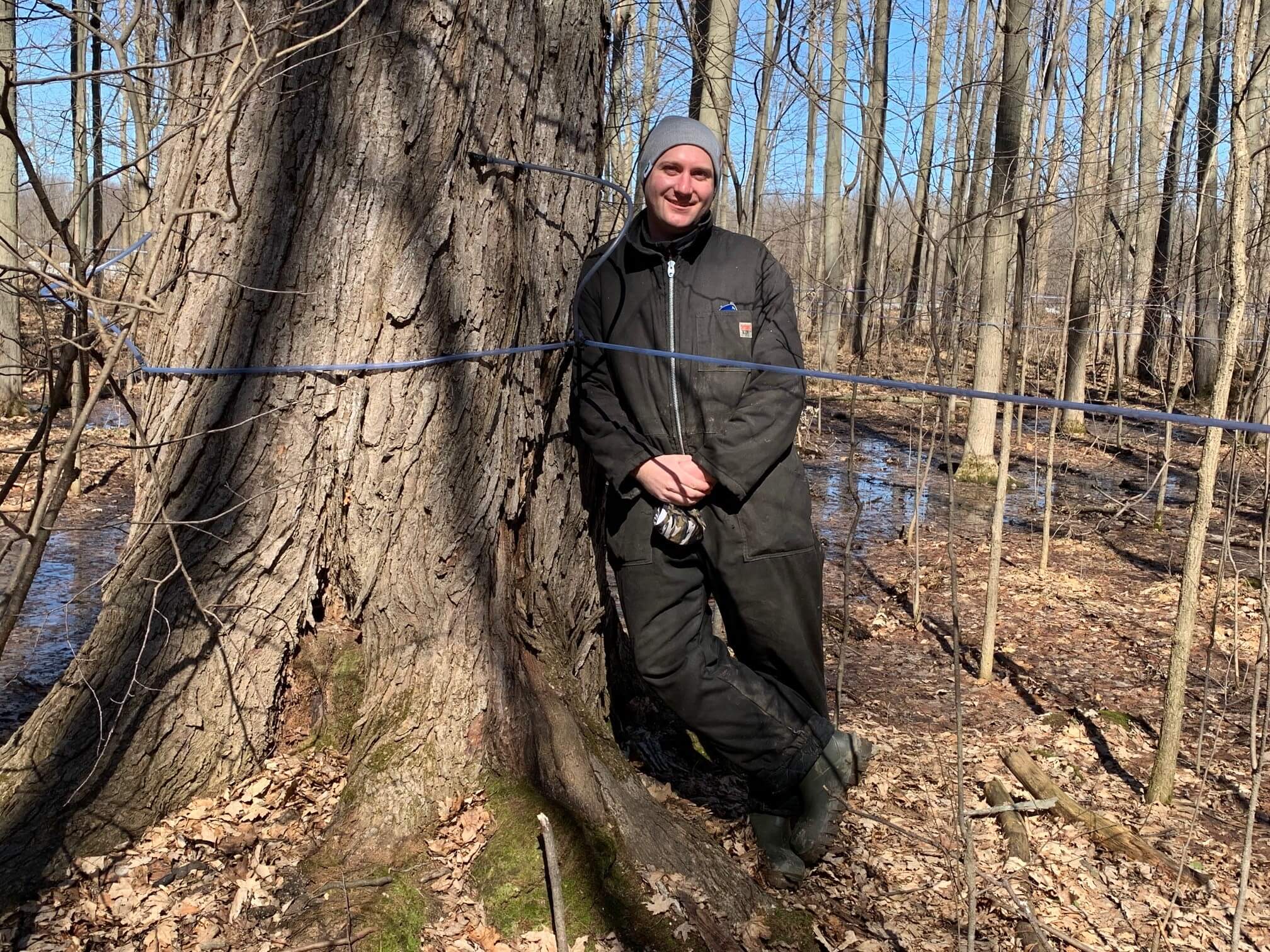
I think one of the things I like most about helping with our maple syrup business is the family aspect. When the sap is running, it’s all hands on deck. My grandpa is here every day watching over the boiling process; my dad and my uncle are constantly on the move doing things like checking the lines, stoking the wood furnace that heats the boiler, filling barrels or bottles. And everyone else – my mom, cousins and sisters - help too when needed – tapping trees, checking lines, bottling, labelling, grading, whatever’s needed. As a kid, before we put in a vacuum system that pulls the sap out of the trees and through lines to a central collection facility, we’d spend all day every day out emptying the pails on the trees and bringing the sap to our sugar shack.
For us, maple syrup production goes back many generations and it’s in our blood. Our dog’s even named Maple because when he was a puppy, the colour of his fur reminded us of syrup!
Some of my favourite memories as a kid are around times when my dad was in charge of the night boil. We had a little TV in the sugar shack and I’d come down to share snacks with him or play video games. Our daughter was born last year and sometime, I hope I can do this with her too.
My favourite way to eat maple syrup is on ice cream. I remember once convincing my dad to let me cook a hot dog in the boiling syrup and believe it or not, that’s pretty good too!
Making maple syrup feels like the most Canadian thing you can be a part of. Through university and through travelling to other countries, I’ve constantly been asked about it and have given lots of syrup away to overseas friends in order to be able to share our culture with them.
-Scott, Maple syrup producer
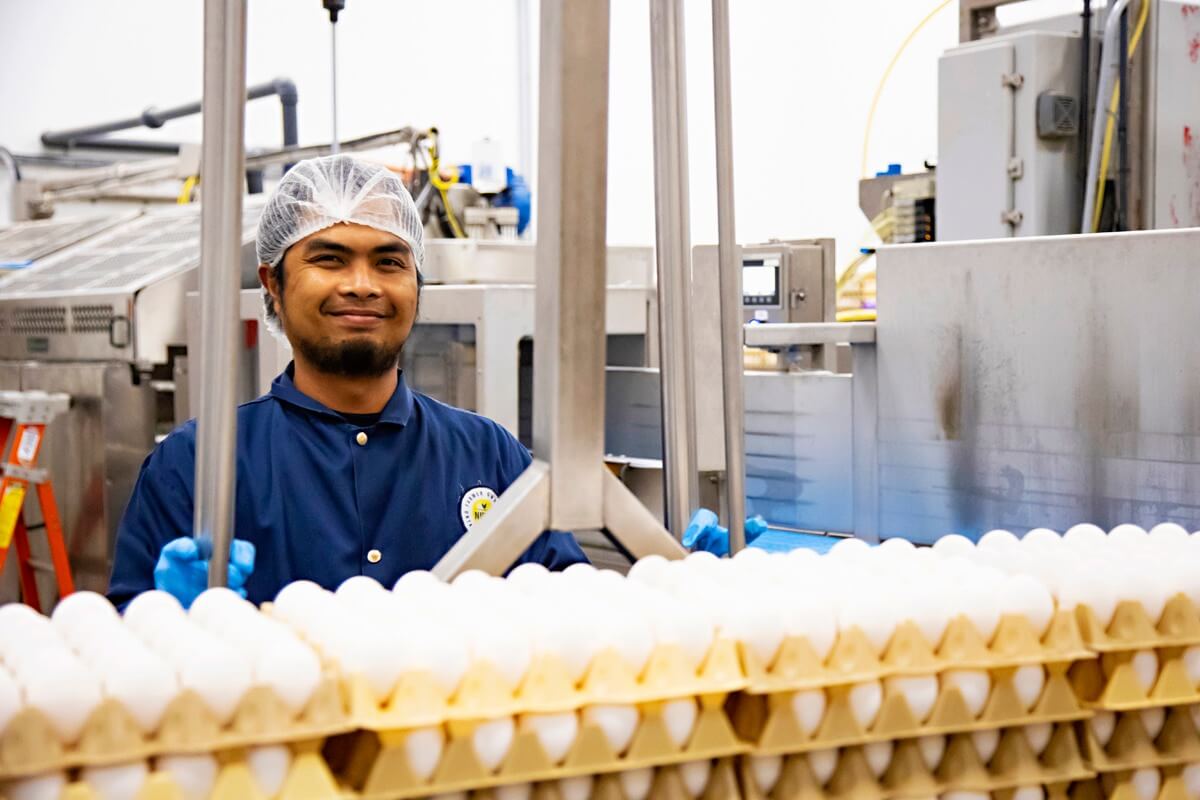
My family and I emigrated from the Philippines five years ago. My mother in law, who was already living here, sponsored my wife, daughter and myself to come here. It’s a good life here.
Back home, I worked in construction, as a bartender and a waiter. I came to work at this egg processing company three years ago. I have great coworkers. It’s like a big family for me and it’s nice to have family here. We look out for each other, helping each other with problems.
My daughter’s now eight years old. She loves dressing up in tutus. When I’m not at work, I love spending time with her. I also play lots of sports – badminton, soccer and baseball. But not hockey. There's no hockey in the Philippines!
-Niel, egg processing company
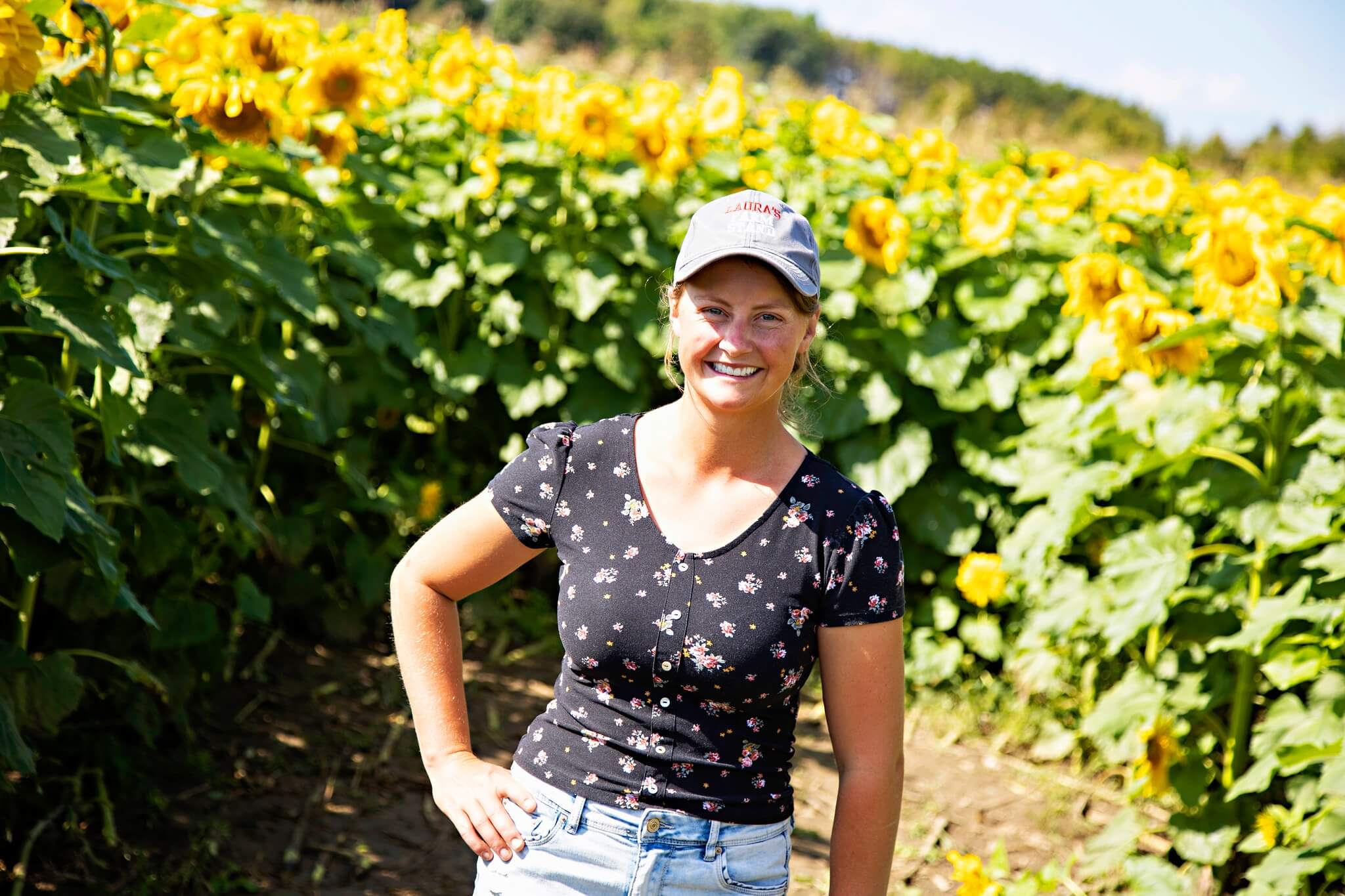
My siblings and I had a small sweet corn business when we were kids. Then when I was in university, I started Laura’s Farm Stand as part of a co-op program I was taking. And it’s just grown from there. Each year we expand the business a little more. This is the first year that I have summer help and we’ve expanded our parking area to accommodate the growing number of visitors. My husband helps in his free time too.
We sell sweet corn, fresh vegetables and 50 varieties of pumpkins and squash. I love looking through seed catalogues trying to find new varieties to try. My favourite pumpkin is likely the Jarrahdale. They’ve got such a unique colour to them.
We also have pick-your-own flower fields of Zinnias and a large sunflower business that has become a huge Instagram success. Everyone wants their photos taken with sunflowers. We have trails through four fields – each planted two weeks apart to lengthen the growing season. There are 12 sunflower varieties in total grown here.
After busy summer seasons, I find the winters a bit dull so every year try to learn more skills. I’ve recently bought a pottery wheel off of Kijiji so I might tackle that this winter.
-Laura
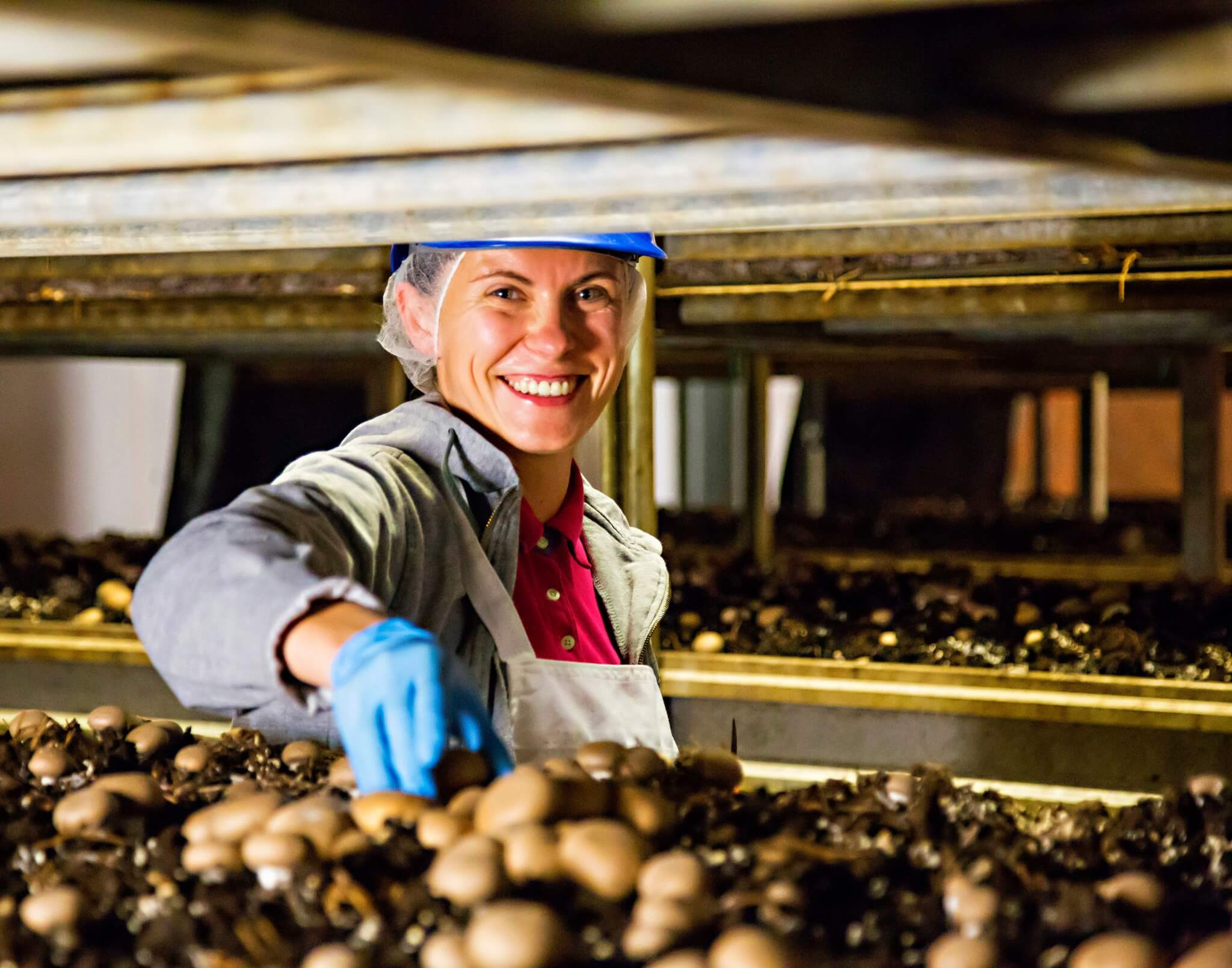
We came here in May, 2019. It was a big decision for my husband and I to come to Canada from the Ukraine to work on this mushroom farm. My parents are not young and it was hard to leave them but we talk every morning before I go to work.
We came here to earn money to help with our life back home where we are building a house.
There was a lot of paperwork to be filled out before we could come. This company is great. They helped with the paper work, with our flights, with our housing and with our work Visas.
When we are not working, we are seeing Canada. We just spent five days in Toronto where we walked around the city and went up the CN Tower. I like this country.
-Tetiana, Mushroom Harvester with the Temporary Foreign Worker Program
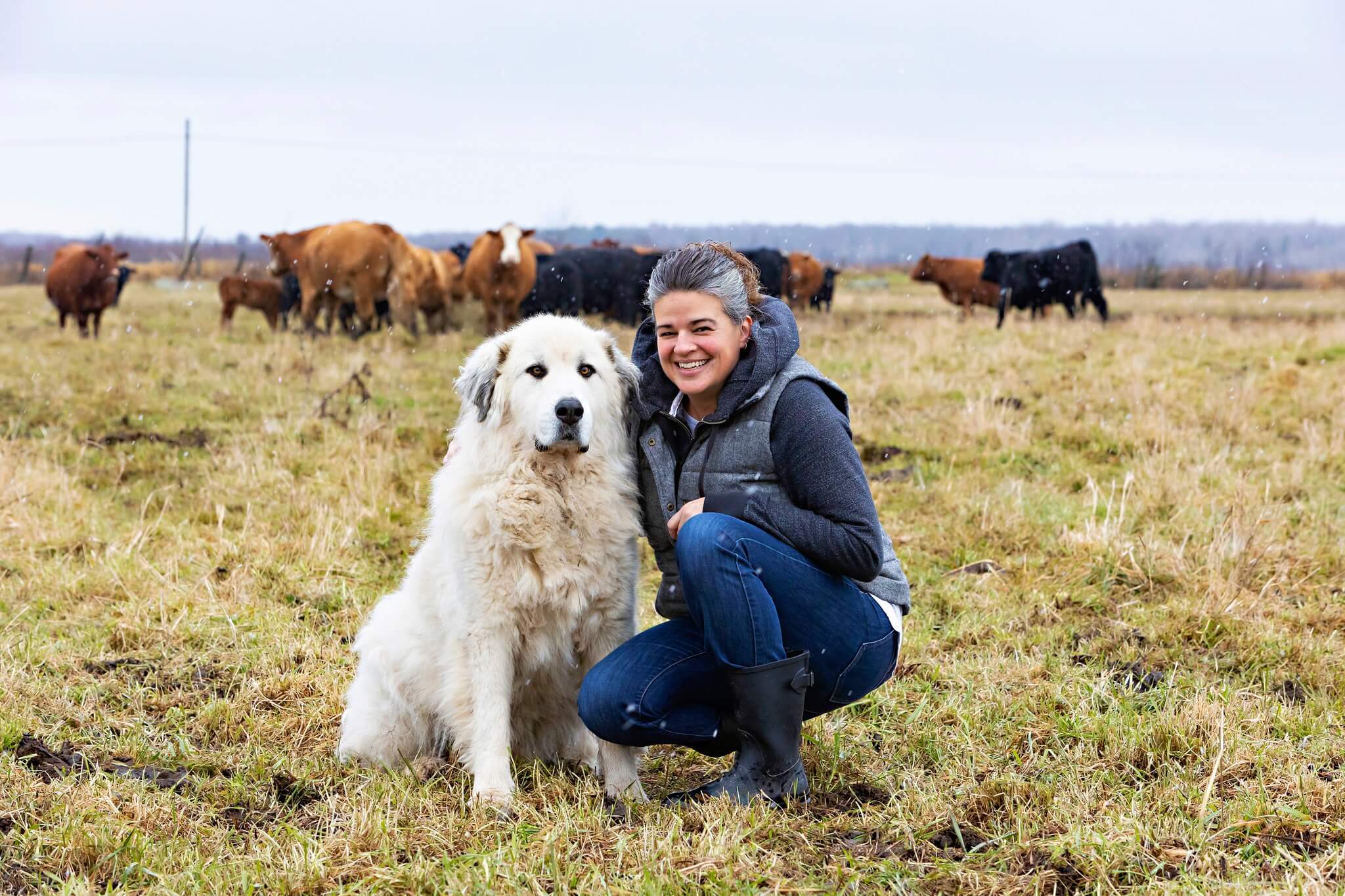
I was just a teenager when I met my husband. He lived down the road. We were married in 1995 and are now beef farmers in Northern Ontario. I wasn’t raised on the farm but love our life here where we raised our three children. And now it is great seeing our grandchildren wanting to help with chores when they visit.
I’ve always been a country girl at heart. I especially like working with the newborn calves in the spring. I’ve become really comfortable around them and have learned to read their body language. Up here, there are unique threats to farm animals – like bears and wolves. We have two guardian dogs that help to protect them.
After we were married, I worked several places including Zellers and Canadian Tire. It was such a busy time but somehow, both my husband and I found the time to go back to school while we were working and raising our children. I studied accounting and am now the CAO of our local municipality.
My absolute passion is riding motorcycles. I got my first bike when I was eight. I’d still like to learn how to race motorcycles. That might happen next spring.
-Jenny, beef farmer with her Guardian dog Seth
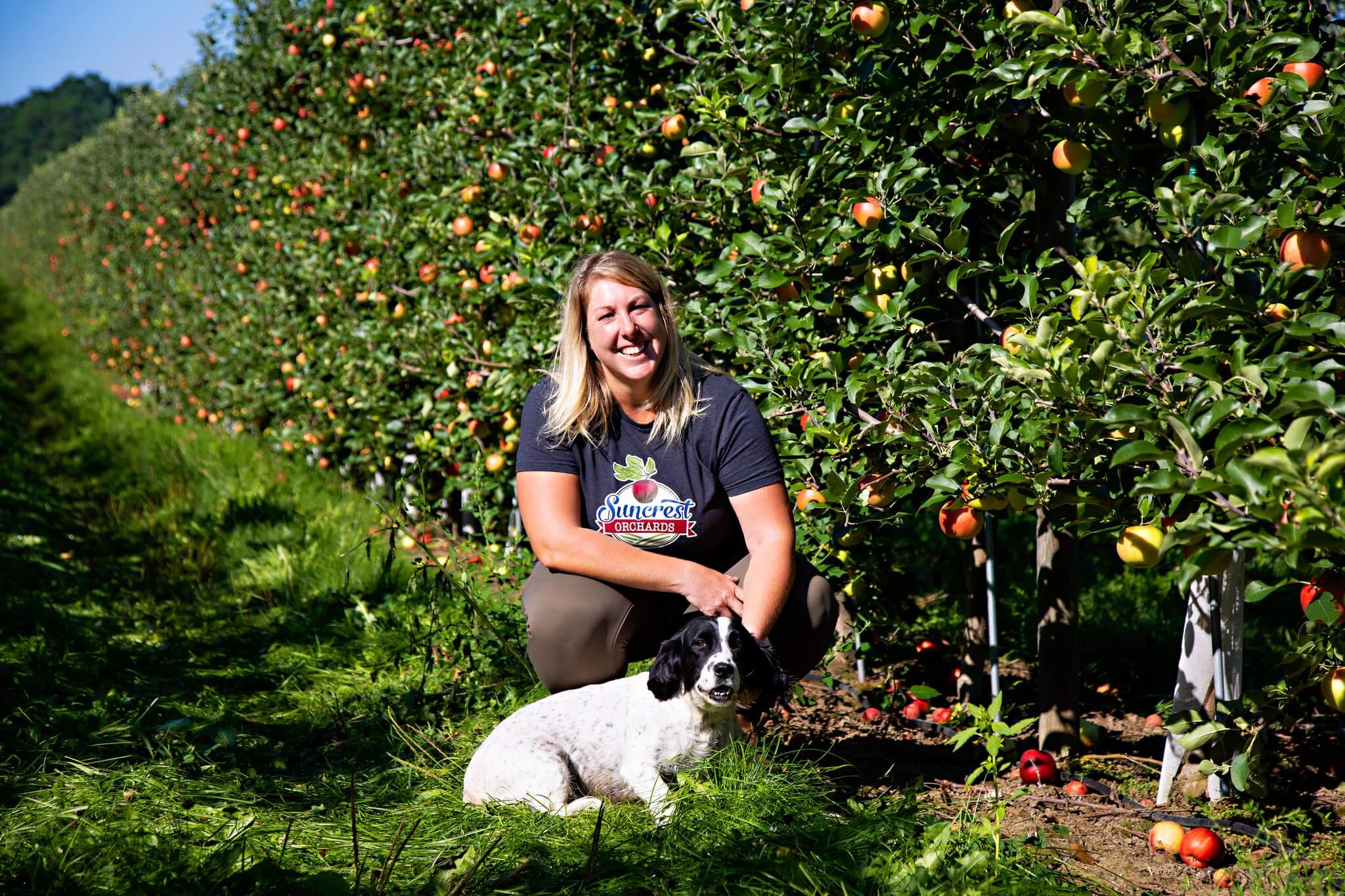
I was born and raised here in Norfolk County and grew up on a former tobacco farm. My grandparents grew tobacco so I like to think that farming is in my blood. My husband and I were fortunate to be able to buy this orchard in 2019 and then we purchased a second in 2020.
We grow seven different varieties of apples – Paula Red, Ginger Gold, Sunrise, Golden Delicious, Honey Crisp, Gala and Ambrosia. My favourite? I love an Ambrosia.
We have a wonderful Jamaican family of eight employees. Some come up as early as March and they don’t go home until the end of October. So they’re actually here longer each year than they are home with their families. We have a huge respect and appreciation for the sacrifice they make to come up and help with our orchard.
It’s our 15 year old son Connor’s first big year on the farm, working with our team. Our daughter Kyla is 13. She helps with pest management scouting and also with our roadside stand.
There’s nothing like being outside and watching a crop grow throughout the season. It’s very rewarding. I love harvest. It’s like Christmas.
Farming is challenging. It was a very frosty spring this year so we have some large frost fans on the farm that help protect our trees and we got through that. Unfortunately, on the August long weekend, we experienced a pretty severe hail storm that dented our apples badly – puncturing their skin. Until then, it had been a beautiful crop with really big apples. Having our orchard taken out in a few minutes was pretty devastating. People don’t want to buy apples like this in the store. But we’re in farming for the long haul and are looking forward to 2022.
-Amanda, Apple Grower
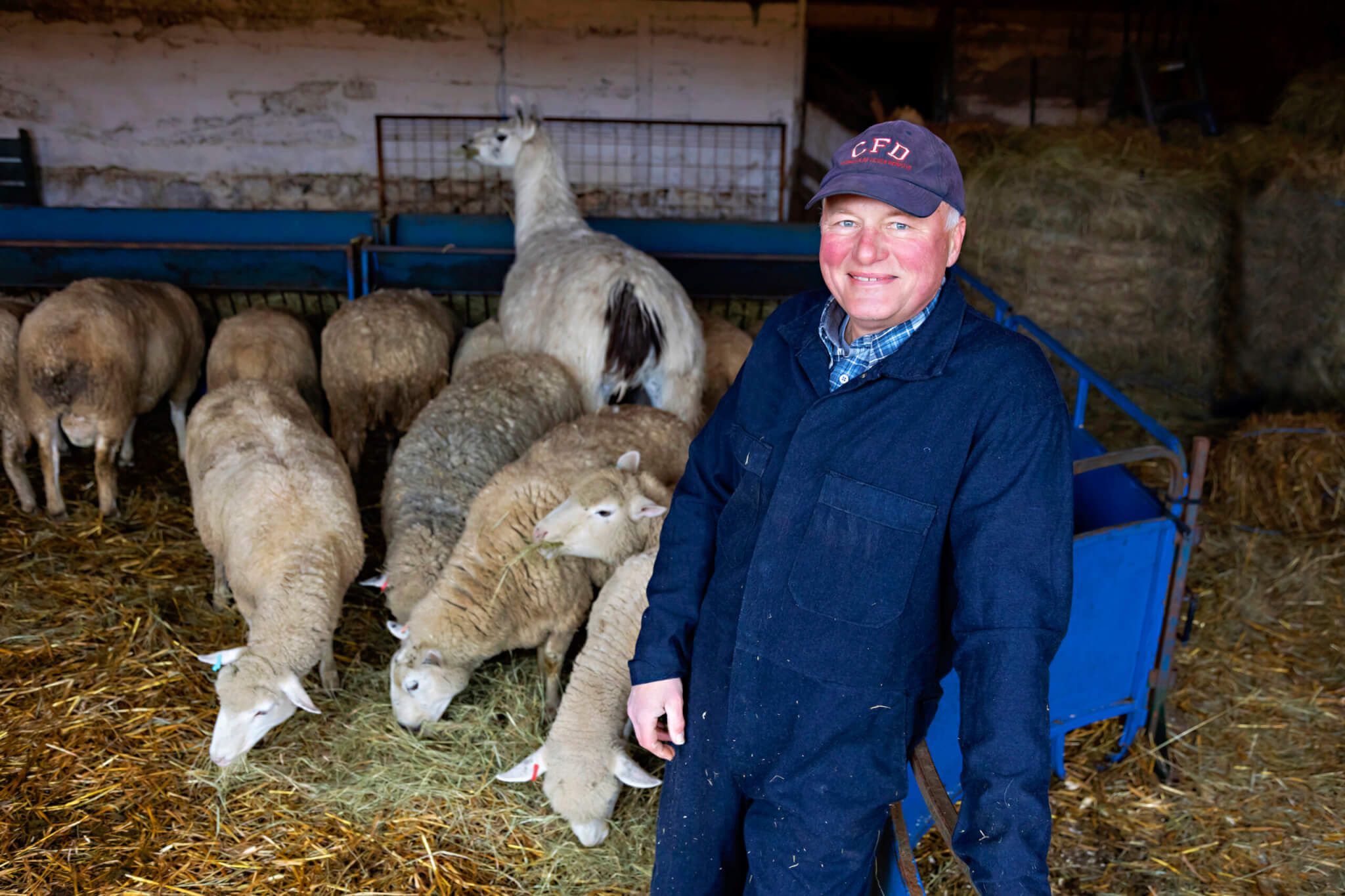
I’m a sixth-generation farmer, originally from Halton Region west of Toronto but that farm was suburbanized out of existence. I met Sue when we were both in journalism school, and we were daydreaming about farm life even back then. I was a reporter for the Windsor Star when Sue got a job offer in North Bay, so we started looking for a place. We totally lucked out when we saw a small homemade “For Sale” sign on a rural property. That was the start of our life here.
I like livestock and I like working outside, so raising sheep seemed like a good fit for us. We now have 35 ewes who give birth to lambs in April in May, plus a small cow herd, we pasture pigs, and most years we sell hay, too. I like all seasons on the farm, but it’s a treat to see the lambs arrive in spring. We also have a llama, Chocolate Chip (“Chocky”), who protects our sheep from predators when they’re out on pasture.
Preserving and enhancing the natural environment of our farm is important to us. We’ve implemented a grassland bird program on our property that protects birds like bobolinks and meadowlarks. We know where their habitats are so avoid haying in those areas until late in the season when their nesting is finished.
I’ve served on the local fire department for the last 25 years – the last four as chief. We’ve got a great team of volunteers and it’s a good way to serve a community that’s become home.
-Ray, shepherd
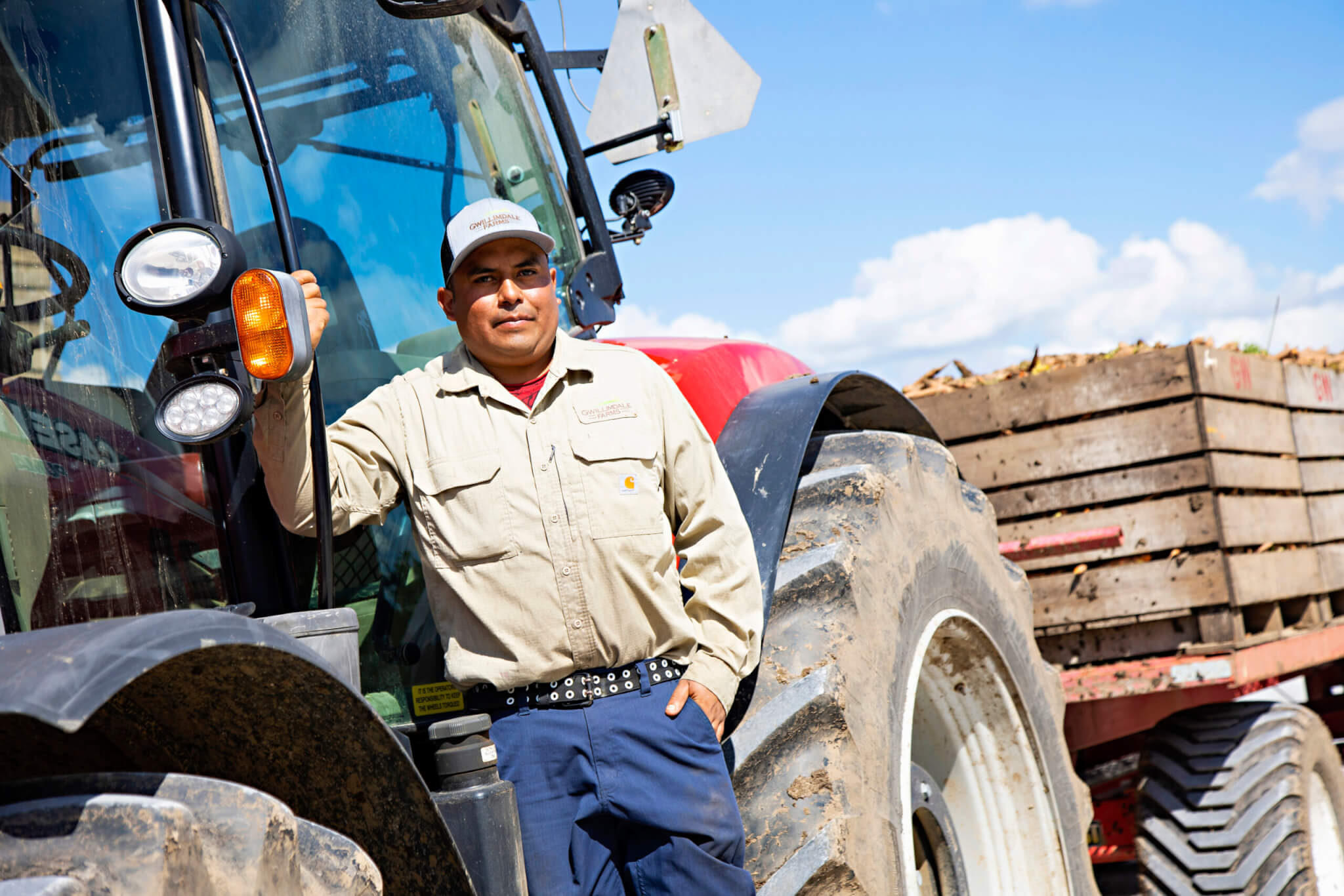
I’ve been coming to Canada for six seasons. I decided to come here because it is an extra option for work. In our country there is a lot of unemployment and salaries are bad. Over there, there is not enough money to get a house and to pay for your children’s education. To have a better life, more than anything, that is why I come here. I have a wife and a five year old son who has just started school. I talk to them every day and they are my reason to exist. In my spare time, I talk to my family and that is my motivation.
I feel happy here in Canada. It is a little difficult because we are away from our family but it is necessary to work and have a stable economy, everything is all right.
On this vegetable farm, we do a little bit of everything. We work with forklifts; we work in the field and we also make boxes. Sometimes they even send us to perform construction. A little bit of everything.
-Alexander, Seasonal Agricultural Worker from Mexico
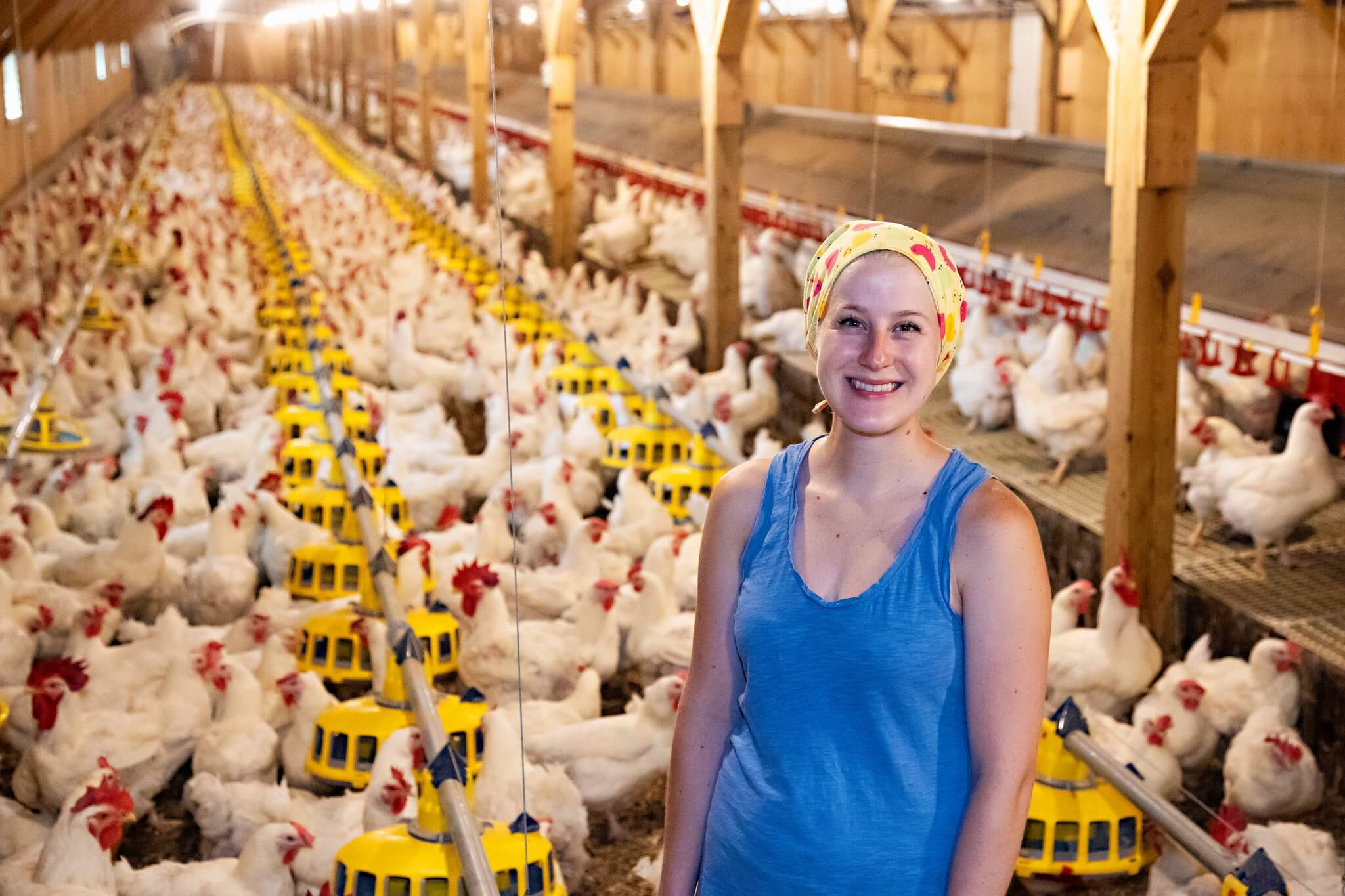
I own a broiler breeder farm. It’s not common – there are only about 240 farms like this in Canada. In our barns, hens and roosters mingle together, producing fertilized eggs that get sent to a hatchery for incubation. There, they’re hatched after 21 days and then sent to a broiler chicken farm to be raised until they’re fully grown - the types of chickens raised for meat.
It’s a really specialized business. Maintaining the perfect conditions in the barn is absolutely essential to healthy birds and healthy eggs. I gather eggs three times a day and walk through the barn regularly to make sure everything is running smoothly and the birds are in good health. All of the feed, nest controls and water is automatic so that we can focus on the birds and the eggs.
It’s nice to work in here. The barn is light and airy and I like the routine. I’m often in here by about 7:30 a.m.
My grandparents were poultry farmers and my parents are too. I didn’t go straight into farming. I first got a diploma in horticulture and then a degree in agriculture. Then I went into banking which is where I met my husband. He’s still in that field. After a few years, the timing was right and I came back to the farm. We bought this farm from my parents.
When I’m not caring for chickens, I love to travel. On occasion, our barns are empty in between flocks – and that gives us a great opportunity to get away and recharge before the cycle begins again. Favourite trips have included Iceland, Ireland, Scotland and travelling across Utah in a camper van. After COVID, my travel goals include visiting New York City and hiking through the Grand Canyon.
-Samantha – Broiler Breeder farmer
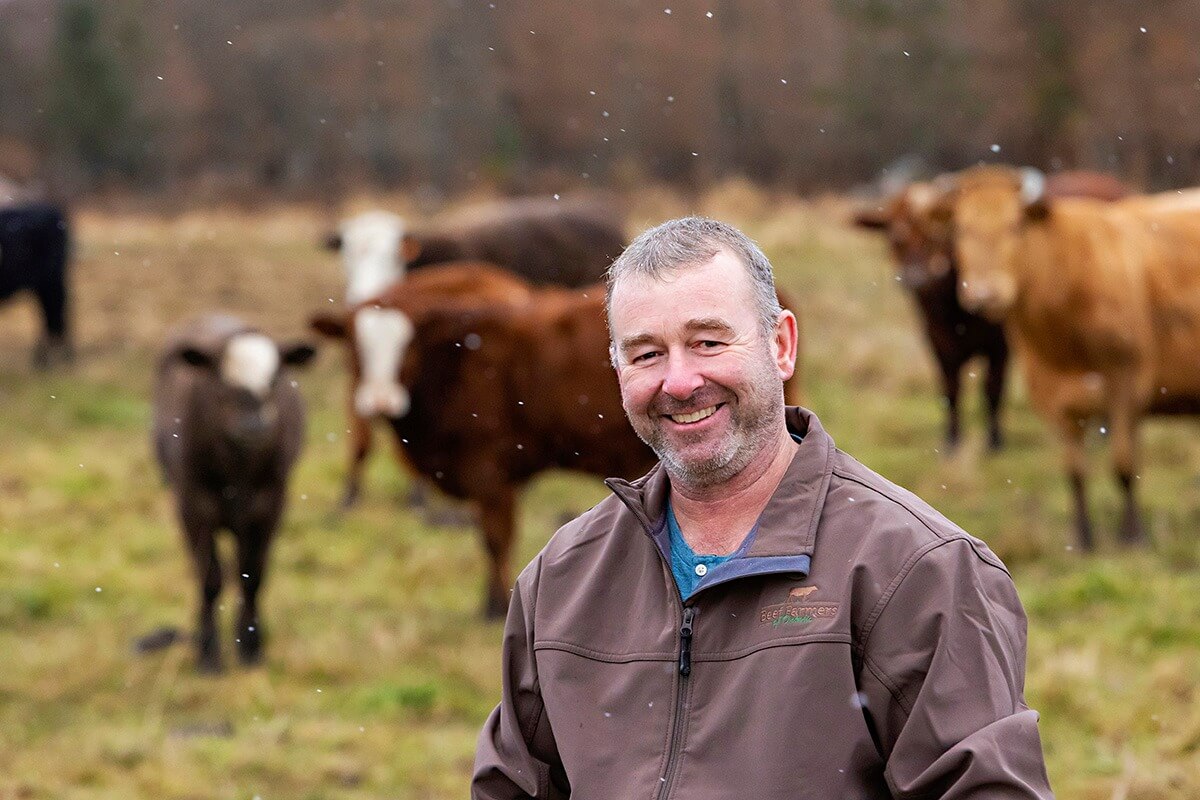
I wasn’t going to marry a farmer – but look what happened to that plan! We met through a youth group and now have six children and 10 grandchildren. I’m known as Super Nana in our family.
Our family – including my husband and daughter - are embarking on a new business growing microgreens in an old barn we renovated on the farm. It’s got a lot of potential. The tiny crops we grow are great in soups, salads, stir fries and as snacks. I help with the weekly harvest. We’re selling them at a local farmer’s market and to an area restaurant but there’s a lot of potential for this to grow.
I love baking and am known for my breads, muffins, pies and butter tarts. I also bake for a company that does dinner cruises on the Grand River. I enjoy that a lot.
-Jason, beef farmer
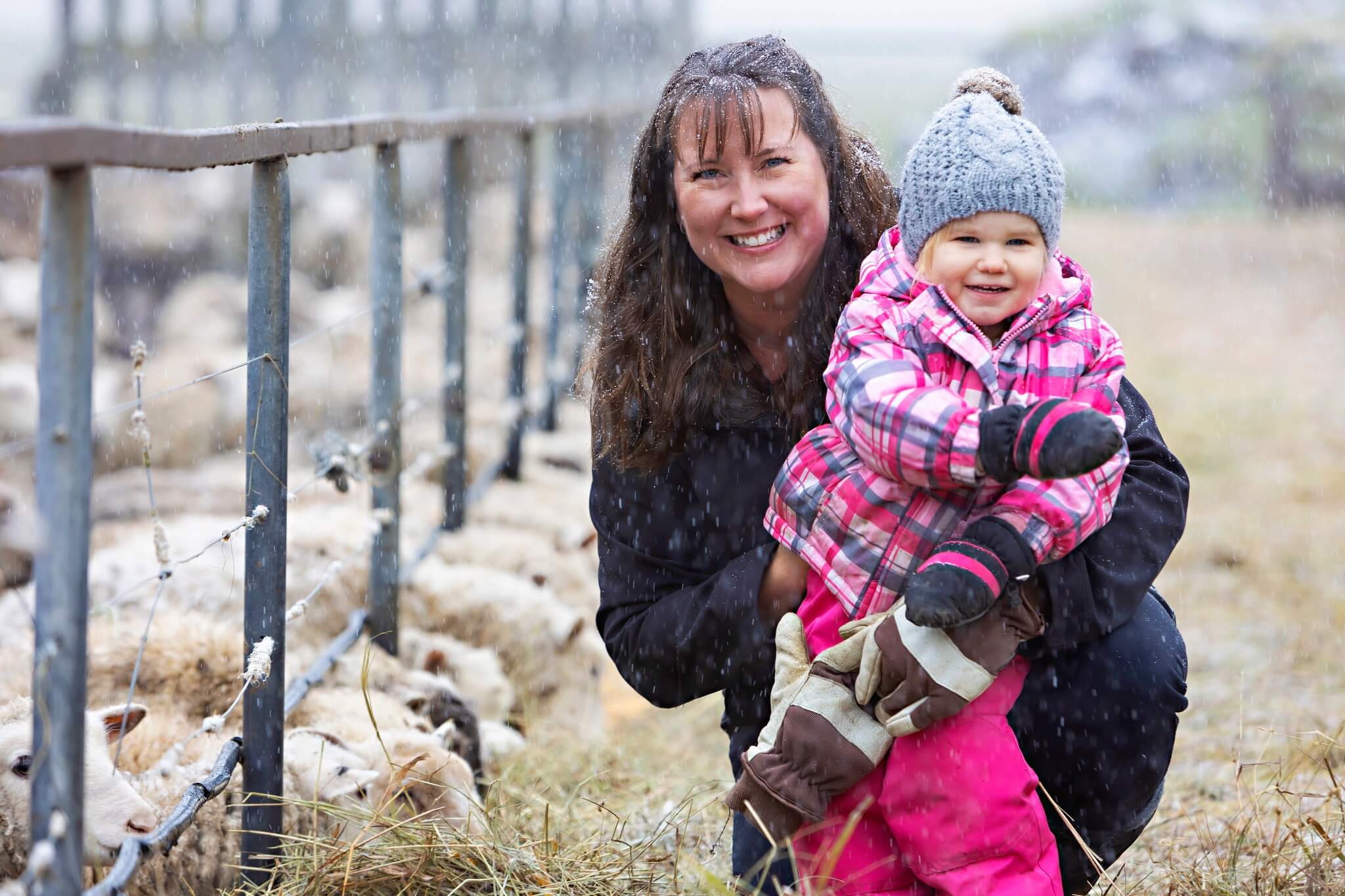
I was working as a dental hygienist when I met my husband. And if you’d told me back then that I’d end up being a sheep farmer, I would have laughed in your face. He brought me on a farm tour on one of our first dates. I think his theory was, “throw her into the farm and see what happens!” I had no idea how much work goes into raising livestock like sheep and cattle. But I love it.
Now I work full time on the farm, raising our two young children and running our on-farm market. We also have a booth at the farmers’ market in North Bay each week selling lamb, beef, eggs and other products from our farm. People really like to buy from local farmers and I enjoy answering their questions about where the products come from. I feel like we’re starting to get well known in the area.
-Jen, sheep farmer and farm market owner
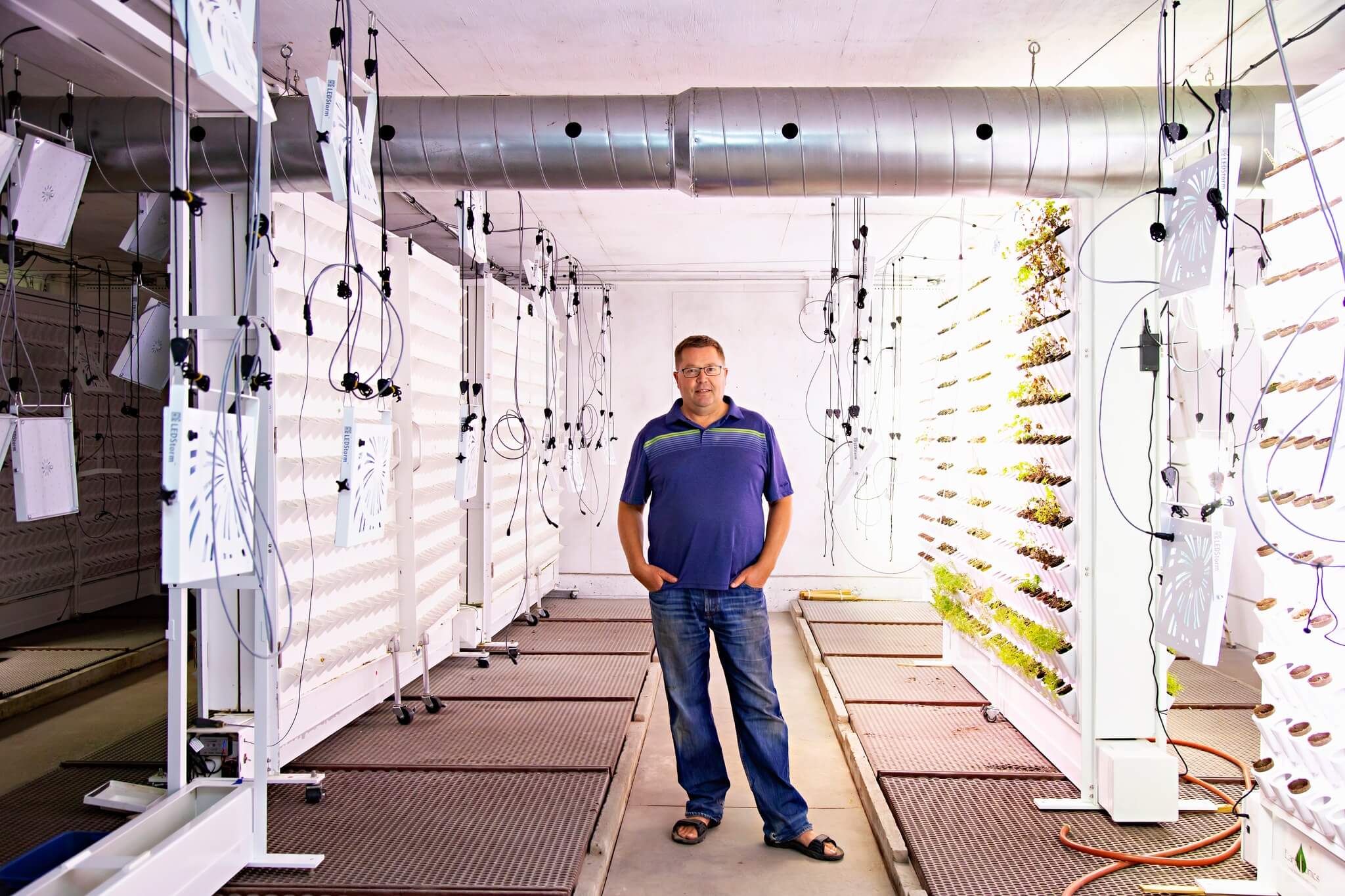
When I grew up here, it was a pig farm started by my parents in 1962. My wife, Hettie, and I took it over in 2001 and started thinking about what else we could do with the land and buildings.
It was while participating in an agricultural leadership course that I met really innovative people doing really innovative things. I’d listen to their stories about starting successful businesses with an idea – and not much else – and thought, I can do that.
And then in 2019, I saw information about a vertical farming project and thought maybe that would be a great project if we retrofitted our old barn to grow microgreens
Covid has really brought attention to the local food market and I like being a part of that. We’ve got a huge potential market within 100 km of our farm and by growing products here, we’re helping to reduce transportation costs that would be related to importing products like ours.
We use LED lighting and we water the plants with a special “tea” we make from our on farm digester that’s fed with food scraps from our homes and our family. The gas from the digester goes back into heating water here so it’s really environmental sustainable. Our goal is to have no waste.
-Paul, Microgreens grower
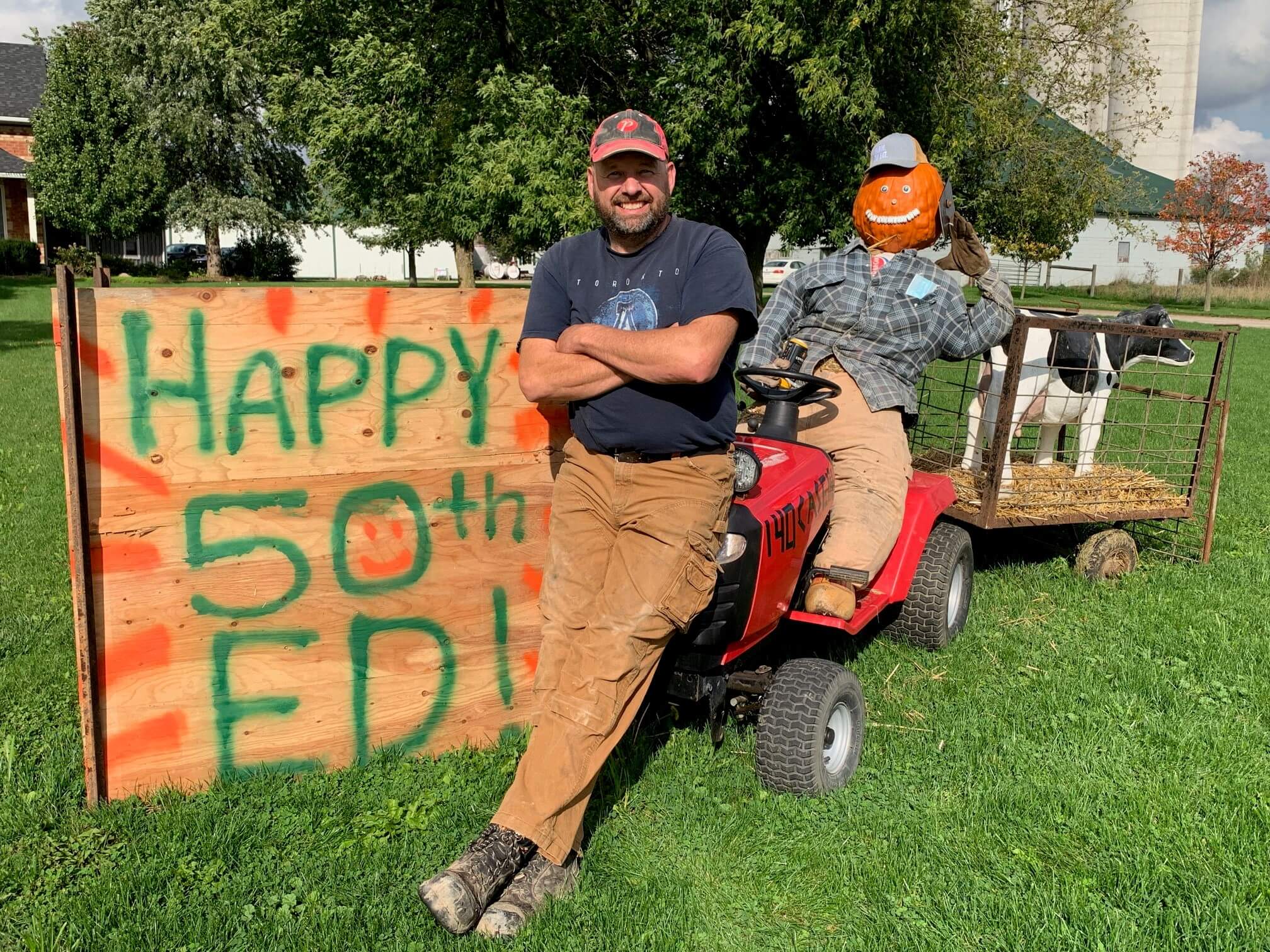
It’s a Dutch thing. When you celebrate your 50th birthday in the Netherlands, where my family came from, they refer to this as an “Abraham” (or “Sarah” if you are female”). It involves relatives and friends creating a life-sized mannequin or puppet in the likeness of the guest of honour – which this time was me!
My brother, sister and cousin arrived on our farm late the night before my birthday and when I woke up the next day and saw this on the front lawn, I knew exactly what it was about. They did a pretty good job of adding my personality to it – the calf in the wagon behind the tractor because I’m a dairy farmer, the phone always attached to my ear, the wooden shoes, the mask in my pocket – and a celebratory drink in my hand. It’s fun. There’s been a lot of people driving by honking to acknowledge it.
I’m a second generation dairy farmer in Canada. I think I always knew that I wanted to farm. I was also interested in learning to be a welder or an electrician – but in farming, you get to do all of those too and more.
-Ed, Dairy and Grain Farmer
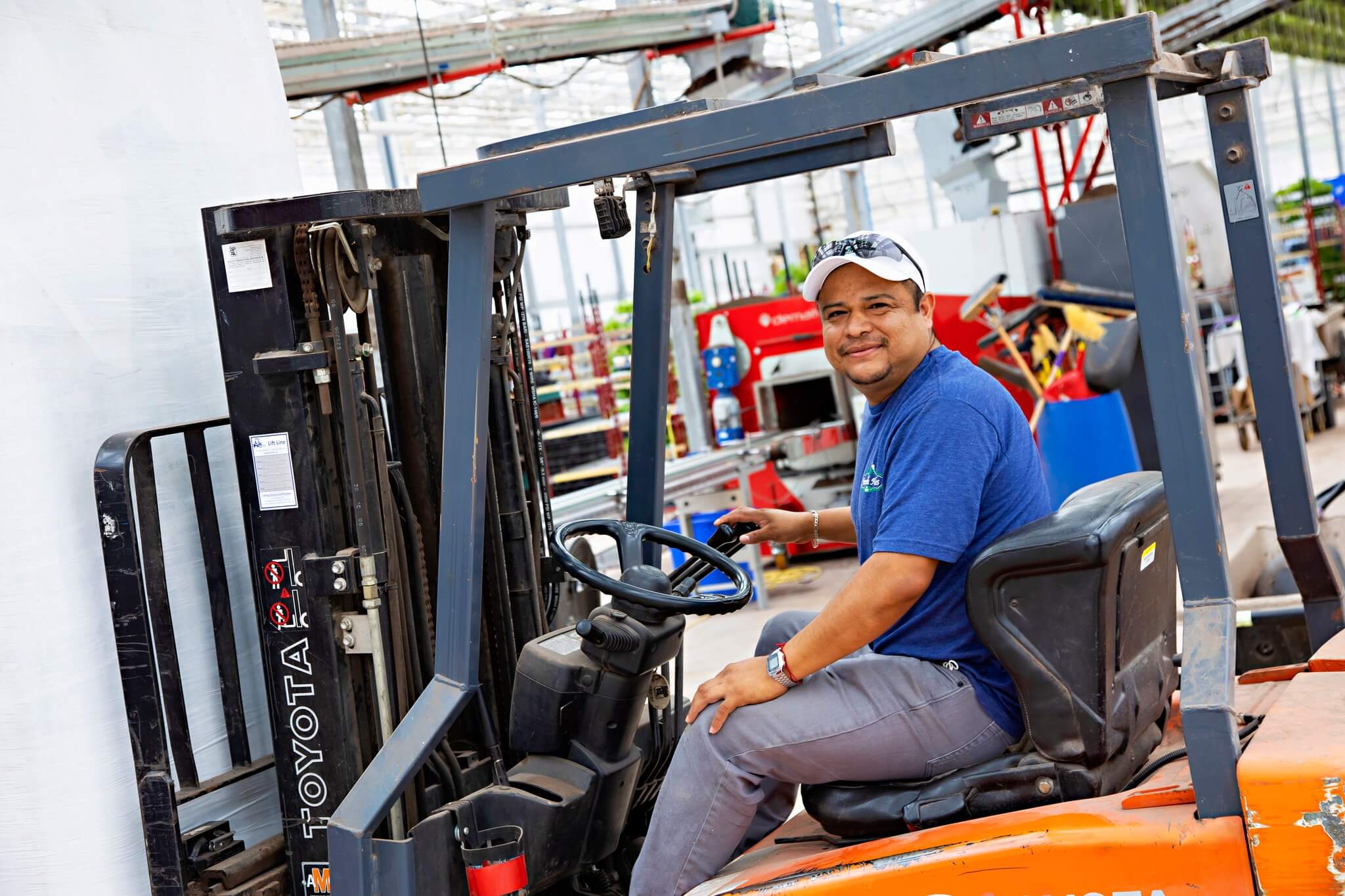
My name is Eleazar but I’m called Chay. I don’t know how I got that nickname – I’ve had it since I was born. I come from near Mexico City. When I was younger, I’d help my grandmother with her farm. She planted corn, beans and other things.
I’ve been coming to Canada to work in this herb greenhouse for 13 years. I arrived this year in February and I stay for eight months. When I first came, I’d never seen snow except for in the movies and in pictures.
There are so many Mexican people working here that it feels like this is now my second home. This company is excellent to its employees. They make us feel like family. I have many amigos here which makes it fun.
The main reason I come is to make money for my family. I have two boys – aged 14 and 5. That first year, my oldest boy was only one. I remember that I cried that first night saying goodbye and wondering why I was leaving my baby. But little by little, I’ve been able to send money home to my family and it helps them.
I’m looking forward to going home at the end of September to see them.
-Eleazar (Chay), herb greenhouse employee and Seasonal Agricultural Worker from Mexico
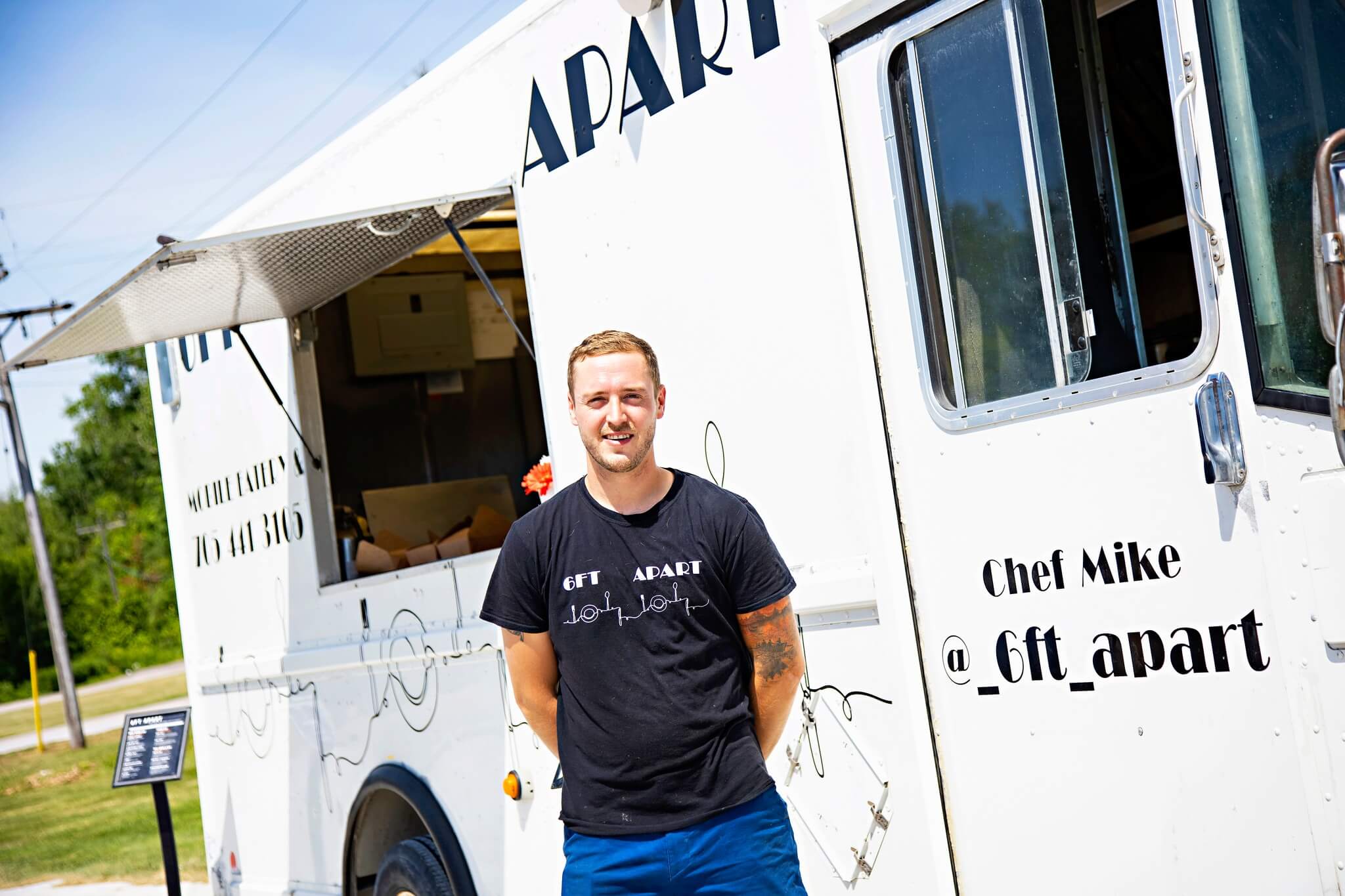
The business was started by my great grandfather and I grew up working in our family’s duck barns alongside my grandparents, mom and aunts, siblings and cousins. In high school, I got a co-op placement working in the kitchens at a nearby retirement home. Cooking wasn’t ever a thing I’d considered but after that placement, I realized the endless possibilities that come from food.
I studied to be a chef at Fleming College and for the past 10 years, have worked in high end restaurants across the country from the East coast to the West coast.
When COVID hit, I came home to help my family on the farm and in the processing plant through the initial pandemic challenge. I knew, however, that I needed to get back to my passion. So, I rebuilt my business: 6FT Apart – a gourmet food truck business. The last 18 months have been go, go, go.
This year, I’ve got 18 weddings booked. I bring gourmet food to the streets serving corporate staff lunches, street festivals and private dinner parties that feature between four and 10 courses. It’s a cool way of combining my fine dining roots in a food truck way.
My specialities include duck wings that are cooked low and slow for four hours; I’ve also got an amazing lamb specialty with product from a local farmer that’s roasted for 15 hours. We do Thai bowls and gourmet tacos – things with cool flavours. When I’m not on the road, I’ll do a pop up restaurant at the family business.
I work a lot. I like to be super busy – that’s just my personality – but I’ll also take any chance I can get to be outdoors snowboarding in the winter or golfing in the summer.
COVID’s made me rethink my career and I want to thrive through this. Now, I can’t see myself ever going back to working in a restaurant.
-Chef Mike, 6 Feet Apart, Gourmet Food Truck
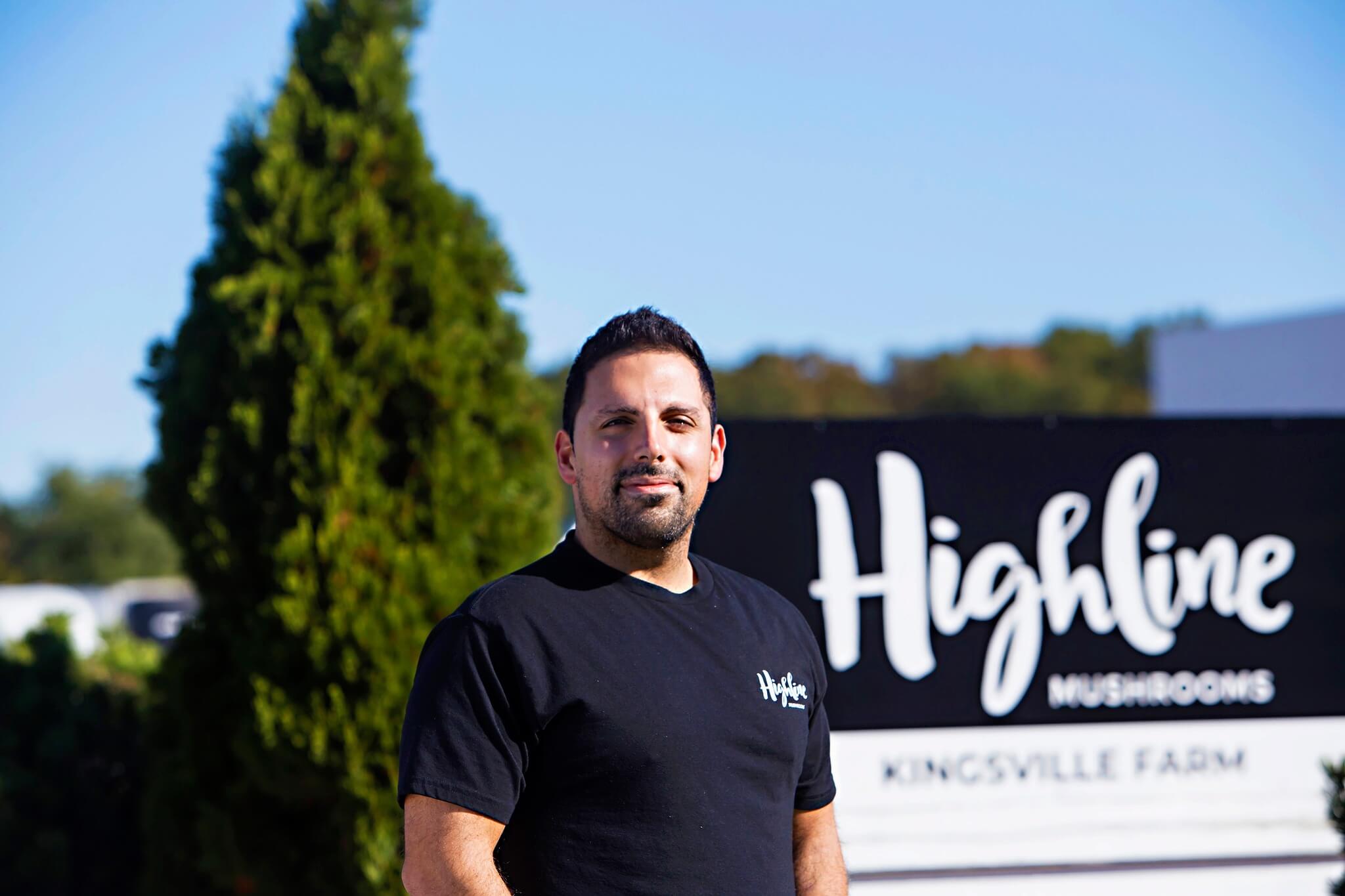
I am the Human Resources Manager for this mushroom farm. We have about 2,200 employees across several farms that I am ultimately responsible for. I was raised in Leamington and worked in the automotive sector before coming here. It’s great to have a good employer like this in the area.
COVID has brought with it a whole new level of challenges and a lot of extra work but I’m so proud that we haven’t missed a day of production during the pandemic. We’re still growing beautiful mushrooms for our consumers.
Our employees have been great at adopting new public health protocols. We have implemented a lot of new precautions because of COVID and have to do a lot of coaching with them, as needed. With people from about 21 different nations working here, there’s a big need for translation services too to make sure everyone understands the new health screening and safety protocols and the reasons for them.
-Boula, Highline Mushrooms, Human Resources Manager
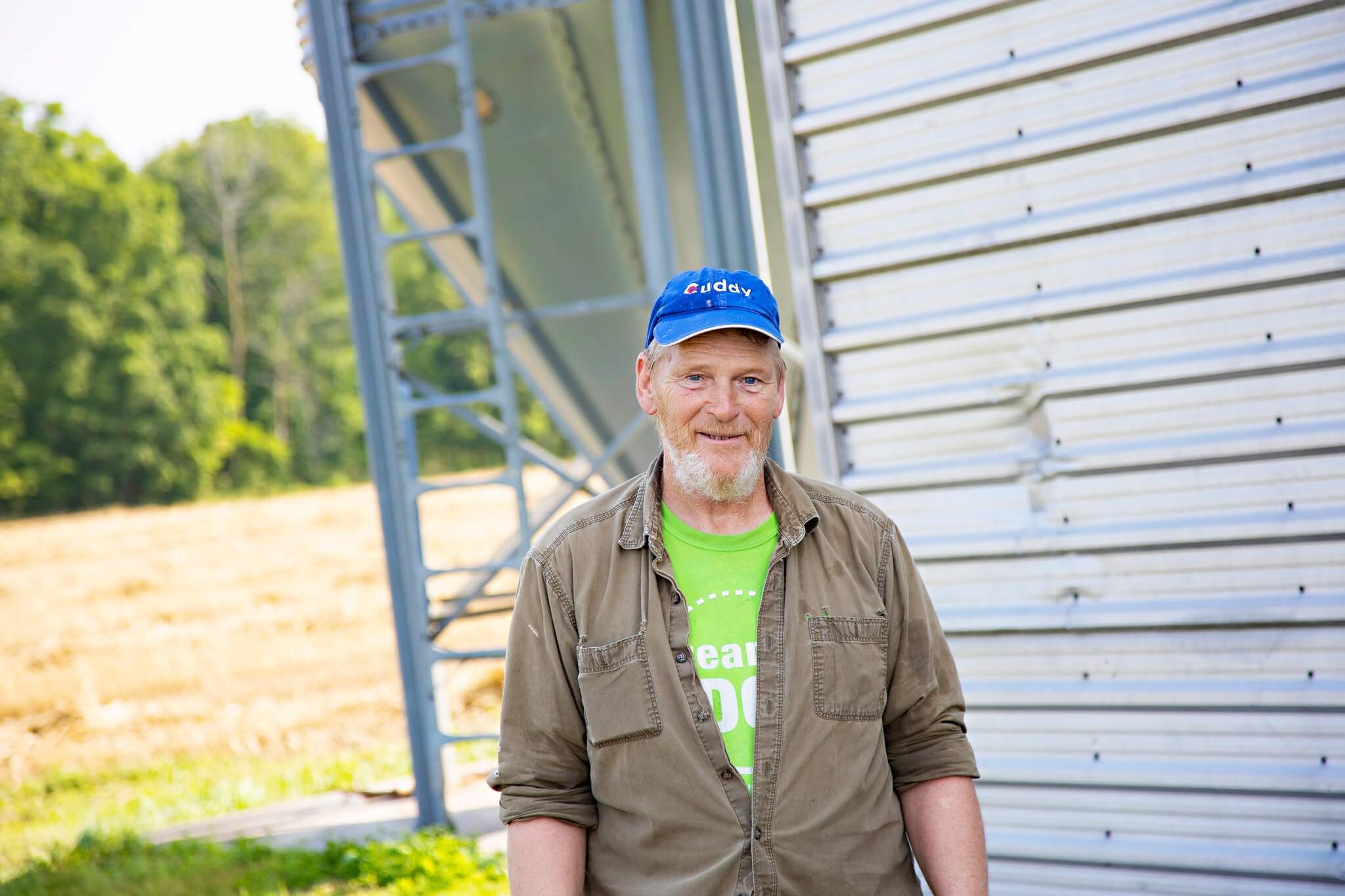
I’ve been the manager on this turkey farm for four and a half years. My wife works here too. I was raised on a farm and like working with the animals. Turkeys are curious creatures. They’re always wanting to know what you’re doing!
It’s my job to make sure that our birds are well cared for. That means making sure feed and water lines are working properly, that fans are working too. Three times each day, I walk through the barn to check on the birds and make sure everything’s good.
-Keith, turkey farm manager
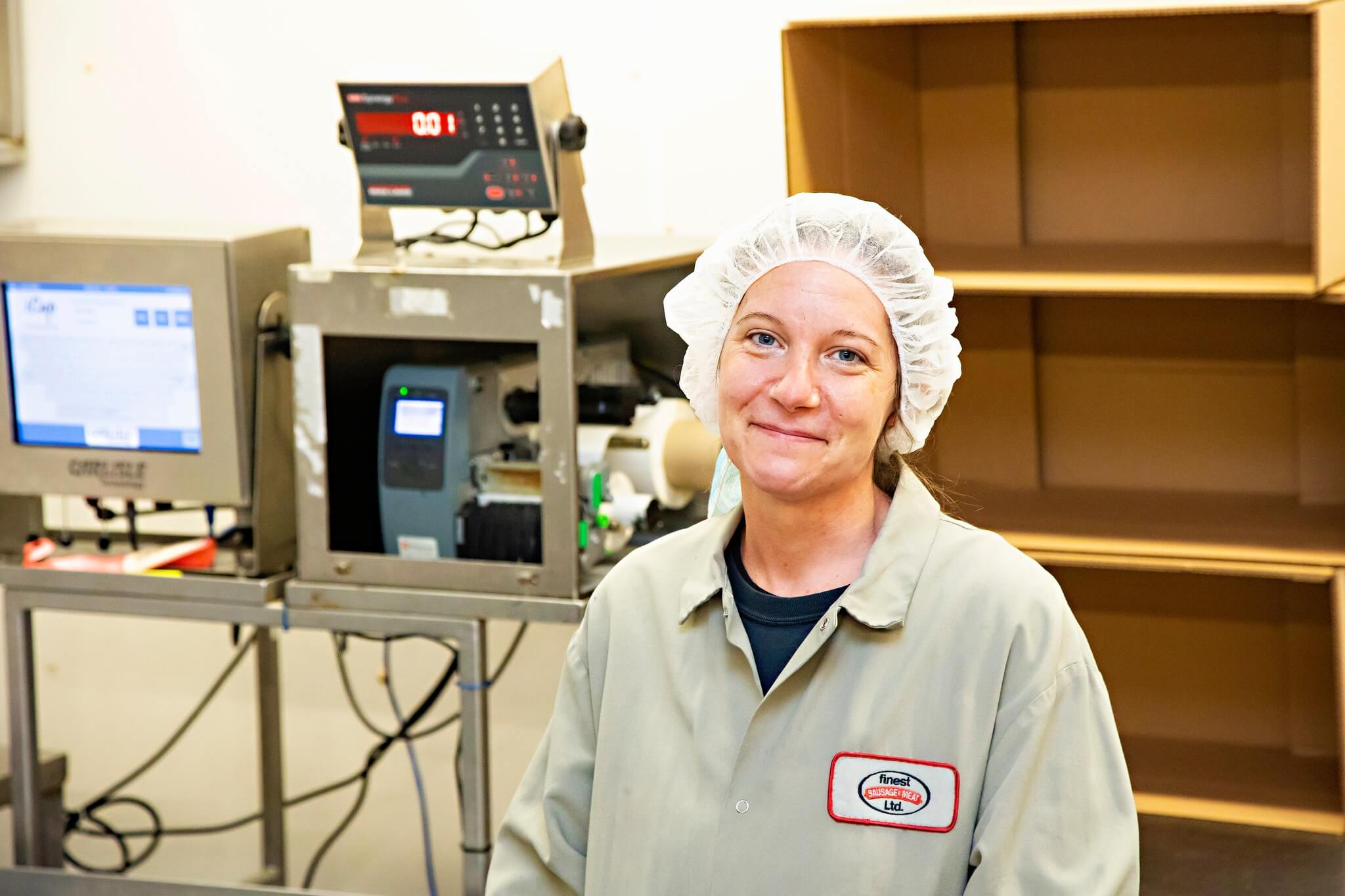
I’ve worked at this butcher shop and meat processing facility for seven years. I’m an Order Picker/Shipper. So daily, I put together orders that are going out to grocery stores, restaurants and neighbourhood shops across the province, package them, scan them and get them ready for shipping.
I really like this job. The owners respect their staff. I took a food safety handling course at the University of Guelph and that taught me so much.
My favourite product is definitely the bacon. It’s unreal. I also really love the Gypsy Salami. Sliced on pizza, sandwiches or with cheeses and crackers, it’s wonderful.
When I’m not working, I spend time with my 14 year old son and 9 year old daughter. We like going to our trailer and hiking and swimming.
-Laura
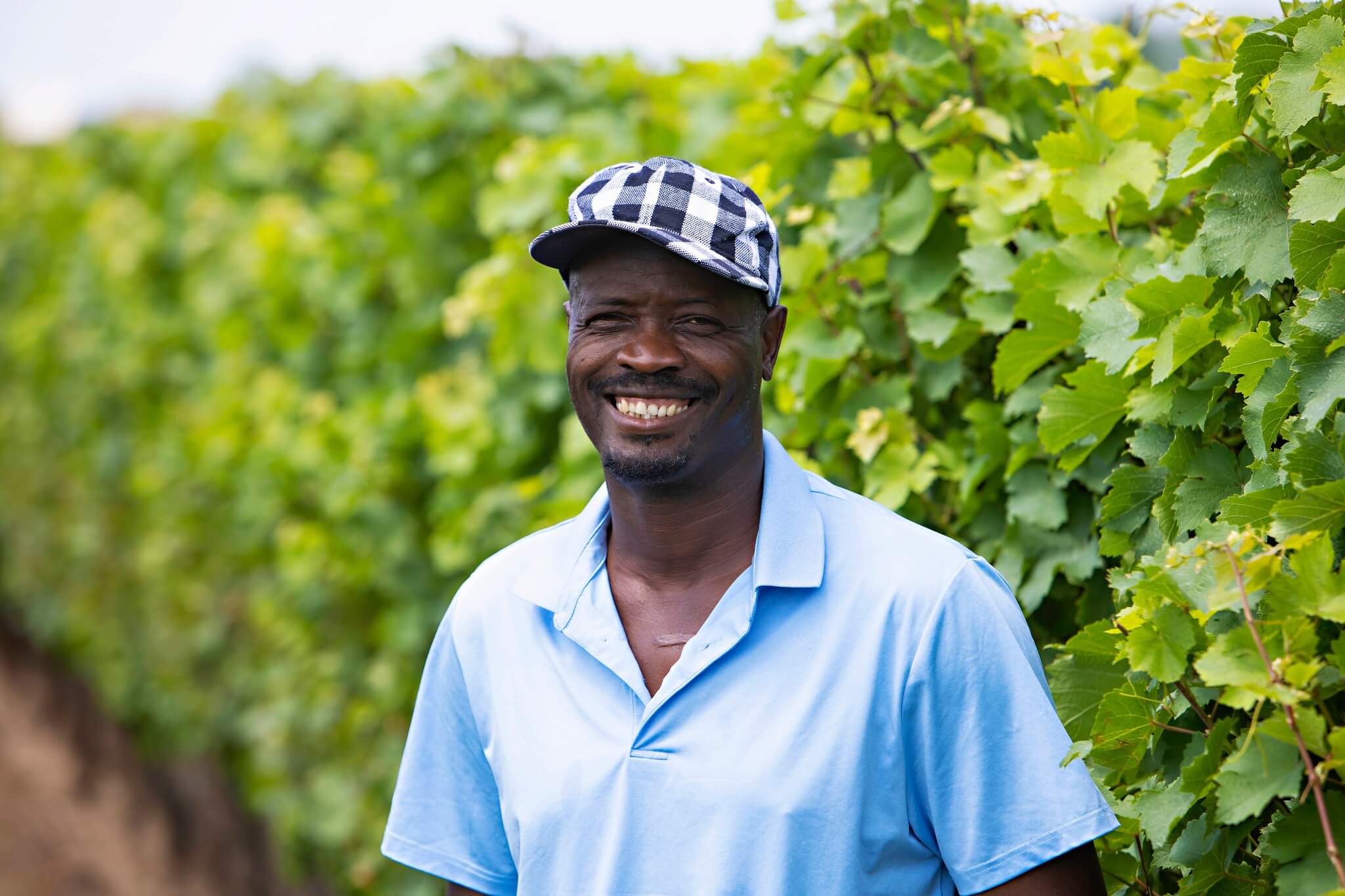
In Jamaica, I’m known as an All-Rounder. I’m in construction. I can build houses and do furniture too. I can even make cupboards for you for your kitchen. I grew up in a rural area. My mom was a tobacco farmer. We also grew yams and potatoes and things like that.
I started coming to Canada in 2001. When it came to the financial crisis, you just have to deal with it. You’ll do whatever it takes to survive. My children are 30 and 23. I talk to them every day.
On this farm we grow grapes, peaches, cherries and apricots. We start with pruning when we come in the winter and then after pruning, tie the grapes on the wires. These grapes are going to be harvested in October or November. I like to eat them all but my favourite is the apricots. Maybe if I say that, my boss will stop me from picking them!
It was cold when I started coming but it was nothing to worry about. The deal with it is that you know you’re coming to a different country. You’ve got to be prepared for whatever there is.
They say you should live each day as if it’s your last. You’ve got to be happy when you rise and see the sun in the morning. I appreciate each day for whatever it is and whatever might come.
I like to play dominoes and listen to music. My favourite music? I have so many and am confused about that right now. I like any one where I listen and I gain wisdom from that song. Any one of them can teach you something.
-Jeremiah, fruit orchard employee and Seasonal Agricultural Worker from Jamaica
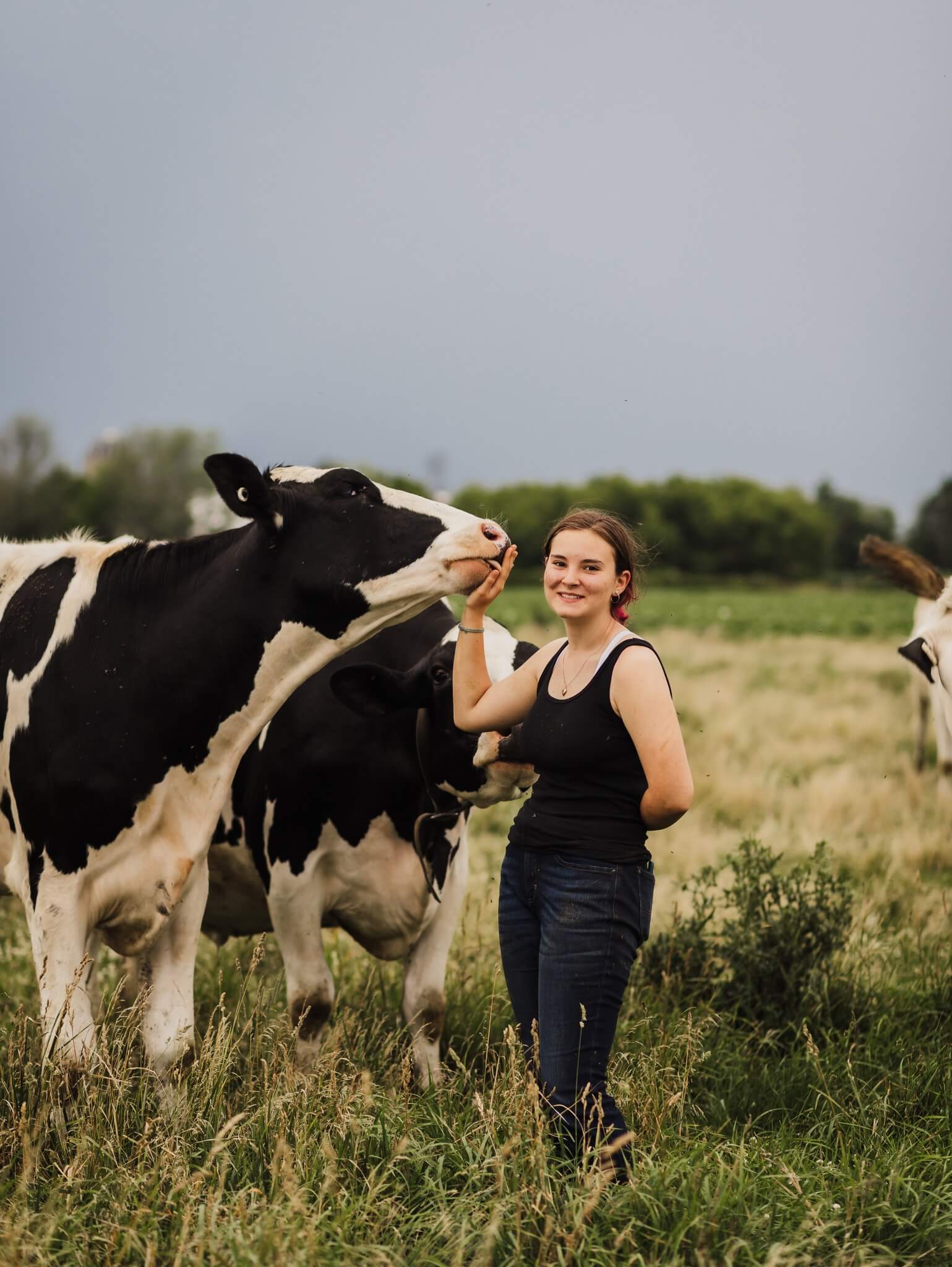
My grandparents sold our family farm when I was young but that never stopped me from reaching out to neighbours when I was 11 to help on their farms. My uncle is also a vet so you could say that a job in veterinary medicine might be in my future. I also really love law and social justice too!
I love coming here to the farm and helping with chores. I enjoy the routine of all the jobs that need to be done and also helping anywhere I can. When I go to school, I help teach all my classmates about agriculture and answer their questions.
-Lindsay
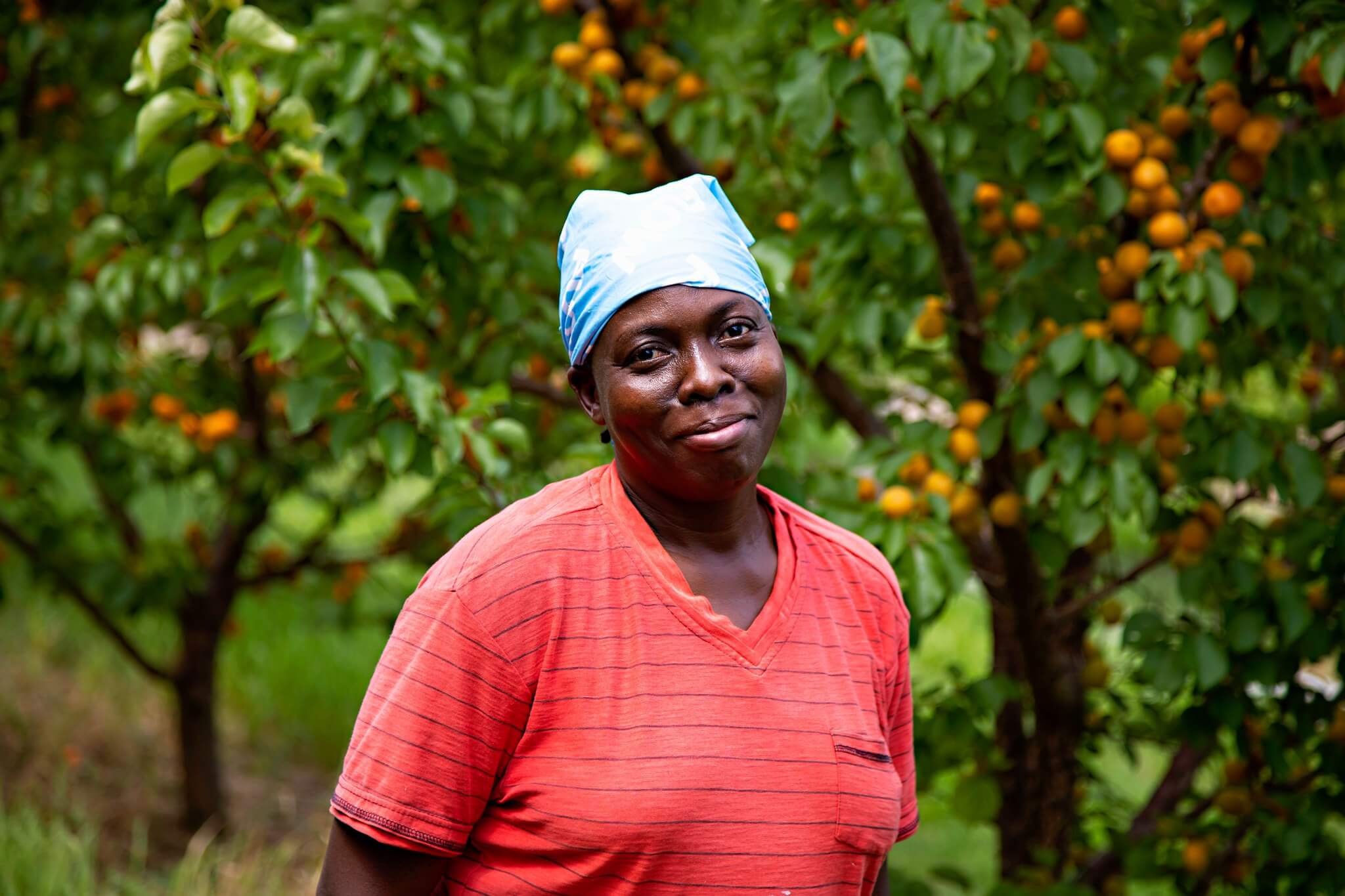
One of my friends introduced me to the Seasonal Agricultural Worker program. I’ve been coming from Jamaica to work on this peach farm since 2009. Back home, I also do some farming. We raise chickens and I plant crops like yams. When I’m away, my brother looks after it for me.
I’ll be 50 in December and I have three sons age 22, 21 and 19. I also have a two year old grandson. When I first started coming here, my sons were very young. I was nervous leaving them but my mother and father looked after them. Me working here helps them. I talk to them every day.
I remember the first time I saw snow in Canada. That was exciting. For fun, I like to play football.
-Coralee, Seasonal Agricultural Worker from Jamaica
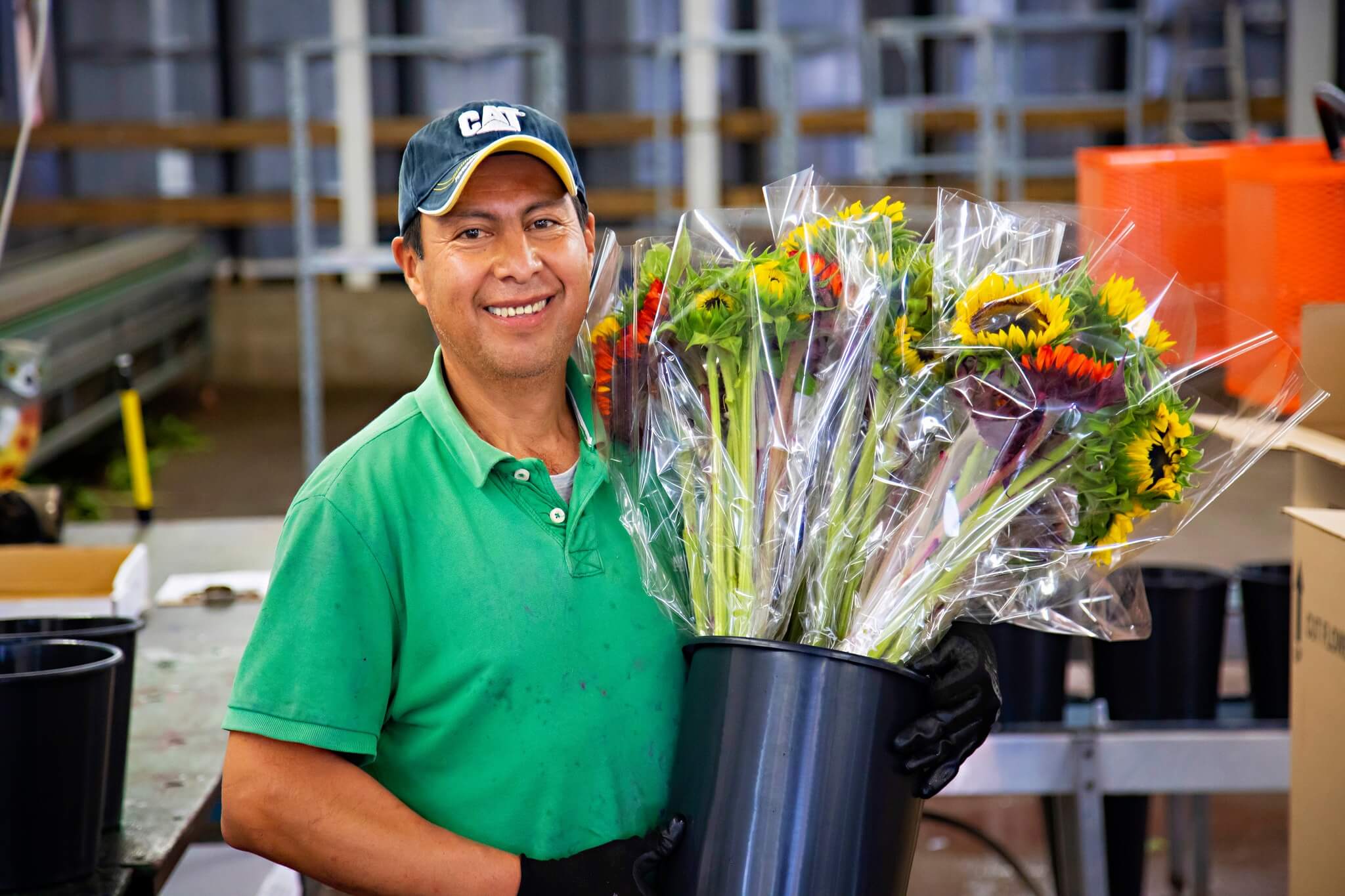
I first came to Canada 23 years ago and have always worked on this flower farm.
Two years ago, my status here changed from seasonal worker to refugee. For some reason, I was targeted by the Mexican cartel who threatened my life if I was to come home. I am not sure why me – we lived in a quiet community - but I think they didn’t like me coming to Canada to make money and support my family.
The farm family that I work for helped me apply for refugee status and then helped my family to come here too. My wife, daughter and granddaughter arrived in October, 2019. My son-in-law finally got here in August of 2020. It was such a stressful time waiting for them to come. I lost so much weight with worry. And then it was such a relief when they came and I knew they were safe. We left our house and everything behind in Mexico. My wife now works here too.
I mostly work in shipping but like all jobs because I like to stay busy. When I’m not working, I go to church and love spending time with my family.
-Carlos, Seasonal Agriculture Worker turned refugee from Mexico
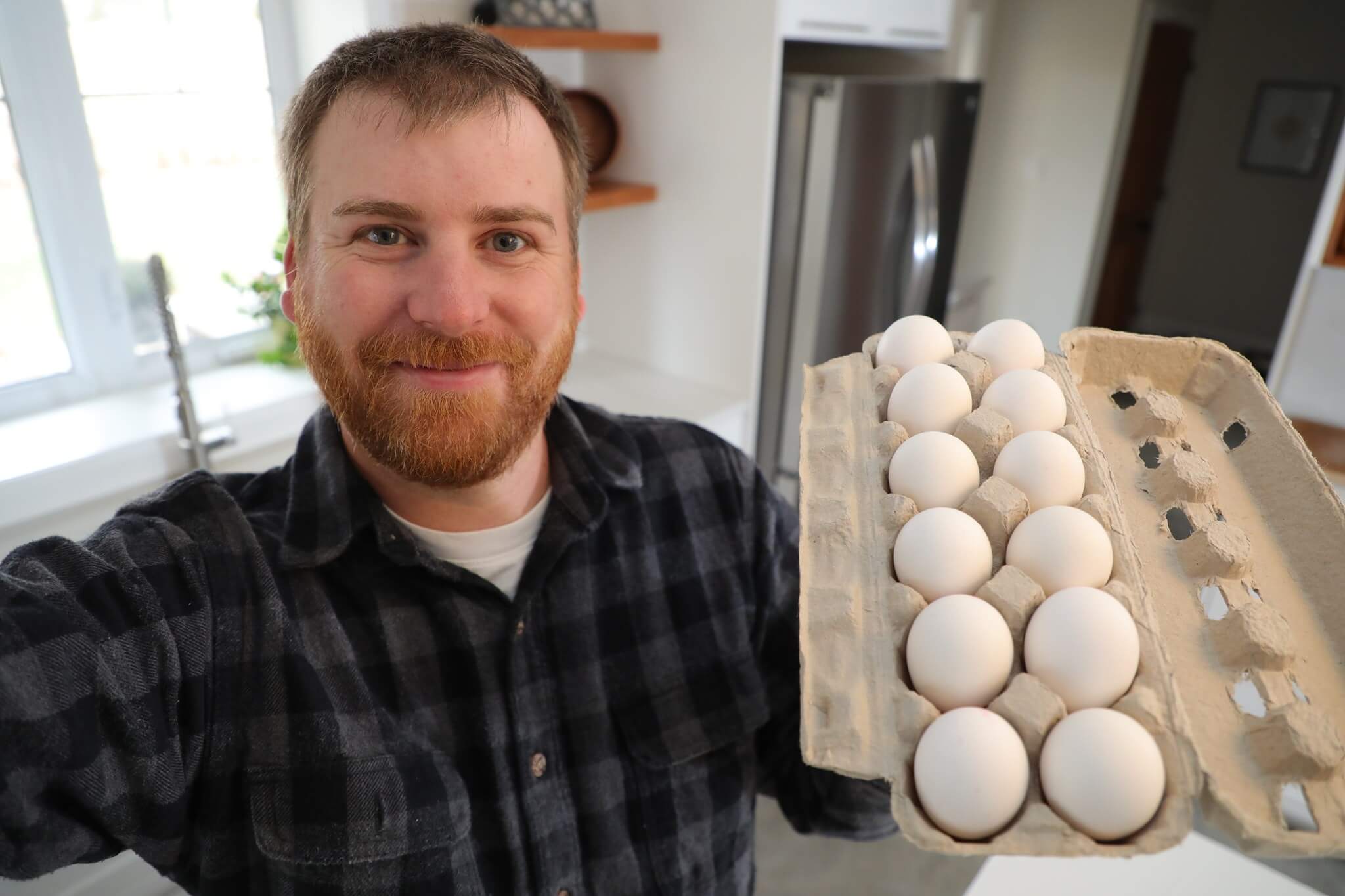
I’m a third generation egg farmer and the fifth generation of my family to live and work on this farm. But I never thought I’d reach celebrity status! Egg Farmers of Ontario asked me last year if I’d be one of the faces of their Real Farmers. Real Eggs. campaign. And as a result, my picture was on billboards, buses and transit shelters across Ontario. At that time, there was a constant flurry of emails from friends and family telling me that they’d seen my face on a bus! That was a fun thing to do.
As far back as I can remember, I always wanted to be a farmer. That’s what I always said as a kid, when asked what I wanted to be when I grew up. A lot has changed in egg farming since then. We’d get off the school bus at the end of the day and collect eggs by hand. Now, that’s all done automatically. Feeding the birds is also done automatically. That allows for better quality control and better care of the birds.
It gives me a lot of pride that our three kids, ages 5 to 9, are now showing interest in the farm too. They help with chores on weekends and during school closures. Sometimes, there’s three generations of our family all working together – my parents, us and our children.
When I’m not farming, I love fishing and cooking. Omelettes are my absolute favourite way to eat eggs.
-Ian, Egg Farmer
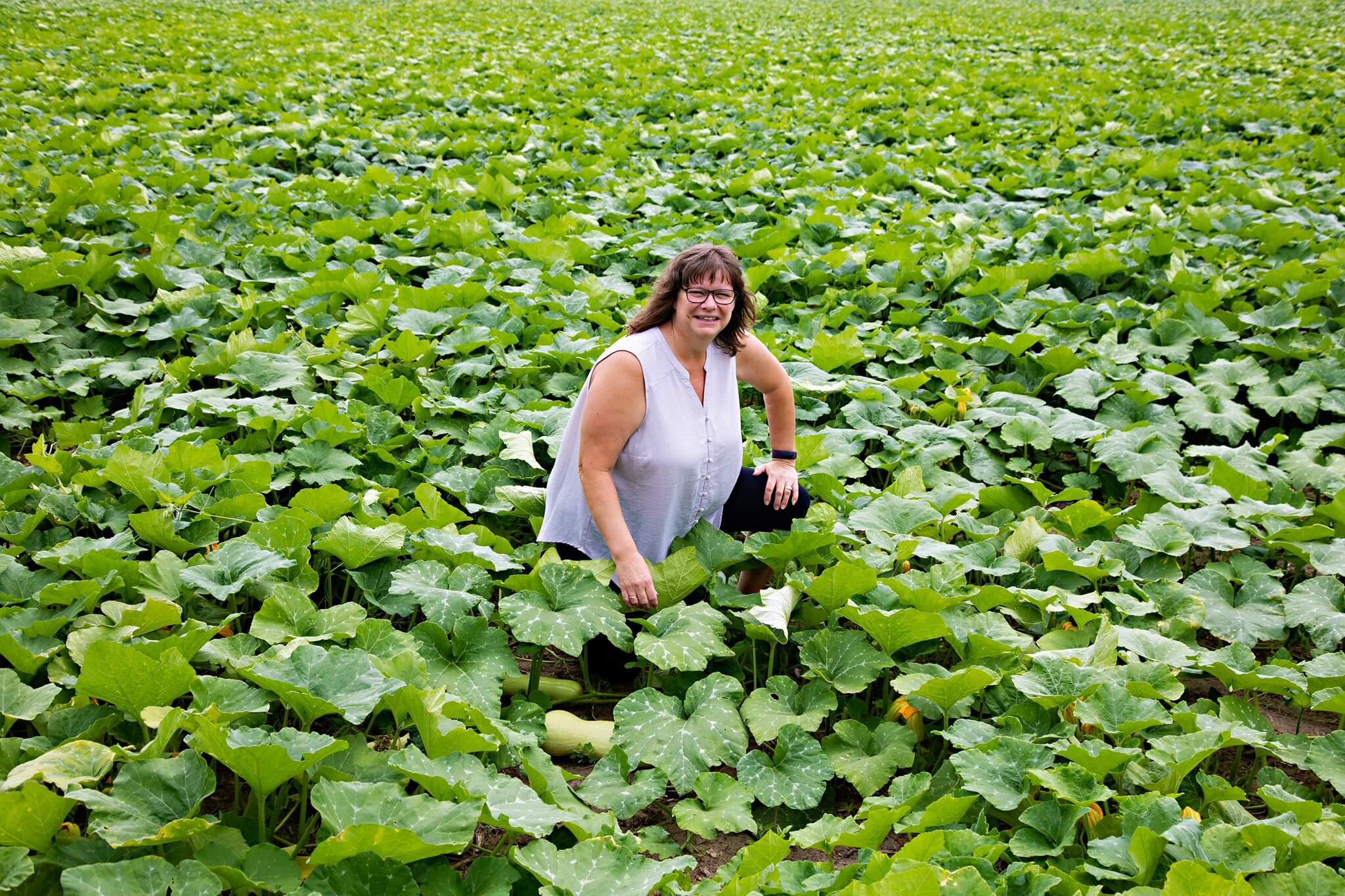
I was born in Hertfordshire, England and emigrated with my family in 1974. We lived in town so I didn’t have a lot of farm experience until I met my future husband Pete who was a local farmer. We met playing pool. I could always beat him!
We took over the farm when Pete’s parents retired and have raised our four daughters – Allyson, Amanda, Katie and Jess - here. They grew up helping pack watermelons and still take an avid interest in the family business, helping with paperwork, packing and other jobs.
On our farm, we grow watermelons and butternut squash. The watermelons are sold seasonally in local grocery stores and the squash is processed into baby food and other products. They’re labour intensive crops. Everything is done by hand – planting, weeding and harvesting.
During COVID, when we weren’t able to sell all of our products because of market disruptions, we created a squash mountain and offered them free on Facebook. People were driving from as far away as Toronto to get them. So many people were so grateful. And we were also able to take care of the local foodbanks too, donating fresh squash to them.
-Tracy, Watermelon and butternut squash grower
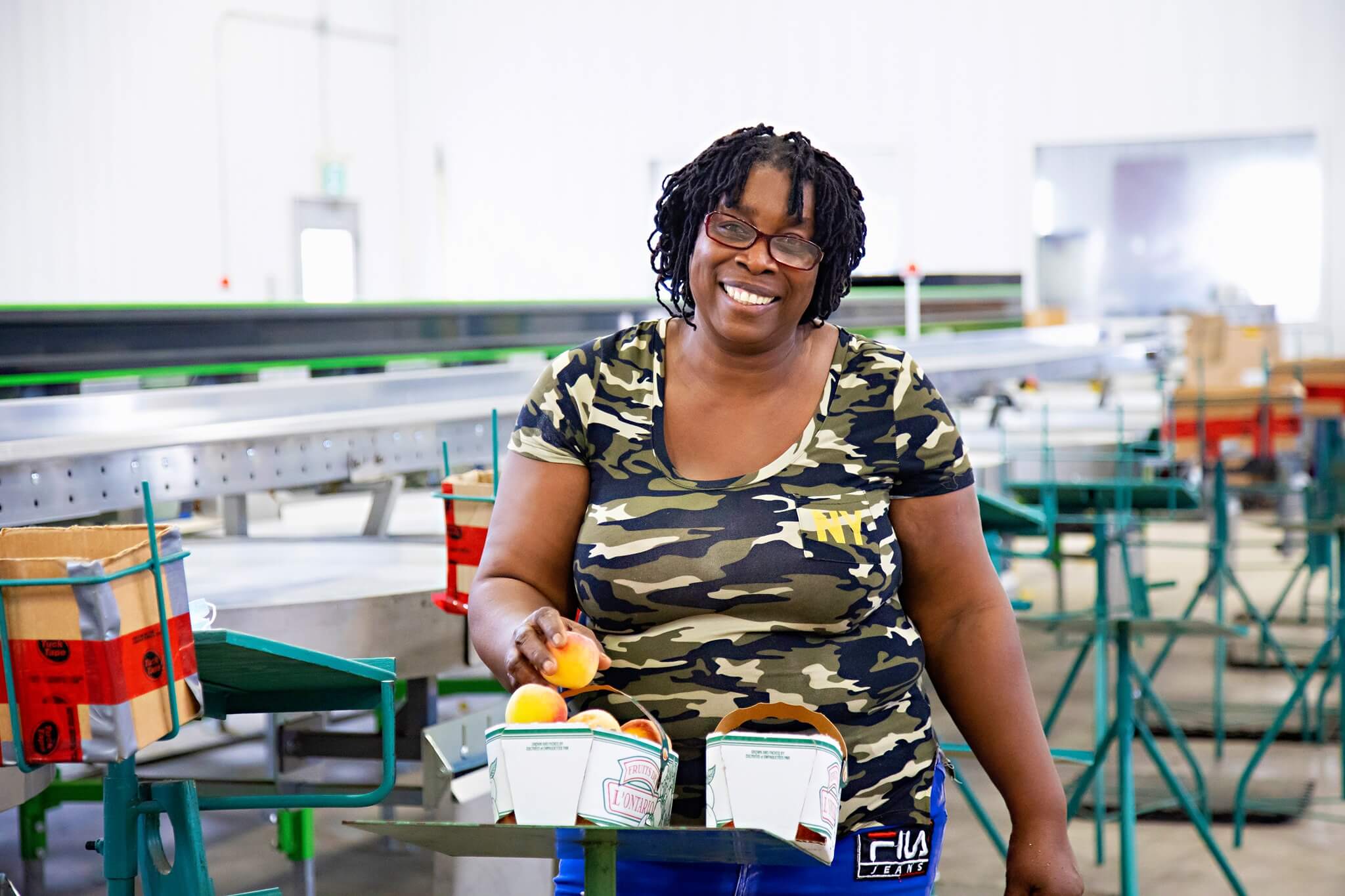
I got the nickname Peaches when I was young – so it was a surprise, when I first came to Canada in 2000, that I found myself working on this peach farm!
I’m from St. Elizabeth, Jamaica. There we have the best food, beautiful beaches and good entertainment. When I’m not here, I run a bar there. I’d welcome anyone to come and enjoy the hospitality.
I’ve worked on this same farm for the last 21 years. I learned about the Seasonal Agricultural Worker program from my MP and I went to the Ministry of Labour in Kingston to apply.
Back home, I’ve got five children ranging in age from 34 to 14 and now I have grandchildren. My mom and my sister help to look after them when I was away. Now we video chat every day but when I first started coming, that technology wasn’t available and we’d only have one phone call every week, on Fridays.
Last year was hectic and worrying with COVID. We didn’t leave the farm to stay safe. This year is safer. We got our first vaccination when we arrived at the airport. That was good.
-Yvonne (Peaches), Seasonal Agricultural Worker from Jamaica
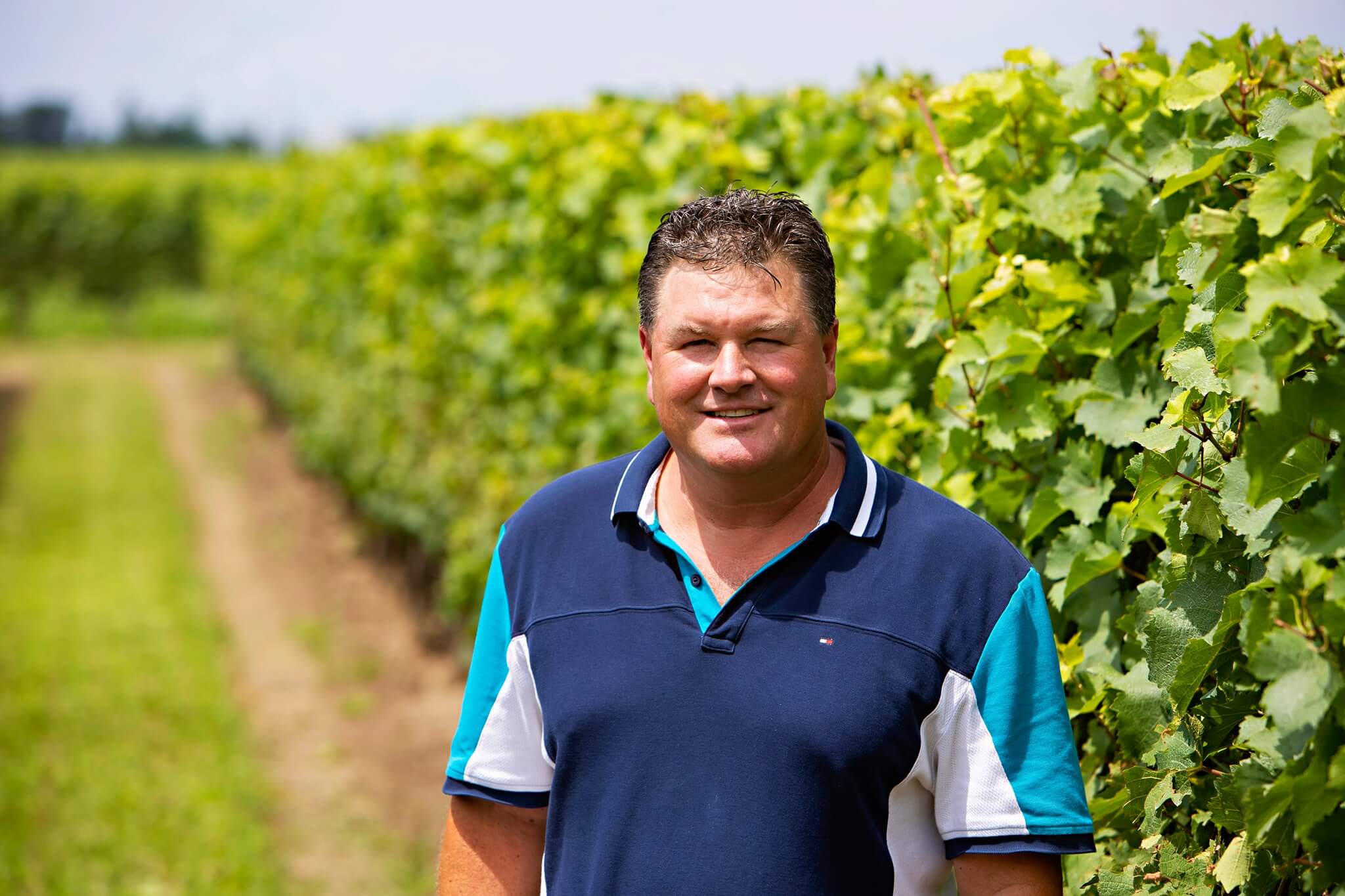
My grandfather, Peter, was born in the Netherlands and came to Canada, purchasing the home farm in Niagara on the Lake in 1952. My dad (also named Peter) started managing the farm at a young age. Originally the farm was a mixed operation but over time it has evolved to strictly tender fruit and grapes with a focus on high quality. This land is suitable to these crops. Now we grow about nine varieties of grapes which we sell to local wineries as well as tender fruit such as cherries, peaches, apricots and plums. Our fruit market, which has been operating since 1952, is a well-known destination.
I wasn’t always sure that this is what I wanted to do. After university, this industry was on shaky ground so I took a job at a bank and had a very successful career there. But, a combination of factors brought me home. Our oldest son, Andrew, passed away from a rare neurological disease in late 2000 and a few years later, my dad decided he wanted to retire. I’d just been offered a big promotion at the bank but decided to give that up to come back to my roots, so to speak. That was a good family decision we don’t regret. My high school sweetheart and wife, Laura and I bought the farm in 2005 and we have since expanded by purchasing additional farms.
Our daughter, Erica is a lawyer and son-in-law, Phil, recently gave up a career as a chef to help us in the business. Our 16-year-old son, Nathan, helps out daily with all tasks and is starting to think about a future career here too. It’s fantastic to have our family close and to know that they enjoy being part of this business too. We also have a team of six Jamaican employees that are like family to us and they come seasonally to help. They’re a big part of our success.
I was named the 2018 Grape King by my peers in the industry. That was a huge honour and we thoroughly enjoyed it. We met a lot of wonderful people and tasted a lot of amazing world class 100 per cent Ontario grown wines. It was great to follow in the footsteps of my father, who was Grape King in 1985.
My favourite variety is the Merlot. It’s a challenging grape to grow in a cold climate. We really make some truly outstanding wines in this area so picking a favourite is tough. ¬¬
-Chris, grape and tender fruit grower
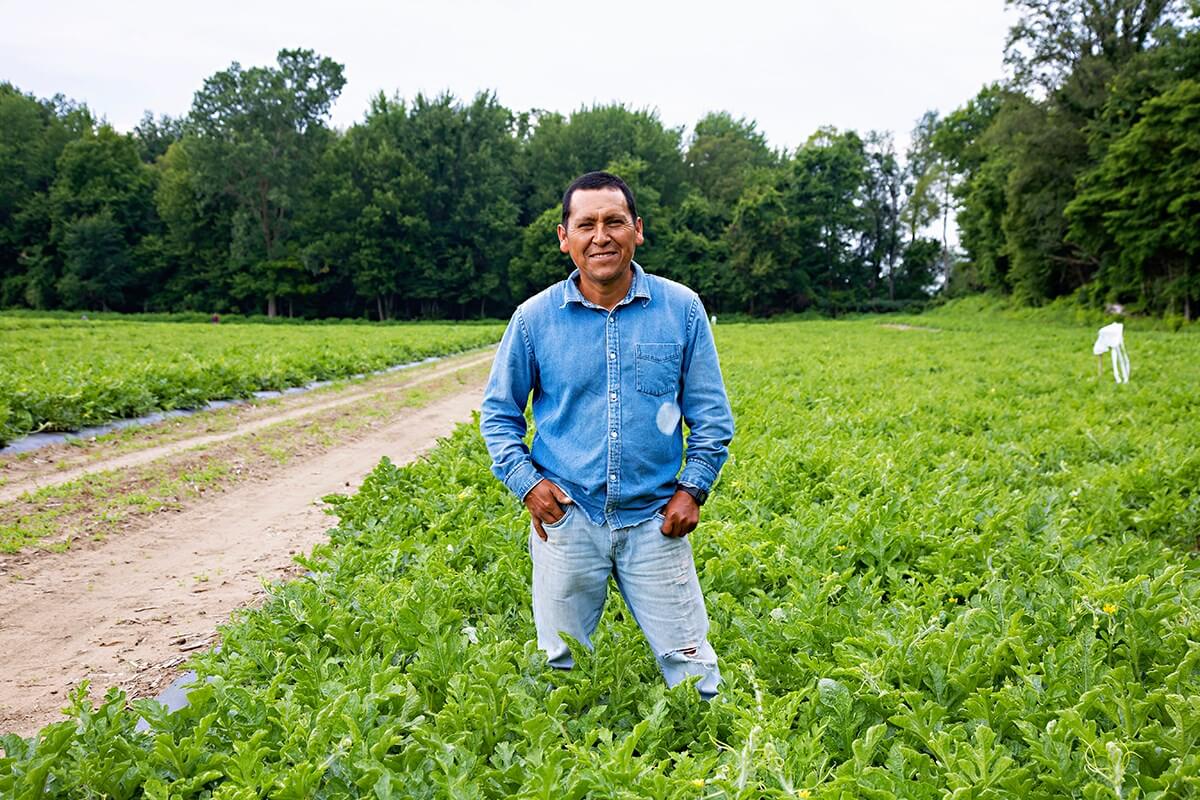
My name is Salvadore and I’ve been coming to Canada for 20 years. I like the work. I like Canada too. Growing watermelon is hard work. Today, we’re hoeing the fields for the weeds. I think we’ll start picking melons in about three days.
When I’m finished working here for the year, I go home to Mexico and my family – my brothers and everyone are there.
In Canada, in October when I’m working here, it’s too cold! And then I go home to Mexico where it’s always hot! It’s nice to be home then.
When I was young, every Sunday I’d play football (soccer). Sometimes the guys here play soccer. Of the 12 of us, nine or ten play soccer.
-Salvadore, Seasonal Agriculture Worker from Mexico, working on a watermelon farm
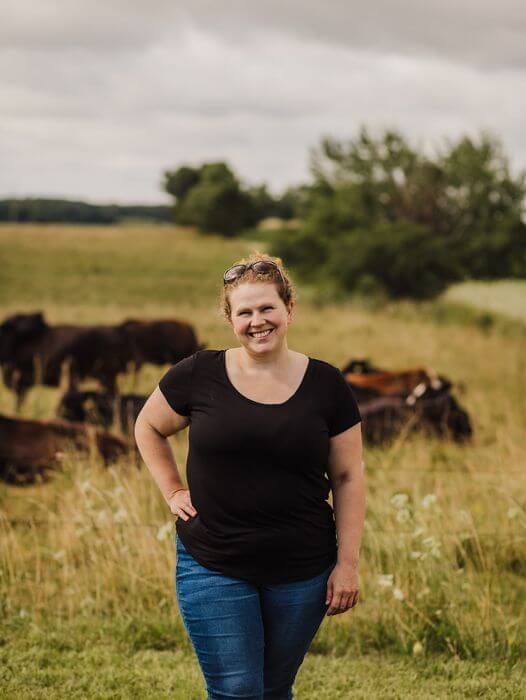
I grew up in Toronto but always had a passion for animals. My first taste of agriculture was spending time with the horses at my aunt’s. I loved riding and being in barns outside of the city.
When it was time for university, I moved to Guelph and never looked back. I attended the Ontario Veterinary College and graduated as a large animal veterinarian. My interest is in calf health, production medicine, and research. Providing emergency services can be very rewarding as a veterinarian, but I also like working with farmers to set goals and see herd improvements. Sometimes a few small changes can make a big difference.
It was also while at university that I met my beef farmer husband. We’re now living on the farm that he grew up on and raising our young daughter Annika here too.
I love to travel. After finishing my Master’s Degree, I had the chance to travel to the Galapagos Islands. I was also able to travel around Switzerland after presenting at a conference during my Doctor of Veterinary Science degree. It was great to walk through some milking Simmental cattle on a dairy farm there and talk about breeding Simmental for beef at home. Some of my other hobbies include archery, hockey (although I play badly), and running.
-Taika, veterinarian and beef farmer
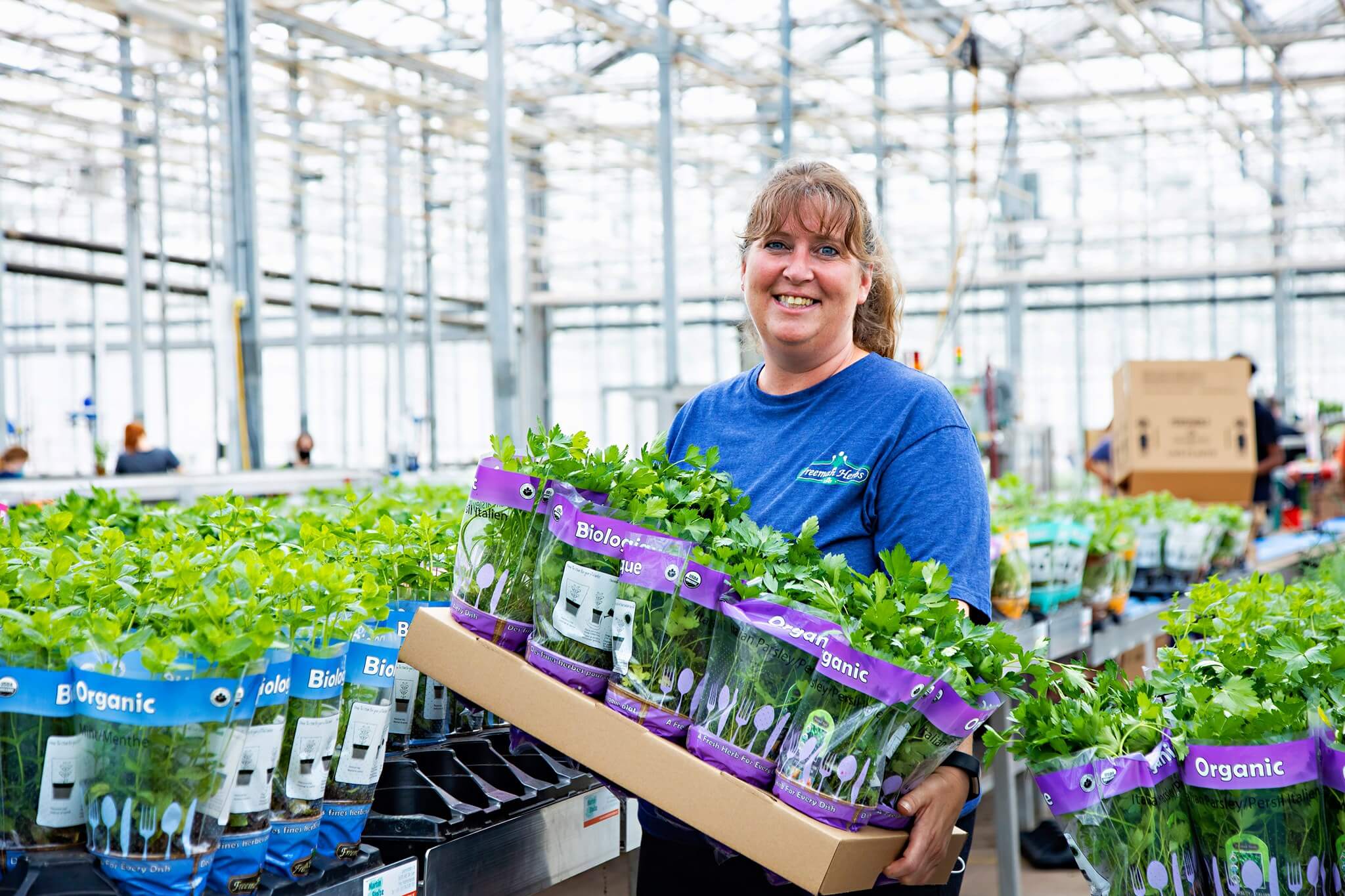
“I had been a grocery store manager and had never worked in a greenhouse in my life. But after I met my husband, I started looking for a local job and have now been working here for 11 years. We grow about 12 different types of herbs. I started working in the propagation area and am now the Distribution Centre supervisor with a terrific team of about 30 employees.
We’re really busy from April to August shipping orders out to everywhere from garden centres to grocery stores where you can buy a fresh pot of herbs to take home for your cooking. Some of the daily orders we process may only be two trays in size. Others could be 17 carts. It’s always important that we make sure we’re sending our best products out. If you wouldn’t buy it as a customer, I don’t want it leaving here.
I love how this company is all about family because family is so important to me. We’ve got six children and five grandchildren of our own. We’ve got an amazing team of offshore employees from Mexico and other countries too that come in to work here for part of the year.”
-Jennifer, Distribution Centre supervisor, herb greenhouse
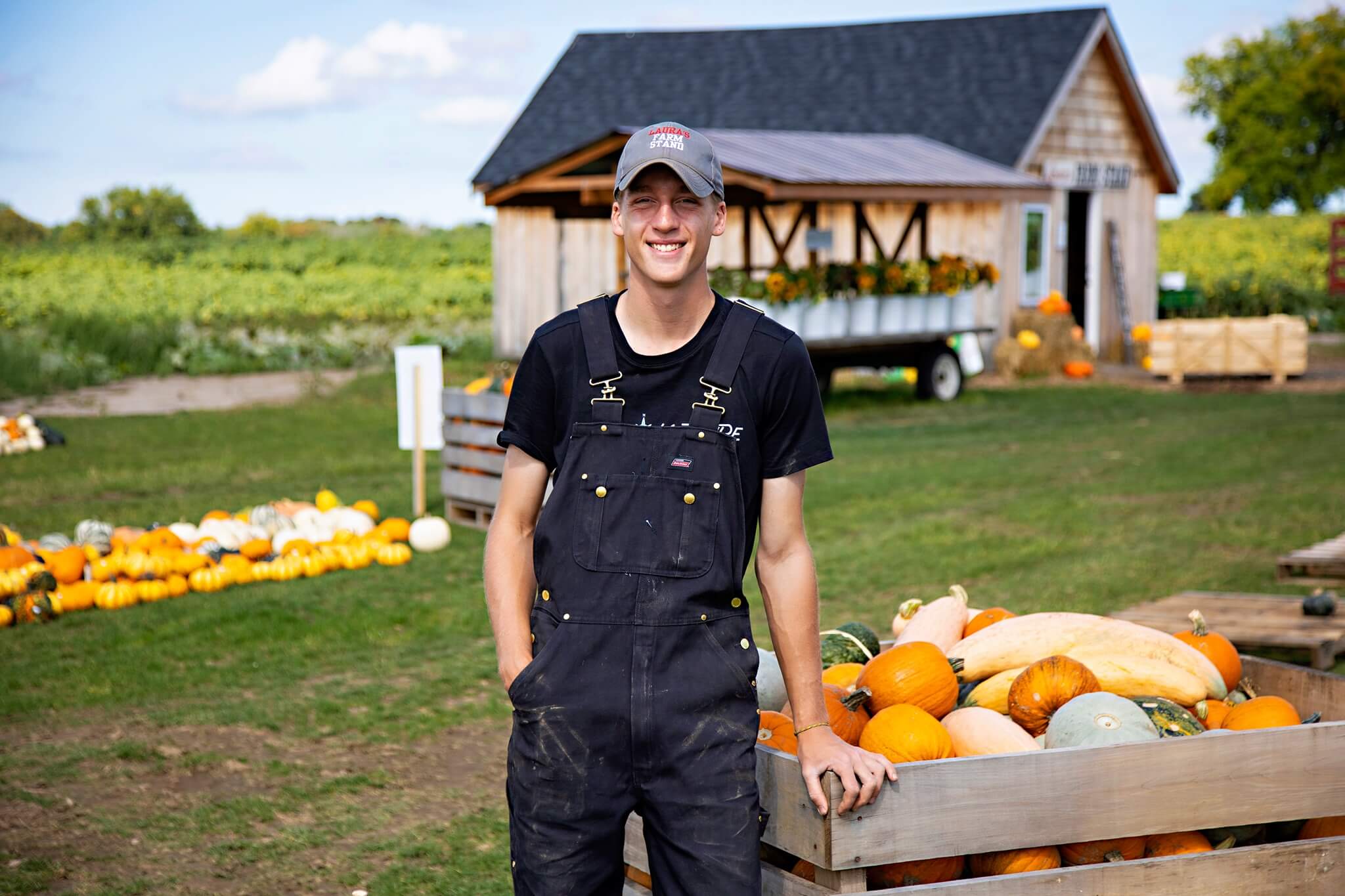
“I just graduated from high school and this is my first summer working at this farm market. I knew the farm family so asked if they needed help – and here I am. I’d like to get into farming when I’m older so this is good experience.
I love working outside and breathing in the fresh air. It’s also fun helping people pick their favourite pumpkins.
When I’m not working, I’m a big hockey guy. It’s great to be playing again – we couldn’t play last year due to Covid. I also like hanging out with my friends and playing board games with my family.”
-Colton, Employee, Laura’s Farm Stand
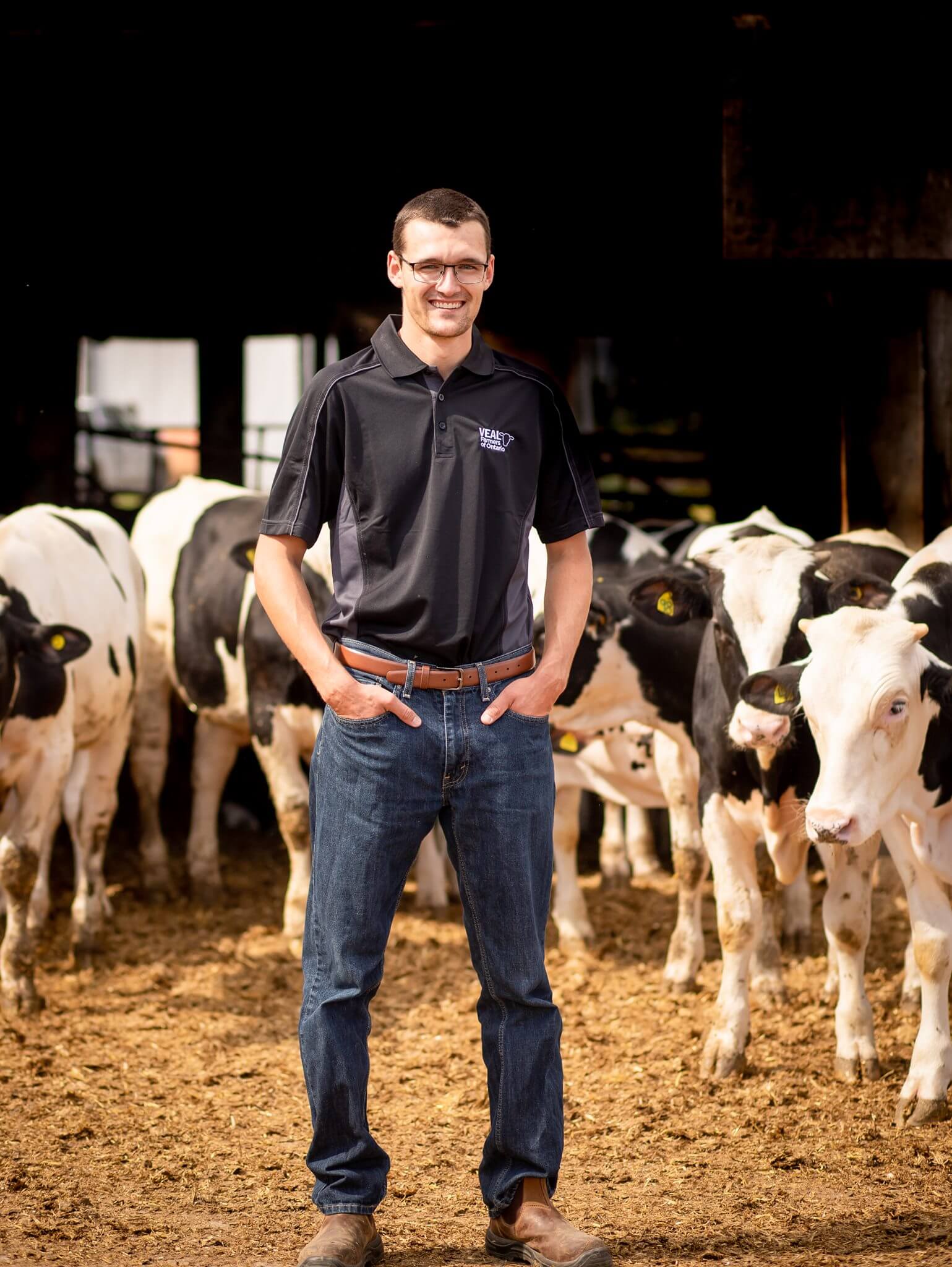
“My wife and I live in the house that I grew up in and now our five month old daughter is the fourth generation on this family farm. Our family’s been farming in this area since the 1830’s. Even our barn’s over 100 years old. If walls could talk, it would have a lot to say.
I farm with my father and my brother. I was always interested in the farm. After all, I’d been around tractors my whole life. But for a while I contemplated a different career and studied International Development at university, also taking a minor in agriculture. In addition to farming, I work for a local company as a feed salesman, helping other livestock farmers determine the feed and diets that will be best for their animals.
We used to have dairy cows but for the last few years, we have been raising veal cattle as well as growing crops like wheat, corn, soybeans and cranberry beans. I really watching them grow up as healthy, content animals. That’s the most rewarding thing.
For fun, I really enjoy camping and trips to the cottage. I play baseball in the summer and hockey in the winter..”
-Dylan, Veal and crop farmer
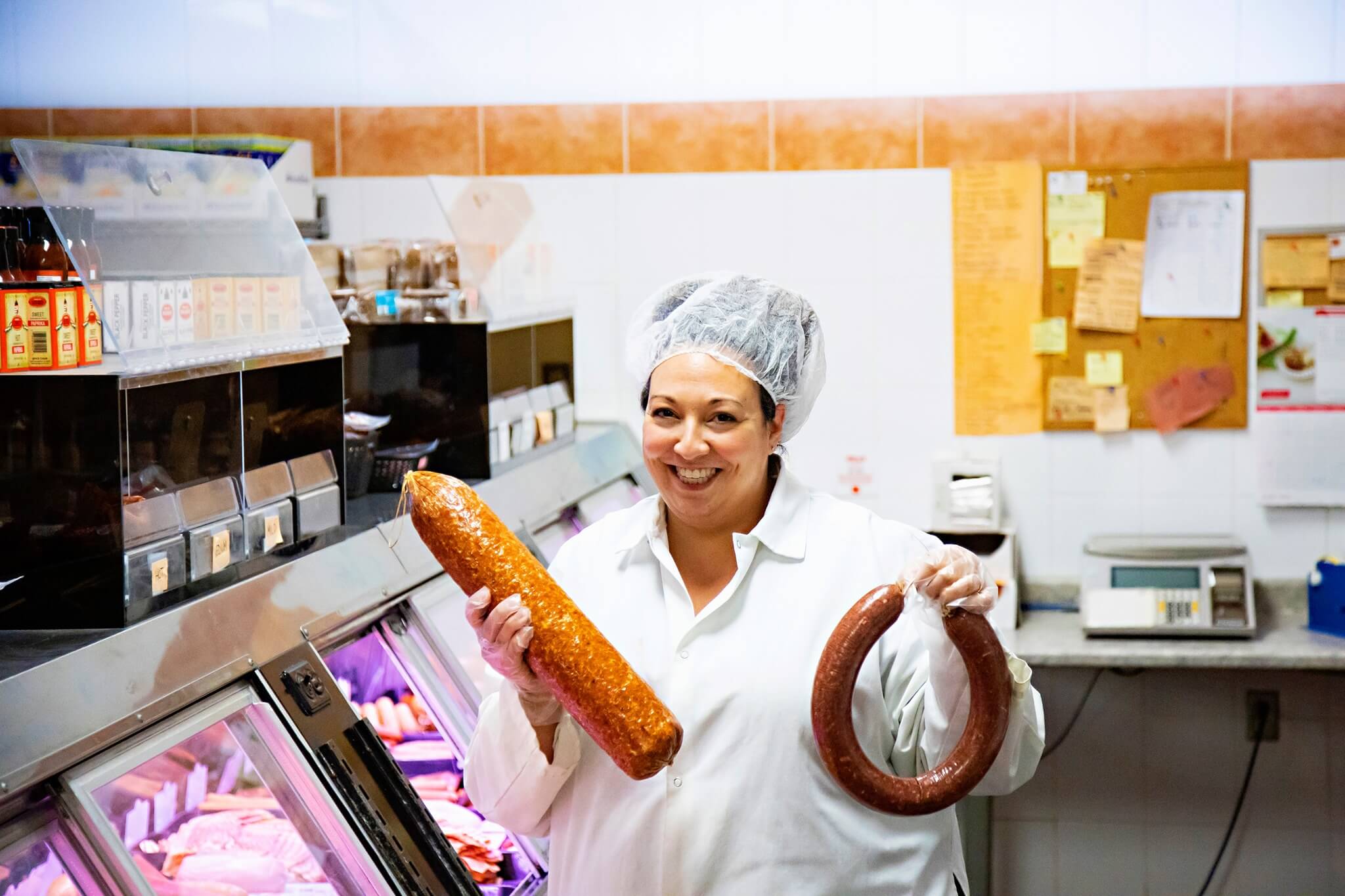
“I used to shop here all the time and so when the accounting job came open, I jumped at it. It’s a family-owned business and they treat me like family. I’m like another daughter that just comes to work every day! I’m currently on maternity leave - my son Austin was born last October. But I still come in a day a week because I like the job and my coworkers. It’s important that you love your job. You spend more time at work than you do at home so you’ve got to be happy there.
My favourite product? Well the bacon, obviously. It’s the best bacon in town! I also love the pepperettes and the Hungarian sausage. And we have a real smokehouse. So when the meat is described as being smoked, that’s genuine, not a flavour that’s been added.
When I’m not at work, my family and I spend a lot of time at the beach. I also dabble a bit in photography.”
-Maurie, Accounting Manager, Butcher Shop
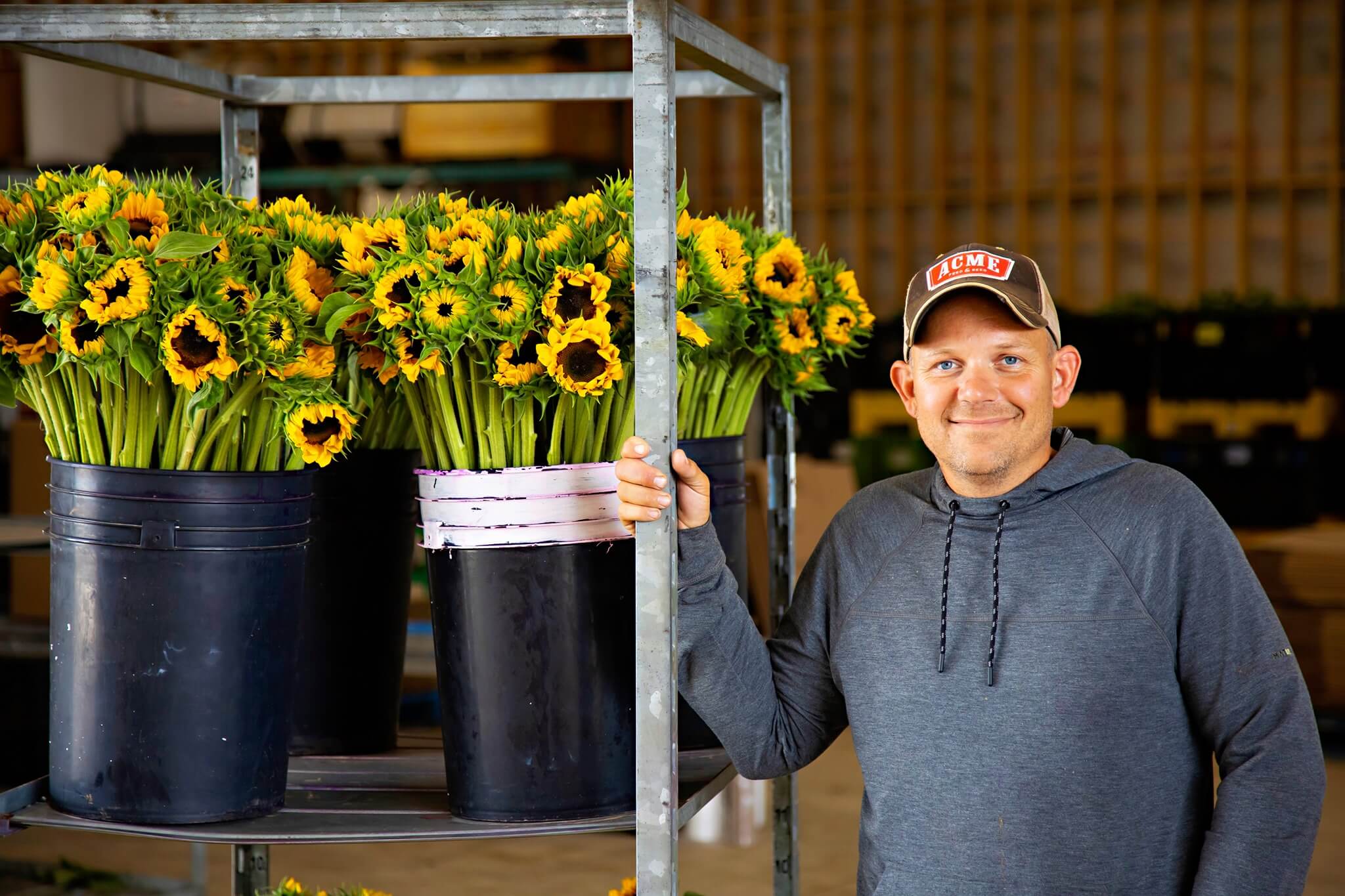
“I have early memories of getting up at two in the morning to go to the Ontario Food Terminal with my dad and grandpa to sell our flowers. I also remember, as a child, carrying bunches of flowers out of the fields to the end of the rows during harvest. I think I always planned to come back to the family business but after school, I first worked off the farm in construction.
Our schedule is a busy one. We start planting our greenhouses from January to March and then in May, we’re working full out until after Thanksgiving. Once November comes, it’s quieter and we can have a break after a busy year before it starts all over again. We have about 400 acres of cut flowers and also do planters for the spring and fall seasons. I think sunflowers are my favourite – they’re the favourite of a lot of people.
We have a crew of about 42 seasonal workers that come from Mexico. Labour is our biggest issue and last year showed how absolutely dependent we are on our employees. When COVID hit in 2020, many of them couldn’t get here as scheduled. It was so stressful – it was a disaster because we can’t harvest without them. This year is better. They’re arriving in a staggered schedule and spending two weeks in quarantine before they can start work. I’m so grateful to them.
My wife and I are parents to 9-year-old quadruplets – two boys and two girls. We’re also caring for a wonderful four month old foster baby boy. It’s nice to see my kids starting to take some interest in our flower business. They’re also really into sports. In the winter, we build a big rink on the farm for them to skate on..”
-Mike, Flower farmer
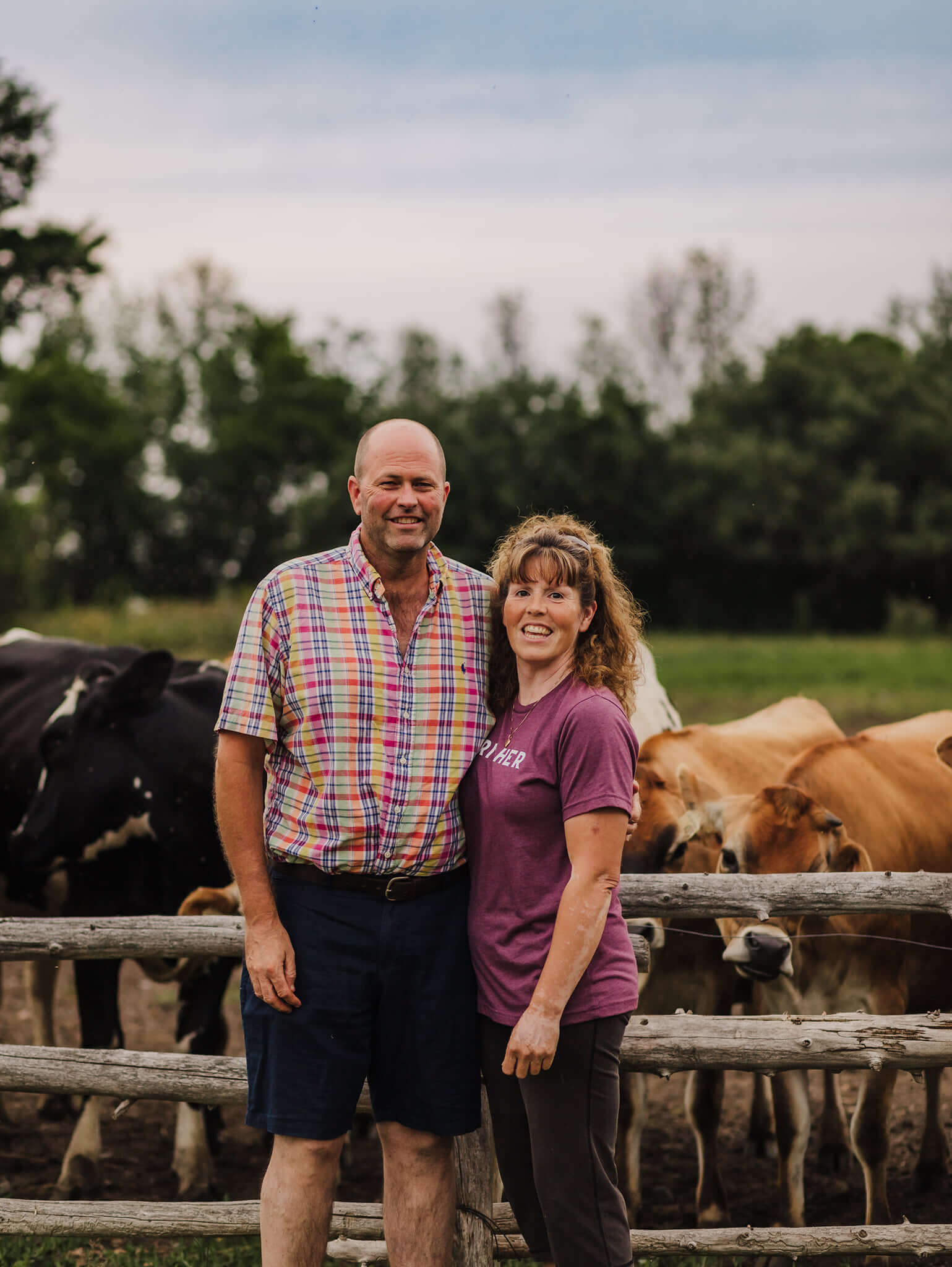
“Jill: My earliest memories growing up on my dairy farm include watching my mom and Nanny prepare many preserves during summer months, baking and making lunches to be delivered to the men working in the fields.
I had the big dream of wanting to save the world, as I enjoyed working with children, and continued my education in social work and then became an Educational Assistant.
Doug has been full-time here on the farm since he was 18 years old and the farm became his in 1994. This farm has been in the family for over a century!
It was when I met Doug that I returned to my roots. In 2019, we were selected for the Farm Credit Canada Customer Spotlight Award. We continue to have big dreams for our farm which one day may include a creamery.
As farmers, we’ve always known that we must involve everyone - from our vets, to accountant - to accomplish the many dreams we have. Most importantly we have always included our two boys in all our decisions and from the time they were young, they’ve owned cows and since have been able to both have their own little herd.
Family is our number one priority and we enjoy much deserved vacation time together even if it's just a night away at our favourite place, Lake Placid, in New York.
We want to encourage others in the community to explore options for local growers and producers in your community and where the products can be purchased. They support those local distributors as well.
Jill & Doug, Dairy Farmers”
-Jill & Doug, Dairy Farmers
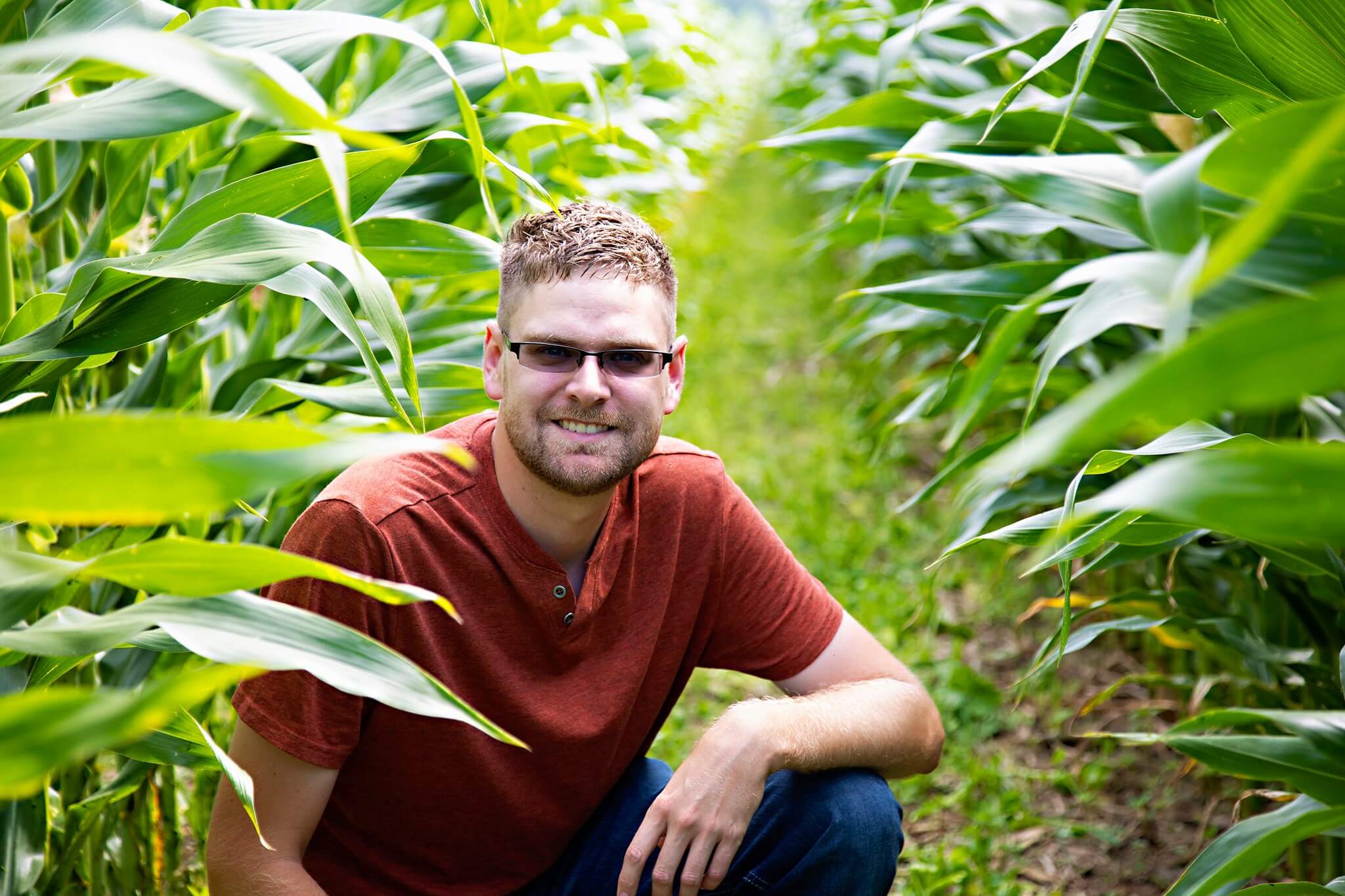
“’I've always been interested in architecture and design. I love watching documentaries on the Discovery Channel about building things like bridges, skyscrapers and dams. I studied architecture at university and always thought about coming home to our family farm. I didn’t think I could afford to but here I am. We raise chickens and grow crops and I helped to design our new barn.
It was on Twitter that I got interested in doing some experimentation with our crops after I started following other farmers who are working to improve their land. I’m now growing corn that’s got wider spaces between the rows than most farms do. And then, in between the rows, I grow cover crops. In doing so, I’m trying to create a better ecosystem with my land and my soil.
The cover crops that you see here are not there to be harvested. The roots from the cover crops help hold the structure of the soil and prevent erosion and compaction. It’s all about everything working together – water, air, sun and nutrients.
I like to follow people on social media like Jason Mauck, Tim Boring and others that promote a regenerative type of philosophy”
-Patrick, chicken and grain farmer
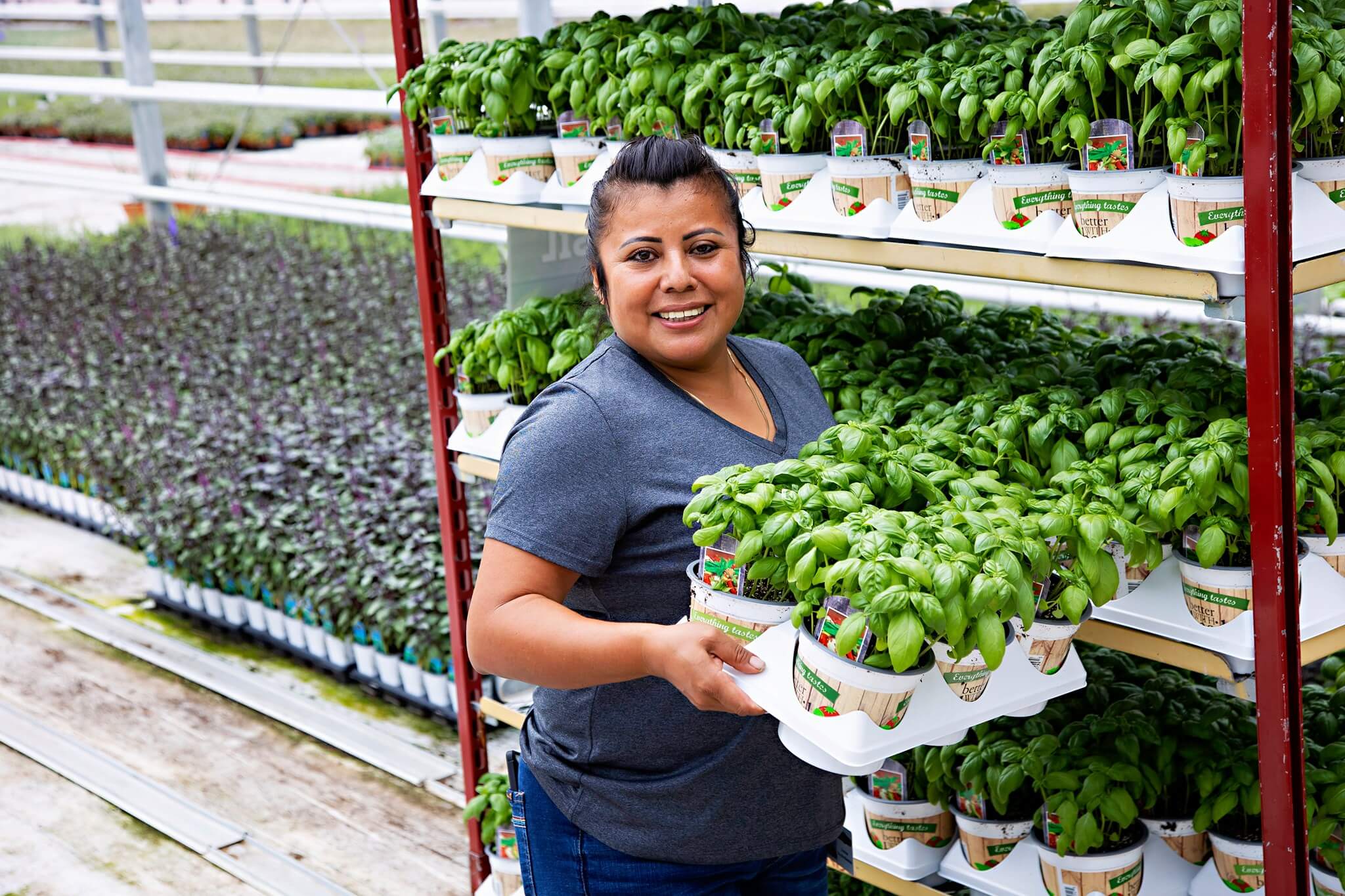
“I’ve been coming to Canada from Mexico to work in this herb greenhouse for six years. I like to work with the plants and the employment is very good. The company treats its employees very well. There is a lot of satisfaction from seeing the plants grow.
I have a son and a daughter, age 22 and 25. When I first started coming, it was very hard to leave them even though there was good employment here. My sister helped to look after them. I talk to them every day through What’s App which is good.
When I’m not working, I like to go for walks or watch movies.
I like Canada very much. If I could, I would move here.
”
-Cristina, herb greenhouse employee and Seasonal Agricultural Worker from Mexico
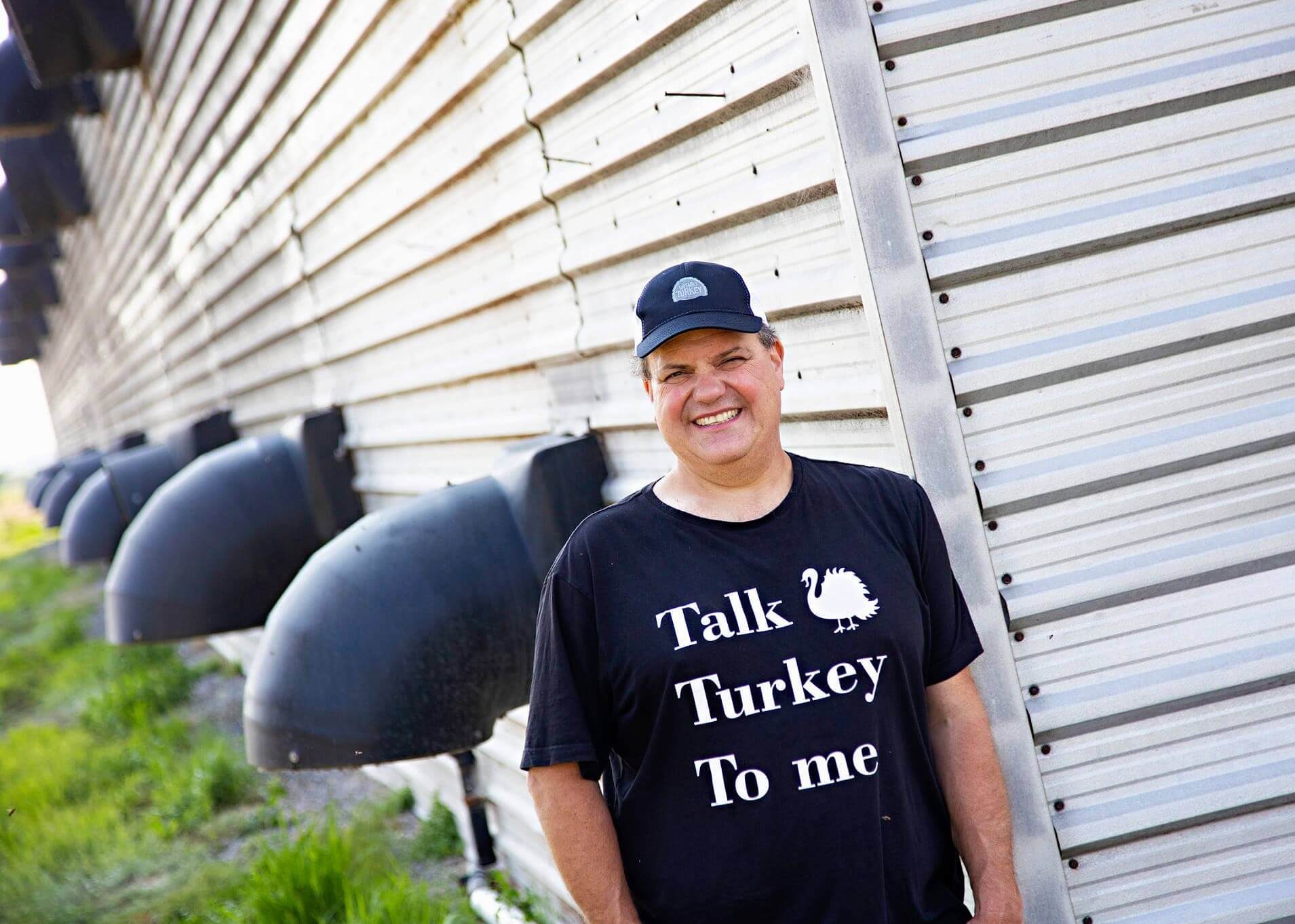
“My grandfather started this farm so I’m the third generation of our family to work on it. We raise turkeys to be sold to grocery stores and butcher shops across the GTA and Niagara Region. We sell into about 75 outlets at different times of the year.
I actually don’t live on the farm anymore – I live in Toronto with my wife and three children. My role in the business is focused more on selling our products and I really enjoy the conversations that I have with our customers about turkeys. It’s always interesting to answer their questions like how long it takes to raise a turkey (they reach market weight between 11 and 17 weeks); whether they are free to roam in a barn (yes), whether we use growth hormones (no – that’s illegal in Canada) and other typical questions.
I really want people to know that Canadian turkey is the best turkey in the world. We’ve got such high standards for cleanliness and food safety. I’m proud of that.
My favourite way to eat turkey is in soup. I love turkey soup..”
-Murray – turkey farmer
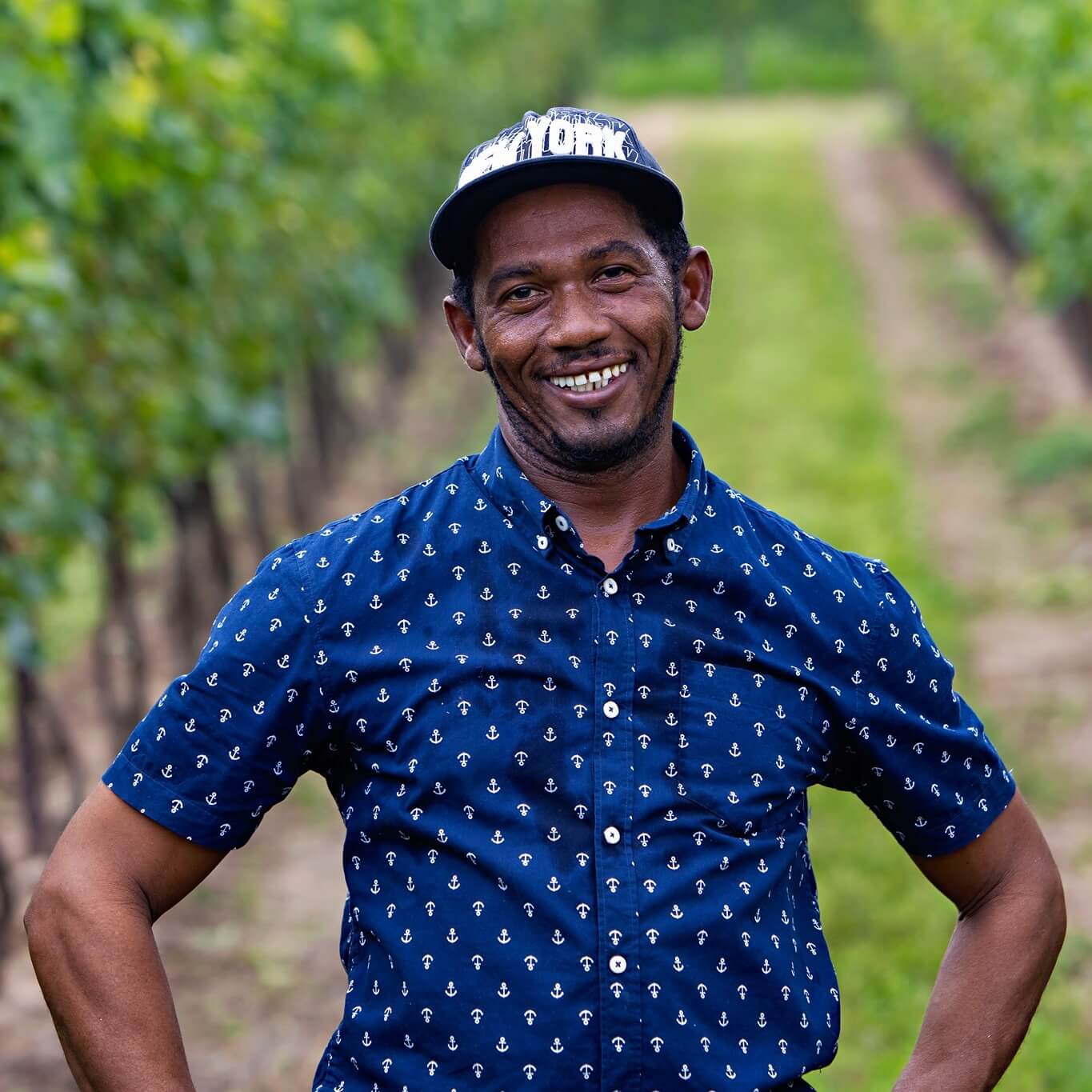
“I’ve been coming to Canada for 17 years from Jamaica. I used to work on an apple farm and then a greenhouse. I’ve been on this farm for 12 years. I like the grapes.
My family back home are farmers. I live near to the Blue Mountains. We grow coffee. I grew up in farming. Some Canadian coffees are nice but we have the real stuff. I had some people back in Jamaica tell me about the seasonal agricultural worker program and they asked if I wanted to try it. I said yes. I do farming back home and I heard that it was farming here and I wanted to try it.
What’s different about Canada? We have no snow in Jamaica! When I first saw snow, I wondered what was going on because I’d never seen this before. I’d just seen snow on television and stuff like that. But I came to experience it so it was good.
Each year I come in February and go home in September or October. Back home, I still farm – growing sweet potatoes, yams, cocoas, pumpkins and stuff like that. I also drive a taxi. I like to keep working and keep going.
I have a common law wife and three kids. My daughter is 22 and my sons are 17 and 10. I talk to them every minute and every second that I can. Pay checks here help my family. It made me have a house. It made me have my car. It does everything for me so I respect my job..”
-Aubrey, fruit orchard employee and Seasonal Agricultural Worker from Jamaica
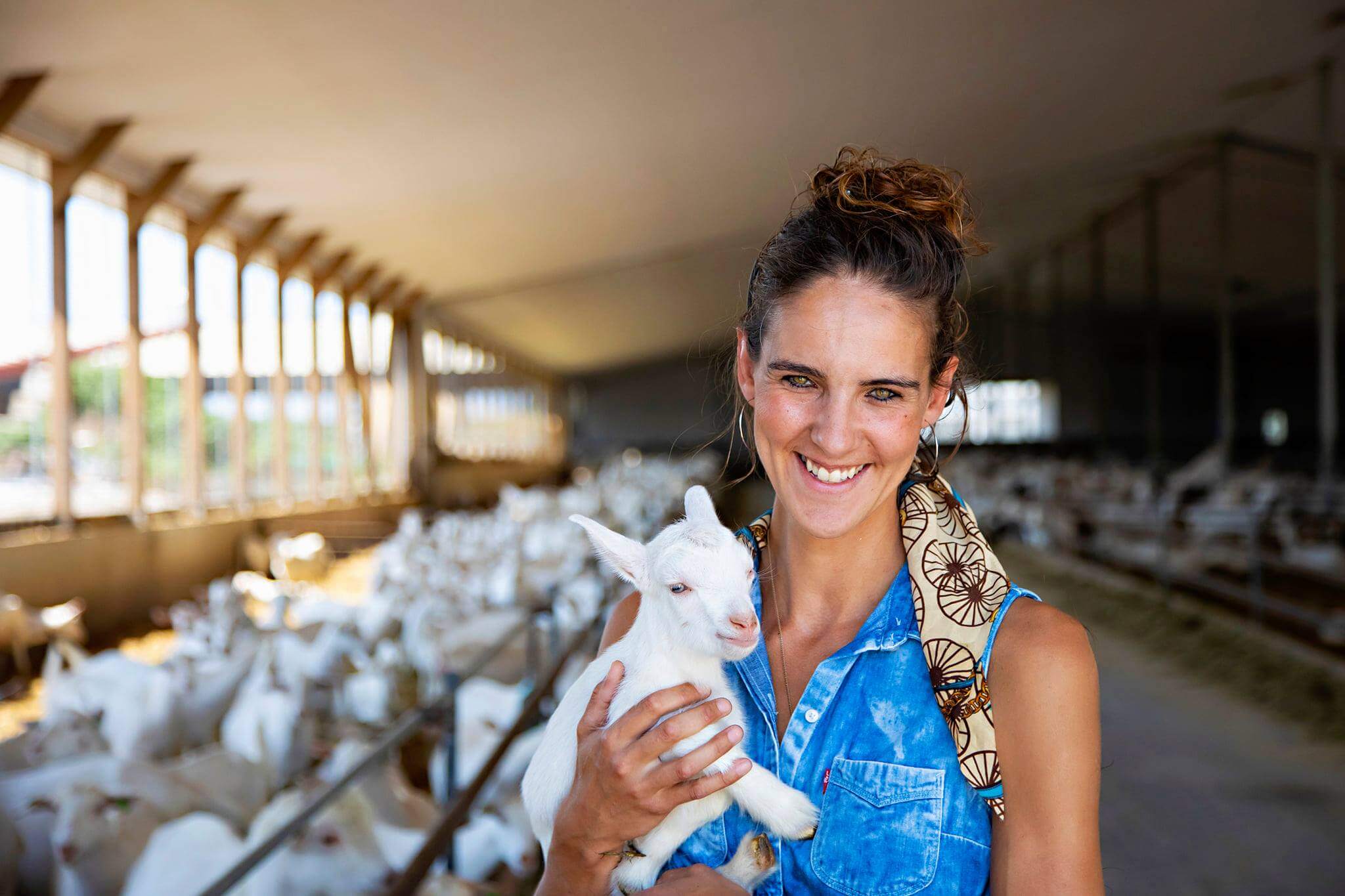
“I was 16 years old when I immigrated to Canada with my parents and brothers. We raised dairy cows and pigs in Holland and started with a chicken farm when we got here. My husband also immigrated with his family and we met here.
We bought our first herd of 100 goats in 2007. We had no clue what we were looking for in terms of genetics and when I look back on photos of those animals, I wonder why we bought them! We started milking in 2008, have increased our herd annually ever since and we’ve learned so much! Our milk is used to make goat cheese and other products.
On our farm, having good data is really important. It helps us constantly improve. We designed an app to help track goat and kid health. Our employees all have tablets so that they can import information such as how much a kid drinks and whether medications have been used. In 2019, we were named Outstanding Young Farmers for the year in Ontario. That was a real honour for us.
I love working with the goats. They’re such interesting animals. My favourite time of the year is kidding season – with all of the new births. Each birth represents a new life which is the future for our farm. I always have my camera with me, capturing photos of the animals.
We have four children – Julian, Joanna, Janine and Jessica, aged 10 to 5 who all help in the barn with the animals. For fun, I have a huge vegetable garden and I love canning all of the products we grow. I think I’m addicted to it.”
-Jony, Dairy goat farmer
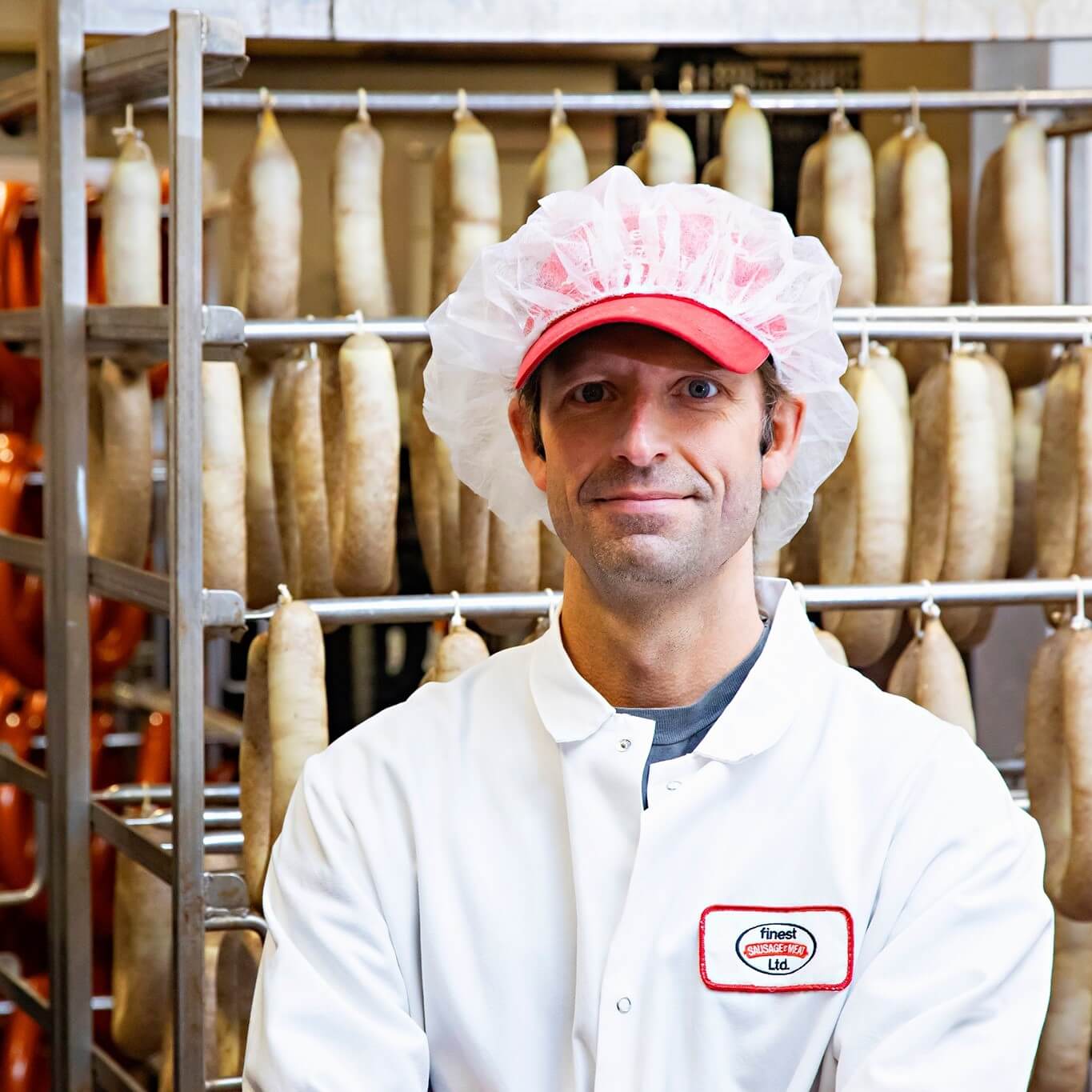
“I started working here as a part time job. I attended university in Germany, Quebec and Ontario. Languages really interested me so I studied French and German just for my own interest. My inlaws are German and I remember going to a dinner party where everyone spoke German – even though they could speak English. I saw there hearing my name from time to time with no one actually talking to me. It only took an hour before I decided I should learn to speak German! I also learned French because I thought my children should learn French and me understanding it would be useful.
I spent some time living in Europe before settling back home. I didn’t have any background in the meat industry but my father-in-law is a master butcher sand master sausage maker so my wife’s background in meat production is deep.
Education, in this industry, is very hands-on and apprenticeship-driven. I learned to do what I did beside people who had been doing it for years.
It’s always interesting to watch the market change. Products that sold really well for years will start to fall off and new ones will replace them. My favourite products that we process and sell are our bacon, salami and Hungarian sausage. I really like what I do. I love the Research & Development side of things, creating new products for our customers.
COVID was challenging for us – like everyone else. But our staff were on board with our new safety protocols and we were able to keep everyone safe and working.”
-Shannon, Butcher
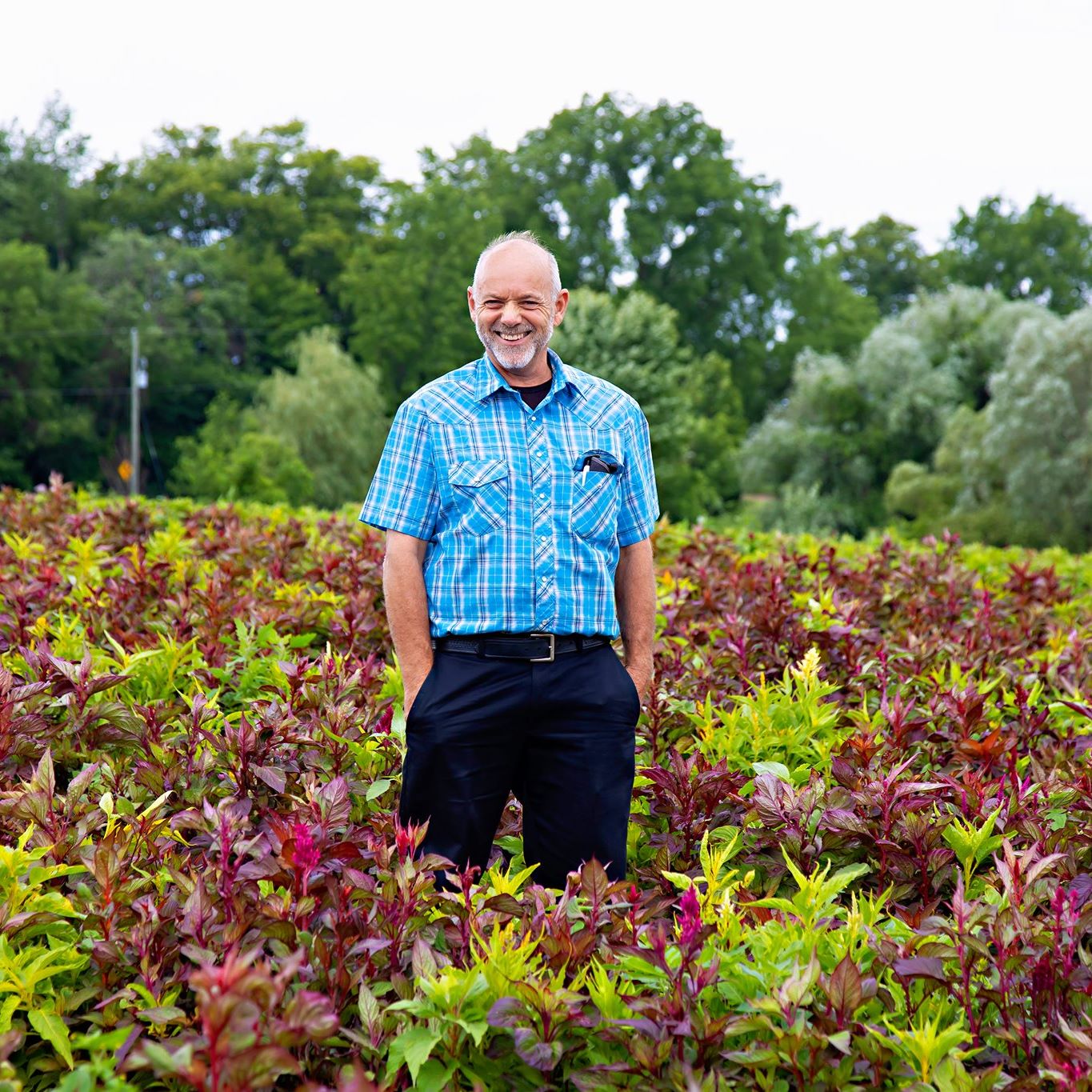
“As teenagers, both of my parents and their families immigrated to Canada from Holland after the war. I grew up helping in my dad’s greenhouse. 36 years ago, my wife Elaine and I decided to go out on our own, starting a cut flower farm. We had met when we were young – we went to school and church together. It was very humble beginnings and we had a rough start because we didn’t know what we were doing!
In our early years, we marketed everything at the food terminal and it was only later that we started selling into grocery stores and other places too. We now grow about 400 acres of about 12 different varieties of flowers from Celosia to strawflowers to sunflowers. We also grow planter boxes for spring gardeners and fall décor as well. Everything is handpicked and assembled into bouquets before being shipped across Canada and as far away as Florida. Sometimes our bouquets are travelling on trucks for two days so we’ve got to pick them and ship them as quickly as possible.
Today, my son Mike is running the business. I’m still going to the Ontario Food Terminal in Toronto twice a week to sell our products and love it when my grandchildren come along to keep me company on those trips”
-Ed, Flower farmer
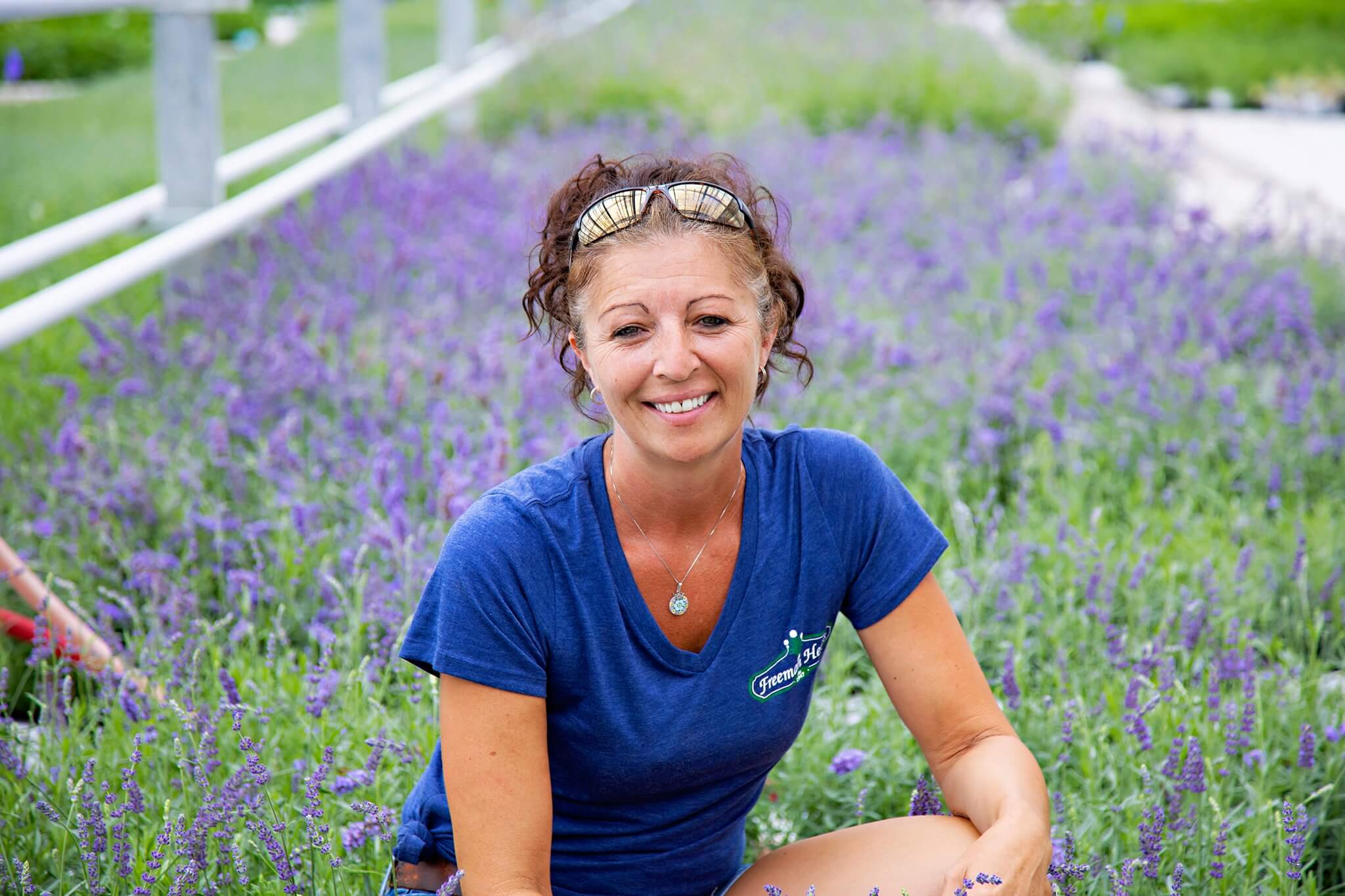
“I’ve worked for this herb greenhouse for three years. I used to work in a floral greenhouse, and then tried the hospitality industry but I keep coming back to greenhouses. When I was young, I worked picking tomatoes for my mom at five cents per bushel. I also had a summer job on a tobacco farm.
It’s a labour intensive job for sure. It took me about three weeks of sore feet before I was used to it. And I’ve learned to dress in layers because the temperature varies so much in the greenhouses from day to day.
When I started, I was oblivious to what a basil plant was, let alone the fact that there are so many different varieties. I like it when friends or family members tell me that they’ve seen our fresh herbs for sale at their grocery store. It’s nice when they say that. Now I love to garden and have six raised beds of herbs and vegetables at home. My favourite herb is a Wild Magic Basil plant. It’s got a sweet, black licorice taste.
I’m a supervisor here. My job entails anything that is being planted or harvested. I really enjoy working with our team of seasonal workers. They’re great people and so hard working.
When I’m not at work, I love to spend time with my family including our son and new three month old grandson. He’s gorgeous!”
-Tamara, herb greenhouse employee
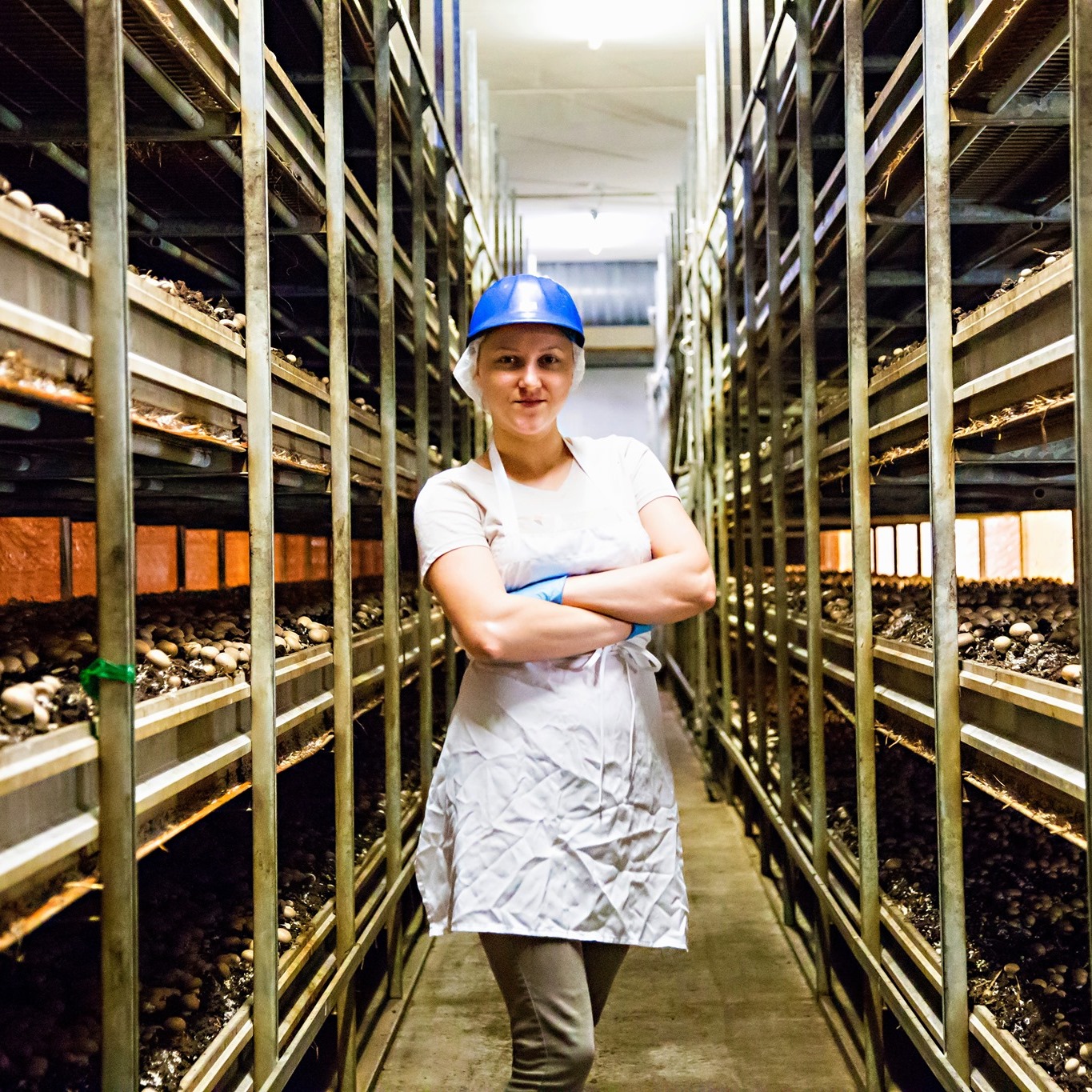
“I came to Canada from the Ukraine 16 months ago to work as a mushroom harvester on this farm. I didn’t speak any English but now do a bit. (Editor’s note – she speaks it very well!)
Back home, I worked in Poland in a car factory and in Finland harvesting strawberries, blueberries and mushrooms. When I was in Finland, my friend Nicholaz told me about the program and about a contract available in Canada and asked if I wanted to try it or not. I thought about it for six months and then applied.
I like living here but miss my mom and brother back home. We talk on the phone but there is seven hours difference between there and here. The weather here is the same as the Ukraine and everybody is so friendly. I have made good friends.
I am starting to see some of Canada and I like it. I have been to Niagara Falls twice and to Toronto..”
-Olha, Mushroom Harvester with the Temporary Foreign Worker Program .
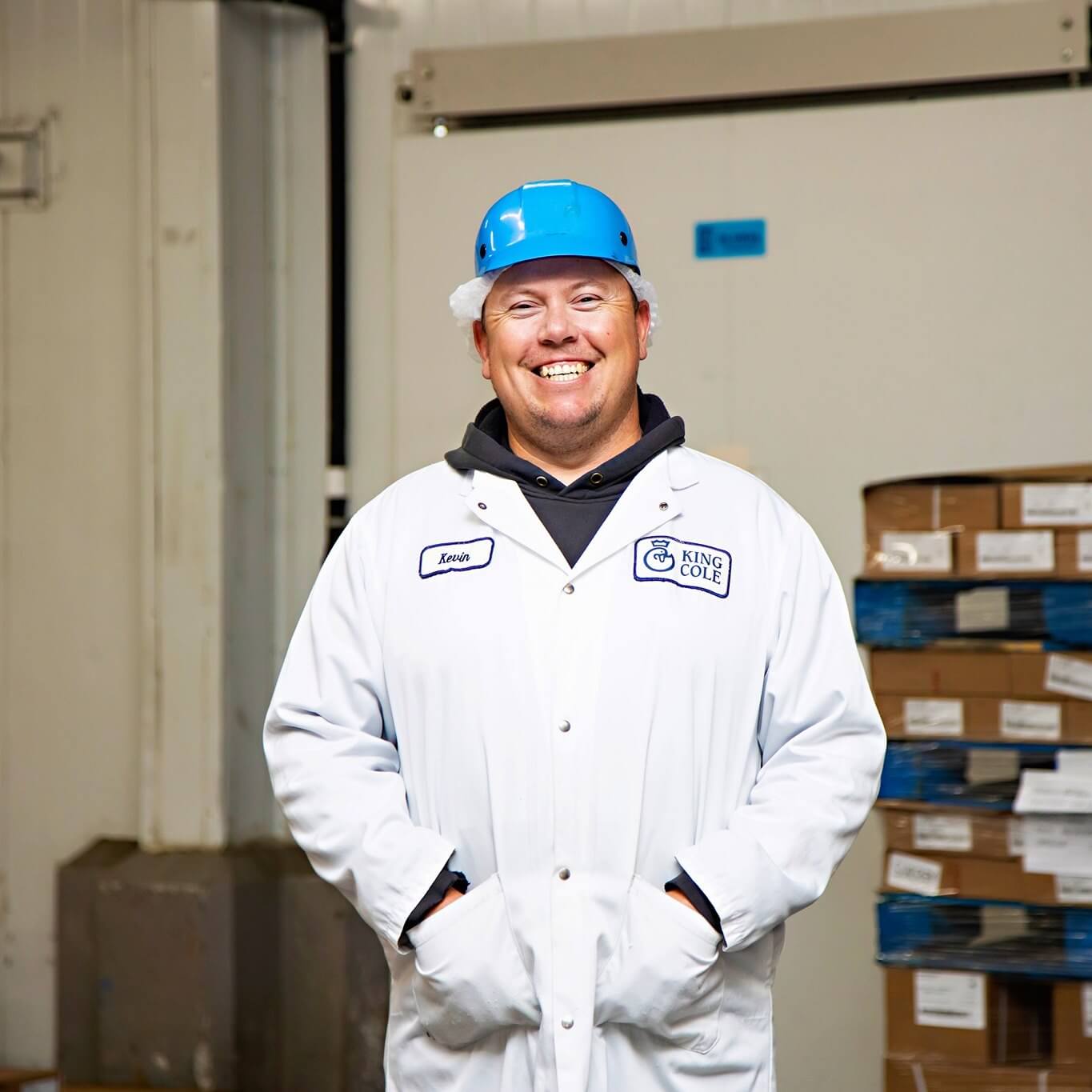
“I’m a shipping manager at this duck processing plant. Each day, we handle orders of both fresh and frozen orders going out around the world – from Toronto to Tahiti, Los Angeles, Chicago and across Asia. I’ve always been tempted to follow the product to Tahiti to make sure it gets there OK!
I was born in Glasgow, Scotland and emigrated here with my family when I was little. I have a lot of relatives still over there and have been back many times. In my free time, I love spending time fishing at our family cottage on the French River. I also play soccer in a men’s league. Our first baby is due in December so that may limit my fishing and soccer time for a while!”
-Kevin, shipping manager, King Cole Ducks
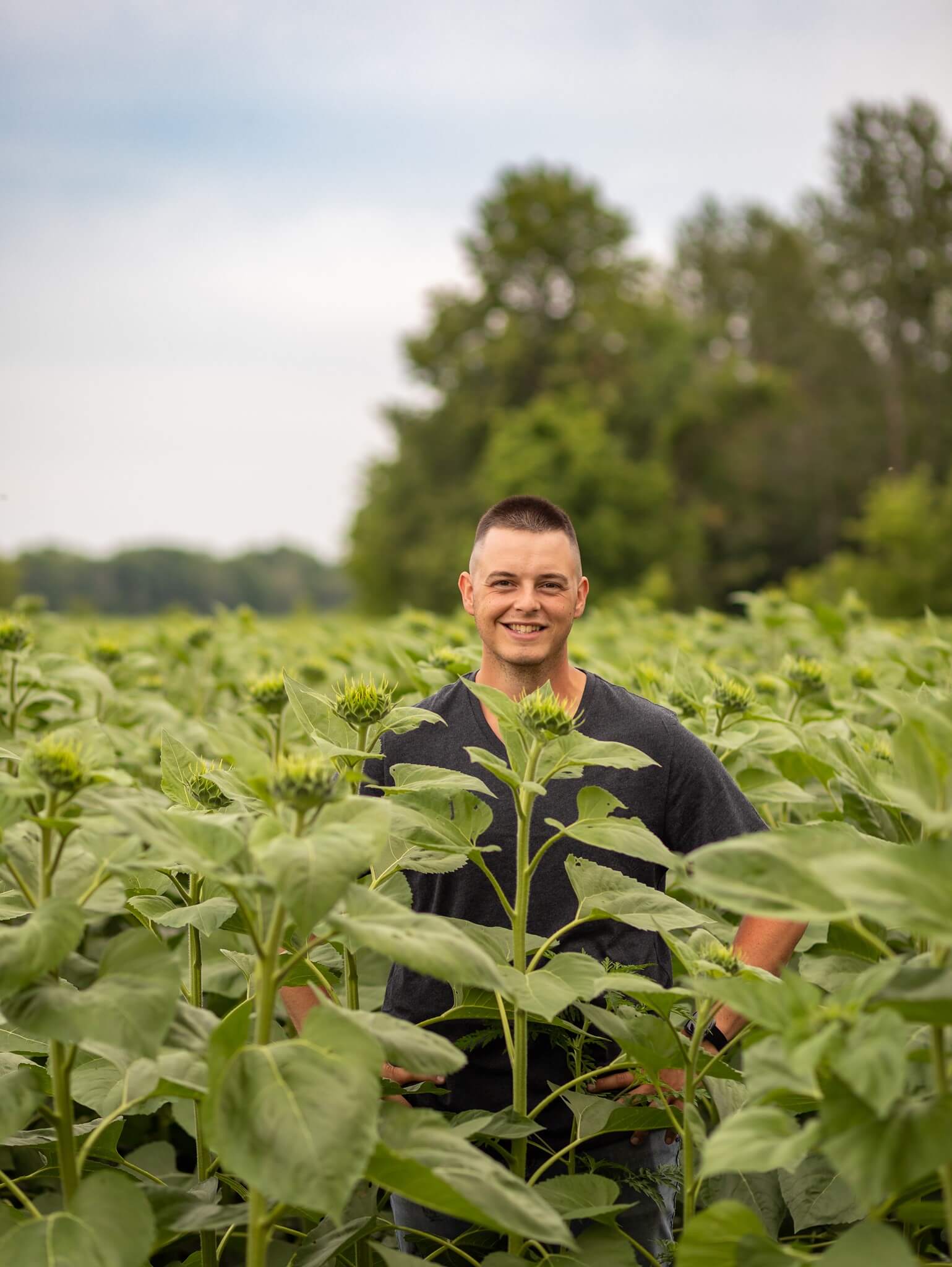
“The two biggest pieces of advice I have for those looking to buy a farm or property is to respect your parents’ advice but challenge the status quo.
My farm journey began when I started on the home dairy farm where I would help with pushing in feed and feeding calves with my grandparents. Then working during the summer with the Traveling Farmer, a local farmer who has designed a professional exhibit and visits local fairs, answering questions about our industry. I remember answering so many questions over the summer months. From there I went on to attend the University of Dalhousie with a focus in research. Now I work with an animal nutrition company. My favourite thing about my career is being able to help solve problems for farmers, like why a cow, for example, might not be producing enough milk. Three years ago, my wife, Steph, and I bought our families farm. We knew that when we bought the property, we wanted to launch a project that brought something new and unique to Eastern Ontario!
We planted 20 acres of sunflowers with a goal of hosting up to up to 1,000 people this summer. We can’t wait to see where this adventure leads us and are excited to meet the people that will come through our farm gate. We have big dreams for this business but for now we know that good things take time and patience.”
-Jakob Vogel, Animal nutritionist and part owner of Fields of Gold
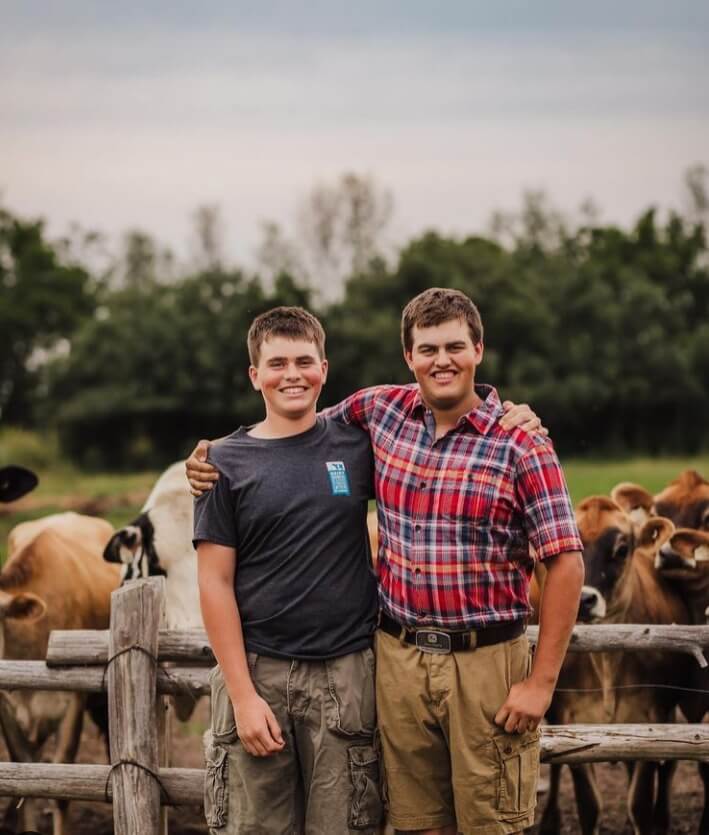
“Bobby; My favourite time here on the farm is probably spring or fall. There is nothing like planting time and then seeing the final crop harvested in the fall. I’m still in high school right now but one day I hope to also go off farm and get my welding license.
I want Canadians to know that farming is much more than a “horse and plow''. There is so much great technology out there that has helped make advancements.
Off the farm, I enjoy community sports including hockey and of course fixing motors. Our current project is to build a lawn mower that can go up to 100km/hr!
Dougie : My advice for any high schooler is to look for a career that will always be in demand and never be afraid to step out of your comfort zone! This year I am excited to be attending college to become a licenced mechanic.
My future goal is to come back home to the farm and maybe open up my own shop here. As a kid, I remember always fixing things, the first thing I ever worked on was my wooden train set and my parents always joke about how excited I was to fix it. From there I went on to compete in Lego Robotics competitions with a local group and working on equipment here on the farm.
This year I am also a 4-H ambassador, I have always been active in 4-H which is a program for youth, predominantly from rural communities. I wanted to help tell others about agriculture opportunities. I love meeting others that share the same passion.
I would say the best part of growing up on a farm is that you have the freedom to explore, make mistakes and enjoy the land.
”
-Bobby & Dougie, Dairy Farming brothers
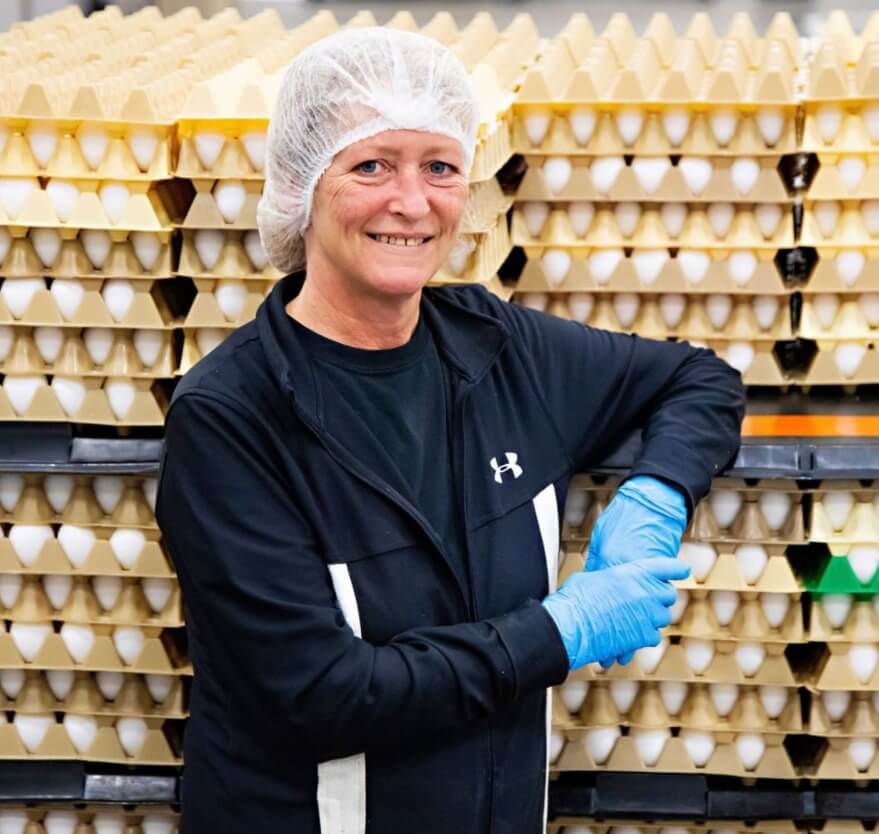
“I’ve worked in this egg processing company for three years. I operate the shrink wrap machine or help to pack the eggs. I like my coworkers a lot and I like the job.
My friends often ask me questions about eggs and about my work here. The question I get often is are the eggs fresh. They really are. This is also a scent free facility because eggs absorb scents so we’ve got to be very careful to prevent that from happening.
I’m known at work as the girl that makes Scotch eggs – and I’m often asked to make batches for my coworkers. Dipped in mustard, they’re the best!
When I’m not at work, I love camping and floating on a tube on the river. That’s such a relaxing thing to do..”
-Charlene, Machine Operator, Egg Processing company
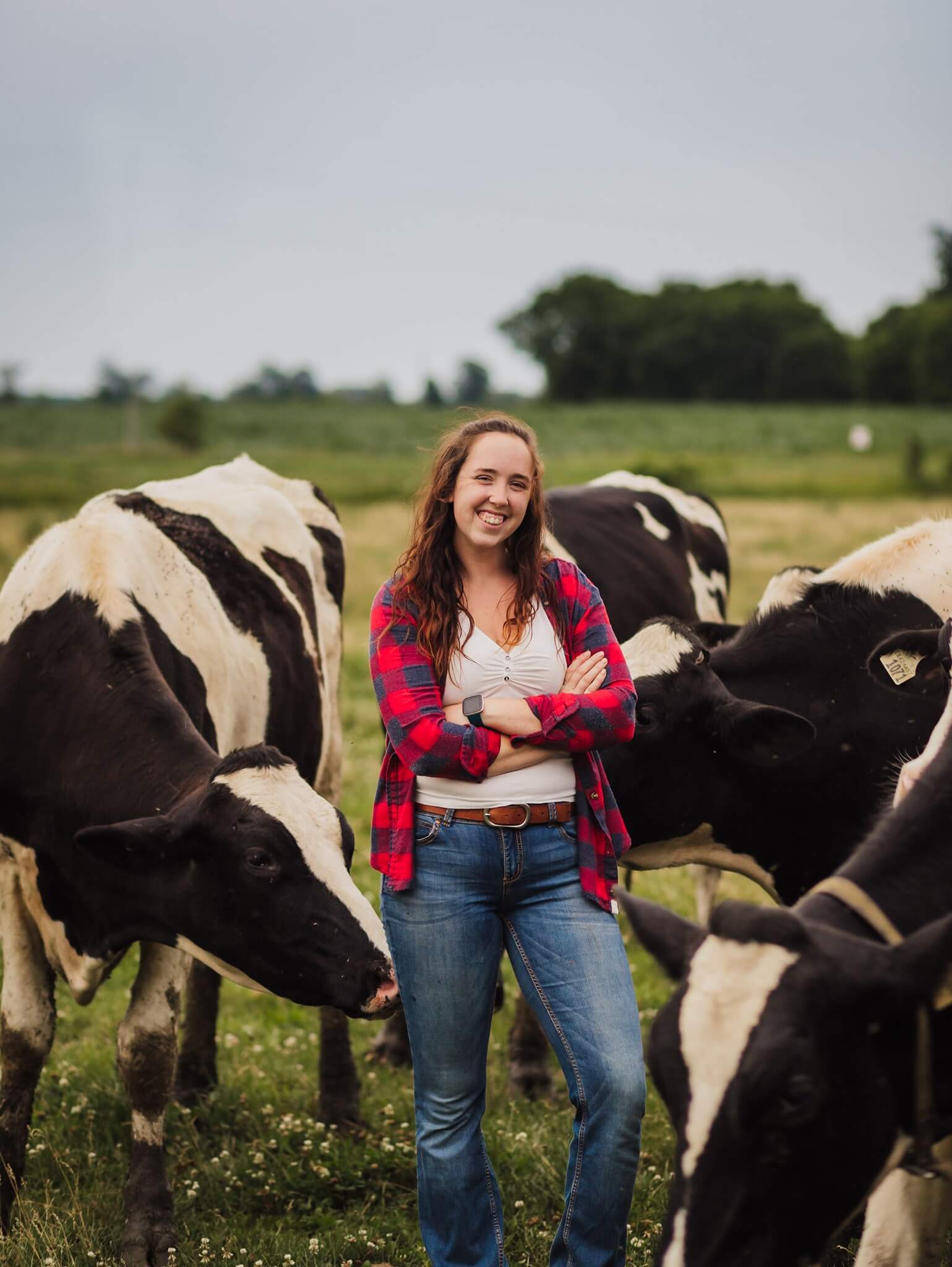
“I want people to know that farmers aren’t all men and that women play an important role as well. I am constantly explaining that yes, I do indeed plan to take over my farm.
I took a year off after high school. From there, I went to McGill College in Montreal where I met some of my lifelong friends who shared the same passion for agriculture as I did. I really enjoyed the hands-on learning aspect and graduated in 2020 with a diploma in Farm Management and Technology.
I now work on the farm full time and hope to continue improving and growing our farm. My earliest memory on the farm was after chores were done my grandpa and dad would join us for snacks and play with all the kittens.
I would say the best part of farming is the feeling when hard work pays off, there's nothing like washing all the cows in the barn and looking back at how healthy and content they are. My goal is to continue to show Canadians that their food is safe and we work hard to produce it!.”
-Cassidy, Dairy Farmer
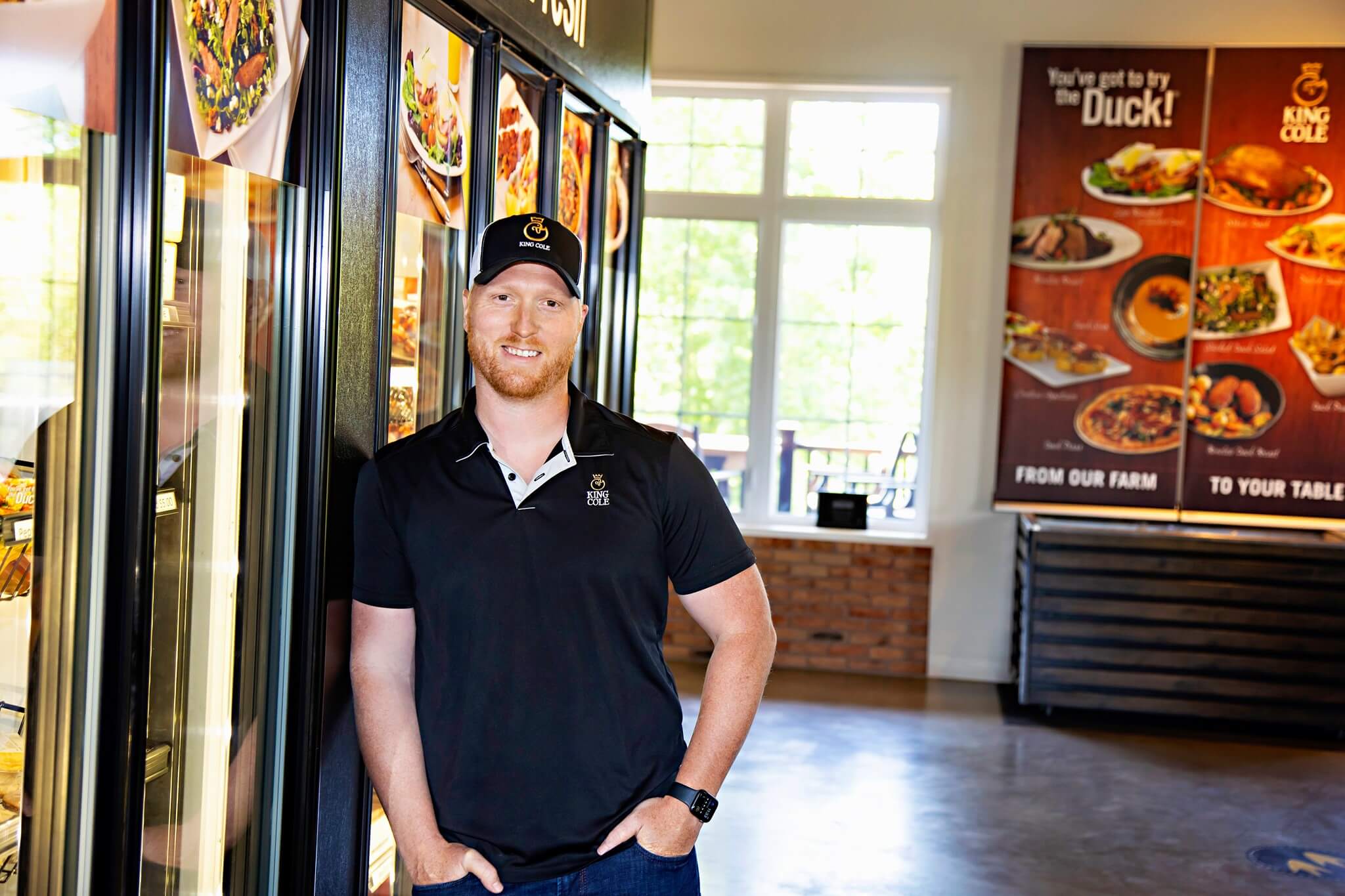
“I’m the oldest of the fourth generation working at this duck company that was started by my great grandfather in 1951. He used to sell poultry at a local farmers’ market. The other vendors typically sold chickens and geese but no one had ventured into ducks so he began to build his business to meet that market’s demand.
From the age of seven, I was helping in the barns. I think we were all raised into this lifestyle. It’s simply in our blood.
In college, I studied business and trained as a chef. I chose this education route because I wanted to be able to “talk shop” with chefs in restaurants we were selling to. Given my background on the farm combined with my education, I am able to talk about the entire process, from egg to plate and everything in between.
I am now in charge of sales for western Canada. Pre-COVID, I spent a lot of time meeting with customers in Alberta and British Columbia. Duck is a niche product in North America. Selling it – and promoting the product - requires a face to face conversation. I always say that we’re convincing consumers one mouth at a time. But once people try it, they love it. We have a strong market with new Canadians of Asian heritage. They grew up eating duck and like to be able to buy it here.
The fifth generation of our family is now on the way. My cousin, who also works here, just had his first baby and my wife and I are expecting our first in a few months. The flock is growing quickly.
-Chris, Western Sales & Business Development, King Cole Ducks King Cole Ducks
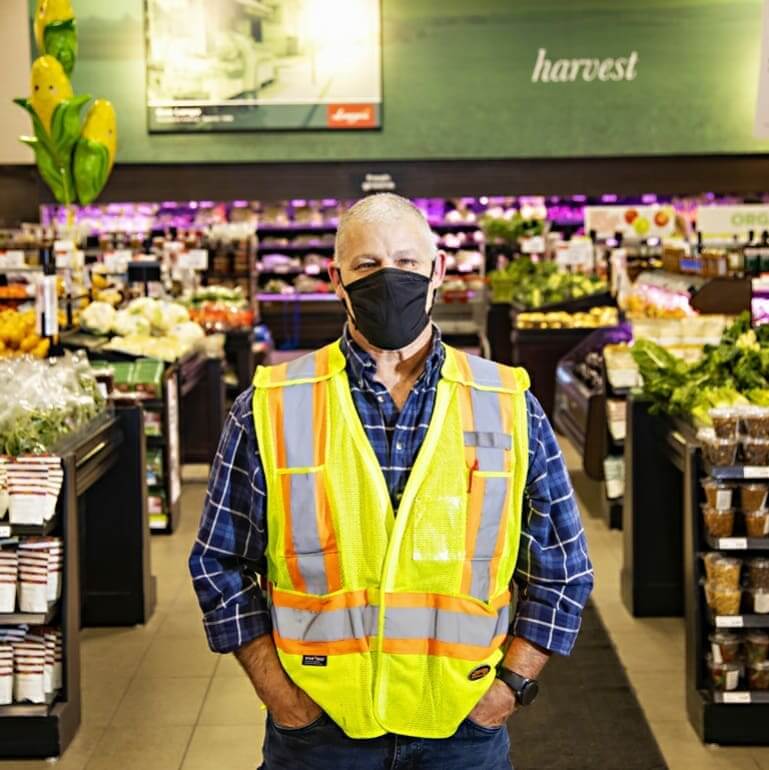
“I used to shop here and I saw how fresh all of their products were so when I saw that they were hiring, I applied. I’d worked in warehouse logistics for most of my career and while this is different, working with food, the concepts are the same.
I work in a central distribution facility. Our team is loading and sending trucks all day every day to deliver products to Longo’s stores. In the morning, we’re sending out trucks filled with fresh produce and in the afternoon with other products like sugar, spices and non-perishables. Teams work around the clock to fill orders from Longo’s stores. I love working with people and getting to know them. That’s why I always wanted to be a supervisor. We’re always working together to deal with any situation or address any problem as it comes up.
When COVID hit, we adjusted to the new safety protocols really quickly because we knew how important it was for us to stay safe as essential workers – and also to keep product moving. People were panic shopping so we were going through large volumes of key items like water, toilet paper and more.
If I’m taking home dinner on a Friday night, I’m going to pick up some good steaks or salmon. When I’m not working or spending time with my family, I golf as much as I possibly can!"
-Denis, Senior Supervisor, Logistics, Grocery Distribution Centre
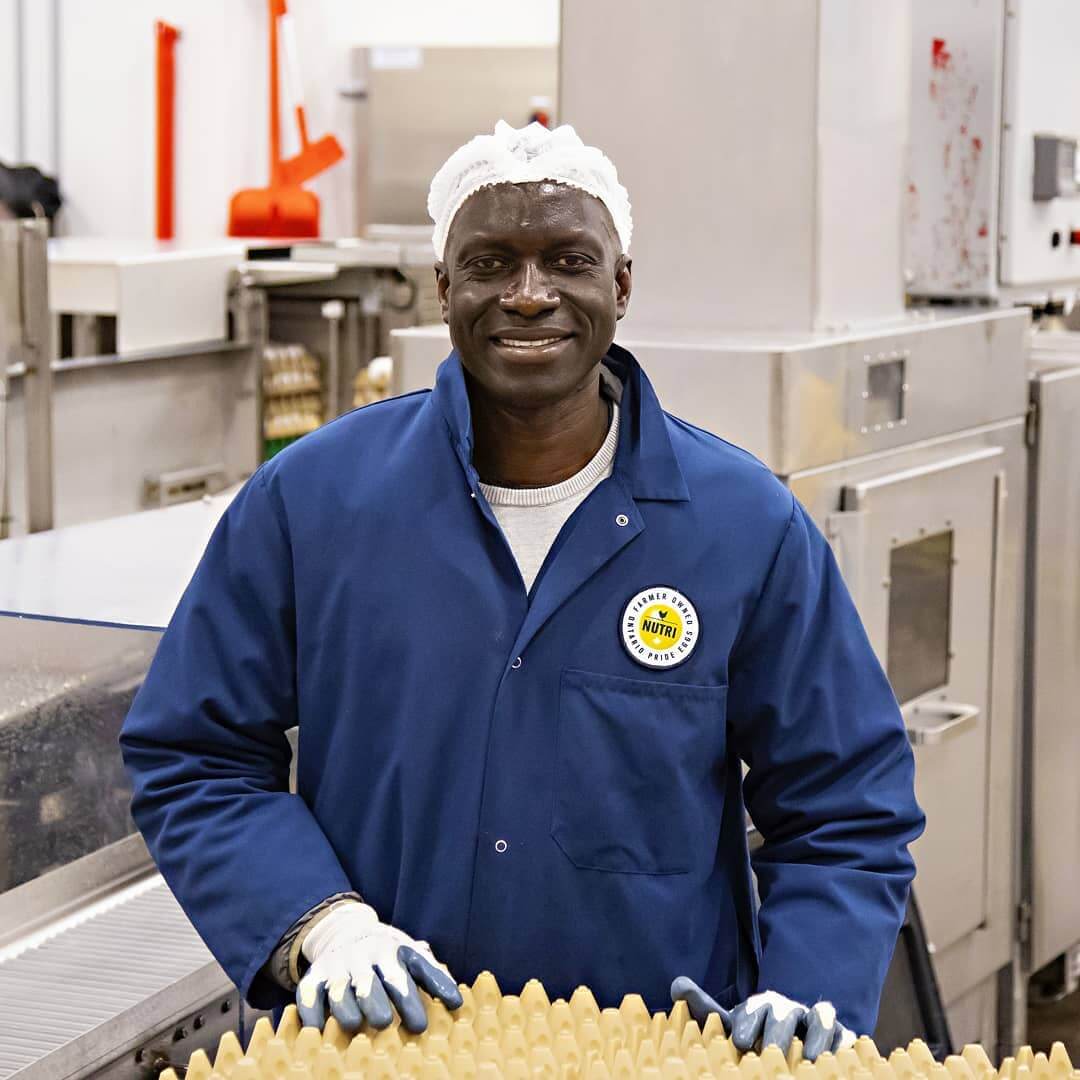
“The Gambia, where I come from, is called the “smiling coast of Africa”. It’s a really nice place and I do miss it. I was working as a hotel manager in The Gambia when I met my wife. She’s Canadian and came there on a yoga retreat.
My whole career has been in hospitality, with a goal of always making my hotel guests happy. That’s what I did my whole life. So moving here permanently last year and finding work at this egg processing facility was a big change. But life is full of transition every day. That’s what makes you strong. Whatever I do, I have to do well. I like the diversity of this company. My coworkers are from many different backgrounds and are extremely hardworking. I really like meeting new people - it’s very important to me.
My wife works for the United Nations so was based in other countries before moving home to Canada. Our sons, aged 13 and 10, attended an international school in The Gambia but are now also starting a new life here and are doing great..”
-Mutarr Bah, egg processing company
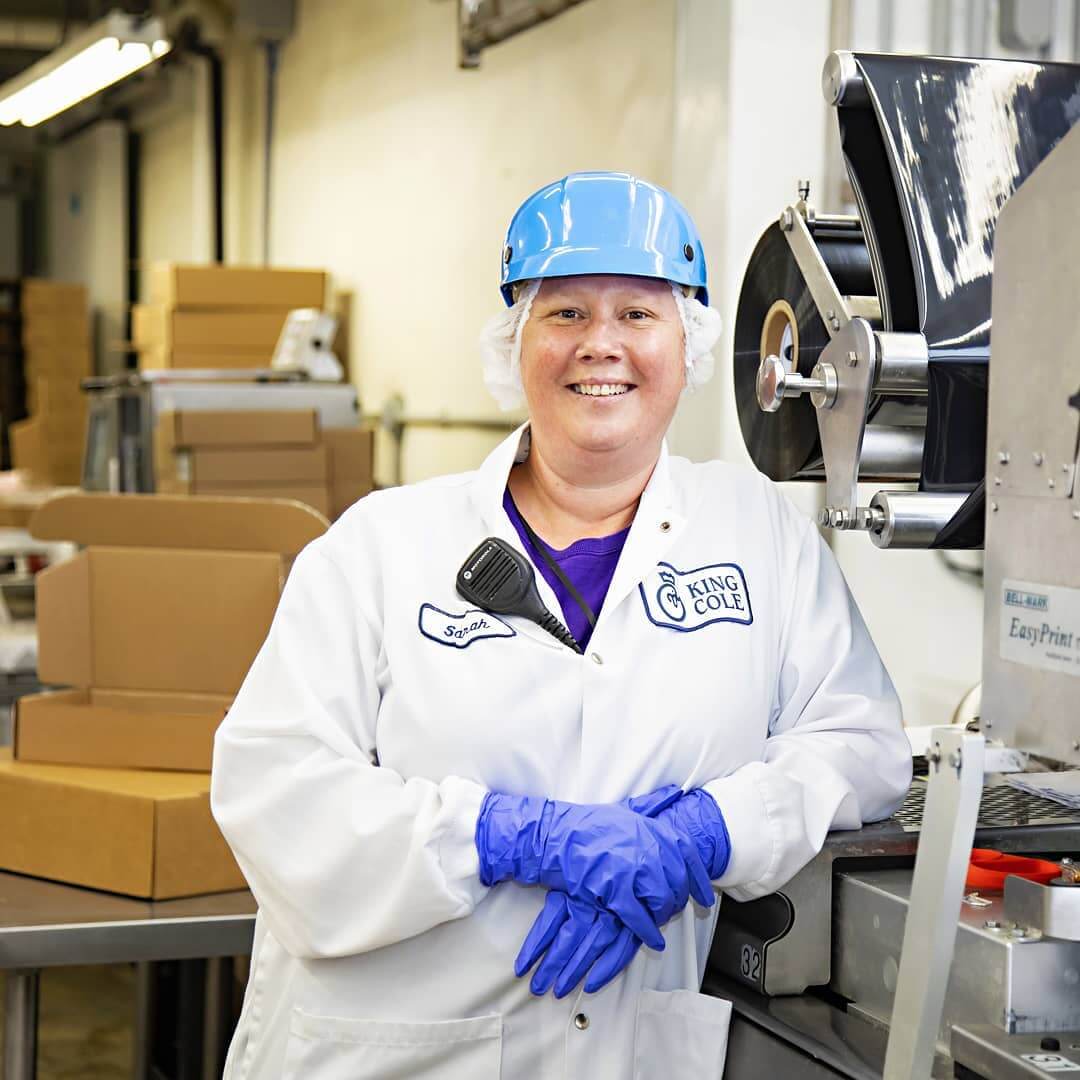
“I started here, working in this duck processing company, as a line worker when I was 22. My dad also used to work here as a plant manager. At the time, no other jobs were really grabbing me and after only a few days, I remember thinking, “I think this can be something.” I was really nervous on my first day of work but the job intrigued me. I remember thinking, “So this is where our food comes from. Now it all makes sense.” It’s amazing the work that goes into producing one product.
I’m now a Food Safety Coordinator, and have been in this role since 1999. I’m here to make sure your food is safe and clean. I’m really proud of the protocols we have to ensure food safety - from hand washing to the cleanliness of the equipment. Every night, there’s a sanitation crew working for eight hours to ensure the plant is ready for the next day’s production.
When COVID hit, we all moved fast to ensure that staff were kept safe and the company kept running. Overnight, there were new protocols for PPE and temperature checks. We rotated shifts, divided crews up and quickly implemented the new systems. We didn’t miss a day of work and I feel blessed for that.
I was raised in a small family, living in a small town so I like working for this family business. In my free time, I like anything nature based like hiking, walking and kayaking. I bought a new kayak recently and I love it.
When I was little, I wanted to be a vet when I grew up. Now I want to be a race car driver although I’ve never been in one! I love cars and I drive fast.
-Sarah, Food Safety Coordinator, King Cole Ducks
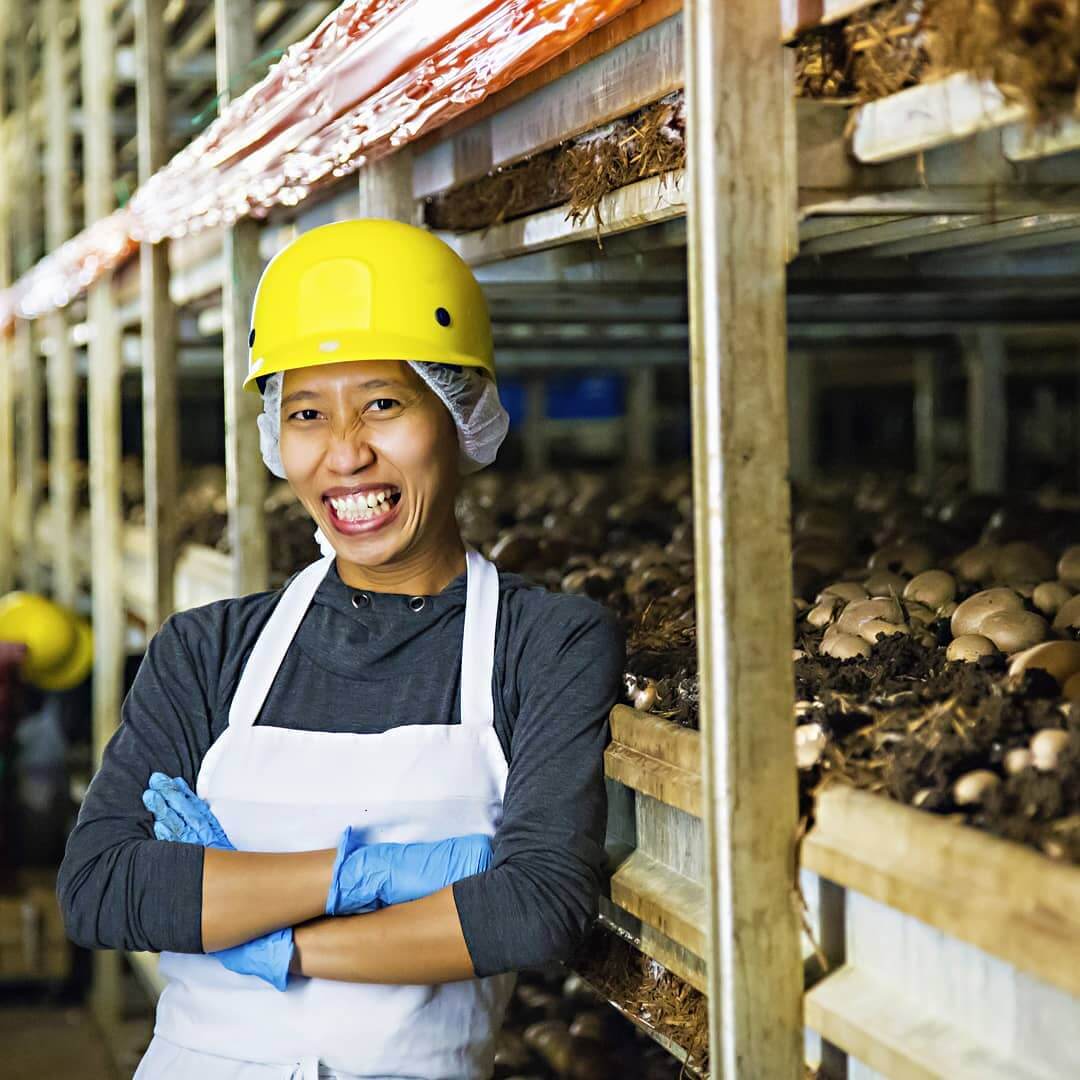
“I came to Canada eight years ago and the best part about Canada is that I met my husband! He also works at this mushroom farm. We were married in 2018 and now have a baby girl.
I am a harvester here. It is hard work but it is good work. Each day, we pick the mushrooms in these rooms. You want nice, big, round mushrooms. Depending on how good they grow, I can pick up to 1,000 pounds of them in one day. We start at 5:30 a.m. and work until 5 p.m. When I’m not working, I love playing with my daughter.”
-Sri - Mushroom Harvester with the Temporary Foreign Worker Program
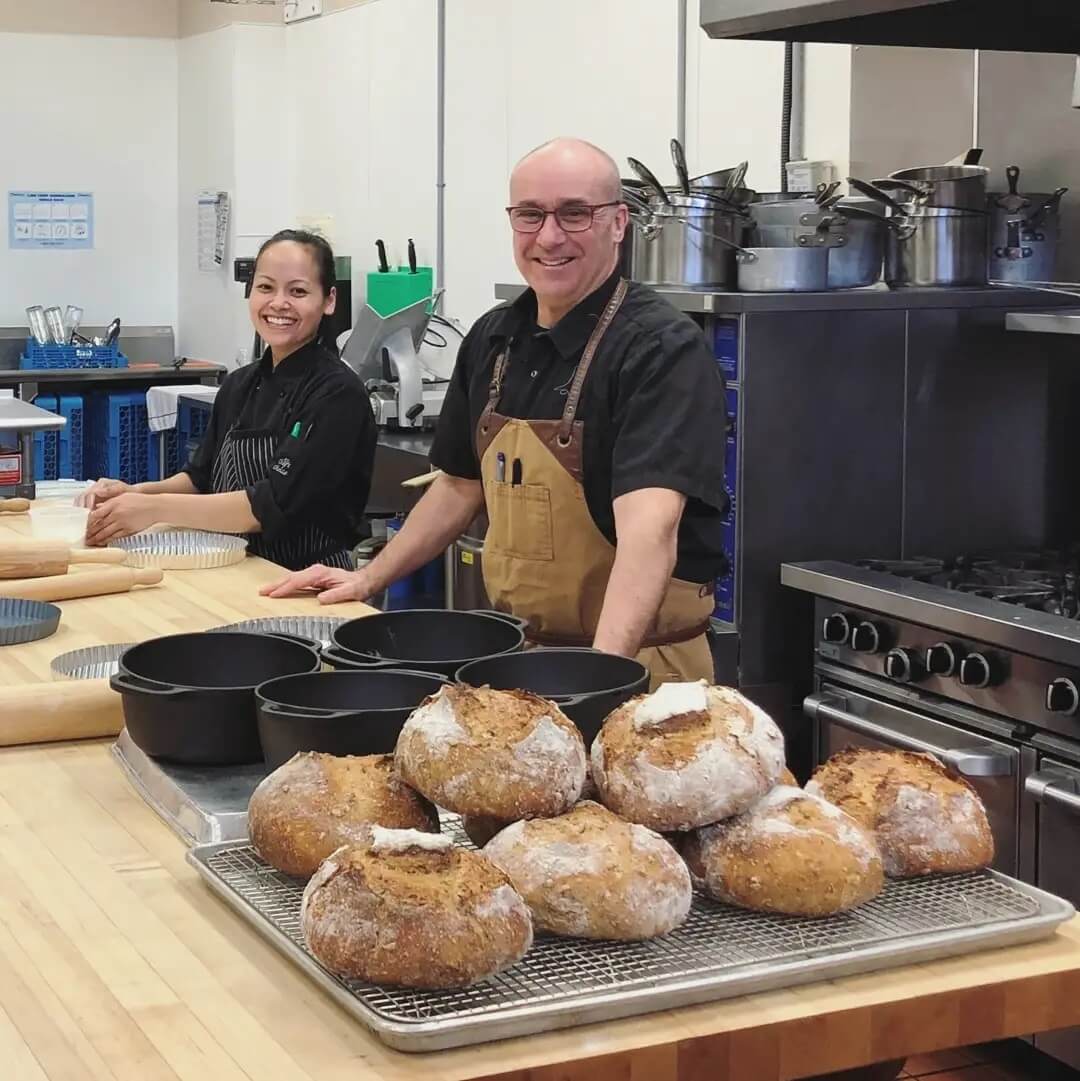
I have cooked all over the world, England, Belgium, France, North Africa, and the Pacific North West. One cool experience was working at the 2010 Olympics, I was in the Vancouver club cooking for the IOC executive. It was a lot of work, but it was mind-blowing, the other chefs I got to work with, the quality of the food all sourced from Canada and on display.
I have owned my own restaurants and taught at other culinary schools. When this job came up, I had never heard of this place and wasn’t familiar with it or nonprofits. I started one day a week teaching a class in the back of Pizza Pizza kitchen and then when we moved in here, it progressed into what it is today.
The program is meant to awaken people to where their food comes from, healthy eating and build their sense of confidence around food. We try to demystify skills such as using a knife, to make cooking seem more attainable. I love that every day when you are cooking is a blank canvas, which is why I have stayed in cooking as long as I have.
-Steve, Program Manager, Chef and Instructor
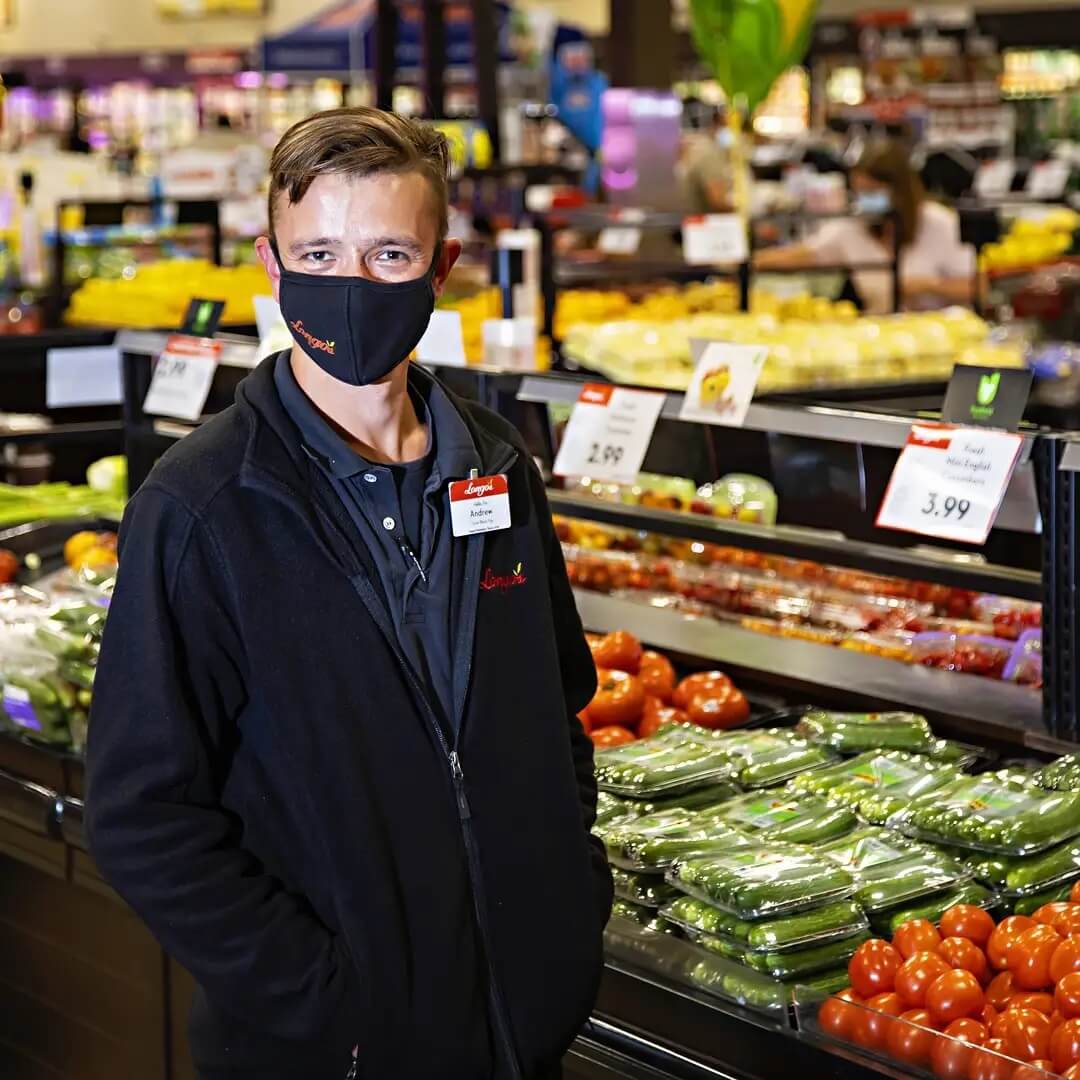
“I started helping my grandpa Leo in his gardens in the Ukraine when I was a kid. We’d spend the whole weekend together, just me and him. He had a little bit of everything – raspberries, black currents, cherries and vegetables. Making jam was a three day process but he’s the reason I love fresh fruits and vegetables.
My family emigrated here when I was 11 years old. My mom was an English teacher so that was a big bonus because we knew how to speak the language. I remember seeing my first Canadian grocery store. The selection was overwhelming and there were fruits like bananas and clementines that were totally out of this world for me.
I started working in the produce department of a grocery store when I was a student and fell in love with it the first week. I especially like the variety and the seasonality of it all. I’m now the produce manager with a team of 16. I love answering questions like ‘When will asparagus be in season?’ or ‘How do I pick the best watermelon?’
I think COVID changed the way that people look at grocery store employees. All of a sudden, we were essential and important. I even had people I haven’t seen since high school contacting me asking for help in finding flour and toilet paper. But there wasn’t any!
For fun, I enjoy getting to know the farmers that are growing food for our stores. I’ve toured farms and really enjoy going to farmer’s markets as well. There’s a growing appreciation for local food and in Ontario, we’ve got such a great variety so close to home.
My grandpa is now 86 years old and still living in the Ukraine. We’re in contact a lot and I think he’s pleased with the career path I followed”
-Andrew, Produce Manager
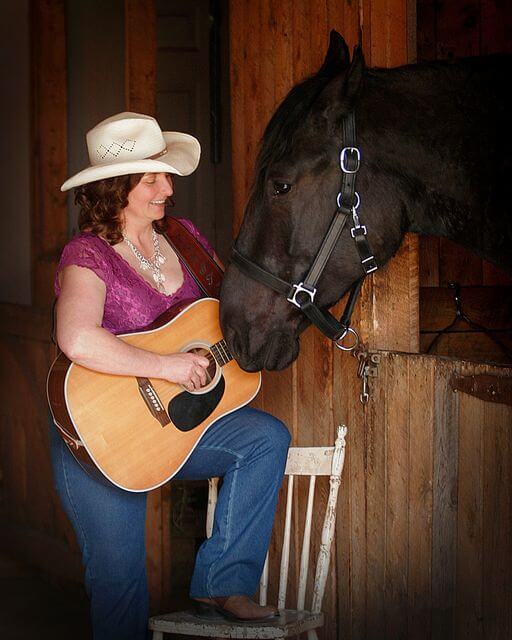
I met my husband, Jerry, in elementary school. When I was in about grade four, he had gotten my name for our school’s Kris Kringle gift exchange and he bought me a necklace. I still have that thing!
After we were married 40 years ago, we bought his parents’ farm in Northern Ontario where we still live and raise beef cows and calves. We also have three children and six grandchildren. I studied to be a registered practical nurse and spent much of my career working in home care and rural palliative care.
Singing, though, has always been my passion. When I was 10 years old, a well-known local singer named Percy Pilatzke needed a rhythm guitar player to accompany him. So, he taught me to play and that was the start of my musical career. We’d perform at local events and family parties and I loved it. Percy was a real mentor to me, even giving me all of the songs he wrote when he retired.
It was 2007 when I took the leap and went to Nashville to record my first album – You’ll be the One. When I walked into the studio and saw one of (Country music legend) Randy Travis’s records on the wall, I felt super intimidated but also proud to be recording in the same place where he had. That’s where I met my producer Lee Bach. I can’t say enough good things about him.
That first album hit #11 in Europe and also charted in North America. I’ve since produced a number of singles that have also done well and have an album waiting to be finished once pandemic restrictions allow me to get back to Nashville. I love performing and get such a thrill from people coming up to me after a show to thank me for my music. I’m the one that’s grateful that they’ve enjoyed it.
My other passion is horses. I used to breed and show registered Percherons and now have a beautiful pair of Belgium draft horses. I still hitch them up to work a small part of our farm with them each year.
I’m grateful for a lot of things in my life. First is the good Lord above. Second is my horses. Third is music and fourth is my husband! He should be good with making the top five, right?!
-Bonita Mercer, Country Music Singer and Beef farmer
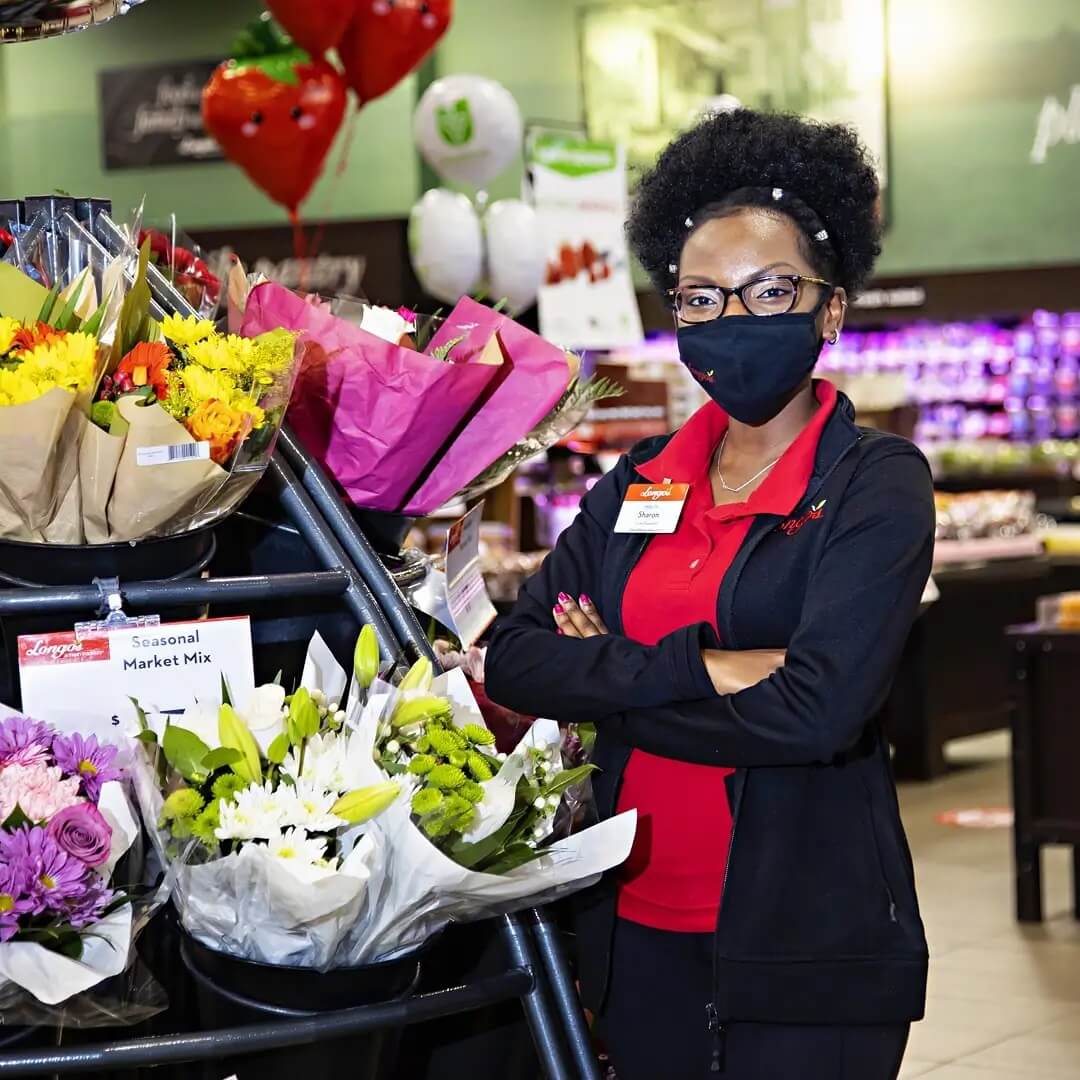
“Our family came to Canada from Kenya – via the United States. We had lived in Ohio for several years and I was 19 when we moved here. It was a tough age to leave my friends and a place that was so comfortable. Longo’s was the first grocery store we ever set foot in when we first arrived in Ontario. Our family was having a tough time that day and the Customer Service Representatives noticed us and overwhelmed us with love and their warm hearts. They were so welcoming and even gave us a $50 grocery voucher to use in the store. I never forgot that. Later, I went back to try and find them and thank them but wasn’t successful. If they see this, I thank them from the bottom of my heart.
It was my mom who saw that the local store was hiring and asked for an application for me and now I’m a Customer Service Representative too, like those who helped our family.
Early days of COVID were so scary and so unfamiliar for everyone. One of my coworkers did get sick and then I also had to isolate for two weeks. That was hard. And we knew our guests were all scared too. It was important to listen them as they share their concerns. I’d tell them that we’re all worried but we’re going to get through this and we’re here for you and here to help you get your groceries safely. I remember one new mom coming in to shop. She was tired. She was scared. You could see it in her eyes. Her husband was working and she needed groceries for her family. I told her about our Grocery Gateway option so that she could order groceries online. Sometimes people just need a friendly face.
I think COVID made people more aware of people like me. We’re all on the same earth when disaster hits, it hits us all no matter our race, background, religion, orientation or IQ. Our team has become so much stronger together. I love my coworkers. A year later, things are so much calmer now and the store is safe.
For fun I host a podcast called “Hey, let’s catch up.” I give a bit of life advice. We talk about different challenges. I post every other week. My favourite guest so far was my mom giving advice for people like me in our 20’s. Her main advice? Relax. Don’t overstress yourself; enjoy your 20s!””
-Sharon
